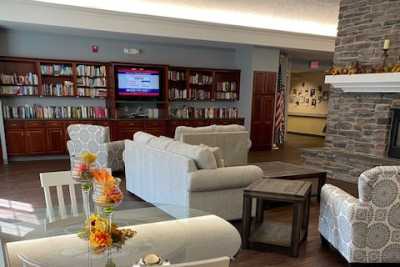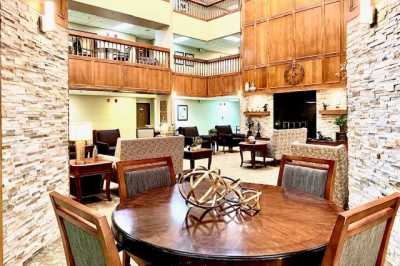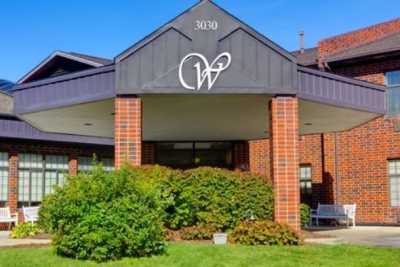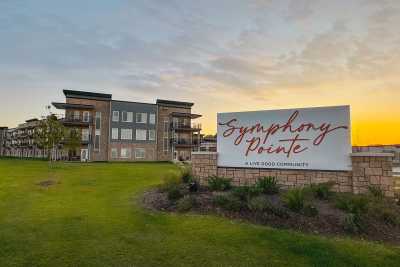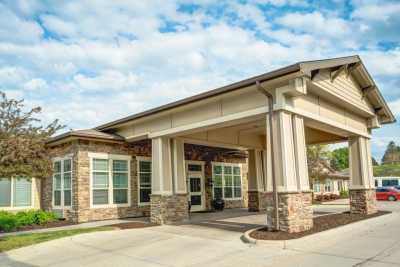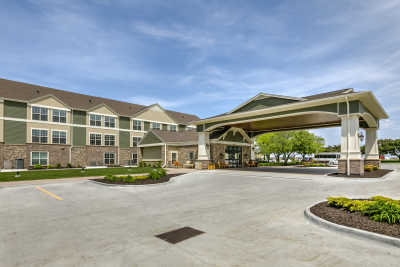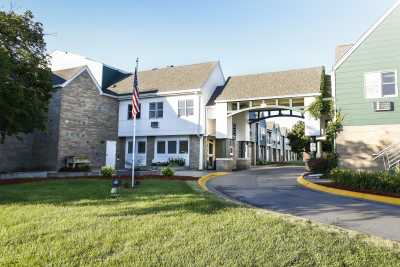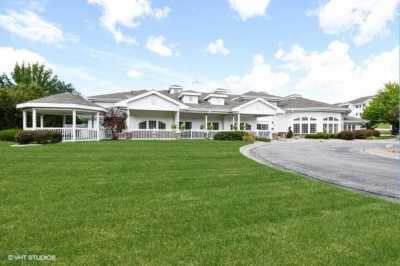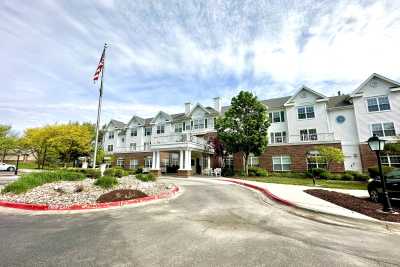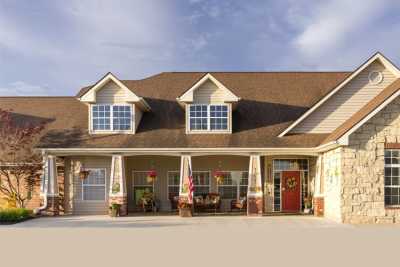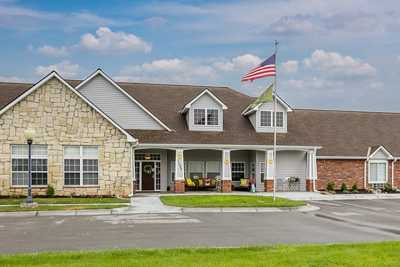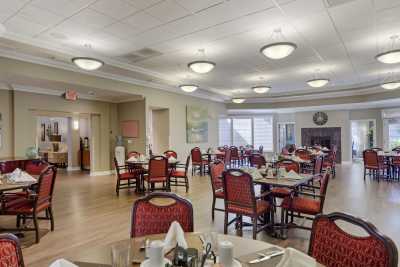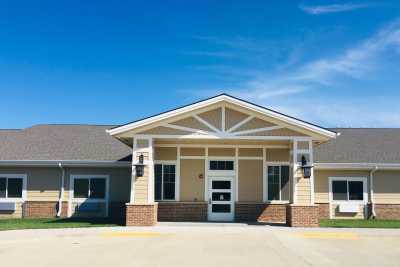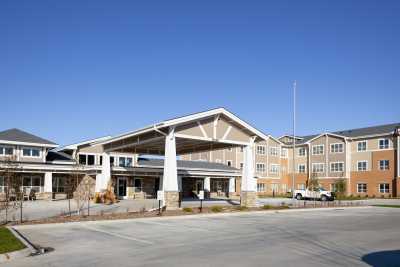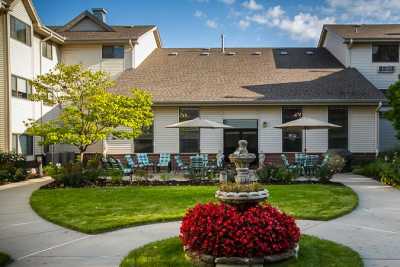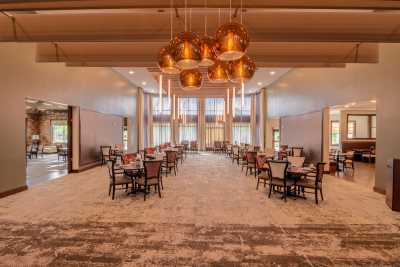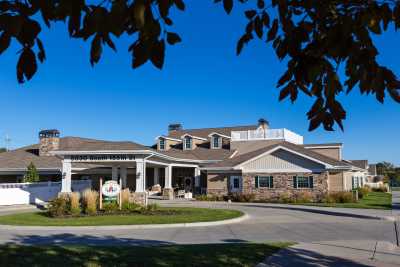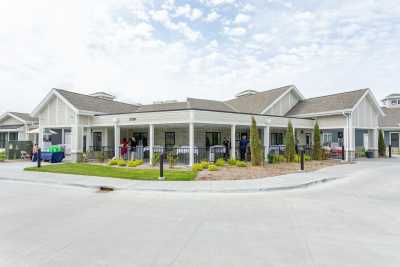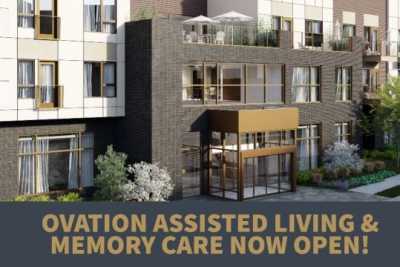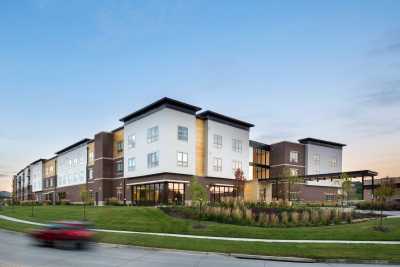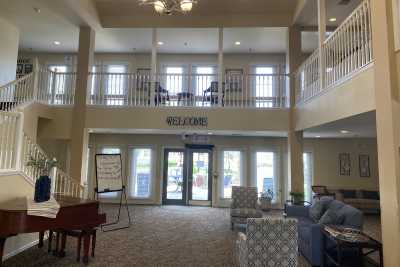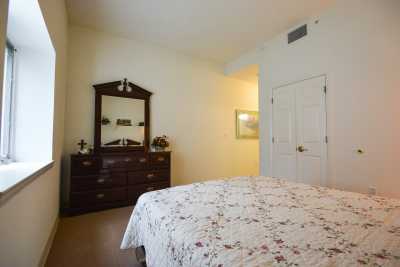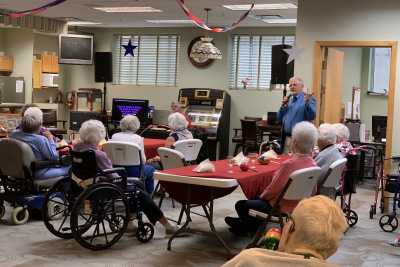https://hydra.prod.aplaceformom.com/graphql
2devne7t7k73
J7PEVho1wGm72cc3oBCuh78lk22e3qNf
30
/image/web-lighthouse/prod/Best-Of-2026-small-badge.png?t=default
desktop
alzheimers-care
Omaha
omaha
Nebraska
nebraska
NE
Cities
134.308707
DestinationHeader
Destination Page
SEO
true
true
false
false
25
18
7
0
0
76
21
0
true
101185
68022
true
132
18
0
true
69770
68124
true
22
19
0
true
98180
68124
true
435757
17430
3
normal
[{"id":"101185","slug":"marquis-place-101185","name":"Marquis Place","awards":[],"recommendedScoreV2":19811,"isCustomer":true,"hasDescription":true,"imageCount":21,"videoCount":0,"floorPlanCount":4,"hasReview":true,"promotionsExpiring":false,"promotionsTotal":0,"promotionsType":[],"scheduleTourAvailable":false,"location":{"lat":41.292099,"lng":-96.24134064},"isHomeCareOnly":false},{"id":"69770","slug":"crown-pointe-retirement-community-69770","name":"Crown Pointe Retirement Community","awards":["Best of Senior Living"],"recommendedScoreV2":29590,"isCustomer":true,"hasDescription":true,"imageCount":18,"videoCount":0,"floorPlanCount":3,"hasReview":true,"promotionsExpiring":false,"promotionsTotal":0,"promotionsType":[],"scheduleTourAvailable":false,"location":{"lat":41.232758,"lng":-96.037071},"isHomeCareOnly":false},{"id":"98180","slug":"westgate-assisted-living-98180","name":"Westgate Assisted Living","awards":[],"recommendedScoreV2":19548,"isCustomer":true,"hasDescription":true,"imageCount":19,"videoCount":0,"floorPlanCount":0,"hasReview":true,"promotionsExpiring":false,"promotionsTotal":0,"promotionsType":[],"scheduleTourAvailable":false,"location":{"lat":41.231831,"lng":-96.037599},"isHomeCareOnly":false},{"id":"1460795","slug":"symphony-pointe-1460795","name":"Symphony Pointe","awards":[],"recommendedScoreV2":18988,"isCustomer":true,"hasDescription":true,"imageCount":37,"videoCount":0,"floorPlanCount":0,"hasReview":true,"promotionsExpiring":false,"promotionsTotal":0,"promotionsType":[],"scheduleTourAvailable":false,"location":{"lat":41.255320775355315,"lng":-96.21588646442336},"isHomeCareOnly":false},{"id":"1364791","slug":"cedar-creek-of-prairie-meadows-1364791","name":"Cedar Creek of Prairie Meadows","awards":[],"recommendedScoreV2":18948,"isCustomer":true,"hasDescription":true,"imageCount":15,"videoCount":0,"floorPlanCount":0,"hasReview":true,"promotionsExpiring":false,"promotionsTotal":0,"promotionsType":[],"scheduleTourAvailable":false,"location":{"lat":41.30049515,"lng":-96.12037659},"isHomeCareOnly":false},{"id":"92072","slug":"remington-heights-retirement-community-92072","name":"Remington Heights Retirement Community","awards":[],"recommendedScoreV2":18818,"isCustomer":false,"hasDescription":true,"imageCount":17,"videoCount":0,"floorPlanCount":3,"hasReview":true,"promotionsExpiring":false,"promotionsTotal":0,"promotionsType":[],"scheduleTourAvailable":false,"location":{"lat":41.2634158,"lng":-96.1101916},"isHomeCareOnly":false},{"id":"91632","slug":"hickory-villa-91632","name":"Hickory Villa","awards":[],"recommendedScoreV2":18573,"isCustomer":true,"hasDescription":true,"imageCount":4,"videoCount":0,"floorPlanCount":1,"hasReview":true,"promotionsExpiring":false,"promotionsTotal":0,"promotionsType":[],"scheduleTourAvailable":false,"location":{"lat":41.24272537,"lng":-96.02549744},"isHomeCareOnly":false},{"id":"69776","slug":"bailey-pointe-at-roxbury-park-69776","name":"Bailey Pointe at Roxbury Park","awards":[],"recommendedScoreV2":18602,"isCustomer":true,"hasDescription":true,"imageCount":34,"videoCount":0,"floorPlanCount":0,"hasReview":true,"promotionsExpiring":false,"promotionsTotal":0,"promotionsType":[],"scheduleTourAvailable":false,"location":{"lat":41.20234299,"lng":-96.08286285},"isHomeCareOnly":false},{"id":"69766","slug":"astoria-senior-living-omaha-69766","name":"Astoria Senior Living Omaha","awards":[],"recommendedScoreV2":18498,"isCustomer":true,"hasDescription":true,"imageCount":14,"videoCount":0,"floorPlanCount":0,"hasReview":true,"promotionsExpiring":false,"promotionsTotal":0,"promotionsType":[],"scheduleTourAvailable":false,"location":{"lat":41.27151871,"lng":-96.05683136},"isHomeCareOnly":false},{"id":"95268","slug":"bickford-of-omaha-hickory-95268","name":"Bickford of Omaha Hickory","awards":[],"recommendedScoreV2":18418,"isCustomer":true,"hasDescription":true,"imageCount":16,"videoCount":0,"floorPlanCount":0,"hasReview":true,"promotionsExpiring":false,"promotionsTotal":0,"promotionsType":[],"scheduleTourAvailable":false,"location":{"lat":41.24274063,"lng":-96.02641296},"isHomeCareOnly":false},{"id":"92075","slug":"bickford-of-omaha-blondo-92075","name":"Bickford of Omaha Blondo","awards":[],"recommendedScoreV2":18022,"isCustomer":true,"hasDescription":true,"imageCount":20,"videoCount":0,"floorPlanCount":0,"hasReview":true,"promotionsExpiring":false,"promotionsTotal":0,"promotionsType":[],"scheduleTourAvailable":false,"location":{"lat":41.27827454,"lng":-96.08854675},"isHomeCareOnly":false},{"id":"69780","slug":"parsons-house-on-eagle-run-69780","name":"Parsons House on Eagle Run","awards":[],"recommendedScoreV2":18004,"isCustomer":false,"hasDescription":true,"imageCount":2,"videoCount":0,"floorPlanCount":0,"hasReview":true,"promotionsExpiring":false,"promotionsTotal":0,"promotionsType":[],"scheduleTourAvailable":false,"location":{"lat":41.28742599,"lng":-96.13693237},"isHomeCareOnly":false},{"id":"153464","slug":"elk-ridge-village-153464","name":"Elk Ridge Village","awards":[],"recommendedScoreV2":18023,"isCustomer":false,"hasDescription":true,"imageCount":22,"videoCount":0,"floorPlanCount":0,"hasReview":true,"promotionsExpiring":false,"promotionsTotal":0,"promotionsType":[],"scheduleTourAvailable":false,"location":{"lat":41.27591705,"lng":-96.22180176},"isHomeCareOnly":false},{"id":"1360456","slug":"hansen-house-1360456","name":"Hansen House","awards":[],"recommendedScoreV2":19339,"isCustomer":true,"hasDescription":true,"imageCount":4,"videoCount":0,"floorPlanCount":0,"hasReview":true,"promotionsExpiring":false,"promotionsTotal":0,"promotionsType":[],"scheduleTourAvailable":false,"location":{"lat":41.27447891,"lng":-95.87828064},"isHomeCareOnly":false},{"id":"1421575","slug":"cedarhurst-of-la-vista-1421575","name":"Cedarhurst of La Vista","awards":[],"recommendedScoreV2":19269,"isCustomer":false,"hasDescription":true,"imageCount":17,"videoCount":0,"floorPlanCount":10,"hasReview":true,"promotionsExpiring":false,"promotionsTotal":0,"promotionsType":[],"scheduleTourAvailable":false,"location":{"lat":41.18388748,"lng":-96.03083038},"isHomeCareOnly":false},{"id":"91585","slug":"richmont-senior-living-91585","name":"Richmont Senior Living","awards":[],"recommendedScoreV2":19237,"isCustomer":true,"hasDescription":true,"imageCount":10,"videoCount":0,"floorPlanCount":9,"hasReview":true,"promotionsExpiring":false,"promotionsTotal":0,"promotionsType":[],"scheduleTourAvailable":false,"location":{"lat":41.15431976,"lng":-95.92811584},"isHomeCareOnly":false},{"id":"1452285","slug":"the-brant-at-gretna-1452285","name":"The Brant at Gretna","awards":[],"recommendedScoreV2":18719,"isCustomer":true,"hasDescription":true,"imageCount":18,"videoCount":0,"floorPlanCount":25,"hasReview":true,"promotionsExpiring":false,"promotionsTotal":0,"promotionsType":[],"scheduleTourAvailable":false,"location":{"lat":41.16606903,"lng":-96.17481232},"isHomeCareOnly":false},{"id":"1365817","slug":"country-house-omaha-1365817","name":"CountryHouse Omaha","awards":[],"recommendedScoreV2":17921,"isCustomer":true,"hasDescription":true,"imageCount":19,"videoCount":0,"floorPlanCount":5,"hasReview":true,"promotionsExpiring":false,"promotionsTotal":0,"promotionsType":[],"scheduleTourAvailable":false,"location":{"lat":41.20743942,"lng":-96.15698242},"isHomeCareOnly":false},{"id":"1445356","slug":"country-house-at-elkhorn-1445356","name":"CountryHouse at Elkhorn","awards":[],"recommendedScoreV2":17844,"isCustomer":true,"hasDescription":true,"imageCount":10,"videoCount":0,"floorPlanCount":3,"hasReview":true,"promotionsExpiring":false,"promotionsTotal":0,"promotionsType":[],"scheduleTourAvailable":false,"location":{"lat":41.272116,"lng":-96.241943},"isHomeCareOnly":false},{"id":"1453955","slug":"ovation-heartwood-preserve-1453955","name":"Ovation Heartwood Preserve","awards":[],"recommendedScoreV2":17512,"isCustomer":true,"hasDescription":true,"imageCount":11,"videoCount":0,"floorPlanCount":0,"hasReview":true,"promotionsExpiring":false,"promotionsTotal":0,"promotionsType":[],"scheduleTourAvailable":false,"location":{"lat":41.261363,"lng":-96.115709},"isHomeCareOnly":false},{"id":"1370929","slug":"aksarben-village-senior-living-community-1370929","name":"Aksarben Village Senior Living Community","awards":[],"recommendedScoreV2":10018,"isCustomer":false,"hasDescription":false,"imageCount":17,"videoCount":0,"floorPlanCount":23,"hasReview":true,"promotionsExpiring":false,"promotionsTotal":0,"promotionsType":[],"scheduleTourAvailable":false,"location":{"lat":41.24610138,"lng":-96.02169037},"isHomeCareOnly":false},{"id":"69779","slug":"bailey-pointe-at-miracle-hills-69779","name":"Bailey Pointe at Miracle Hills","awards":[],"recommendedScoreV2":12039,"isCustomer":true,"hasDescription":true,"imageCount":38,"videoCount":0,"floorPlanCount":0,"hasReview":true,"promotionsExpiring":false,"promotionsTotal":0,"promotionsType":[],"scheduleTourAvailable":false,"location":{"lat":41.26722717,"lng":-96.09964752},"isHomeCareOnly":false},{"id":"69761","slug":"house-of-hope-memory-care-69761","name":"House Of Hope Memory Care","awards":[],"recommendedScoreV2":10010,"isCustomer":true,"hasDescription":true,"imageCount":9,"videoCount":0,"floorPlanCount":0,"hasReview":true,"promotionsExpiring":false,"promotionsTotal":0,"promotionsType":[],"scheduleTourAvailable":false,"location":{"lat":41.30261993408203,"lng":-95.9938735961914},"isHomeCareOnly":false},{"id":"147303","slug":"via-christe-assisted-living-and-memory-care-147303","name":"Via Christe Assisted Living and Memory Care","awards":[],"recommendedScoreV2":10003,"isCustomer":false,"hasDescription":false,"imageCount":2,"videoCount":0,"floorPlanCount":0,"hasReview":true,"promotionsExpiring":false,"promotionsTotal":0,"promotionsType":[],"scheduleTourAvailable":false,"location":{"lat":41.26515198,"lng":-95.96787262},"isHomeCareOnly":false},{"id":"92067","slug":"fountain-view-92067","name":"Fountain View","awards":[],"recommendedScoreV2":10003,"isCustomer":false,"hasDescription":true,"imageCount":1,"videoCount":0,"floorPlanCount":0,"hasReview":true,"promotionsExpiring":false,"promotionsTotal":0,"promotionsType":[],"scheduleTourAvailable":false,"location":{"lat":41.20347595214844,"lng":-96.08343505859376},"isHomeCareOnly":false}]
25
10
68114
Douglas County
-96.0522,41.26270000000006
2026
DESTINATION_PAGE
DESTINATION_PAGE
universalSearch.12c886069e4dda880f26.js
ALZHEIMERS_CARE
{"city":[5475,5382,5144,6111,4967,5111,5153,4813,5345,5365,5444,5034,5664,4908,5154,5744,5745,6555,6064,6531,6004,6598,6439,6512,6218,6472,6108,6114],"state":[5475,5542,5366,5839,5120,5493,5429,5571,5381,6061,5809,5420,5848,5507,5075,5481,6064,6621,6463,6432,6065,6802,6734,7018,6636,6950,6391,6794],"national":[5479,5475,5554,5514,5568,5448,5510,5538,5507,5490,5487,5645,5618,5813,5788,5873,6030,6086,6207,6354,6422,6447,6538,6577,6700,6674,6721,6782],"years":[2019,2019.25,2019.5,2019.75,2020,2020.25,2020.5,2020.75,2021,2021.25,2021.5,2021.75,2022,2022.25,2022.5,2022.75,2023,2023.25,2023.5,2023.75,2024,2024.25,2024.5,2024.75,2025,2025.25,2025.5,2025.75]}
destinationBelowTheFold.12c886069e4dda880f26.js
false
false
“Molly, our Senior Living Advisor, was there every step of the way, and we could not be more grateful.
Molly’s insider knowledge helped us make the best decision we could...”
- Claudia Whitaker
insider knowledge best decision
{"wpSlug":"destination-page-inline","form":{"analytics":{"formId":"top-lead-form-challenger","formType":"long","moduleId":"Destination Page Top Lead Form Challenger v1.0","sourceId":38,"subSourceId":6257,"channel2":"SEO","pageType":"Destination Page","formVersionId":1,"formVersionDate":"12/18/2024","lastBulkUpdateTime":1758223062,"ranDisclaimerUpdates":true},"canonicalUrl":"Destination Page | A Place For Mom","commonData":{"thankYouShort":{"title":"Thanks, {{firstName}}","titleHtml":"One of our expert Senior Living Advisors will be reaching out to support your search.","paragraphs":["Your personalized listings are below."],"image":"/image/web-lighthouse/prod/SLA-IN-17991.jpg","searchLinkText":"See my listings","searchLinkUrl":"#top-of-community-list"},"thankYou":{"titleHtml":"Thanks, {{firstName}}</br>Based on your selections we recommend you speak with a Senior Living Advisor <br/>","image":"/image/web-lighthouse/prod/progressive-v1-thankyou.jpg","listSection":{"list":["We will reach out as soon as possible during normal business hours below","Need to talk to someone right away? Call us at {{apfmPhoneNumber}}","Our service is 100% free of charge to you and your family as we are paid by the communities in our network"]},"searchLinkText":"Show me listings near {{city}}"},"formBlock":{"disclaimer":"<p>By sharing your contact information, you agree to our <a target=\"_blank\" href=\"/terms-of-use\">Terms of Use</a> and <a target=\"_blank\" href=\"/privacy\">Privacy Policy</a>. You also consent to receive texts and calls from us and our community customers, including telemarketing and/or advertising, even if your number is on a Do Not Call list. Outreach may be during quiet hours under all applicable laws, auto-dialed, or may use pre-recorded or artificial voice. Your consent is not a condition to using our service. Msg and Data Rates may apply. Msg frequency varies. Text HELP for Help. Text STOP for Stop.</p>"},"thankYouAddOn":{"image":"/image/web-lighthouse/prod/ty-sla.jpg","title":"Hi, {{firstName}}","paragraph":"Thanks for contacting us; We are calling you now to understand your situation better","countdownText":"Our call will arrive within: <span>00:10</span>","avatarText":"Get insight from a local","quote":"“I love having the knowledge to empower and educate families, so they are confident in their long term care decisions.” - Keri, Senior Living Advisor","searchLinkText":"Show me my listings"},"formBlockBP":{"disclaimer":"<p>By sharing your contact information, you agree to our <a target=\"_blank\" href=\"/terms-of-use\">Terms of Use</a> and <a target=\"_blank\" href=\"/privacy\">Privacy Policy</a>. You also consent to receive texts and calls from us and our community customers, including telemarketing and/or advertising, even if your number is on a Do Not Call list. Outreach may be during quiet hours under all applicable laws, auto-dialed, or may use pre-recorded or artificial voice. Your consent is not a condition to using our service. Msg and Data Rates may apply. Msg frequency varies. Text HELP for Help. Text STOP for Stop.</p>"}},"description":"Destination Page | A Place For Mom","dynamicHeadlines":{"locationCurrentlyLivingQuestion":{"headline":{"MOTHER":"Where is Mom living?","FATHER":"Where is Dad living?","SELF":"Where are you living?","SPOUSE":"Where is your spouse living?","OTHER_RELATIVE":"Where is this person living?"}},"wheelchairPropelQuestion":{"headline":{"MOTHER":"Can Mom propel her wheelchair on her own?","FATHER":"Can Dad propel his wheelchair on his own?","SELF":"Can you propel your wheelchair on your own?","SPOUSE":"Can your spouse propel their wheelchair on their own?","OTHER_RELATIVE":"Can this person propel their wheelchair on their own?"}},"wheelchairTransferQuestion":{"headline":{"MOTHER":"Can Mom transfer from her wheelchair to a bed or couch on her own?","FATHER":"Can Dad transfer from his wheelchair to a bed or couch on his own?","SELF":"Can you transfer from your wheelchair to a bed or couch on your own?","SPOUSE":"Can your spouse transfer from their wheelchair to a bed or couch on their own?","OTHER_RELATIVE":"Can this person transfer from their wheelchair to a bed or couch on their own?"}},"assistanceQuestion":{"headline":{"MOTHER":"Does Mom need help with the following?","FATHER":"Does Dad need help with the following?","SELF":"Do you need help with the following?","SPOUSE":"Does your spouse need help with the following?","OTHER_RELATIVE":"Does this person need help with the following?"}},"behaviorsExperiencedQuestion":{"headline":{"MOTHER":"Has Mom experienced any of the following behaviors related to memory loss?","FATHER":"Has Dad experienced any of the following behaviors related to memory loss?","SELF":"Have you experienced any of the following behaviors related to memory loss?","SPOUSE":"Has your spouse experienced any of the following behaviors related to memory loss?","OTHER_RELATIVE":"Has this person experienced any of the following behaviors related to memory loss?"}},"financialResourcesQuestion":{"headline":{"MOTHER":"How does Mom plan to pay for senior living?","FATHER":"How does Dad plan to pay for senior living?","SELF":"How do you plan to pay for senior living?","SPOUSE":"How does your spouse plan to pay for senior living?","OTHER_RELATIVE":"How do you or this person plan to pay for senior living?"}},"veteranQuestion":{"headline":{"MOTHER":"Is Mom or her spouse a wartime Veteran?","FATHER":"Is Dad or his spouse a wartime Veteran?","SELF":"Are you or your spouse a wartime Veteran?","SPOUSE":"Are you or your spouse a wartime Veteran?","OTHER_RELATIVE":"Is this person or their spouse a wartime Veteran?"}},"resident1AgeQuestion":{"headline":{"MOTHER":"How old is Mom?","FATHER":"How old is Dad?","SELF":"How old are you?","SPOUSE":"How old is your spouse?","OTHER_RELATIVE":"How old is this person?"}},"getAroundQuestion":{"headline":{"MOTHER":"How is Mom getting around?","FATHER":"How is Dad getting around?","SELF":"How are you getting around?","SPOUSE":"How is your spouse getting around?","OTHER_RELATIVE":"How is this person getting around?"}},"resident1NameQuestion":{"headline":{"MOTHER":"What is Mom’s name?","FATHER":"What is Dad’s name?","SPOUSE":"What is your spouse’s name?","OTHER_RELATIVE":"What is this person’s name?"},"inputPlaceholders":{"resident1FirstName":{"MOTHER":"Mom's first name","FATHER":"Dad's first name","SPOUSE":"Spouse's first name","OTHER_RELATIVE":"Person's first name"},"resident1LastName":{"MOTHER":"Mom's last name","FATHER":"Dad's last name","SPOUSE":"Spouse's last name","OTHER_RELATIVE":"Person's last name"}},"list":{"MOTHER":["We won’t contact your mother"],"FATHER":["We won’t contact your father"],"SPOUSE":["We won’t contact your spouse"],"OTHER_RELATIVE":["We won’t contact this person"]},"tip":{"MOTHER":"We need Mom’s name for our records. We will not contact your Mom.","FATHER":"We need Dad's name for our records. We will not contact your Dad.","SPOUSE":"We need your spouse's name for our records. We will not contact your spouse.","OTHER_RELATIVE":"We need this person's name for our records. We will not contact this person."}},"resident1AmenitiesQuestion":{"headline":{"MOTHER":"What would Mom like in a community?","FATHER":"What would Dad like in a community?","SELF":"What would you like in a community?","SPOUSE":"What would your spouse like in a community?","OTHER_RELATIVE":"What would this person like in a community?"}},"notesQuestion":{"headline":{"MOTHER":"What else is important to Mom? <span class=\"fw-normal\">(optional)</span>","FATHER":"What else is important to Dad? <span class=\"fw-normal\">(optional)</span>","SELF":"What else is important to you? <span class=\"fw-normal\">(optional)</span>","SPOUSE":"What else is important to your spouse? <span class=\"fw-normal\">(optional)</span>","OTHER_RELATIVE":"What else is important to this person? <span class=\"fw-normal\">(optional)</span>"}}},"phases":[{"name":"Phase One","key":"phase_1","theme":"SEOProg","plugins":[{"name":"locationInquiryFields","on":"relationToResidentQuestion","pluginData":{}},{"name":"leadFormCompleted","on":"relationToResidentQuestion","pluginData":{"tyStepName":"thankYou"}},{"name":"getNextPhaseData","on":"moveDateRangeQuestion","pluginData":{"cmsSlug":"destination-page-inline","phaseToLoad":"phase_2","shouldBeCalledOnce":true}},{"name":"getNextPhaseData","on":"lookingReasonQuestion","pluginData":{"cmsSlug":"inline-add-on-v2","phaseToLoad":"phase_3","shouldLoadCss":true,"shouldBeCalledOnce":true}}],"steps":[{"figmaStep":"null","name":"relationToResidentQuestion","qualtricsName":"relationToResidentQuestion","component":"SelectSingleColTwoDestinationSlimFirstStep","controller":"SelectSingleController","progressBarType":"default","on":{"ANY_VALUE":"moveDateRangeQuestion"},"componentData":{"header":"Answer a few questions to get personalized results","title":"Who are you searching for?","options":[{"inquiryField":["relationToResident","relationshipToResidentDetail"],"label":"Spouse","value":["SPOUSE","SPOUSE"]},{"inquiryField":["relationToResident","relationshipToResidentDetail"],"label":"Myself","value":["SELF","SELF"]},{"inquiryField":["relationToResident","relationshipToResidentDetail"],"label":"Mom","value":["MOTHER","MOTHER"]},{"inquiryField":["relationToResident","relationshipToResidentDetail"],"label":"Dad","value":["FATHER","FATHER"]},{"inquiryField":["relationToResident","relationshipToResidentDetail"],"label":"Someone else","value":["OTHER_RELATIVE","OTHER_RELATIVE"]}],"hideProgressBar":true,"hideBackButton":true,"saveToStorage":true},"analytics":{"headerText":"{{title}}","questionType":"Who","formStepType":"question","question":"{{title}}"}},{"figmaStep":"null","name":"moveDateRangeQuestion","qualtricsName":"moveDateRangeQuestion","component":"SelectSingleColTwoDestinationSlimStep","controller":"SelectSingleController","progressBarType":"default","on":{"_0_DAYS":"lookingReasonQuestion","_30_DAYS":"lookingReasonQuestion","_60_DAYS":"lookingReasonQuestion","MORE_THAN_90":"lookingReasonQuestion"},"componentData":{"title":"How quickly do you need to find an option?","options":[{"inquiryField":["moveDateRange"],"label":"ASAP","value":["_0_DAYS"]},{"inquiryField":["moveDateRange"],"label":"Within 30 days","value":["_30_DAYS"]},{"inquiryField":["moveDateRange"],"label":"Within 60 days","value":["_60_DAYS"]},{"inquiryField":["moveDateRange"],"label":"No rush","value":["MORE_THAN_90"]}],"saveToStorage":true},"analytics":{"headerText":"{{title}}","questionType":"Urgency","formStepType":"question","question":"{{title}}"}},{"figmaStep":"null","name":"lookingReasonQuestion","qualtricsName":"lookingReasonQuestion","component":"SelectSingleColTwoDestinationSlimStep","controller":"SelectSingleController","progressBarType":"default","on":{"DISCHARGE_HOSPITAL_REHAB":"budgetQuestion","OTHER":"budgetQuestion"},"componentData":{"title":"Is dementia or a hospital/rehab stay prompting your search?","options":[{"inquiryField":["lookingReason"],"label":"Yes","value":["DISCHARGE_HOSPITAL_REHAB"]},{"inquiryField":["lookingReason"],"label":"No","value":["OTHER"]}],"saveToStorage":true},"analytics":{"headerText":"{{title}}","questionType":"Reason","formStepType":"question","question":"{{title}}"}},{"figmaStep":"null","name":"budgetQuestion","qualtricsName":"budgetQuestion","component":"SelectSingleColTwoDestinationSlimStep","controller":"SelectSingleController","progressBarType":"default","on":{"ANY_VALUE":"formBlock"},"componentData":{"title":"Would you estimate the monthly budget above or below $1,500?","options":[{"inquiryField":["budgetMin","budgetMax"],"label":"Above","value":["2001","2000"]},{"inquiryField":["budgetMin","budgetMax"],"label":"Below","value":["1","1999"]}],"saveToStorage":true},"analytics":{"headerText":"{{title}}","questionType":"Budget Qualifier","formStepType":"question","question":"{{title}}","buttonText":"{{buttonAction.label}}"}},{"figmaStep":null,"name":"thankYou","qualtricsName":"thankYou","component":"ThankYouShort","controller":"ThankYouShortController","componentData":{"showBusinessHours":false,"keepStepVisible":true,"hideProgressBar":true},"analytics":{"headerText":"{{title}}","questionType":"Off-ramp inquiry response error","formStepType":"4 text fields","question":"{{title}}","buttonText":"{{buttonAction.label}}"}}]}],"progress":{"relationToResidentQuestion":0,"moveDateRangeQuestion":50,"lookingReasonQuestion":75,"budgetQuestion":100,"formBlock":null,"thankYouInquiryResponseError":null,"startPhase3":56.52,"offRampTalkToAnAdvisor":8.7,"locationInputQuestion":13.04,"locationCurrentlyLivingQuestion":17.39,"resident1AmenitiesQuestion":21.74,"notesQuestion":26.09,"resident1AgeQuestion":30.43,"resident1NameQuestion":34.78,"getAroundQuestion":39.13,"assistanceQuestion":43.48,"behaviorsExperiencedQuestion":47.83,"eligibilityBreakTwo":52.17,"thankYouOffRampNoResidentName":null,"thankYouOfframpNoCommunities":null,"thankYouOffRampTimerExpired":null,"tempStateFastCarAnswers":null,"secondFinancialResourcesQuestion":60.87,"veteranQuestion":65.22,"budgetRangeQuestion":69.57,"thankYouBudgetRangeQuestionOfframp":null,"eligibilityBreakThree":73.91,"thankYouEligibilityThreeOffRamp":null,"startPhase4":78.26,"is2fAuthOptInQuestion":82.61,"emailConfirmation":82.61,"twoFactorAuthEmailCodeQuestion":86.96,"twoFactorAuthEmailCodeWithoutBackButtonQuestion":86.96,"twoFactorAuthPhoneCodeQuestion":86.96,"thankYouOfframpNoCode":null,"stateDisclosure":91.3,"viewResults":95.65,"thankYouInquiryUpdateOnOffRampSpeakToAnAdvisorFirst":null,"eligibilityBreakFour":100,"communities":null},"title":"Destination Page | A Place For Mom"}}
{"wpSlug":"destination-page-short-form","form":{"analytics":{"formType":"short","sourceId":38,"subSourceId":6257,"channel2":"SEO","pageType":"Destination Page","formVersionId":1,"formVersionDate":"03/05/2025","lastBulkUpdateTime":1758223062,"ranDisclaimerUpdates":true},"canonicalUrl":"[{\"phase\":\"{\\\"name\\\":\\\"Phase Two\\\",\\\"key\\\":\\\"phase_2\\\",\\\"theme\\\":\\\"SEOProg\\\",\\\"plugins\\\":[{\\\"name\\\":\\\"setStateDisclosuresAndExclusions\\\",\\\"on\\\":\\\"startPhase2\\\",\\\"pluginData\\\":{\\\"shouldBeCalledOnce\\\":true}},{\\\"name\\\":\\\"getNextPhaseData\\\",\\\"on\\\":\\\"relationToResidentQuestion\\\",\\\"pluginData\\\":{\\\"phaseToLoad\\\":\\\"phase_3\\\",\\\"shouldBeCalledOnce\\\":true}},{\\\"name\\\":\\\"dynamicHeadlines\\\",\\\"on\\\":\\\"lookingReasonQuestion\\\",\\\"pluginData\\\":{}},{\\\"name\\\":\\\"geocoder\\\",\\\"on\\\":\\\"relationToResidentQuestion\\\",\\\"pluginData\\\":{}}],\\\"steps\\\":[{\\\"figmaStep\\\":\\\"1\\\",\\\"name\\\":\\\"locationSemLanding\\\",\\\"component\\\":\\\"LocationSemLanding\\\",\\\"controller\\\":\\\"SemLandingInputController\\\",\\\"on\\\":{\\\"ANY_VALUE\\\":\\\"startPhase2\\\"},\\\"componentData\\\":{\\\"bottomImagePath\\\":\\\"\\/image\\/web-lighthouse\\/prod\\/housing_graphic\\\",\\\"title\\\":\\\"Discover the best Senior Living options in your area\\\",\\\"description\\\":\\\"Compare options. Get pricing. Save time.\\\",\\\"buttonAction\\\":{\\\"label\\\":\\\"Search\\\"},\\\"inputs\\\":[{\\\"errorMessage\\\":\\\"Please enter a valid City & State, or Zip\\\",\\\"inquiryField\\\":[\\\"desiredCity\\\",\\\"desiredState\\\",\\\"desiredPostalCode\\\",\\\"desiredCountryCode\\\"],\\\"name\\\":\\\"locationForm\\\",\\\"placeholder\\\":\\\"Enter the zip code or city\\\"}],\\\"hideBackButton\\\":true,\\\"hideProgressBar\\\":true,\\\"canAutoAnswerOrSkipOnNavigation\\\":true},\\\"analytics\\\":{\\\"headerText\\\":\\\"{{title}}\\\",\\\"questionType\\\":\\\"Location\\\",\\\"formStepType\\\":\\\"question\\\",\\\"buttonText\\\":\\\"{{buttonAction.label}}\\\",\\\"question\\\":\\\"{{title}}\\\"},\\\"qualtricsName\\\":\\\"locationSemLanding\\\",\\\"enterStateGate\\\":{\\\"fallback\\\":\\\"startPhase2\\\"}},{\\\"figmaStep\\\":\\\"2\\\",\\\"name\\\":\\\"startPhase2\\\",\\\"component\\\":\\\"Content\\\",\\\"controller\\\":\\\"ContentController\\\",\\\"progressBarType\\\":\\\"default\\\",\\\"on\\\":{\\\"ANY_VALUE\\\":\\\"relationToResidentQuestion\\\"},\\\"componentData\\\":{\\\"images\\\":{\\\"mobile\\\":\\\"\\/image\\/web-lighthouse\\/prod\\/progressive-v2-map-2-mobile-resized.svg\\\",\\\"tablet\\\":\\\"\\/image\\/web-lighthouse\\/prod\\/progressive-v2-map-2-tablet-resized.svg\\\",\\\"desktop\\\":\\\"\\/image\\/web-lighthouse\\/prod\\/progressive-v2-map-2-desktop-resized.svg\\\"},\\\"title\\\":\\\"Make a confident senior living decision\\\",\\\"description\\\":\\\"Simplify your search by taking a care assessment to get personalized senior living recommendations\\\",\\\"buttonAction\\\":{\\\"isDisabled\\\":false,\\\"isSubmitButton\\\":true,\\\"label\\\":\\\"Let's get started\\\"},\\\"hideBackButton\\\":true,\\\"showCloseButton\\\":true},\\\"analytics\\\":{\\\"headerText\\\":\\\"{{title}}\\\",\\\"questionType\\\":\\\"Start\\\",\\\"formStepType\\\":\\\"question\\\",\\\"buttonText\\\":\\\"{{buttonAction.label}}\\\",\\\"question\\\":\\\"{{title}}\\\"},\\\"qualtricsName\\\":\\\"startPhase2\\\"},{\\\"figmaStep\\\":\\\"3\\\",\\\"name\\\":\\\"relationToResidentQuestion\\\",\\\"component\\\":\\\"SelectSingleColOne\\\",\\\"controller\\\":\\\"SelectSingleController\\\",\\\"progressBarType\\\":\\\"default\\\",\\\"on\\\":{\\\"ANY_VALUE\\\":\\\"lookingReasonQuestion\\\"},\\\"componentData\\\":{\\\"title\\\":\\\"Who are you searching for?\\\",\\\"options\\\":[{\\\"inquiryField\\\":[\\\"relationToResident\\\",\\\"relationshipToResidentDetail\\\"],\\\"label\\\":\\\"Mom\\\",\\\"value\\\":[\\\"MOTHER\\\",\\\"MOTHER\\\"]},{\\\"inquiryField\\\":[\\\"relationToResident\\\",\\\"relationshipToResidentDetail\\\"],\\\"label\\\":\\\"Dad\\\",\\\"value\\\":[\\\"FATHER\\\",\\\"FATHER\\\"]},{\\\"inquiryField\\\":[\\\"relationToResident\\\",\\\"relationshipToResidentDetail\\\"],\\\"label\\\":\\\"Myself\\\",\\\"value\\\":[\\\"SELF\\\",\\\"SELF\\\"]},{\\\"inquiryField\\\":[\\\"relationToResident\\\",\\\"relationshipToResidentDetail\\\"],\\\"label\\\":\\\"Spouse\\\",\\\"value\\\":[\\\"SPOUSE\\\",\\\"SPOUSE\\\"]},{\\\"inquiryField\\\":[\\\"relationToResident\\\",\\\"relationshipToResidentDetail\\\"],\\\"label\\\":\\\"Someone else\\\",\\\"value\\\":[\\\"OTHER_RELATIVE\\\",\\\"OTHER_RELATIVE\\\"]}]},\\\"analytics\\\":{\\\"headerText\\\":\\\"{{title}}\\\",\\\"questionType\\\":\\\"Who\\\",\\\"formStepType\\\":\\\"question\\\",\\\"question\\\":\\\"{{title}}\\\"},\\\"qualtricsName\\\":\\\"relationToResidentQuestion\\\"},{\\\"figmaStep\\\":\\\"4\\\",\\\"name\\\":\\\"lookingReasonQuestion\\\",\\\"component\\\":\\\"SelectSingleColOne\\\",\\\"controller\\\":\\\"SelectSingleController\\\",\\\"progressBarType\\\":\\\"default\\\",\\\"on\\\":{\\\"HELP_WITH_DAILY_ACTIVITIES\\\":\\\"moveDateRangeQuestion\\\",\\\"ALZHEIMER_DEMENTIA_DIAGNOSIS\\\":\\\"moveDateRangeQuestion\\\",\\\"DISCHARGE_HOSPITAL_REHAB\\\":\\\"moveDateRangeQuestion\\\",\\\"SOCIALIZATION_AND_COMPANIONSHIP\\\":\\\"moveDateRangeQuestion\\\",\\\"PLANNING_AHEAD\\\":\\\"moveDateRangeQuestion\\\",\\\"OTHER\\\":\\\"moveDateRangeQuestion\\\"},\\\"componentData\\\":{\\\"title\\\":\\\"What prompted your search for senior living?\\\",\\\"options\\\":[{\\\"inquiryField\\\":[\\\"lookingReason\\\"],\\\"label\\\":\\\"Help with daily activities\\\",\\\"value\\\":[\\\"HELP_WITH_DAILY_ACTIVITIES\\\"]},{\\\"inquiryField\\\":[\\\"lookingReason\\\"],\\\"label\\\":\\\"Memory care needs\\\",\\\"value\\\":[\\\"ALZHEIMER_DEMENTIA_DIAGNOSIS\\\"]},{\\\"inquiryField\\\":[\\\"lookingReason\\\"],\\\"label\\\":\\\"Placement post-hospital or short-term rehab\\\",\\\"value\\\":[\\\"DISCHARGE_HOSPITAL_REHAB\\\"]},{\\\"inquiryField\\\":[\\\"lookingReason\\\"],\\\"label\\\":\\\"Socialization and companionship\\\",\\\"value\\\":[\\\"SOCIALIZATION_AND_COMPANIONSHIP\\\"]},{\\\"inquiryField\\\":[\\\"lookingReason\\\"],\\\"label\\\":\\\"Starting to plan for the future\\\",\\\"value\\\":[\\\"PLANNING_AHEAD\\\"]},{\\\"inquiryField\\\":[\\\"lookingReason\\\"],\\\"label\\\":\\\"Other\\\",\\\"value\\\":[\\\"OTHER\\\"]}]},\\\"analytics\\\":{\\\"headerText\\\":\\\"{{title}}\\\",\\\"questionType\\\":\\\"Reason\\\",\\\"formStepType\\\":\\\"question\\\",\\\"question\\\":\\\"{{title}}\\\"},\\\"qualtricsName\\\":\\\"lookingReasonQuestion\\\"},{\\\"figmaStep\\\":\\\"5\\\",\\\"name\\\":\\\"moveDateRangeQuestion\\\",\\\"component\\\":\\\"SelectSingleColOne\\\",\\\"controller\\\":\\\"SelectSingleController\\\",\\\"progressBarType\\\":\\\"default\\\",\\\"on\\\":{\\\"_0_DAYS\\\":\\\"locationCurrentlyLivingQuestion\\\",\\\"_60_DAYS\\\":\\\"locationCurrentlyLivingQuestion\\\",\\\"_90_DAYS\\\":\\\"locationCurrentlyLivingQuestion\\\",\\\"MORE_THAN_90\\\":\\\"locationCurrentlyLivingQuestion\\\"},\\\"componentData\\\":{\\\"title\\\":\\\"What is your timing?\\\",\\\"options\\\":[{\\\"inquiryField\\\":[\\\"moveDateRange\\\"],\\\"label\\\":\\\"Immediately\\\",\\\"value\\\":[\\\"_0_DAYS\\\"]},{\\\"inquiryField\\\":[\\\"moveDateRange\\\"],\\\"label\\\":\\\"Within a few months\\\",\\\"value\\\":[\\\"_60_DAYS\\\"]},{\\\"inquiryField\\\":[\\\"moveDateRange\\\"],\\\"label\\\":\\\"Within 6 months\\\",\\\"value\\\":[\\\"_90_DAYS\\\"]},{\\\"inquiryField\\\":[\\\"moveDateRange\\\"],\\\"label\\\":\\\"Not urgent\\\",\\\"value\\\":[\\\"MORE_THAN_90\\\"]},{\\\"inquiryField\\\":[\\\"moveDateRange\\\"],\\\"label\\\":\\\"Not sure\\\",\\\"value\\\":[\\\"MORE_THAN_90\\\"]}]},\\\"analytics\\\":{\\\"headerText\\\":\\\"{{title}}\\\",\\\"questionType\\\":\\\"Urgency\\\",\\\"formStepType\\\":\\\"question\\\",\\\"question\\\":\\\"{{title}}\\\"},\\\"qualtricsName\\\":\\\"moveDateRangeQuestion\\\"},{\\\"figmaStep\\\":\\\"6\\\",\\\"name\\\":\\\"locationCurrentlyLivingQuestion\\\",\\\"component\\\":\\\"SelectSingleColOne\\\",\\\"controller\\\":\\\"SelectSingleController\\\",\\\"progressBarType\\\":\\\"default\\\",\\\"on\\\":{\\\"HOME_LIVES_ALONE\\\":\\\"locationInputQuestion\\\",\\\"HOME_LIVES_WITH_SOMEONE\\\":\\\"locationInputQuestion\\\",\\\"LIVES_WITH_FAMILY\\\":\\\"locationInputQuestion\\\",\\\"ASSISTED_LIVING\\\":\\\"locationNameQuestion\\\",\\\"HOSPITAL\\\":\\\"locationNameQuestion\\\",\\\"REHAB_FACILITY\\\":\\\"locationNameQuestion\\\",\\\"OTHER\\\":\\\"locationNameQuestion\\\"},\\\"componentData\\\":{\\\"title\\\":\\\"Where <is Mom> living?\\\",\\\"options\\\":[{\\\"inquiryField\\\":[\\\"locationCurrentlyLiving\\\"],\\\"label\\\":\\\"Home alone\\\",\\\"value\\\":[\\\"HOME_LIVES_ALONE\\\"]},{\\\"inquiryField\\\":[\\\"locationCurrentlyLiving\\\"],\\\"label\\\":\\\"Home with spouse, family or friends\\\",\\\"value\\\":[\\\"HOME_LIVES_WITH_SOMEONE\\\"]},{\\\"inquiryField\\\":[\\\"locationCurrentlyLiving\\\"],\\\"label\\\":\\\"Staying with family temporarily\\\",\\\"value\\\":[\\\"LIVES_WITH_FAMILY\\\"]},{\\\"inquiryField\\\":[\\\"locationCurrentlyLiving\\\"],\\\"label\\\":\\\"In a senior living community\\\",\\\"value\\\":[\\\"ASSISTED_LIVING\\\"]},{\\\"inquiryField\\\":[\\\"locationCurrentlyLiving\\\"],\\\"label\\\":\\\"Currently in the hospital\\\",\\\"value\\\":[\\\"HOSPITAL\\\"]},{\\\"inquiryField\\\":[\\\"locationCurrentlyLiving\\\"],\\\"label\\\":\\\"Short-term rehab\\\",\\\"value\\\":[\\\"REHAB_FACILITY\\\"]},{\\\"inquiryField\\\":[\\\"YAML_IGNORABLE_CONSTANT\\\",\\\"locationCurrentlyLiving\\\"],\\\"label\\\":\\\"Other\\\",\\\"value\\\":[\\\"OTHER\\\",null]}]},\\\"analytics\\\":{\\\"headerText\\\":\\\"{{title}}\\\",\\\"questionType\\\":\\\"Currently living\\\",\\\"formStepType\\\":\\\"question\\\",\\\"question\\\":\\\"{{title}}\\\"},\\\"qualtricsName\\\":\\\"locationCurrentlyLivingQuestion\\\"},{\\\"figmaStep\\\":\\\"7\\\",\\\"name\\\":\\\"locationNameQuestion\\\",\\\"component\\\":\\\"TextFieldInput\\\",\\\"controller\\\":\\\"TextFieldController\\\",\\\"progressBarType\\\":\\\"dynamic\\\",\\\"on\\\":{\\\"ANY_VALUE\\\":\\\"locationInputQuestion\\\"},\\\"componentData\\\":{\\\"title\\\":\\\"What is the name of the facility?\\\",\\\"inputs\\\":[{\\\"errorMessage\\\":\\\"Please enter a valid facility name.\\\",\\\"inquiryField\\\":[\\\"locationName\\\"],\\\"name\\\":\\\"locationName\\\",\\\"placeholder\\\":\\\"Name of facility\\\",\\\"type\\\":\\\"text\\\"}],\\\"buttonAction\\\":{\\\"label\\\":\\\"Continue\\\",\\\"isSubmitButton\\\":true},\\\"tip\\\":\\\"Knowing the specific facility will help us provide options that better match your needs.\\\"},\\\"analytics\\\":{\\\"headerText\\\":\\\"{{title}}\\\",\\\"questionType\\\":\\\"Facility name\\\",\\\"formStepType\\\":\\\"question\\\",\\\"question\\\":\\\"{{title}}\\\",\\\"buttonText\\\":\\\"{{buttonAction.label}}\\\",\\\"ghostText\\\":\\\"{{inputs[0].placeholder}}\\\"},\\\"qualtricsName\\\":\\\"locationNameQuestion\\\"},{\\\"figmaStep\\\":\\\"8\\\",\\\"name\\\":\\\"locationInputQuestion\\\",\\\"component\\\":\\\"LocationBasic\\\",\\\"controller\\\":\\\"LocationInputController\\\",\\\"progressBarType\\\":\\\"default\\\",\\\"on\\\":{\\\"ANY_VALUE\\\":\\\"eligibilityBreakOne\\\"},\\\"enterStateGate\\\":{\\\"answers\\\":{},\\\"fallback\\\":\\\"eligibilityBreakOne\\\"},\\\"componentData\\\":{\\\"canAutoAnswerOrSkipOnNavigation\\\":true,\\\"title\\\":\\\"Where is your preferred community location?\\\",\\\"inputs\\\":[{\\\"errorMessage\\\":\\\"Please enter a valid City & State, or Zip\\\",\\\"inquiryField\\\":[\\\"desiredCity\\\",\\\"desiredState\\\",\\\"desiredPostalCode\\\",\\\"desiredCountryCode\\\"],\\\"name\\\":\\\"locationForm\\\",\\\"placeholder\\\":\\\"Enter the zip code or city\\\"}],\\\"buttonAction\\\":{\\\"label\\\":\\\"Continue\\\",\\\"isSubmitButton\\\":true},\\\"name\\\":\\\"locationForm\\\"},\\\"analytics\\\":{\\\"headerText\\\":\\\"{{title}}\\\",\\\"questionType\\\":\\\"Location\\\",\\\"formStepType\\\":\\\"question\\\",\\\"buttonText\\\":\\\"{{buttonAction.label}}\\\",\\\"ghostText\\\":\\\"{{inputs[0].placeholder}}\\\",\\\"question\\\":\\\"{{title}}\\\"},\\\"qualtricsName\\\":\\\"locationInputQuestion\\\"},{\\\"figmaStep\\\":\\\"9\\\",\\\"name\\\":\\\"eligibilityBreakOne\\\",\\\"component\\\":\\\"LoaderEligibilityBreakBasic\\\",\\\"controller\\\":\\\"LoaderEligibilityBreakCommunitiesByZipController\\\",\\\"progressBarType\\\":\\\"default\\\",\\\"on\\\":{\\\"SUCCESS\\\":\\\"startPhase3\\\",\\\"FAILURE\\\":\\\"formBlockEligibilityBreakOneOfframp\\\"},\\\"componentData\\\":{\\\"title\\\":\\\"Compiling an initial set of community options\\\",\\\"images\\\":[\\\"\\/image\\/web-lighthouse\\/prod\\/progressive-v2-loader-1-1.png\\\",\\\"\\/image\\/web-lighthouse\\/prod\\/progressive-v2-loader-1-2.png\\\",\\\"\\/image\\/web-lighthouse\\/prod\\/progressive-v2-loader-1-3.png\\\",\\\"\\/image\\/web-lighthouse\\/prod\\/progressive-v2-loader-1-4.png\\\"],\\\"hideBackButton\\\":true,\\\"minCommunitiesThreshold\\\":5,\\\"failNextStateAnswer\\\":\\\"FAILURE\\\",\\\"successNextStateAnswer\\\":\\\"SUCCESS\\\",\\\"successNextStates\\\":[{\\\"name\\\":\\\"startPhase3\\\"}]},\\\"analytics\\\":{\\\"headerText\\\":\\\"{{title}}\\\",\\\"questionType\\\":\\\"n\\/a\\\",\\\"formStepType\\\":\\\"transition page\\\",\\\"question\\\":\\\"{{title}}\\\"},\\\"qualtricsName\\\":\\\"eligibilityBreakOne\\\"},{\\\"figmaStep\\\":\\\"10\\\",\\\"name\\\":\\\"formBlockEligibilityBreakOneOfframp\\\",\\\"component\\\":\\\"FormBlock\\\",\\\"controller\\\":\\\"FormBlockController\\\",\\\"progressBarType\\\":\\\"offRamp\\\",\\\"on\\\":{\\\"ANY_VALUE\\\":\\\"thankYouEligibilityBreakOneOfframp\\\"},\\\"componentData\\\":{\\\"customInquiryData\\\":{\\\"offRamped\\\":true,\\\"subSourceId\\\":40794,\\\"offRampReason\\\":\\\"NOT_ENOUGH_COMMS_IN_AREA\\\",\\\"offRampReasonDetail\\\":\\\"NOT_ENOUGH_COMMS_IN_AREA_ZIP\\\"},\\\"title\\\":\\\"A conversation will allow us to provide better recommendations\\\",\\\"paragraphs\\\":[\\\"Enter your details to connect with an expert Senior Living Advisor\\\"],\\\"disclaimer\\\":\\\"<p>By sharing your contact information, you agree to our <a target=\\\\\\\"_blank\\\\\\\" href=\\\\\\\"\\/terms-of-use\\\\\\\">Terms of Use<\\/a> and <a target=\\\\\\\"_blank\\\\\\\" href=\\\\\\\"\\/privacy\\\\\\\">Privacy Policy<\\/a>. You also consent to receive texts and calls from us and our community customers, including telemarketing and\\/or advertising, even if your number is on a Do Not Call list. Outreach may be during quiet hours under all applicable laws, auto-dialed, or may use pre-recorded or artificial voice. Your consent is not a condition to using our service. Msg and Data Rates may apply. Msg frequency varies. Text HELP for Help. Text STOP for Stop.<\\/p>\\\",\\\"defaultTyPage\\\":\\\"thankYouInquiryResponseError\\\",\\\"inputs\\\":[{\\\"inquiryField\\\":[\\\"firstName\\\"],\\\"name\\\":\\\"firstName\\\",\\\"placeholder\\\":\\\"First name\\\",\\\"errorMessage\\\":\\\"Please enter a valid first name.\\\",\\\"autocomplete\\\":\\\"given-name\\\"},{\\\"inquiryField\\\":[\\\"lastName\\\"],\\\"name\\\":\\\"lastName\\\",\\\"placeholder\\\":\\\"Last name\\\",\\\"errorMessage\\\":\\\"Please enter a valid last name.\\\",\\\"autocomplete\\\":\\\"family-name\\\"},{\\\"inquiryField\\\":[\\\"email\\\"],\\\"name\\\":\\\"email\\\",\\\"placeholder\\\":\\\"Email\\\",\\\"errorMessage\\\":\\\"Please enter a valid email address.\\\",\\\"autocomplete\\\":\\\"email\\\"},{\\\"inquiryField\\\":[\\\"primaryPhone\\\"],\\\"name\\\":\\\"primaryPhone\\\",\\\"placeholder\\\":\\\"Phone number\\\",\\\"errorMessage\\\":\\\"Please enter a valid phone number.\\\",\\\"autocomplete\\\":\\\"tel\\\"}],\\\"buttonAction\\\":{\\\"label\\\":\\\"Contact me\\\",\\\"isSubmitButton\\\":true},\\\"hideBackButton\\\":true,\\\"successNextStates\\\":[{\\\"name\\\":\\\"thankYouEligibilityBreakOneOfframp\\\"}],\\\"showDisclaimer\\\":true,\\\"submissionCustomData\\\":{\\\"eligibilityAPIVersion\\\":2}},\\\"analytics\\\":{\\\"headerText\\\":\\\"{{title}}\\\",\\\"questionType\\\":\\\"Off-ramp 1\\\",\\\"formStepType\\\":\\\"4 text fields\\\",\\\"question\\\":\\\"{{title}}\\\",\\\"buttonText\\\":\\\"{{buttonAction.label}}\\\"},\\\"qualtricsName\\\":\\\"formBlockEligibilityBreakOneOfframp\\\"},{\\\"figmaStep\\\":\\\"11\\\",\\\"name\\\":\\\"thankYouEligibilityBreakOneOfframp\\\",\\\"offrampIdentifier\\\":\\\"dj.nocomm.zip\\\",\\\"component\\\":\\\"ThankYou\\\",\\\"controller\\\":\\\"ThankYouController\\\",\\\"progressBarType\\\":\\\"thankYou\\\",\\\"componentData\\\":{\\\"title\\\":\\\"Thanks, {{firstName}}\\\",\\\"hideBackButton\\\":true,\\\"hideProgressBar\\\":true,\\\"image\\\":\\\"\\/image\\/web-lighthouse\\/prod\\/progressive-v1-thankyou.jpg\\\",\\\"listSection\\\":{\\\"list\\\":[\\\"We will reach out as soon as possible during normal business hours below\\\",\\\"Need to talk to someone right away? Call us at {{apfmPhoneNumber}}\\\",\\\"Our service is 100% free of charge to you and your family as we are paid by the communities in our network\\\"]},\\\"paragraphs\\\":[\\\"One of our expert Senior Living Advisors will reach out to talk through your community recommendations, help schedule tours and provide additional resources so you can make a confident senior living decision.\\\"],\\\"searchLinkText\\\":\\\"Show me listings near {{city}}\\\"},\\\"analytics\\\":{\\\"headerText\\\":\\\"{{title}}\\\",\\\"questionType\\\":\\\"Thank you 1\\\",\\\"formStepType\\\":\\\"thank you\\\",\\\"question\\\":\\\"{{title}}\\\"},\\\"qualtricsName\\\":\\\"thankYouEligibilityBreakOneOfframp\\\"},{\\\"figmaStep\\\":null,\\\"name\\\":\\\"thankYouInquiryResponseError\\\",\\\"offrampIdentifier\\\":\\\"semb.dj.inquirycreate\\\",\\\"component\\\":\\\"ThankYou\\\",\\\"controller\\\":\\\"ThankYouController\\\",\\\"componentData\\\":{\\\"title\\\":\\\"Thanks, {{firstName}}\\\",\\\"hideBackButton\\\":true,\\\"hideProgressBar\\\":true,\\\"image\\\":\\\"\\/image\\/web-lighthouse\\/prod\\/progressive-v1-thankyou.jpg\\\",\\\"listSection\\\":{\\\"list\\\":[\\\"We will reach out as soon as possible during normal business hours below\\\",\\\"Need to talk to someone right away? Call us at {{apfmPhoneNumber}}\\\",\\\"Our service is 100% free of charge to you and your family as we are paid by the communities in our network\\\"]},\\\"paragraphs\\\":[\\\"One of our expert Senior Living Advisors will reach out to talk through your community recommendations, help schedule tours and provide additional resources so you can make a confident senior living decision.\\\"],\\\"searchLinkText\\\":\\\"Show me listings near {{city}}\\\"},\\\"analytics\\\":{\\\"headerText\\\":\\\"{{title}}\\\",\\\"questionType\\\":\\\"Off-ramp inquiry response error\\\",\\\"formStepType\\\":\\\"4 text fields\\\",\\\"question\\\":\\\"{{title}}\\\",\\\"buttonText\\\":\\\"{{buttonAction.label}}\\\"},\\\"qualtricsName\\\":\\\"thankYouInquiryResponseError\\\"}]}\"},{\"phase\":\"{\\\"name\\\":\\\"Phase Three\\\",\\\"key\\\":\\\"phase_3\\\",\\\"theme\\\":\\\"SEOProg\\\",\\\"plugins\\\":[{\\\"name\\\":\\\"getNextPhaseData\\\",\\\"on\\\":\\\"resident1AmenitiesQuestion\\\",\\\"pluginData\\\":{\\\"phaseToLoad\\\":\\\"phase_4\\\",\\\"shouldBeCalledOnce\\\":true}},{\\\"name\\\":\\\"dynamicHeadlines\\\",\\\"on\\\":\\\"startPhase3\\\",\\\"pluginData\\\":{}}],\\\"steps\\\":[{\\\"figmaStep\\\":\\\"12\\\",\\\"name\\\":\\\"startPhase3\\\",\\\"component\\\":\\\"Content\\\",\\\"controller\\\":\\\"ContentController\\\",\\\"progressBarType\\\":\\\"default\\\",\\\"on\\\":{\\\"ANY_VALUE\\\":\\\"resident1AmenitiesQuestion\\\"},\\\"componentData\\\":{\\\"images\\\":{\\\"mobile\\\":\\\"\\/image\\/web-lighthouse\\/prod\\/progressive-v2-map-12-mobile-resized.svg\\\",\\\"tablet\\\":\\\"\\/image\\/web-lighthouse\\/prod\\/progressive-v2-map-12-tablet-resized.svg\\\",\\\"desktop\\\":\\\"\\/image\\/web-lighthouse\\/prod\\/progressive-v2-map-12-desktop-resized.svg\\\"},\\\"title\\\":\\\"Good news \\u2013 there are several options in {{cityState}}\\\",\\\"description\\\":\\\"Tell us more about <Mom> so we can share the best results\\\",\\\"buttonAction\\\":{\\\"isDisabled\\\":false,\\\"isSubmitButton\\\":true,\\\"label\\\":\\\"Continue\\\"},\\\"hideBackButton\\\":true},\\\"analytics\\\":{\\\"headerText\\\":\\\"{{title}}\\\",\\\"questionType\\\":\\\"Transition page 1\\\",\\\"formStepType\\\":\\\"question\\\",\\\"buttonText\\\":\\\"{{buttonAction.label}}\\\",\\\"question\\\":\\\"{{title}}\\\",\\\"communityCount\\\":\\\"{{communityCount}}\\\"},\\\"qualtricsName\\\":\\\"startPhase3\\\"},{\\\"figmaStep\\\":\\\"13\\\",\\\"name\\\":\\\"resident1AmenitiesQuestion\\\",\\\"component\\\":\\\"SelectMultiColOne\\\",\\\"controller\\\":\\\"SelectMultiController\\\",\\\"progressBarType\\\":\\\"default\\\",\\\"on\\\":{\\\"ANY_VALUE\\\":\\\"notesQuestion\\\"},\\\"componentData\\\":{\\\"title\\\":\\\"What would <Mom> like in a community?\\\",\\\"buttonBlockLabel\\\":\\\"Select all that apply:\\\",\\\"options\\\":[{\\\"inquiryField\\\":[\\\"resident1Amenities\\\"],\\\"label\\\":\\\"Gardening or outdoor spaces\\\",\\\"value\\\":[\\\"GARDENING_OUTDOOR_SPACES\\\"]},{\\\"inquiryField\\\":[\\\"resident1Amenities\\\"],\\\"label\\\":\\\"Transportation services\\\",\\\"value\\\":[\\\"TRANSPORTATION_AVAILABLE\\\"]},{\\\"inquiryField\\\":[\\\"resident1Amenities\\\"],\\\"label\\\":\\\"Restaurant-style dining or room service\\\",\\\"value\\\":[\\\"RESTAURANT_STYLE_DINING_ROOM_SERVICE\\\"]},{\\\"inquiryField\\\":[\\\"resident1Amenities\\\"],\\\"label\\\":\\\"Pets on site\\\",\\\"value\\\":[\\\"PET_FRIENDLY\\\"]},{\\\"inquiryField\\\":[\\\"resident1Amenities\\\"],\\\"label\\\":\\\"Beauty salon or barber shop\\\",\\\"value\\\":[\\\"BEAUTY_SALON_BARBER_SHOP\\\"]},{\\\"inquiryField\\\":[\\\"resident1Amenities\\\"],\\\"label\\\":\\\"Educational speakers or lifelong learning\\\",\\\"value\\\":[\\\"EDUCATIONAL_SPEAKERS_LIFELONG_LEARNING\\\"]},{\\\"inquiryField\\\":[\\\"resident1Amenities\\\"],\\\"label\\\":\\\"Health and wellness programs\\\",\\\"value\\\":[\\\"EXERCISE_PROGRAMS\\\"]},{\\\"inquiryField\\\":[\\\"resident1Amenities\\\"],\\\"label\\\":\\\"Clubs and games\\\",\\\"value\\\":[\\\"CLUBS_GAMES\\\"]},{\\\"clickHandlerType\\\":\\\"unselectAll\\\",\\\"inquiryField\\\":[\\\"resident1Amenities\\\"],\\\"label\\\":\\\"Not sure\\\",\\\"value\\\":[\\\"undefined\\\"]}],\\\"buttonAction\\\":{\\\"label\\\":\\\"Continue\\\",\\\"isSubmitButton\\\":true}},\\\"analytics\\\":{\\\"headerText\\\":\\\"{{title}}\\\",\\\"questionType\\\":\\\"Amenities\\\",\\\"formStepType\\\":\\\"question\\\",\\\"question\\\":\\\"{{title}}\\\"},\\\"qualtricsName\\\":\\\"resident1AmenitiesQuestion\\\"},{\\\"figmaStep\\\":\\\"14\\\",\\\"name\\\":\\\"notesQuestion\\\",\\\"component\\\":\\\"NotesBasic\\\",\\\"controller\\\":\\\"TextAreaController\\\",\\\"progressBarType\\\":\\\"default\\\",\\\"on\\\":{\\\"ANY_VALUE\\\":\\\"resident1AgeQuestion\\\"},\\\"componentData\\\":{\\\"title\\\":\\\"What else is important to <Mom>? <span class=\\\\\\\"fw-normal\\\\\\\">(optional)<\\/span>\\\",\\\"inputs\\\":[{\\\"inquiryField\\\":[\\\"notes\\\"],\\\"name\\\":\\\"note\\\",\\\"placeholder\\\":\\\"Examples might include favorite activities and desired services.\\\"}],\\\"buttonAction\\\":{\\\"isDisabled\\\":false,\\\"isSubmitButton\\\":true,\\\"label\\\":\\\"Continue\\\"}},\\\"analytics\\\":{\\\"headerText\\\":\\\"{{title}}\\\",\\\"questionType\\\":\\\"Freeform\\\",\\\"formStepType\\\":\\\"question\\\",\\\"buttonText\\\":\\\"{{buttonAction.label}}\\\",\\\"question\\\":\\\"{{title}}\\\"},\\\"qualtricsName\\\":\\\"notesQuestion\\\"},{\\\"figmaStep\\\":\\\"15\\\",\\\"name\\\":\\\"resident1AgeQuestion\\\",\\\"component\\\":\\\"Age\\\",\\\"controller\\\":\\\"AgeController\\\",\\\"progressBarType\\\":\\\"default\\\",\\\"on\\\":{\\\"ANY_VALUE\\\":\\\"getAroundQuestion\\\"},\\\"componentData\\\":{\\\"title\\\":\\\"How old <is Mom>?\\\",\\\"inputs\\\":[{\\\"errorMessage\\\":\\\"Please enter a valid age.\\\",\\\"inputType\\\":\\\"number\\\",\\\"inquiryField\\\":\\\"resident1Age\\\",\\\"name\\\":\\\"resident1Age\\\",\\\"placeholder\\\":\\\"Enter age (55 years or older)\\\"}],\\\"buttonAction\\\":{\\\"label\\\":\\\"Continue\\\",\\\"isSubmitButton\\\":true}},\\\"analytics\\\":{\\\"headerText\\\":\\\"{{title}}\\\",\\\"questionType\\\":\\\"Age\\\",\\\"formStepType\\\":\\\"question\\\",\\\"question\\\":\\\"{{title}}\\\",\\\"buttonText\\\":\\\"{{buttonAction.label}}\\\",\\\"ghostText\\\":\\\"{{inputs[0].placeholder}}\\\"},\\\"qualtricsName\\\":\\\"resident1AgeQuestion\\\"},{\\\"figmaStep\\\":\\\"16\\\",\\\"name\\\":\\\"getAroundQuestion\\\",\\\"component\\\":\\\"SelectSingleColOne\\\",\\\"controller\\\":\\\"SelectSingleController\\\",\\\"progressBarType\\\":\\\"default\\\",\\\"on\\\":{\\\"INDEPENDENT\\\":\\\"assistanceQuestion\\\",\\\"WALKER\\\":\\\"assistanceQuestion\\\",\\\"CANE\\\":\\\"assistanceQuestion\\\",\\\"WHEELCHAIR\\\":\\\"wheelchairPropelQuestion\\\",\\\"TEMPORARILY_IMMOBILE_INJURY\\\":\\\"assistanceQuestion\\\",\\\"BEDRIDDEN_UNABLE_WEIGHT\\\":\\\"assistanceQuestion\\\"},\\\"componentData\\\":{\\\"title\\\":\\\"[DYNAMIC] How <is Mom> getting around?\\\",\\\"options\\\":[{\\\"inquiryField\\\":[\\\"getAround\\\"],\\\"label\\\":\\\"Independently\\\",\\\"value\\\":[\\\"INDEPENDENT\\\"]},{\\\"inquiryField\\\":[\\\"getAround\\\"],\\\"label\\\":\\\"With a walker\\\",\\\"value\\\":[\\\"WALKER\\\"]},{\\\"inquiryField\\\":[\\\"getAround\\\"],\\\"label\\\":\\\"With a cane\\\",\\\"value\\\":[\\\"CANE\\\"]},{\\\"inquiryField\\\":[\\\"getAround\\\"],\\\"label\\\":\\\"In a wheelchair\\\",\\\"value\\\":[\\\"WHEELCHAIR\\\"]},{\\\"inquiryField\\\":[\\\"getAround\\\"],\\\"label\\\":\\\"Immobile\\\",\\\"value\\\":[\\\"TEMPORARILY_IMMOBILE_INJURY\\\"]},{\\\"inquiryField\\\":[\\\"getAround\\\"],\\\"label\\\":\\\"Bedridden\\\",\\\"value\\\":[\\\"BEDRIDDEN_UNABLE_WEIGHT\\\"]}]},\\\"analytics\\\":{\\\"headerText\\\":\\\"{{title}}\\\",\\\"questionType\\\":\\\"Mobility\\\",\\\"formStepType\\\":\\\"question\\\",\\\"question\\\":\\\"{{title}}\\\"},\\\"qualtricsName\\\":\\\"getAroundQuestion\\\"},{\\\"figmaStep\\\":\\\"17\\\",\\\"name\\\":\\\"wheelchairPropelQuestion\\\",\\\"component\\\":\\\"SelectSingleColOne\\\",\\\"controller\\\":\\\"SelectSingleController\\\",\\\"progressBarType\\\":\\\"dynamic\\\",\\\"on\\\":{\\\"YES\\\":\\\"wheelchairTransferQuestion\\\",\\\"NO\\\":\\\"wheelchairTransferQuestion\\\",\\\"NOT_SURE\\\":\\\"wheelchairTransferQuestion\\\"},\\\"componentData\\\":{\\\"title\\\":\\\"Can <Mom> propel <her> wheelchair on <her> own?\\\",\\\"options\\\":[{\\\"inquiryField\\\":[\\\"YAML_IGNORABLE_CONSTANT\\\",\\\"getAroundWheelchairPropel\\\"],\\\"label\\\":\\\"Yes\\\",\\\"value\\\":[\\\"YES\\\",true]},{\\\"inquiryField\\\":[\\\"YAML_IGNORABLE_CONSTANT\\\",\\\"getAroundWheelchairPropel\\\"],\\\"label\\\":\\\"No\\\",\\\"value\\\":[\\\"NO\\\",false]},{\\\"inquiryField\\\":[\\\"YAML_IGNORABLE_CONSTANT\\\",\\\"getAroundWheelchairPropel\\\"],\\\"label\\\":\\\"I don\\u2019t know\\\",\\\"value\\\":[\\\"NOT_SURE\\\",null]}]},\\\"analytics\\\":{\\\"headerText\\\":\\\"{{title}}\\\",\\\"questionType\\\":\\\"Wheelchair Propel\\\",\\\"formStepType\\\":\\\"question\\\",\\\"question\\\":\\\"{{title}}\\\"},\\\"qualtricsName\\\":\\\"wheelchairPropelQuestion\\\"},{\\\"figmaStep\\\":\\\"18\\\",\\\"name\\\":\\\"wheelchairTransferQuestion\\\",\\\"component\\\":\\\"SelectSingleColOne\\\",\\\"controller\\\":\\\"SelectSingleController\\\",\\\"progressBarType\\\":\\\"dynamic\\\",\\\"on\\\":{\\\"YES\\\":\\\"assistanceQuestion\\\",\\\"NO\\\":\\\"assistanceQuestion\\\",\\\"NOT_SURE\\\":\\\"assistanceQuestion\\\"},\\\"componentData\\\":{\\\"title\\\":\\\"Can <Mom> transfer from <her> wheelchair to a bed or couch on <her> own?\\\",\\\"options\\\":[{\\\"inquiryField\\\":[\\\"YAML_IGNORABLE_CONSTANT\\\",\\\"getAroundWheelchairTransfer\\\"],\\\"label\\\":\\\"Yes\\\",\\\"value\\\":[\\\"YES\\\",true]},{\\\"inquiryField\\\":[\\\"YAML_IGNORABLE_CONSTANT\\\",\\\"getAroundWheelchairTransfer\\\"],\\\"label\\\":\\\"No\\\",\\\"value\\\":[\\\"NO\\\",false]},{\\\"inquiryField\\\":[\\\"YAML_IGNORABLE_CONSTANT\\\",\\\"getAroundWheelchairTransfer\\\"],\\\"label\\\":\\\"I don\\u2019t know\\\",\\\"value\\\":[\\\"NOT_SURE\\\",null]}]},\\\"analytics\\\":{\\\"headerText\\\":\\\"{{title}}\\\",\\\"questionType\\\":\\\"Wheelchair Transfer\\\",\\\"formStepType\\\":\\\"question\\\",\\\"question\\\":\\\"{{title}}\\\"},\\\"qualtricsName\\\":\\\"wheelchairTransferQuestion\\\"},{\\\"figmaStep\\\":\\\"19\\\",\\\"name\\\":\\\"assistanceQuestion\\\",\\\"component\\\":\\\"SelectMultiColOne\\\",\\\"controller\\\":\\\"SelectMultiController\\\",\\\"progressBarType\\\":\\\"default\\\",\\\"on\\\":{\\\"IS_MEDICATION\\\":\\\"medicationsQuestion\\\",\\\"BATHING\\\":\\\"medicationsQuestion\\\",\\\"TOILETING\\\":\\\"medicationsQuestion\\\",\\\"IS_DIABETIC_CARE\\\":\\\"medicationsQuestion\\\",\\\"IS_SPECIAL_DIET\\\":\\\"medicationsQuestion\\\",\\\"IS_SOCIAL_ACTIVITIES\\\":\\\"medicationsQuestion\\\",\\\"NONE\\\":\\\"medicationsQuestion\\\"},\\\"componentData\\\":{\\\"title\\\":\\\"Do they need assistance with any of the following?\\\",\\\"buttonBlockLabel\\\":\\\"Select all that apply:\\\",\\\"options\\\":[{\\\"inquiryField\\\":[\\\"YAML_IGNORABLE_CONSTANT\\\",\\\"isMedication\\\"],\\\"label\\\":\\\"Medication\\\",\\\"value\\\":[\\\"IS_MEDICATION\\\",true]},{\\\"inquiryField\\\":[\\\"YAML_IGNORABLE_CONSTANT\\\",\\\"bathing\\\"],\\\"label\\\":\\\"Bathing\\\",\\\"value\\\":[\\\"BATHING\\\",true]},{\\\"inquiryField\\\":[\\\"YAML_IGNORABLE_CONSTANT\\\",\\\"toileting\\\"],\\\"label\\\":\\\"Toileting\\\",\\\"value\\\":[\\\"TOILETING\\\",true]},{\\\"inquiryField\\\":[\\\"YAML_IGNORABLE_CONSTANT\\\",\\\"isDiabeticCare\\\"],\\\"label\\\":\\\"Diabetic care\\\",\\\"value\\\":[\\\"IS_DIABETIC_CARE\\\",true]},{\\\"inquiryField\\\":[\\\"YAML_IGNORABLE_CONSTANT\\\",\\\"isSpecialDiet\\\"],\\\"label\\\":\\\"Special diet\\\",\\\"value\\\":[\\\"IS_SPECIAL_DIET\\\",true]},{\\\"inquiryField\\\":[\\\"YAML_IGNORABLE_CONSTANT\\\",\\\"isSocialActivities\\\"],\\\"label\\\":\\\"Social activities\\\",\\\"value\\\":[\\\"IS_SOCIAL_ACTIVITIES\\\",true]},{\\\"clickHandlerType\\\":\\\"unselectAll\\\",\\\"inquiryField\\\":[\\\"YAML_IGNORABLE_CONSTANT\\\"],\\\"label\\\":\\\"None\\\",\\\"value\\\":[\\\"NONE\\\"]}],\\\"buttonAction\\\":{\\\"label\\\":\\\"Continue\\\",\\\"isSubmitButton\\\":true}},\\\"analytics\\\":{\\\"headerText\\\":\\\"{{title}}\\\",\\\"questionType\\\":\\\"Assistance\\\",\\\"formStepType\\\":\\\"question\\\",\\\"question\\\":\\\"{{title}}\\\"},\\\"qualtricsName\\\":\\\"assistanceQuestion\\\"},{\\\"figmaStep\\\":\\\"20\\\",\\\"name\\\":\\\"medicationsQuestion\\\",\\\"component\\\":\\\"SelectSingleColOne\\\",\\\"controller\\\":\\\"SelectSingleController\\\",\\\"progressBarType\\\":\\\"dynamic\\\",\\\"enterStateGate\\\":{\\\"answers\\\":{\\\"assistanceQuestion\\\":{\\\"anyOf\\\":[\\\"IS_MEDICATION\\\"]}},\\\"fallback\\\":\\\"diabeticQuestion\\\"},\\\"on\\\":{\\\"ANY_VALUE\\\":\\\"diabeticQuestion\\\"},\\\"componentData\\\":{\\\"title\\\":\\\"What type of medication assistance is needed?\\\",\\\"options\\\":[{\\\"inquiryField\\\":[\\\"medications\\\"],\\\"label\\\":\\\"Needs reminders to take medication\\\",\\\"value\\\":[\\\"undefined\\\"]},{\\\"inquiryField\\\":[\\\"medications\\\"],\\\"label\\\":\\\"Needs help taking medication\\\",\\\"value\\\":[\\\"NEED_HELP_TAKING\\\"]}]},\\\"analytics\\\":{\\\"headerText\\\":\\\"{{title}}\\\",\\\"questionType\\\":\\\"Medication Assistance\\\",\\\"formStepType\\\":\\\"question\\\",\\\"question\\\":\\\"{{title}}\\\"},\\\"qualtricsName\\\":\\\"medicationsQuestion\\\"},{\\\"figmaStep\\\":\\\"21\\\",\\\"name\\\":\\\"diabeticQuestion\\\",\\\"component\\\":\\\"SelectSingleColOne\\\",\\\"controller\\\":\\\"SelectSingleController\\\",\\\"progressBarType\\\":\\\"dynamic\\\",\\\"enterStateGate\\\":{\\\"answers\\\":{\\\"assistanceQuestion\\\":{\\\"anyOf\\\":[\\\"IS_DIABETIC_CARE\\\"]}},\\\"fallback\\\":\\\"behaviorsExperiencedQuestion\\\"},\\\"on\\\":{\\\"ANY_VALUE\\\":\\\"behaviorsExperiencedQuestion\\\"},\\\"componentData\\\":{\\\"title\\\":\\\"What type of diabetic assistance is needed?\\\",\\\"options\\\":[{\\\"inquiryField\\\":[\\\"diabetic\\\"],\\\"label\\\":\\\"Needs sugar monitored\\\",\\\"value\\\":[\\\"BLOOD_SUGAR_MONITORED\\\"]},{\\\"inquiryField\\\":[\\\"diabetic\\\"],\\\"label\\\":\\\"Needs injections administered\\\",\\\"value\\\":[\\\"INSULIN_INJECTIONS\\\"]},{\\\"inquiryField\\\":[\\\"diabetic\\\"],\\\"label\\\":\\\"Needs sliding scale administered\\\",\\\"value\\\":[\\\"SLIDING_SCALE\\\"]},{\\\"inquiryField\\\":[\\\"YAML_IGNORABLE_CONSTANT\\\",\\\"diabetic\\\"],\\\"label\\\":\\\"Not sure\\\",\\\"value\\\":[\\\"NOT_SURE\\\",null]}],\\\"tip\\\":\\\"Understanding the type of diabetic assistance required is important as we find communities that will meet your needs.\\\"},\\\"analytics\\\":{\\\"headerText\\\":\\\"{{title}}\\\",\\\"questionType\\\":\\\"Diabetic Assistance\\\",\\\"formStepType\\\":\\\"question\\\",\\\"question\\\":\\\"{{title}}\\\"},\\\"qualtricsName\\\":\\\"diabeticQuestion\\\"},{\\\"figmaStep\\\":\\\"22\\\",\\\"name\\\":\\\"behaviorsExperiencedQuestion\\\",\\\"component\\\":\\\"SelectMultiColOne\\\",\\\"controller\\\":\\\"SelectMultiController\\\",\\\"progressBarType\\\":\\\"default\\\",\\\"on\\\":{\\\"LOSS_OF_JUDGEMENT\\\":\\\"eligibilityBreakTwo\\\",\\\"WITHDRAWAL_FROM_SOCIAL_ACTIVITIES\\\":\\\"eligibilityBreakTwo\\\",\\\"SUN_DOWNING\\\":\\\"eligibilityBreakTwo\\\",\\\"HALLUCINATIONS\\\":\\\"eligibilityBreakTwo\\\",\\\"COMBATIVE_ISSUES\\\":\\\"eligibilityBreakTwo\\\",\\\"WANDERING_ISSUES\\\":\\\"eligibilityBreakTwo\\\",\\\"NONE\\\":\\\"eligibilityBreakTwo\\\"},\\\"componentData\\\":{\\\"title\\\":\\\"<Has Mom> experienced any of the following behaviors related to memory loss?\\\",\\\"buttonBlockLabel\\\":\\\"Select all that apply:\\\",\\\"options\\\":[{\\\"inquiryField\\\":[\\\"behaviorsExperienced\\\",\\\"memoryLoss\\\",\\\"memoryCareDiagnosis\\\"],\\\"label\\\":\\\"Judgment loss\\\",\\\"value\\\":[\\\"LOSS_OF_JUDGEMENT\\\",\\\"YES\\\",\\\"I_DONT_KNOW\\\"]},{\\\"inquiryField\\\":[\\\"behaviorsExperienced\\\",\\\"memoryLoss\\\",\\\"memoryCareDiagnosis\\\"],\\\"label\\\":\\\"Social withdrawal\\\",\\\"value\\\":[\\\"WITHDRAWAL_FROM_SOCIAL_ACTIVITIES\\\",\\\"YES\\\",\\\"I_DONT_KNOW\\\"]},{\\\"inquiryField\\\":[\\\"behaviorsExperienced\\\",\\\"memoryLoss\\\",\\\"memoryCareDiagnosis\\\"],\\\"labelHtml\\\":\\\"Sundowning <span class=\\\\\\\"button-small\\\\\\\">(late-day confusion)<\\/span>\\\",\\\"label\\\":\\\"Sundowing (late-day confusion)\\\",\\\"value\\\":[\\\"SUN_DOWNING\\\",\\\"YES\\\",\\\"I_DONT_KNOW\\\"]},{\\\"inquiryField\\\":[\\\"behaviorsExperienced\\\",\\\"memoryLoss\\\",\\\"memoryCareDiagnosis\\\"],\\\"label\\\":\\\"Hallucinations\\\",\\\"value\\\":[\\\"HALLUCINATIONS\\\",\\\"YES\\\",\\\"I_DONT_KNOW\\\"]},{\\\"inquiryField\\\":[\\\"behaviorsExperienced\\\",\\\"memoryLoss\\\",\\\"memoryCareDiagnosis\\\"],\\\"label\\\":\\\"Aggressiveness\\\",\\\"value\\\":[\\\"COMBATIVE_ISSUES\\\",\\\"YES\\\",\\\"I_DONT_KNOW\\\"]},{\\\"inquiryField\\\":[\\\"behaviorsExperienced\\\",\\\"behaviorsExperienced\\\",\\\"behaviorsExperienced\\\",\\\"memoryLoss\\\",\\\"memoryCareDiagnosis\\\"],\\\"label\\\":\\\"Exit-seeking\\/Wandering\\\",\\\"value\\\":[\\\"WANDERING_ISSUES\\\",\\\"EXIT_SEEKING\\\",\\\"REQUIRES_ROUND_THE_CLOCK_CARE\\\",\\\"YES\\\",\\\"I_DONT_KNOW\\\"]},{\\\"clickHandlerType\\\":\\\"unselectAll\\\",\\\"inquiryField\\\":[\\\"YAML_IGNORABLE_CONSTANT\\\",\\\"behaviorsExperienced\\\",\\\"memoryLoss\\\",\\\"memoryCareDiagnosis\\\"],\\\"label\\\":\\\"None\\\",\\\"value\\\":[\\\"NONE\\\",\\\"undefined\\\",null,null]},{\\\"clickHandlerType\\\":\\\"unselectAll\\\",\\\"inquiryField\\\":[\\\"YAML_IGNORABLE_CONSTANT\\\",\\\"behaviorsExperienced\\\",\\\"memoryLoss\\\",\\\"memoryCareDiagnosis\\\"],\\\"label\\\":\\\"Not sure\\\",\\\"value\\\":[\\\"NONE\\\",\\\"undefined\\\",null,null]}],\\\"buttonAction\\\":{\\\"label\\\":\\\"Continue\\\",\\\"isSubmitButton\\\":true}},\\\"analytics\\\":{\\\"headerText\\\":\\\"{{title}}\\\",\\\"questionType\\\":\\\"Behaviors\\\",\\\"formStepType\\\":\\\"question\\\",\\\"question\\\":\\\"{{title}}\\\"},\\\"qualtricsName\\\":\\\"behaviorsExperiencedQuestion\\\"},{\\\"figmaStep\\\":\\\"23\\\",\\\"name\\\":\\\"eligibilityBreakTwo\\\",\\\"component\\\":\\\"LoaderEligibilityBreakBasic\\\",\\\"controller\\\":\\\"LoaderEligibilityBreakBudgetController\\\",\\\"progressBarType\\\":\\\"default\\\",\\\"on\\\":{\\\"SUCCESS\\\":\\\"startPhase4\\\",\\\"FAILURE\\\":\\\"formBlockOfframpNoCommunities\\\"},\\\"componentData\\\":{\\\"title\\\":\\\"Narrowing down options based on your care needs\\\",\\\"images\\\":[\\\"\\/image\\/web-lighthouse\\/prod\\/progressive-v2-loader-2-1.png\\\",\\\"\\/image\\/web-lighthouse\\/prod\\/progressive-v2-loader-2-2.png\\\",\\\"\\/image\\/web-lighthouse\\/prod\\/progressive-v2-loader-2-3.png\\\",\\\"\\/image\\/web-lighthouse\\/prod\\/progressive-v2-loader-2-4.png\\\"],\\\"hideBackButton\\\":true,\\\"minCommunitiesThreshold\\\":5,\\\"failNextStateAnswer\\\":\\\"FAILURE\\\",\\\"successNextStateAnswer\\\":\\\"SUCCESS\\\",\\\"successNextStates\\\":[{\\\"name\\\":\\\"startPhase4\\\"},{\\\"name\\\":\\\"budgetRangeQuestion\\\",\\\"targetClassName\\\":\\\".LF_Copy__header-heavy\\\"}]},\\\"analytics\\\":{\\\"headerText\\\":\\\"{{title}}\\\",\\\"questionType\\\":\\\"n\\/a\\\",\\\"formStepType\\\":\\\"loader\\\",\\\"question\\\":\\\"{{title}}\\\"},\\\"qualtricsName\\\":\\\"eligibilityBreakTwo\\\"},{\\\"figmaStep\\\":\\\"24\\\",\\\"name\\\":\\\"formBlockOfframpNoCommunities\\\",\\\"component\\\":\\\"FormBlock\\\",\\\"controller\\\":\\\"FormBlockController\\\",\\\"progressBarType\\\":\\\"offRamp\\\",\\\"on\\\":{\\\"ANY_VALUE\\\":\\\"thankYouOfframpNoCommunities\\\"},\\\"componentData\\\":{\\\"customInquiryData\\\":{\\\"offRamped\\\":true,\\\"subSourceId\\\":40795,\\\"offRampReason\\\":\\\"NOT_ENOUGH_COMMS_IN_AREA\\\",\\\"offRampReasonDetail\\\":\\\"NOT_ENOUGH_COMMS_IN_AREA_CARE_TYPE\\\"},\\\"title\\\":\\\"Thank you for sharing. We need a little more information to provide recommendations.\\\",\\\"paragraphs\\\":[\\\"Enter your details to connect with an expert Senior Living Advisor\\\"],\\\"disclaimer\\\":\\\"<p>By sharing your contact information, you agree to our <a target=\\\\\\\"_blank\\\\\\\" href=\\\\\\\"\\/terms-of-use\\\\\\\">Terms of Use<\\/a> and <a target=\\\\\\\"_blank\\\\\\\" href=\\\\\\\"\\/privacy\\\\\\\">Privacy Policy<\\/a>. You also consent to receive texts and calls from us and our community customers, including telemarketing and\\/or advertising, even if your number is on a Do Not Call list. Outreach may be during quiet hours under all applicable laws, auto-dialed, or may use pre-recorded or artificial voice. Your consent is not a condition to using our service. Msg and Data Rates may apply. Msg frequency varies. Text HELP for Help. Text STOP for Stop.<\\/p>\\\",\\\"defaultTyPage\\\":\\\"thankYouInquiryResponseError\\\",\\\"inputs\\\":[{\\\"inquiryField\\\":[\\\"firstName\\\"],\\\"name\\\":\\\"firstName\\\",\\\"placeholder\\\":\\\"First name\\\",\\\"errorMessage\\\":\\\"Please enter a valid first name.\\\",\\\"autocomplete\\\":\\\"given-name\\\"},{\\\"inquiryField\\\":[\\\"lastName\\\"],\\\"name\\\":\\\"lastName\\\",\\\"placeholder\\\":\\\"Last name\\\",\\\"errorMessage\\\":\\\"Please enter a valid last name.\\\",\\\"autocomplete\\\":\\\"family-name\\\"},{\\\"inquiryField\\\":[\\\"email\\\"],\\\"name\\\":\\\"email\\\",\\\"placeholder\\\":\\\"Email\\\",\\\"errorMessage\\\":\\\"Please enter a valid email address.\\\",\\\"autocomplete\\\":\\\"email\\\"},{\\\"inquiryField\\\":[\\\"primaryPhone\\\"],\\\"name\\\":\\\"primaryPhone\\\",\\\"placeholder\\\":\\\"Phone number\\\",\\\"errorMessage\\\":\\\"Please enter a valid phone number.\\\",\\\"autocomplete\\\":\\\"tel\\\"}],\\\"buttonAction\\\":{\\\"label\\\":\\\"Contact me\\\",\\\"isSubmitButton\\\":true},\\\"hideBackButton\\\":true,\\\"showDisclaimer\\\":true,\\\"successNextStates\\\":[{\\\"name\\\":\\\"thankYouBudgetOfframpNoCommunities\\\"}],\\\"submissionCustomData\\\":{\\\"eligibilityAPIVersion\\\":2}},\\\"analytics\\\":{\\\"headerText\\\":\\\"{{title}}\\\",\\\"questionType\\\":\\\"Off-ramp 2\\\",\\\"formStepType\\\":\\\"4 text fields\\\",\\\"question\\\":\\\"{{title}}\\\",\\\"buttonText\\\":\\\"{{buttonAction.label}}\\\"},\\\"qualtricsName\\\":\\\"formBlockOfframpNoCommunities\\\"},{\\\"figmaStep\\\":\\\"25\\\",\\\"name\\\":\\\"thankYouOfframpNoCommunities\\\",\\\"offrampIdentifier\\\":\\\"dj.nocomm.caretype\\\",\\\"component\\\":\\\"ThankYou\\\",\\\"controller\\\":\\\"ThankYouController\\\",\\\"progressBarType\\\":\\\"thankYou\\\",\\\"componentData\\\":{\\\"title\\\":\\\"Thanks, {{firstName}}\\\",\\\"image\\\":\\\"\\/image\\/web-lighthouse\\/prod\\/progressive-v1-thankyou.jpg\\\",\\\"hideBackButton\\\":true,\\\"hideProgressBar\\\":true,\\\"listSection\\\":{\\\"list\\\":[\\\"We will reach out as soon as possible during normal business hours below\\\",\\\"Need to talk to someone right away? Call us at {{apfmPhoneNumber}}\\\",\\\"Our service is 100% free of charge to you and your family as we are paid by the communities in our network\\\"]},\\\"paragraphs\\\":[\\\"One of our expert Senior Living Advisors will reach out to talk through your community recommendations, help schedule tours and provide additional resources so you can make a confident senior living decision.\\\"],\\\"searchLinkText\\\":\\\"Show me listings near {{city}}\\\"},\\\"analytics\\\":{\\\"headerText\\\":\\\"{{title}}\\\",\\\"questionType\\\":\\\"Thank you 2\\\",\\\"formStepType\\\":\\\"thank you\\\",\\\"question\\\":\\\"{{title}}\\\"},\\\"qualtricsName\\\":\\\"thankYouOfframpNoCommunities\\\"}]}\"},{\"phase\":\"{\\\"name\\\":\\\"Phase Four\\\",\\\"key\\\":\\\"phase_4\\\",\\\"theme\\\":\\\"SEOProg\\\",\\\"plugins\\\":[{\\\"name\\\":\\\"getNextPhaseData\\\",\\\"on\\\":\\\"financialResourcesQuestion\\\",\\\"pluginData\\\":{\\\"phaseToLoad\\\":\\\"phase_5\\\",\\\"shouldBeCalledOnce\\\":true}},{\\\"name\\\":\\\"dynamicHeadlines\\\",\\\"on\\\":\\\"startPhase4\\\",\\\"pluginData\\\":{}}],\\\"steps\\\":[{\\\"figmaStep\\\":\\\"26\\\",\\\"name\\\":\\\"startPhase4\\\",\\\"component\\\":\\\"Content\\\",\\\"controller\\\":\\\"ContentController\\\",\\\"progressBarType\\\":\\\"default\\\",\\\"on\\\":{\\\"ANY_VALUE\\\":\\\"financialResourcesQuestion\\\"},\\\"componentData\\\":{\\\"images\\\":{\\\"mobile\\\":\\\"\\/image\\/web-lighthouse\\/prod\\/progressive-v2-map-26-mobile-resized.svg\\\",\\\"tablet\\\":\\\"\\/image\\/web-lighthouse\\/prod\\/progressive-v2-map-26-tablet-resized.svg\\\",\\\"desktop\\\":\\\"\\/image\\/web-lighthouse\\/prod\\/progressive-v2-map-26-desktop-resized.svg\\\"},\\\"title\\\":\\\"Good news \\u2013 based on the information you shared, there are {{communityCount}} options in your area\\\",\\\"description\\\":\\\"To finalize your list, let\\u2019s get a sense of your budget\\\",\\\"buttonAction\\\":{\\\"isDisabled\\\":false,\\\"isSubmitButton\\\":true,\\\"label\\\":\\\"Continue\\\"},\\\"hideBackButton\\\":true},\\\"analytics\\\":{\\\"headerText\\\":\\\"{{title}}\\\",\\\"questionType\\\":\\\"Transition page 2\\\",\\\"formStepType\\\":\\\"question\\\",\\\"buttonText\\\":\\\"{{buttonAction.label}}\\\",\\\"question\\\":\\\"{{title}}\\\",\\\"communityCount\\\":\\\"{{communityCount}}\\\"},\\\"qualtricsName\\\":\\\"startPhase4\\\"},{\\\"figmaStep\\\":\\\"27\\\",\\\"name\\\":\\\"financialResourcesQuestion\\\",\\\"component\\\":\\\"SelectMultiColOne\\\",\\\"controller\\\":\\\"SelectMultiController\\\",\\\"progressBarType\\\":\\\"default\\\",\\\"on\\\":{\\\"MONTHLY_INCOME_ADDITIONAL\\\":\\\"veteranQuestion\\\",\\\"SAVINGS\\\":\\\"veteranQuestion\\\",\\\"HOME_TO_SELL\\\":\\\"veteranQuestion\\\",\\\"LONG_TERM_CARE_INSURANCE\\\":\\\"veteranQuestion\\\",\\\"FAMILY_FINANCIAL_SUPPORT\\\":\\\"veteranQuestion\\\",\\\"STOCKS_BONDS_CDS_IRAS\\\":\\\"veteranQuestion\\\",\\\"_401K\\\":\\\"veteranQuestion\\\",\\\"OTHER_ASSETS\\\":\\\"veteranQuestion\\\",\\\"NOT_SURE\\\":\\\"veteranQuestion\\\"},\\\"componentData\\\":{\\\"title\\\":\\\"How does <your Mom> plan to pay for senior living?\\\",\\\"buttonBlockLabel\\\":\\\"Select all that apply:\\\",\\\"options\\\":[{\\\"inquiryField\\\":[\\\"financialResources\\\"],\\\"label\\\":\\\"Monthly income\\\",\\\"value\\\":[\\\"MONTHLY_INCOME_ADDITIONAL\\\"]},{\\\"inquiryField\\\":[\\\"financialResources\\\"],\\\"label\\\":\\\"Personal savings\\\",\\\"value\\\":[\\\"SAVINGS\\\"]},{\\\"inquiryField\\\":[\\\"financialResources\\\"],\\\"label\\\":\\\"Home to sell\\\",\\\"value\\\":[\\\"HOME_TO_SELL\\\"]},{\\\"inquiryField\\\":[\\\"financialResources\\\"],\\\"label\\\":\\\"Long-term care insurance\\\",\\\"value\\\":[\\\"LONG_TERM_CARE_INSURANCE\\\"]},{\\\"inquiryField\\\":[\\\"financialResources\\\"],\\\"label\\\":\\\"Family support\\\",\\\"value\\\":[\\\"FAMILY_FINANCIAL_SUPPORT\\\"]},{\\\"inquiryField\\\":[\\\"financialResources\\\"],\\\"label\\\":\\\"Stocks, Bonds, CDs, or IRAs\\\",\\\"value\\\":[\\\"STOCKS_BONDS_CDS_IRAS\\\"]},{\\\"inquiryField\\\":[\\\"financialResources\\\"],\\\"label\\\":\\\"401ks\\\",\\\"value\\\":[\\\"_401K\\\"]},{\\\"inquiryField\\\":[\\\"financialResources\\\"],\\\"label\\\":\\\"Other assets\\\",\\\"value\\\":[\\\"OTHER_ASSETS\\\"]},{\\\"clickHandlerType\\\":\\\"unselectAll\\\",\\\"inquiryField\\\":[\\\"YAML_IGNORABLE_CONSTANT\\\",\\\"financialResources\\\"],\\\"label\\\":\\\"Not sure\\\",\\\"value\\\":[\\\"NOT_SURE\\\",\\\"undefined\\\"]}],\\\"buttonAction\\\":{\\\"label\\\":\\\"Continue\\\",\\\"isSubmitButton\\\":true}},\\\"analytics\\\":{\\\"headerText\\\":\\\"{{title}}\\\",\\\"questionType\\\":\\\"Plan to pay\\\",\\\"formStepType\\\":\\\"question\\\",\\\"question\\\":\\\"{{title}}\\\"},\\\"qualtricsName\\\":\\\"financialResourcesQuestion\\\"},{\\\"figmaStep\\\":\\\"28\\\",\\\"name\\\":\\\"veteranQuestion\\\",\\\"component\\\":\\\"SelectSingleColOne\\\",\\\"controller\\\":\\\"SelectSingleController\\\",\\\"progressBarType\\\":\\\"default\\\",\\\"on\\\":{\\\"YES\\\":\\\"budgetQuestion\\\",\\\"NO\\\":\\\"budgetQuestion\\\",\\\"NOT_SURE\\\":\\\"budgetQuestion\\\"},\\\"componentData\\\":{\\\"title\\\":\\\"<Is Mom or her spouse> a wartime veteran?\\\",\\\"options\\\":[{\\\"inquiryField\\\":[\\\"YAML_IGNORABLE_CONSTANT\\\",\\\"veteran\\\"],\\\"label\\\":\\\"Yes\\\",\\\"value\\\":[\\\"YES\\\",true]},{\\\"inquiryField\\\":[\\\"YAML_IGNORABLE_CONSTANT\\\",\\\"veteran\\\"],\\\"label\\\":\\\"No\\\",\\\"value\\\":[\\\"NO\\\",false]},{\\\"inquiryField\\\":[\\\"YAML_IGNORABLE_CONSTANT\\\",\\\"veteran\\\"],\\\"label\\\":\\\"Not sure\\\",\\\"value\\\":[\\\"NOT_SURE\\\",null]}],\\\"tip\\\":\\\"You or your loved one may be eligible for special Veterans benefits.\\\"},\\\"analytics\\\":{\\\"headerText\\\":\\\"{{title}}\\\",\\\"questionType\\\":\\\"Veteran\\\",\\\"formStepType\\\":\\\"question\\\",\\\"question\\\":\\\"{{title}}\\\"},\\\"qualtricsName\\\":\\\"veteranQuestion\\\"},{\\\"figmaStep\\\":\\\"29\\\",\\\"name\\\":\\\"budgetQuestion\\\",\\\"component\\\":\\\"SelectSingleColOne\\\",\\\"controller\\\":\\\"SelectSingleController\\\",\\\"progressBarType\\\":\\\"default\\\",\\\"on\\\":{\\\"1500\\\":\\\"formBlockBudgetQuestionOfframp\\\",\\\"2000\\\":\\\"budgetRangeQuestion\\\"},\\\"componentData\\\":{\\\"titleHtml\\\":\\\"<div>All options in your area cost more than $2,000 a month<\\/div><br><div>How would you like to proceed?<\\/div>\\\",\\\"options\\\":[{\\\"inquiryField\\\":[\\\"budgetMin\\\",\\\"budgetMax\\\"],\\\"label\\\":\\\"Continue to review options\\\",\\\"value\\\":[\\\"2000\\\",\\\"2499\\\"]},{\\\"inquiryField\\\":[\\\"budgetMin\\\",\\\"budgetMax\\\"],\\\"label\\\":\\\"Speak with an advisor to discuss alternatives\\\",\\\"value\\\":[\\\"1500\\\",\\\"1999\\\"]}]},\\\"analytics\\\":{\\\"headerText\\\":\\\"{{title}}\\\",\\\"questionType\\\":\\\"Budget Qualifier\\\",\\\"formStepType\\\":\\\"question\\\",\\\"question\\\":\\\"{{title}}\\\"},\\\"qualtricsName\\\":\\\"budgetQuestion\\\"},{\\\"figmaStep\\\":\\\"30\\\",\\\"name\\\":\\\"formBlockBudgetQuestionOfframp\\\",\\\"component\\\":\\\"FormBlock\\\",\\\"controller\\\":\\\"FormBlockController\\\",\\\"progressBarType\\\":\\\"offRamp\\\",\\\"on\\\":{\\\"ANY_VALUE\\\":\\\"thankYouBudgetQuestionOfframp\\\"},\\\"componentData\\\":{\\\"customInquiryData\\\":{\\\"offRamped\\\":true,\\\"subSourceId\\\":40796,\\\"offRampReason\\\":\\\"NOT_CONFIDENT_CAN_AFFORD\\\",\\\"offRampReasonDetail\\\":\\\"NOT_CONFIDENT_CAN_AFFORD_SUB_2000\\\"},\\\"title\\\":\\\"Enter your details to speak with a Senior Living Advisor\\\",\\\"defaultTyPage\\\":\\\"thankYouInquiryResponseError\\\",\\\"disclaimer\\\":\\\"<p>By sharing your contact information, you agree to our <a target=\\\\\\\"_blank\\\\\\\" href=\\\\\\\"\\/terms-of-use\\\\\\\">Terms of Use<\\/a> and <a target=\\\\\\\"_blank\\\\\\\" href=\\\\\\\"\\/privacy\\\\\\\">Privacy Policy<\\/a>. You also consent to receive texts and calls from us and our community customers, including telemarketing and\\/or advertising, even if your number is on a Do Not Call list. Outreach may be during quiet hours under all applicable laws, auto-dialed, or may use pre-recorded or artificial voice. Your consent is not a condition to using our service. Msg and Data Rates may apply. Msg frequency varies. Text HELP for Help. Text STOP for Stop.<\\/p>\\\",\\\"inputs\\\":[{\\\"inquiryField\\\":[\\\"firstName\\\"],\\\"name\\\":\\\"firstName\\\",\\\"placeholder\\\":\\\"First name\\\",\\\"errorMessage\\\":\\\"Please enter a valid first name.\\\",\\\"autocomplete\\\":\\\"given-name\\\"},{\\\"inquiryField\\\":[\\\"lastName\\\"],\\\"name\\\":\\\"lastName\\\",\\\"placeholder\\\":\\\"Last name\\\",\\\"errorMessage\\\":\\\"Please enter a valid last name.\\\",\\\"autocomplete\\\":\\\"family-name\\\"},{\\\"inquiryField\\\":[\\\"email\\\"],\\\"name\\\":\\\"email\\\",\\\"placeholder\\\":\\\"Email\\\",\\\"errorMessage\\\":\\\"Please enter a valid email address.\\\",\\\"autocomplete\\\":\\\"email\\\"},{\\\"inquiryField\\\":[\\\"primaryPhone\\\"],\\\"name\\\":\\\"primaryPhone\\\",\\\"placeholder\\\":\\\"Phone number\\\",\\\"errorMessage\\\":\\\"Please enter a valid phone number.\\\",\\\"autocomplete\\\":\\\"tel\\\"}],\\\"buttonAction\\\":{\\\"label\\\":\\\"Contact me\\\",\\\"isSubmitButton\\\":true},\\\"hideBackButton\\\":true,\\\"showDisclaimer\\\":true,\\\"successNextStates\\\":[{\\\"name\\\":\\\"thankYouBudgetQuestionOfframp\\\"}],\\\"submissionCustomData\\\":{\\\"eligibilityAPIVersion\\\":2}},\\\"analytics\\\":{\\\"headerText\\\":\\\"{{title}}\\\",\\\"questionType\\\":\\\"Off-ramp 3\\\",\\\"formStepType\\\":\\\"4 text fields\\\",\\\"question\\\":\\\"{{title}}\\\",\\\"buttonText\\\":\\\"{{buttonAction.label}}\\\"},\\\"qualtricsName\\\":\\\"formBlockBudgetQuestionOfframp\\\"},{\\\"figmaStep\\\":\\\"31\\\",\\\"name\\\":\\\"thankYouBudgetQuestionOfframp\\\",\\\"offrampIdentifier\\\":\\\"dj.budget.under2K\\\",\\\"component\\\":\\\"ThankYou\\\",\\\"controller\\\":\\\"ThankYouController\\\",\\\"progressBarType\\\":\\\"thankYou\\\",\\\"componentData\\\":{\\\"title\\\":\\\"Thanks, {{firstName}}\\\",\\\"hideBackButton\\\":true,\\\"hideProgressBar\\\":true,\\\"image\\\":\\\"\\/image\\/web-lighthouse\\/prod\\/progressive-v1-thankyou.jpg\\\",\\\"listSection\\\":{\\\"list\\\":[\\\"We will reach out as soon as possible during normal business hours below\\\",\\\"Need to talk to someone right away? Call us at {{apfmPhoneNumber}}\\\",\\\"Our service is 100% free of charge to you and your family as we are paid by the communities in our network\\\"]},\\\"paragraphs\\\":[\\\"One of our expert Senior Living Advisors will reach out to talk through your community recommendations, help schedule tours and provide additional resources so you can make a confident senior living decision.\\\"],\\\"searchLinkText\\\":\\\"Show me listings near {{city}}\\\"},\\\"analytics\\\":{\\\"headerText\\\":\\\"{{title}}\\\",\\\"questionType\\\":\\\"Thank you 3\\\",\\\"formStepType\\\":\\\"thank you\\\",\\\"question\\\":\\\"{{title}}\\\"},\\\"qualtricsName\\\":\\\"thankYouBudgetQuestionOfframp\\\"},{\\\"figmaStep\\\":\\\"32\\\",\\\"name\\\":\\\"budgetRangeQuestion\\\",\\\"component\\\":\\\"BudgetRange\\\",\\\"controller\\\":\\\"BudgetRangeController\\\",\\\"progressBarType\\\":\\\"default\\\",\\\"on\\\":{\\\"2000\\\":\\\"eligibilityBreakThree\\\",\\\"2500\\\":\\\"eligibilityBreakThree\\\",\\\"3000\\\":\\\"eligibilityBreakThree\\\",\\\"4000\\\":\\\"eligibilityBreakThree\\\",\\\"5000\\\":\\\"eligibilityBreakThree\\\",\\\"6000\\\":\\\"eligibilityBreakThree\\\",\\\"7000\\\":\\\"eligibilityBreakThree\\\",\\\"LINK\\\":\\\"formBlockBudgetRangeQuestionOfframp\\\"},\\\"componentData\\\":{\\\"header\\\":\\\"The average monthly cost of rent and care in {{city}} is {{averageCost}}, with options ranging from {{rangeLow}} to {{rangeHigh}}.\\\",\\\"title\\\":\\\"Which price ranges are you considering?\\\",\\\"buttonBlockLabel\\\":\\\"Select all that apply:\\\",\\\"options\\\":[{\\\"inquiryField\\\":[\\\"budgetMin\\\",\\\"budgetMax\\\"],\\\"labelHtml\\\":\\\"$2,000 - $2,499 <span class=\\\\\\\"button-small\\\\\\\">({{2000####2499}} matches)<\\/span>\\\",\\\"value\\\":[\\\"2000\\\",\\\"2499\\\"]},{\\\"inquiryField\\\":[\\\"budgetMin\\\",\\\"budgetMax\\\"],\\\"labelHtml\\\":\\\"$2,500 - $2,999 <span class=\\\\\\\"button-small\\\\\\\">({{2500####2999}} matches)<\\/span>\\\",\\\"value\\\":[\\\"2500\\\",\\\"2999\\\"]},{\\\"inquiryField\\\":[\\\"budgetMin\\\",\\\"budgetMax\\\"],\\\"labelHtml\\\":\\\"$3,000 - $3,999 <span class=\\\\\\\"button-small\\\\\\\">({{3000####3999}} matches)<\\/span>\\\",\\\"value\\\":[\\\"3000\\\",\\\"3999\\\"]},{\\\"inquiryField\\\":[\\\"budgetMin\\\",\\\"budgetMax\\\"],\\\"labelHtml\\\":\\\"$4,000 - $4,999 <span class=\\\\\\\"button-small\\\\\\\">({{4000####4999}} matches)<\\/span>\\\",\\\"value\\\":[\\\"4000\\\",\\\"4999\\\"]},{\\\"inquiryField\\\":[\\\"budgetMin\\\",\\\"budgetMax\\\"],\\\"labelHtml\\\":\\\"$5,000 - $5,999 <span class=\\\\\\\"button-small\\\\\\\">({{5000####5999}} matches)<\\/span>\\\",\\\"value\\\":[\\\"5000\\\",\\\"5999\\\"]},{\\\"inquiryField\\\":[\\\"budgetMin\\\",\\\"budgetMax\\\"],\\\"labelHtml\\\":\\\"$6,000 - $6,999 <span class=\\\\\\\"button-small\\\\\\\">({{6000####6999}} matches)<\\/span>\\\",\\\"value\\\":[\\\"6000\\\",\\\"6999\\\"]},{\\\"inquiryField\\\":[\\\"budgetMin\\\",\\\"budgetMax\\\"],\\\"labelHtml\\\":\\\"$7,000 + <span class=\\\\\\\"button-small\\\\\\\">({{7000####7999}} matches)<\\/span>\\\",\\\"value\\\":[\\\"7000\\\",\\\"7999\\\"]},{\\\"clickHandlerType\\\":\\\"optionIsLink\\\",\\\"inquiryField\\\":[\\\"YAML_IGNORABLE_CONSTANT\\\"],\\\"labelHtml\\\":\\\"Not sure.<br\\/>I\\u2019d like to speak with an Advisor\\\",\\\"isLinkButton\\\":true,\\\"value\\\":[\\\"LINK\\\"]}],\\\"buttonAction\\\":{\\\"label\\\":\\\"Continue\\\",\\\"isSubmitButton\\\":true}},\\\"analytics\\\":{\\\"headerText\\\":\\\"{{title}}\\\",\\\"questionType\\\":\\\"Budget range\\\",\\\"formStepType\\\":\\\"question\\\",\\\"question\\\":\\\"{{title}}\\\"},\\\"qualtricsName\\\":\\\"budgetRangeQuestion\\\"},{\\\"figmaStep\\\":\\\"33\\\",\\\"name\\\":\\\"formBlockBudgetRangeQuestionOfframp\\\",\\\"component\\\":\\\"FormBlock\\\",\\\"controller\\\":\\\"FormBlockController\\\",\\\"progressBarType\\\":\\\"offRamp\\\",\\\"on\\\":{\\\"ANY_VALUE\\\":\\\"thankYouBudgetRangeQuestionOfframp\\\"},\\\"componentData\\\":{\\\"customInquiryData\\\":{\\\"offRamped\\\":true,\\\"subSourceId\\\":40797,\\\"offRampReason\\\":\\\"NOT_CONFIDENT_CAN_AFFORD\\\",\\\"offRampReasonDetail\\\":\\\"NOT_CONFIDENT_CAN_AFFORD_NOT_SURE\\\"},\\\"title\\\":\\\"Enter your details to speak with a Senior Living Advisor\\\",\\\"defaultTyPage\\\":\\\"thankYouInquiryResponseError\\\",\\\"disclaimer\\\":\\\"<p>By sharing your contact information, you agree to our <a target=\\\\\\\"_blank\\\\\\\" href=\\\\\\\"\\/terms-of-use\\\\\\\">Terms of Use<\\/a> and <a target=\\\\\\\"_blank\\\\\\\" href=\\\\\\\"\\/privacy\\\\\\\">Privacy Policy<\\/a>. You also consent to receive texts and calls from us and our community customers, including telemarketing and\\/or advertising, even if your number is on a Do Not Call list. Outreach may be during quiet hours under all applicable laws, auto-dialed, or may use pre-recorded or artificial voice. Your consent is not a condition to using our service. Msg and Data Rates may apply. Msg frequency varies. Text HELP for Help. Text STOP for Stop.<\\/p>\\\",\\\"inputs\\\":[{\\\"inquiryField\\\":[\\\"firstName\\\"],\\\"name\\\":\\\"firstName\\\",\\\"placeholder\\\":\\\"First name\\\",\\\"errorMessage\\\":\\\"Please enter a valid first name.\\\",\\\"autocomplete\\\":\\\"given-name\\\"},{\\\"inquiryField\\\":[\\\"lastName\\\"],\\\"name\\\":\\\"lastName\\\",\\\"placeholder\\\":\\\"Last name\\\",\\\"errorMessage\\\":\\\"Please enter a valid last name.\\\",\\\"autocomplete\\\":\\\"family-name\\\"},{\\\"inquiryField\\\":[\\\"email\\\"],\\\"name\\\":\\\"email\\\",\\\"placeholder\\\":\\\"Email\\\",\\\"errorMessage\\\":\\\"Please enter a valid email address.\\\",\\\"autocomplete\\\":\\\"email\\\"},{\\\"inquiryField\\\":[\\\"primaryPhone\\\"],\\\"name\\\":\\\"primaryPhone\\\",\\\"placeholder\\\":\\\"Phone number\\\",\\\"errorMessage\\\":\\\"Please enter a valid phone number.\\\",\\\"autocomplete\\\":\\\"tel\\\"}],\\\"buttonAction\\\":{\\\"label\\\":\\\"Contact me\\\",\\\"isSubmitButton\\\":true},\\\"hideBackButton\\\":true,\\\"showDisclaimer\\\":true,\\\"successNextStates\\\":[{\\\"name\\\":\\\"thankYouBudgetRangeQuestionOfframp\\\"}],\\\"submissionCustomData\\\":{\\\"eligibilityAPIVersion\\\":2}},\\\"analytics\\\":{\\\"headerText\\\":\\\"{{title}}\\\",\\\"questionType\\\":\\\"Off-ramp 4\\\",\\\"formStepType\\\":\\\"4 text fields\\\",\\\"question\\\":\\\"{{title}}\\\",\\\"buttonText\\\":\\\"{{buttonAction.label}}\\\"},\\\"qualtricsName\\\":\\\"formBlockBudgetRangeQuestionOfframp\\\"},{\\\"figmaStep\\\":\\\"34\\\",\\\"name\\\":\\\"thankYouBudgetRangeQuestionOfframp\\\",\\\"offrampIdentifier\\\":\\\"dj.budget.unclear\\\",\\\"component\\\":\\\"ThankYou\\\",\\\"controller\\\":\\\"ThankYouController\\\",\\\"progressBarType\\\":\\\"thankYou\\\",\\\"componentData\\\":{\\\"title\\\":\\\"Thanks, {{firstName}}\\\",\\\"hideBackButton\\\":true,\\\"hideProgressBar\\\":true,\\\"image\\\":\\\"\\/image\\/web-lighthouse\\/prod\\/progressive-v1-thankyou.jpg\\\",\\\"listSection\\\":{\\\"list\\\":[\\\"We will reach out as soon as possible during normal business hours below\\\",\\\"Need to talk to someone right away? Call us at {{apfmPhoneNumber}}\\\",\\\"Our service is 100% free of charge to you and your family as we are paid by the communities in our network\\\"]},\\\"paragraphs\\\":[\\\"One of our expert Senior Living Advisors will reach out to talk through your community recommendations, help schedule tours and provide additional resources so you can make a confident senior living decision.\\\"],\\\"searchLinkText\\\":\\\"Show me listings near {{city}}\\\"},\\\"analytics\\\":{\\\"headerText\\\":\\\"{{title}}\\\",\\\"questionType\\\":\\\"Thank you 4\\\",\\\"formStepType\\\":\\\"thank you\\\",\\\"question\\\":\\\"{{title}}\\\"},\\\"qualtricsName\\\":\\\"thankYouBudgetRangeQuestionOfframp\\\"},{\\\"figmaStep\\\":\\\"35\\\",\\\"name\\\":\\\"eligibilityBreakThree\\\",\\\"component\\\":\\\"LoaderEligibilityBreakBasic\\\",\\\"controller\\\":\\\"LoaderEligibilityBreakCommunitiesByAlgoController\\\",\\\"progressBarType\\\":\\\"default\\\",\\\"on\\\":{\\\"SUCCESS\\\":\\\"startPhase5\\\",\\\"FAILURE\\\":\\\"formBlockEligibilityBreakThreeOfframp\\\"},\\\"componentData\\\":{\\\"title\\\":\\\"Narrowing down options based on your budget\\\",\\\"images\\\":[\\\"\\/image\\/web-lighthouse\\/prod\\/progressive-v2-loader-3-1.png\\\",\\\"\\/image\\/web-lighthouse\\/prod\\/progressive-v2-loader-3-2.png\\\",\\\"\\/image\\/web-lighthouse\\/prod\\/progressive-v2-loader-3-3.png\\\",\\\"\\/image\\/web-lighthouse\\/prod\\/progressive-v2-loader-3-4.png\\\"],\\\"minCommunitiesThreshold\\\":3,\\\"hideBackButton\\\":true,\\\"failNextStateAnswer\\\":\\\"FAILURE\\\",\\\"successNextStateAnswer\\\":\\\"SUCCESS\\\",\\\"successNextStates\\\":[{\\\"name\\\":\\\"startPhase5\\\"}]},\\\"analytics\\\":{\\\"headerText\\\":\\\"{{title}}\\\",\\\"questionType\\\":\\\"n\\/a\\\",\\\"formStepType\\\":\\\"loader\\\",\\\"question\\\":\\\"{{title}}\\\"},\\\"qualtricsName\\\":\\\"eligibilityBreakThree\\\"},{\\\"figmaStep\\\":\\\"36\\\",\\\"name\\\":\\\"formBlockEligibilityBreakThreeOfframp\\\",\\\"component\\\":\\\"FormBlock\\\",\\\"controller\\\":\\\"FormBlockController\\\",\\\"progressBarType\\\":\\\"offRamp\\\",\\\"on\\\":{\\\"ANY_VALUE\\\":\\\"thankYouEligibilityBreakThreeOfframp\\\"},\\\"componentData\\\":{\\\"customInquiryData\\\":{\\\"offRamped\\\":true,\\\"subSourceId\\\":40798,\\\"offRampReason\\\":\\\"NOT_ENOUGH_COMMS_IN_AREA\\\",\\\"offRampReasonDetail\\\":\\\"NOT_ENOUGH_COMMS_IN_AREA_BUDGET\\\"},\\\"title\\\":\\\"Based on your selections we recommend you speak with a Senior Living Advisor\\\",\\\"description\\\":\\\"Enter your details below\\\",\\\"defaultTyPage\\\":\\\"thankYouInquiryResponseError\\\",\\\"disclaimer\\\":\\\"<p>By sharing your contact information, you agree to our <a target=\\\\\\\"_blank\\\\\\\" href=\\\\\\\"\\/terms-of-use\\\\\\\">Terms of Use<\\/a> and <a target=\\\\\\\"_blank\\\\\\\" href=\\\\\\\"\\/privacy\\\\\\\">Privacy Policy<\\/a>. You also consent to receive texts and calls from us and our community customers, including telemarketing and\\/or advertising, even if your number is on a Do Not Call list. Outreach may be during quiet hours under all applicable laws, auto-dialed, or may use pre-recorded or artificial voice. Your consent is not a condition to using our service. Msg and Data Rates may apply. Msg frequency varies. Text HELP for Help. Text STOP for Stop.<\\/p>\\\",\\\"inputs\\\":[{\\\"inquiryField\\\":[\\\"firstName\\\"],\\\"name\\\":\\\"firstName\\\",\\\"placeholder\\\":\\\"First name\\\",\\\"errorMessage\\\":\\\"Please enter a valid first name.\\\",\\\"autocomplete\\\":\\\"given-name\\\"},{\\\"inquiryField\\\":[\\\"lastName\\\"],\\\"name\\\":\\\"lastName\\\",\\\"placeholder\\\":\\\"Last name\\\",\\\"errorMessage\\\":\\\"Please enter a valid last name.\\\",\\\"autocomplete\\\":\\\"family-name\\\"},{\\\"inquiryField\\\":[\\\"email\\\"],\\\"name\\\":\\\"email\\\",\\\"placeholder\\\":\\\"Email\\\",\\\"errorMessage\\\":\\\"Please enter a valid email address.\\\",\\\"autocomplete\\\":\\\"email\\\"},{\\\"inquiryField\\\":[\\\"primaryPhone\\\"],\\\"name\\\":\\\"primaryPhone\\\",\\\"placeholder\\\":\\\"Phone number\\\",\\\"errorMessage\\\":\\\"Please enter a valid phone number.\\\",\\\"autocomplete\\\":\\\"tel\\\"}],\\\"buttonAction\\\":{\\\"label\\\":\\\"Contact me\\\",\\\"isSubmitButton\\\":true},\\\"hideBackButton\\\":true,\\\"showDisclaimer\\\":true,\\\"successNextStates\\\":[{\\\"name\\\":\\\"thankYouEligibilityBreakThreeOfframp\\\"}],\\\"submissionCustomData\\\":{\\\"eligibilityAPIVersion\\\":2}},\\\"analytics\\\":{\\\"headerText\\\":\\\"{{title}}\\\",\\\"questionType\\\":\\\"Off-ramp 5\\\",\\\"formStepType\\\":\\\"4 text fields\\\",\\\"question\\\":\\\"{{title}}\\\",\\\"buttonText\\\":\\\"{{buttonAction.label}}\\\"},\\\"qualtricsName\\\":\\\"formBlockEligibilityBreakThreeOfframp\\\"},{\\\"figmaStep\\\":\\\"37\\\",\\\"name\\\":\\\"thankYouEligibilityBreakThreeOfframp\\\",\\\"offrampIdentifier\\\":\\\"dj.nocomm.under3\\\",\\\"component\\\":\\\"ThankYou\\\",\\\"controller\\\":\\\"ThankYouController\\\",\\\"progressBarType\\\":\\\"thankYou\\\",\\\"componentData\\\":{\\\"title\\\":\\\"Thanks, {{firstName}}\\\",\\\"hideBackButton\\\":true,\\\"hideProgressBar\\\":true,\\\"image\\\":\\\"\\/image\\/web-lighthouse\\/prod\\/progressive-v1-thankyou.jpg\\\",\\\"listSection\\\":{\\\"list\\\":[\\\"We will reach out as soon as possible during normal business hours below\\\",\\\"Need to talk to someone right away? Call us at {{apfmPhoneNumber}}\\\",\\\"Our service is 100% free of charge to you and your family as we are paid by the communities in our network\\\"]},\\\"paragraphs\\\":[\\\"One of our expert Senior Living Advisors will reach out to talk through your community recommendations, help schedule tours and provide additional resources so you can make a confident senior living decision.\\\"],\\\"searchLinkText\\\":\\\"Show me listings near {{city}}\\\"},\\\"analytics\\\":{\\\"headerText\\\":\\\"{{title}}\\\",\\\"questionType\\\":\\\"Thank you 5\\\",\\\"formStepType\\\":\\\"thank you\\\",\\\"question\\\":\\\"{{title}}\\\"},\\\"qualtricsName\\\":\\\"thankYouEligibilityBreakThreeOfframp\\\"}]}\"},{\"phase\":\"{\\\"name\\\":\\\"Phase Five\\\",\\\"key\\\":\\\"phase_5\\\",\\\"theme\\\":\\\"SEOProg\\\",\\\"plugins\\\":[{\\\"name\\\":\\\"timerEligibility\\\",\\\"on\\\":[\\\"resident1NameQuestion\\\",\\\"is2fAuthOptInQuestion\\\",\\\"emailConfirmation\\\",\\\"preSubmitPrimaryPhone\\\"],\\\"pluginData\\\":{\\\"offrampIdentifier\\\":\\\"semu.dj.eligible.timeout\\\",\\\"version\\\":\\\"ENUM_HERE\\\",\\\"timer\\\":10,\\\"title\\\":\\\"Your session will expire in 5 minutes. Select 'Continue' to complete your profile.\\\",\\\"defaultTyPage\\\":\\\"thankYouOffRampTimerExpired\\\",\\\"subSourceId\\\":40880,\\\"offRampReason\\\":\\\"TIME_OUT\\\",\\\"offRampReasonDetail\\\":\\\"TIME_OUT\\\"}},{\\\"name\\\":\\\"dynamicHeadlines\\\",\\\"on\\\":\\\"startPhase5\\\",\\\"pluginData\\\":{}},{\\\"name\\\":\\\"preSelectAnswers\\\",\\\"on\\\":\\\"preSubmitPrimaryPhone\\\",\\\"pluginData\\\":{\\\"answers\\\":{\\\"preSubmitPrimaryPhone\\\":{\\\"smsPhone\\\":[\\\"{{primaryPhone}}\\\"]}}}}],\\\"steps\\\":[{\\\"figmaStep\\\":\\\"38\\\",\\\"name\\\":\\\"startPhase5\\\",\\\"component\\\":\\\"Content\\\",\\\"controller\\\":\\\"ContentController\\\",\\\"progressBarType\\\":\\\"default\\\",\\\"on\\\":{\\\"ANY_VALUE\\\":\\\"preSubmitName\\\"},\\\"componentData\\\":{\\\"images\\\":{\\\"mobile\\\":\\\"\\/image\\/web-lighthouse\\/prod\\/progressive-v2-map-38-mobile-resized.svg\\\",\\\"tablet\\\":\\\"\\/image\\/web-lighthouse\\/prod\\/progressive-v2-map-38-tablet-resized.svg\\\",\\\"desktop\\\":\\\"\\/image\\/web-lighthouse\\/prod\\/progressive-v2-map-38-desktop-resized.svg\\\"},\\\"title\\\":\\\"There are {{communityCount}} communities in your area that are a good fit based on the information you provided\\\",\\\"description\\\":\\\"Let's get your contact information so we can share your results\\\",\\\"buttonAction\\\":{\\\"isDisabled\\\":false,\\\"isSubmitButton\\\":true,\\\"label\\\":\\\"Continue\\\"},\\\"hideBackButton\\\":true},\\\"analytics\\\":{\\\"headerText\\\":\\\"{{title}}\\\",\\\"questionType\\\":\\\"Transition page 3\\\",\\\"formStepType\\\":\\\"question\\\",\\\"buttonText\\\":\\\"{{buttonAction.label}}\\\",\\\"question\\\":\\\"{{title}}\\\",\\\"communityCount\\\":\\\"{{communityCount}}\\\"},\\\"qualtricsName\\\":\\\"startPhase5\\\"},{\\\"figmaStep\\\":\\\"39\\\",\\\"name\\\":\\\"preSubmitName\\\",\\\"component\\\":\\\"TextFieldInput\\\",\\\"controller\\\":\\\"TextFieldController\\\",\\\"progressBarType\\\":\\\"default\\\",\\\"on\\\":{\\\"ANY_VALUE\\\":\\\"preSubmitEmailPrimaryPhoneForm\\\"},\\\"componentData\\\":{\\\"title\\\":\\\"What is your name?\\\",\\\"inputs\\\":[{\\\"inquiryField\\\":[\\\"firstName\\\"],\\\"name\\\":\\\"firstName\\\",\\\"placeholder\\\":\\\"Your first name\\\",\\\"errorMessage\\\":\\\"Please enter a valid first name.\\\",\\\"autocomplete\\\":\\\"given-name\\\"},{\\\"inquiryField\\\":[\\\"lastName\\\"],\\\"name\\\":\\\"lastName\\\",\\\"placeholder\\\":\\\"Your last name\\\",\\\"errorMessage\\\":\\\"Please enter a valid last name.\\\",\\\"autocomplete\\\":\\\"family-name\\\"}],\\\"buttonAction\\\":{\\\"label\\\":\\\"Continue\\\",\\\"isSubmitButton\\\":true}},\\\"analytics\\\":{\\\"headerText\\\":\\\"{{title}}\\\",\\\"questionType\\\":\\\"Contact name\\\",\\\"formStepType\\\":\\\"1 text field\\\",\\\"question\\\":\\\"{{title}}\\\",\\\"buttonText\\\":\\\"{{buttonAction.label}}\\\"},\\\"qualtricsName\\\":\\\"preSubmitName\\\"},{\\\"figmaStep\\\":\\\"40 [FORM]\\\",\\\"name\\\":\\\"preSubmitEmailPrimaryPhoneForm\\\",\\\"component\\\":\\\"FormBlock\\\",\\\"controller\\\":\\\"FormBlockFinalStepController\\\",\\\"progressBarType\\\":\\\"default\\\",\\\"enterStateGate\\\":{\\\"fallback\\\":\\\"preSubmitEmailPrimaryPhone\\\"},\\\"on\\\":{\\\"ANY_VALUE\\\":\\\"resident1NameQuestion\\\"},\\\"componentData\\\":{\\\"defaultTyPage\\\":\\\"thankYouOfframpDuplicateLead\\\",\\\"customInquiryData\\\":{\\\"isDigitalReferOptIn\\\":\\\"AUTO\\\",\\\"subSourceId\\\":40878,\\\"offRampReason\\\":\\\"READY_NOT_QUALIFIED\\\",\\\"offRampReasonDetail\\\":\\\"READY_NOT_QUALIFIED_ALT_INQUIRY_TREATMENT\\\"},\\\"title\\\":\\\"What is your contact information?\\\",\\\"disclaimer\\\":\\\"<p>By sharing your contact information, you agree to our <a target=\\\\\\\"_blank\\\\\\\" href=\\\\\\\"\\/terms-of-use\\\\\\\">Terms of Use<\\/a> and <a target=\\\\\\\"_blank\\\\\\\" href=\\\\\\\"\\/privacy\\\\\\\">Privacy Policy<\\/a>. You also consent to receive texts and calls from us and our community customers, including telemarketing and\\/or advertising, even if your number is on a Do Not Call list. Outreach may be during quiet hours under all applicable laws, auto-dialed, or may use pre-recorded or artificial voice. Your consent is not a condition to using our service. Msg and Data Rates may apply. Msg frequency varies. Text HELP for Help. Text STOP for Stop.<\\/p>\\\",\\\"inputs\\\":[{\\\"inquiryField\\\":[\\\"email\\\"],\\\"name\\\":\\\"email\\\",\\\"placeholder\\\":\\\"Your email\\\",\\\"errorMessage\\\":\\\"Please enter a valid email address.\\\",\\\"autocomplete\\\":\\\"email\\\"},{\\\"inquiryField\\\":[\\\"primaryPhone\\\"],\\\"name\\\":\\\"primaryPhone\\\",\\\"placeholder\\\":\\\"Your phone number (cell preferred)\\\",\\\"errorMessage\\\":\\\"Please enter a valid phone number.\\\",\\\"autocomplete\\\":\\\"tel\\\"}],\\\"buttonAction\\\":{\\\"label\\\":\\\"Continue\\\",\\\"isSubmitButton\\\":true},\\\"showDisclaimer\\\":true},\\\"analytics\\\":{\\\"headerText\\\":\\\"{{title}}\\\",\\\"questionType\\\":\\\"Contact details\\\",\\\"formStepType\\\":\\\"1 text field\\\",\\\"question\\\":\\\"{{title}}\\\",\\\"buttonText\\\":\\\"{{buttonAction.label}}\\\"},\\\"qualtricsName\\\":\\\"preSubmitEmailPrimaryPhoneForm\\\"},{\\\"figmaStep\\\":\\\"40 [INPUT]\\\",\\\"name\\\":\\\"preSubmitEmailPrimaryPhone\\\",\\\"component\\\":\\\"TextFieldInput\\\",\\\"controller\\\":\\\"TextFieldController\\\",\\\"progressBarType\\\":\\\"copyPrevious\\\",\\\"on\\\":{\\\"ANY_VALUE\\\":\\\"stateDisclosure\\\"},\\\"componentData\\\":{\\\"customInquiryData\\\":{\\\"isDigitalReferOptIn\\\":\\\"AUTO\\\"},\\\"title\\\":\\\"What is your contact information?\\\",\\\"inputs\\\":[{\\\"inquiryField\\\":[\\\"email\\\"],\\\"name\\\":\\\"email\\\",\\\"placeholder\\\":\\\"Your email\\\",\\\"errorMessage\\\":\\\"Please enter a valid email address.\\\",\\\"autocomplete\\\":\\\"email\\\"},{\\\"inquiryField\\\":[\\\"primaryPhone\\\"],\\\"name\\\":\\\"primaryPhone\\\",\\\"placeholder\\\":\\\"Your phone number (cell preferred)\\\",\\\"errorMessage\\\":\\\"Please enter a valid phone number.\\\",\\\"autocomplete\\\":\\\"tel\\\"}],\\\"showDisclaimer\\\":true,\\\"buttonAction\\\":{\\\"label\\\":\\\"Continue\\\",\\\"isSubmitButton\\\":true}},\\\"analytics\\\":{\\\"headerText\\\":\\\"{{title}}\\\",\\\"questionType\\\":\\\"Contact details\\\",\\\"formStepType\\\":\\\"1 text field\\\",\\\"question\\\":\\\"{{title}}\\\",\\\"buttonText\\\":\\\"{{buttonAction.label}}\\\"},\\\"qualtricsName\\\":\\\"preSubmitEmailPrimaryPhone\\\"},{\\\"figmaStep\\\":\\\"41\\\",\\\"name\\\":\\\"stateDisclosure\\\",\\\"component\\\":\\\"StateDisclosure\\\",\\\"controller\\\":\\\"FormBlockStateDisclosureController\\\",\\\"progressBarType\\\":\\\"default\\\",\\\"on\\\":{\\\"ANY_VALUE\\\":\\\"resident1NameQuestion\\\"},\\\"componentData\\\":{\\\"customInquiryData\\\":{\\\"isDigitalReferOptIn\\\":\\\"AUTO\\\",\\\"subSourceId\\\":40878,\\\"offRampReason\\\":\\\"READY_NOT_QUALIFIED\\\",\\\"offRampReasonDetail\\\":\\\"READY_NOT_QUALIFIED_ALT_INQUIRY_TREATMENT\\\"},\\\"header\\\":\\\"Please review the disclosure and provide consent to continue\\\",\\\"options\\\":[{\\\"inquiryField\\\":[\\\"stateDisclosureConsentCaptured\\\"],\\\"label\\\":\\\"I consent to the collection and sharing of my personal data, including data that may be about my health, in {{desiredState}}. If I am consenting on behalf of someone else, I have the proper authorization to do so. I understand that A Place for Mom will share my information with the communities where I ask for a referral, to affiliates of A Place for Mom, and to third parties at my request.\\\",\\\"value\\\":[\\\"true\\\"]}],\\\"buttonAction\\\":{\\\"label\\\":\\\"Continue\\\",\\\"isSubmitButton\\\":true},\\\"defaultTyPage\\\":\\\"thankYouOfframpNotEligible\\\"},\\\"analytics\\\":{\\\"headerText\\\":\\\"{{title}}\\\",\\\"questionType\\\":\\\"Disclosure\\\",\\\"formStepType\\\":\\\"question\\\",\\\"buttonText\\\":\\\"{{buttonAction.label}}\\\",\\\"question\\\":\\\"{{title}}\\\"},\\\"qualtricsName\\\":\\\"stateDisclosure\\\"},{\\\"figmaStep\\\":\\\"no number\\\",\\\"name\\\":\\\"thankYouOfframpNotEligible\\\",\\\"offrampIdentifier\\\":\\\"semu.dj.inquirycreate\\\",\\\"component\\\":\\\"ThankYou\\\",\\\"controller\\\":\\\"ThankYouController\\\",\\\"progressBarType\\\":\\\"thankYou\\\",\\\"componentData\\\":{\\\"title\\\":\\\"Thanks, {{firstName}}\\\",\\\"image\\\":\\\"\\/image\\/web-lighthouse\\/prod\\/progressive-v1-thankyou.jpg\\\",\\\"hideBackButton\\\":true,\\\"hideProgressBar\\\":true,\\\"listSection\\\":{\\\"list\\\":[\\\"We will reach out as soon as possible during normal business hours below\\\",\\\"Need to talk to someone right away? Call us at {{apfmPhoneNumber}}\\\",\\\"Our service is 100% free of charge to you and your family as we are paid by the communities in our network\\\"]},\\\"paragraphs\\\":[\\\"One of our expert Senior Living Advisors will reach out to talk through your community recommendations, help schedule tours and provide additional resources so you can make a confident senior living decision.\\\"],\\\"searchLinkText\\\":\\\"Show me listings near {{city}}\\\"},\\\"analytics\\\":{\\\"headerText\\\":\\\"{{title}}\\\",\\\"questionType\\\":\\\"Thank you 6\\\",\\\"formStepType\\\":\\\"thank you\\\",\\\"question\\\":\\\"{{title}}\\\"},\\\"qualtricsName\\\":\\\"thankYouOfframpNotEligible\\\"},{\\\"figmaStep\\\":\\\"no number\\\",\\\"name\\\":\\\"thankYouOfframpDuplicateLead\\\",\\\"offrampIdentifier\\\":\\\"semu.dj.inquirycreate\\\",\\\"component\\\":\\\"ThankYou\\\",\\\"controller\\\":\\\"ThankYouController\\\",\\\"progressBarType\\\":\\\"thankYou\\\",\\\"componentData\\\":{\\\"title\\\":\\\"Thanks, {{firstName}}\\\",\\\"image\\\":\\\"\\/image\\/web-lighthouse\\/prod\\/progressive-v1-thankyou.jpg\\\",\\\"hideBackButton\\\":true,\\\"hideProgressBar\\\":true,\\\"listSection\\\":{\\\"list\\\":[\\\"We will reach out as soon as possible during normal business hours below\\\",\\\"Need to talk to someone right away? Call us at {{apfmPhoneNumber}}\\\",\\\"Our service is 100% free of charge to you and your family as we are paid by the communities in our network\\\"]},\\\"paragraphs\\\":[\\\"One of our expert Senior Living Advisors will reach out to talk through your community recommendations, help schedule tours and provide additional resources so you can make a confident senior living decision.\\\"],\\\"searchLinkText\\\":\\\"Show me listings near {{city}}\\\"},\\\"analytics\\\":{\\\"headerText\\\":\\\"{{title}}\\\",\\\"questionType\\\":\\\"Thank you 7\\\",\\\"formStepType\\\":\\\"thank you\\\",\\\"question\\\":\\\"{{title}}\\\"},\\\"qualtricsName\\\":\\\"thankYouOfframpDuplicateLead\\\"},{\\\"figmaStep\\\":\\\"42\\\",\\\"name\\\":\\\"resident1NameQuestion\\\",\\\"component\\\":\\\"ResidentName\\\",\\\"controller\\\":\\\"ResidentNameFormBlockUpdateController\\\",\\\"progressBarType\\\":\\\"default\\\",\\\"enterStateGate\\\":{\\\"answers\\\":{\\\"relationToResidentQuestion\\\":{\\\"anyOf\\\":[\\\"FATHER\\\",\\\"OTHER_RELATIVE\\\",\\\"SPOUSE\\\",\\\"MOTHER\\\"]}},\\\"fallback\\\":\\\"preSubmitPrimaryPhone\\\"},\\\"on\\\":{\\\"ANY_VALUE\\\":\\\"preSubmitPrimaryPhone\\\",\\\"LINK\\\":\\\"thankYouInquiryUpdateOnOffRampNoResidentName\\\"},\\\"componentData\\\":{\\\"canAutoAnswerOrSkipOnNavigation\\\":true,\\\"customInquiryData\\\":{\\\"digitalReferEligibilityServiceVersion\\\":\\\"2.0\\\",\\\"subSourceId\\\":40799,\\\"offRampReason\\\":\\\"QUALIFIED_NOT_READY\\\",\\\"offRampReasonDetail\\\":\\\"QUALIFIED_NOT_READY_RESIDENT_NAME\\\"},\\\"title\\\":\\\"What is <Mom\\u2019s> name?\\\",\\\"list\\\":[\\\"We won\\u2019t contact <your Mom>\\\",\\\"Your information is protected through our <a href='https:\\/\\/www.aplaceformom.com\\/privacy' target='_blank'><b>Privacy Policy<\\/b><\\/a>\\\",\\\"We use this to provide a seamless experience when scheduling tours and making recommendations\\\"],\\\"inputs\\\":[{\\\"inquiryField\\\":[\\\"resident1FirstName\\\"],\\\"name\\\":\\\"resident1FirstName\\\",\\\"placeholder\\\":\\\"<Mom\\u2019s> first name\\\",\\\"errorMessage\\\":\\\"Please enter a valid first name.\\\",\\\"autocomplete\\\":\\\"given-name\\\"},{\\\"inquiryField\\\":[\\\"resident1LastName\\\"],\\\"name\\\":\\\"resident1LastName\\\",\\\"placeholder\\\":\\\"<Mom\\u2019s> last name\\\",\\\"errorMessage\\\":\\\"Please enter a valid last name.\\\",\\\"autocomplete\\\":\\\"family-name\\\"}],\\\"options\\\":[{\\\"clickHandlerType\\\":\\\"optionIsLink\\\",\\\"inquiryField\\\":[\\\"YAML_IGNORABLE_CONSTANT\\\"],\\\"label\\\":\\\"Speak with an advisor\\\",\\\"isLinkButton\\\":true,\\\"value\\\":[\\\"LINK\\\"]}],\\\"buttonAction\\\":{\\\"label\\\":\\\"Continue\\\",\\\"isSubmitButton\\\":true},\\\"hideBackButton\\\":true},\\\"analytics\\\":{\\\"headerText\\\":\\\"{{title}}\\\",\\\"questionType\\\":\\\"Resident Name\\\",\\\"formStepType\\\":\\\"2 text field\\\",\\\"question\\\":\\\"{{title}}\\\",\\\"buttonText\\\":\\\"{{buttonAction.label}}\\\"},\\\"qualtricsName\\\":\\\"resident1NameQuestion\\\"},{\\\"figmaStep\\\":null,\\\"name\\\":\\\"preSubmitPrimaryPhone\\\",\\\"component\\\":\\\"TextFieldInput\\\",\\\"controller\\\":\\\"PhoneNumberFieldController\\\",\\\"progressBarType\\\":\\\"default\\\",\\\"on\\\":{\\\"ANY_VALUE\\\":\\\"twoFactorAuthPhoneCodeQuestion\\\"},\\\"componentData\\\":{\\\"title\\\":\\\"We need to send you a one-time code via text to verify your identity\\\",\\\"description\\\":\\\"Where would you like to receive your verification code?\\\",\\\"inputs\\\":[{\\\"inquiryField\\\":[\\\"smsPhone\\\"],\\\"name\\\":\\\"smsPhone\\\",\\\"placeholder\\\":\\\"Your cell phone number\\\",\\\"errorMessage\\\":\\\"Please enter a valid phone number.\\\",\\\"autocomplete\\\":\\\"tel\\\"}],\\\"showDisclaimer\\\":false,\\\"buttonAction\\\":{\\\"label\\\":\\\"Continue\\\",\\\"isSubmitButton\\\":true},\\\"hideBackButton\\\":true,\\\"successNextStates\\\":[{\\\"name\\\":\\\"twoFactorAuthPhoneCodeQuestion\\\",\\\"targetClassName\\\":\\\".LF_Copy__description\\\",\\\"values\\\":[\\\"primaryPhone\\\"]}]},\\\"analytics\\\":{\\\"headerText\\\":\\\"{{title}}\\\",\\\"questionType\\\":\\\"2FA method text\\\",\\\"formStepType\\\":\\\"question\\\",\\\"question\\\":\\\"{{title}}\\\",\\\"buttonText\\\":\\\"{{buttonAction.label}}\\\"},\\\"qualtricsName\\\":\\\"preSubmitPrimaryPhone\\\"},{\\\"figmaStep\\\":\\\"44\\\",\\\"name\\\":\\\"is2fAuthOptInQuestion\\\",\\\"component\\\":\\\"SelectSingleColOne\\\",\\\"controller\\\":\\\"TwoFactorAuthOptInController\\\",\\\"progressBarType\\\":\\\"default\\\",\\\"enterStateGate\\\":{\\\"fallback\\\":\\\"emailConfirmation\\\"},\\\"on\\\":{\\\"EMAIL\\\":\\\"twoFactorAuthEmailCodeQuestion\\\",\\\"SMS\\\":\\\"twoFactorAuthPhoneCodeQuestion\\\"},\\\"componentData\\\":{\\\"title\\\":\\\"We need to send you a one-time code to verify your identity. How would you like to receive it?\\\",\\\"options\\\":[{\\\"inquiryField\\\":[\\\"YAML_IGNORABLE_CONSTANT\\\",\\\"is2fAuthOptIn\\\"],\\\"label\\\":\\\"Text message\\\",\\\"value\\\":[\\\"SMS\\\",true]},{\\\"inquiryField\\\":[\\\"YAML_IGNORABLE_CONSTANT\\\",\\\"is2fAuthOptIn\\\"],\\\"label\\\":\\\"Email\\\",\\\"value\\\":[\\\"EMAIL\\\",true]}],\\\"hideBackButton\\\":true,\\\"successNextStates\\\":[{\\\"name\\\":\\\"twoFactorAuthEmailCodeQuestion\\\",\\\"targetClassName\\\":\\\".LF_Copy__description\\\",\\\"values\\\":[\\\"email\\\"]},{\\\"name\\\":\\\"twoFactorAuthPhoneCodeQuestion\\\",\\\"targetClassName\\\":\\\".LF_Copy__description\\\",\\\"values\\\":[\\\"primaryPhone\\\"]},{\\\"name\\\":\\\"twoFactorAuthEmailCodeWithoutBackButtonQuestion\\\",\\\"targetClassName\\\":\\\".LF_Copy__description\\\",\\\"values\\\":[\\\"email\\\"]}]},\\\"analytics\\\":{\\\"headerText\\\":\\\"{{title}}\\\",\\\"questionType\\\":\\\"2FA Method\\\",\\\"formStepType\\\":\\\"question\\\",\\\"question\\\":\\\"{{title}}\\\"},\\\"qualtricsName\\\":\\\"is2fAuthOptInQuestion\\\"},{\\\"figmaStep\\\":\\\"44A\\\",\\\"name\\\":\\\"emailConfirmation\\\",\\\"component\\\":\\\"Content\\\",\\\"controller\\\":\\\"ContentController\\\",\\\"progressBarType\\\":\\\"copyPrevious\\\",\\\"on\\\":{\\\"ANY_VALUE\\\":\\\"twoFactorAuthEmailCodeWithoutBackButtonQuestion\\\"},\\\"componentData\\\":{\\\"title\\\":\\\"We will send you a one-time code via email to verify your identity\\\",\\\"description\\\":\\\"Select \\u2018Continue\\u2019 to proceed to entering your code\\\",\\\"buttonAction\\\":{\\\"label\\\":\\\"Continue\\\",\\\"isDisabled\\\":false,\\\"isSubmitButton\\\":true,\\\"inquiryField\\\":[\\\"is2fAuthOptIn\\\"],\\\"value\\\":[true]},\\\"hideBackButton\\\":true},\\\"analytics\\\":{\\\"headerText\\\":\\\"{{title}}\\\",\\\"questionType\\\":\\\"2FA Method\\\",\\\"formStepType\\\":\\\"question\\\",\\\"buttonText\\\":\\\"{{buttonAction.label}}\\\",\\\"question\\\":\\\"{{title}}\\\"},\\\"qualtricsName\\\":\\\"emailConfirmation\\\"},{\\\"figmaStep\\\":\\\"44B\\\",\\\"name\\\":\\\"twoFactorAuthEmailCodeQuestion\\\",\\\"component\\\":\\\"TwoFactorAuthMailCode\\\",\\\"controller\\\":\\\"TwoFactorAuthMailCodeController\\\",\\\"progressBarType\\\":\\\"default\\\",\\\"on\\\":{\\\"ANY_VALUE\\\":\\\"viewResults\\\",\\\"NOT_RECEIVING_YOUR_CODE\\\":\\\"thankYouOfframpNoCodeFromEmail\\\"},\\\"componentData\\\":{\\\"title\\\":\\\"Enter your verification code\\\",\\\"description\\\":\\\"An email with a six-digit verification code has been sent to {{email}}.\\\",\\\"buttonAction\\\":{\\\"label\\\":\\\"Continue\\\",\\\"isSubmitButton\\\":true,\\\"inquiryField\\\":[\\\"twoFAuthMethodCompleted\\\"],\\\"value\\\":[\\\"EMAIL\\\"]}},\\\"analytics\\\":{\\\"headerText\\\":\\\"{{title}}\\\",\\\"questionType\\\":\\\"2FA email\\\",\\\"formStepType\\\":\\\"question\\\",\\\"buttonText\\\":\\\"{{buttonAction.label}}\\\",\\\"question\\\":\\\"{{title}}\\\"},\\\"qualtricsName\\\":\\\"twoFactorAuthEmailCodeQuestion\\\"},{\\\"figmaStep\\\":\\\"44D\\\",\\\"name\\\":\\\"twoFactorAuthEmailCodeWithoutBackButtonQuestion\\\",\\\"component\\\":\\\"TwoFactorAuthMailCode\\\",\\\"controller\\\":\\\"TwoFactorAuthMailCodeController\\\",\\\"progressBarType\\\":\\\"copyPrevious\\\",\\\"on\\\":{\\\"ANY_VALUE\\\":\\\"viewResults\\\",\\\"NOT_RECEIVING_YOUR_CODE\\\":\\\"thankYouOfframpNoCodeFromEmailNoBack\\\"},\\\"componentData\\\":{\\\"title\\\":\\\"Enter your verification code\\\",\\\"description\\\":\\\"An email with a six-digit verification code has been sent to {{email}}.\\\",\\\"buttonAction\\\":{\\\"label\\\":\\\"Continue\\\",\\\"isSubmitButton\\\":true,\\\"inquiryField\\\":[\\\"twoFAuthMethodCompleted\\\"],\\\"value\\\":[\\\"EMAIL\\\"]},\\\"hideBackButton\\\":true},\\\"analytics\\\":{\\\"headerText\\\":\\\"{{title}}\\\",\\\"questionType\\\":\\\"2FA email\\\",\\\"formStepType\\\":\\\"question\\\",\\\"buttonText\\\":\\\"{{buttonAction.label}}\\\",\\\"question\\\":\\\"{{title}}\\\"},\\\"qualtricsName\\\":\\\"twoFactorAuthEmailCodeWithoutBackButtonQuestion\\\"},{\\\"figmaStep\\\":\\\"45\\\",\\\"name\\\":\\\"twoFactorAuthPhoneCodeQuestion\\\",\\\"component\\\":\\\"TwoFactorAuthPhoneCode\\\",\\\"controller\\\":\\\"TwoFactorAuthPhoneCodeController\\\",\\\"progressBarType\\\":\\\"copyPrevious\\\",\\\"on\\\":{\\\"ANY_VALUE\\\":\\\"viewResults\\\",\\\"NOT_RECEIVING_YOUR_CODE\\\":\\\"thankYouOfframpNoCodeFromPhone\\\"},\\\"componentData\\\":{\\\"title\\\":\\\"Enter your verification code\\\",\\\"description\\\":\\\"A text message with a six-digit verification code has been sent to {{primaryPhone}}.\\\",\\\"buttonAction\\\":{\\\"label\\\":\\\"Continue\\\",\\\"isSubmitButton\\\":true,\\\"inquiryField\\\":[\\\"twoFAuthMethodCompleted\\\"],\\\"value\\\":[\\\"SMS\\\"]}},\\\"analytics\\\":{\\\"headerText\\\":\\\"{{title}}\\\",\\\"questionType\\\":\\\"2FA phone\\\",\\\"formStepType\\\":\\\"question\\\",\\\"buttonText\\\":\\\"{{buttonAction.label}}\\\",\\\"question\\\":\\\"{{title}}\\\"},\\\"qualtricsName\\\":\\\"twoFactorAuthPhoneCodeQuestion\\\"},{\\\"figmaStep\\\":\\\"46A\\\",\\\"name\\\":\\\"thankYouOfframpNoCodeFromEmailNoBack\\\",\\\"offrampIdentifier\\\":\\\"semu.dj.eligible.2FA\\\",\\\"component\\\":\\\"ThankYou\\\",\\\"controller\\\":\\\"ThankYouInquiryUpdateOnOffRampController\\\",\\\"progressBarType\\\":\\\"thankYou\\\",\\\"componentData\\\":{\\\"title\\\":\\\"Thanks, {{firstName}}\\\",\\\"image\\\":\\\"\\/image\\/web-lighthouse\\/prod\\/progressive-v1-thankyou.jpg\\\",\\\"listSection\\\":{\\\"list\\\":[\\\"We will reach out as soon as possible during normal business hours below\\\",\\\"Need to talk to someone right away? Call us at {{apfmPhoneNumber}}\\\",\\\"Our service is 100% free of charge to you and your family as we are paid by the communities in our network\\\"]},\\\"paragraphs\\\":[\\\"One of our expert Senior Living Advisors will reach out to talk through your community recommendations, help schedule tours and provide additional resources so you can make a confident senior living decision.\\\"],\\\"searchLinkText\\\":\\\"Show me listings near {{city}}\\\",\\\"failNextStateAnswer\\\":\\\"YAML_IGNORABLE_CONSTANT\\\",\\\"successNextStateAnswer\\\":\\\"YAML_IGNORABLE_CONSTANT\\\",\\\"hideBackButton\\\":true,\\\"hideProgressBar\\\":true,\\\"customInquiryData\\\":{\\\"subSourceId\\\":40800,\\\"offRampReason\\\":\\\"ELIGIBLE_NOT_READY\\\",\\\"offRampReasonDetail\\\":\\\"QUALIFIED_NOT_READY_2FA\\\"}},\\\"analytics\\\":{\\\"headerText\\\":\\\"{{title}}\\\",\\\"questionType\\\":\\\"Thank you 8\\\",\\\"formStepType\\\":\\\"thank you\\\",\\\"question\\\":\\\"{{title}}\\\"},\\\"qualtricsName\\\":\\\"thankYouOfframpNoCodeFromEmailNoBack\\\"},{\\\"figmaStep\\\":\\\"46A\\\",\\\"name\\\":\\\"thankYouOfframpNoCodeFromEmail\\\",\\\"offrampIdentifier\\\":\\\"semu.dj.eligible.2FA\\\",\\\"component\\\":\\\"ThankYou\\\",\\\"controller\\\":\\\"ThankYouInquiryUpdateOnOffRampController\\\",\\\"progressBarType\\\":\\\"thankYou\\\",\\\"componentData\\\":{\\\"title\\\":\\\"Thanks, {{firstName}}\\\",\\\"image\\\":\\\"\\/image\\/web-lighthouse\\/prod\\/progressive-v1-thankyou.jpg\\\",\\\"listSection\\\":{\\\"list\\\":[\\\"We will reach out as soon as possible during normal business hours below\\\",\\\"Need to talk to someone right away? Call us at {{apfmPhoneNumber}}\\\",\\\"Our service is 100% free of charge to you and your family as we are paid by the communities in our network\\\"]},\\\"paragraphs\\\":[\\\"One of our expert Senior Living Advisors will reach out to talk through your community recommendations, help schedule tours and provide additional resources so you can make a confident senior living decision.\\\"],\\\"searchLinkText\\\":\\\"Show me listings near {{city}}\\\",\\\"failNextStateAnswer\\\":\\\"YAML_IGNORABLE_CONSTANT\\\",\\\"successNextStateAnswer\\\":\\\"YAML_IGNORABLE_CONSTANT\\\",\\\"hideBackButton\\\":true,\\\"hideProgressBar\\\":true,\\\"customInquiryData\\\":{\\\"subSourceId\\\":40800,\\\"offRampReason\\\":\\\"ELIGIBLE_NOT_READY\\\",\\\"offRampReasonDetail\\\":\\\"QUALIFIED_NOT_READY_2FA\\\"}},\\\"analytics\\\":{\\\"headerText\\\":\\\"{{title}}\\\",\\\"questionType\\\":\\\"Thank you 8\\\",\\\"formStepType\\\":\\\"thank you\\\",\\\"question\\\":\\\"{{title}}\\\"},\\\"qualtricsName\\\":\\\"thankYouOfframpNoCodeFromEmail\\\"},{\\\"figmaStep\\\":\\\"46A\\\",\\\"name\\\":\\\"thankYouOfframpNoCodeFromPhone\\\",\\\"offrampIdentifier\\\":\\\"semu.dj.eligible.2FA\\\",\\\"component\\\":\\\"ThankYou\\\",\\\"controller\\\":\\\"ThankYouInquiryUpdateOnOffRampController\\\",\\\"progressBarType\\\":\\\"thankYou\\\",\\\"componentData\\\":{\\\"title\\\":\\\"Thanks, {{firstName}}\\\",\\\"image\\\":\\\"\\/image\\/web-lighthouse\\/prod\\/progressive-v1-thankyou.jpg\\\",\\\"listSection\\\":{\\\"list\\\":[\\\"We will reach out as soon as possible during normal business hours below\\\",\\\"Need to talk to someone right away? Call us at {{apfmPhoneNumber}}\\\",\\\"Our service is 100% free of charge to you and your family as we are paid by the communities in our network\\\"]},\\\"paragraphs\\\":[\\\"One of our expert Senior Living Advisors will reach out to talk through your community recommendations, help schedule tours and provide additional resources so you can make a confident senior living decision.\\\"],\\\"searchLinkText\\\":\\\"Show me listings near {{city}}\\\",\\\"failNextStateAnswer\\\":\\\"YAML_IGNORABLE_CONSTANT\\\",\\\"successNextStateAnswer\\\":\\\"YAML_IGNORABLE_CONSTANT\\\",\\\"hideBackButton\\\":true,\\\"hideProgressBar\\\":true,\\\"customInquiryData\\\":{\\\"subSourceId\\\":40800,\\\"offRampReason\\\":\\\"ELIGIBLE_NOT_READY\\\",\\\"offRampReasonDetail\\\":\\\"QUALIFIED_NOT_READY_2FA\\\"}},\\\"analytics\\\":{\\\"headerText\\\":\\\"{{title}}\\\",\\\"questionType\\\":\\\"Thank you 8\\\",\\\"formStepType\\\":\\\"thank you\\\",\\\"question\\\":\\\"{{title}}\\\"},\\\"qualtricsName\\\":\\\"thankYouOfframpNoCodeFromPhone\\\"},{\\\"figmaStep\\\":\\\"47\\\",\\\"name\\\":\\\"viewResults\\\",\\\"component\\\":\\\"ContentWithSingleSelect\\\",\\\"controller\\\":\\\"SelectSingleController\\\",\\\"progressBarType\\\":\\\"default\\\",\\\"on\\\":{\\\"READY\\\":\\\"eligibilityBreakFour\\\",\\\"NOT_READY\\\":\\\"thankYouInquiryUpdateOnOffRampSpeakToAnAdvisorFirst\\\"},\\\"componentData\\\":{\\\"images\\\":{\\\"mobile\\\":\\\"\\/image\\/web-lighthouse\\/prod\\/progressive-v2-map-47-mobile-resized.svg\\\",\\\"tablet\\\":\\\"\\/image\\/web-lighthouse\\/prod\\/progressive-v2-map-47-tablet-resized.svg\\\",\\\"desktop\\\":\\\"\\/image\\/web-lighthouse\\/prod\\/progressive-v2-map-47-desktop-resized.svg\\\"},\\\"title\\\":\\\"Great news \\u2013 your recommendations are ready\\\",\\\"options\\\":[{\\\"inquiryField\\\":[\\\"communityConnectStatus\\\"],\\\"label\\\":\\\"View results and speak to communities\\\",\\\"value\\\":[\\\"READY\\\"]},{\\\"inquiryField\\\":[\\\"communityConnectStatus\\\"],\\\"isLinkButton\\\":true,\\\"label\\\":\\\"Review results with an Advisor first\\\",\\\"value\\\":[\\\"NOT_READY\\\"]}],\\\"hideBackButton\\\":true},\\\"analytics\\\":{\\\"headerText\\\":\\\"{{title}}\\\",\\\"questionType\\\":\\\"Transition page 4\\\",\\\"formStepType\\\":\\\"question\\\",\\\"question\\\":\\\"{{title}}\\\"},\\\"qualtricsName\\\":\\\"viewResults\\\"},{\\\"figmaStep\\\":\\\"49\\\",\\\"name\\\":\\\"eligibilityBreakFour\\\",\\\"offrampIdentifier\\\":\\\"semu.dj.eligible.verified\\\",\\\"component\\\":\\\"LoaderEligibilityBreakBasic\\\",\\\"controller\\\":\\\"LoaderEligibilityBreakUpdateInquiryController\\\",\\\"progressBarType\\\":\\\"default\\\",\\\"on\\\":{\\\"SUCCESS\\\":\\\"communities\\\",\\\"FAILURE\\\":\\\"formBlockEligibilityBreakFourOfframp\\\"},\\\"componentData\\\":{\\\"title\\\":\\\"Sharing your results\\\",\\\"images\\\":[\\\"\\/image\\/web-lighthouse\\/prod\\/progressive-v2-loader-4-1.png\\\",\\\"\\/image\\/web-lighthouse\\/prod\\/progressive-v2-loader-4-2.png\\\",\\\"\\/image\\/web-lighthouse\\/prod\\/progressive-v2-loader-4-3.png\\\",\\\"\\/image\\/web-lighthouse\\/prod\\/progressive-v2-loader-4-4.png\\\"],\\\"hideBackButton\\\":true,\\\"failNextStateAnswer\\\":\\\"FAILURE\\\",\\\"successNextStateAnswer\\\":\\\"SUCCESS\\\",\\\"customInquiryData\\\":{\\\"digitalReferEligibilityServiceVersion\\\":\\\"2.0\\\",\\\"subSourceId\\\":40802,\\\"offRampReason\\\":\\\"READY_QUALIFIED\\\",\\\"offRampReasonDetail\\\":\\\"READY_QUALIFIED\\\",\\\"isDigitalReferOptIn\\\":\\\"AUTO\\\"}},\\\"analytics\\\":{\\\"headerText\\\":\\\"{{title}}\\\",\\\"questionType\\\":\\\"n\\/a\\\",\\\"formStepType\\\":\\\"loader\\\",\\\"question\\\":\\\"{{title}}\\\"},\\\"qualtricsName\\\":\\\"eligibilityBreakFour\\\"},{\\\"figmaStep\\\":\\\"no number\\\",\\\"name\\\":\\\"formBlockEligibilityBreakFourOfframp\\\",\\\"offrampIdentifier\\\":\\\"semu.dj.eligible.notqualified\\\",\\\"component\\\":\\\"ThankYou\\\",\\\"controller\\\":\\\"ThankYouController\\\",\\\"progressBarType\\\":\\\"offRamp\\\",\\\"componentData\\\":{\\\"title\\\":\\\"Thanks, {{firstName}}\\\",\\\"image\\\":\\\"\\/image\\/web-lighthouse\\/prod\\/progressive-v1-thankyou.jpg\\\",\\\"listSection\\\":{\\\"list\\\":[\\\"We will reach out as soon as possible during normal business hours below\\\",\\\"Need to talk to someone right away? Call us at {{apfmPhoneNumber}}\\\",\\\"Our service is 100% free of charge to you and your family as we are paid by the communities in our network\\\"]},\\\"paragraphs\\\":[\\\"One of our expert Senior Living Advisors will reach out to talk through your community recommendations, help schedule tours and provide additional resources so you can make a confident senior living decision.\\\"],\\\"searchLinkText\\\":\\\"Show me listings near {{city}}\\\",\\\"hideBackButton\\\":true,\\\"hideProgressBar\\\":true,\\\"customInquiryData\\\":{\\\"subSourceId\\\":40803,\\\"offRampReason\\\":\\\"READY_NOT_QUALIFIED\\\",\\\"offRampReasonDetail\\\":\\\"READY_NOT_QUALIFIED_RESIDENT_DUPLICATE\\\"}},\\\"analytics\\\":{\\\"headerText\\\":\\\"{{title}}\\\",\\\"questionType\\\":\\\"Thank you 11\\\",\\\"formStepType\\\":\\\"thank you\\\",\\\"question\\\":\\\"{{title}}\\\"},\\\"qualtricsName\\\":\\\"formBlockEligibilityBreakFourOfframp\\\"},{\\\"figmaStep\\\":\\\"50\\\",\\\"name\\\":\\\"communities\\\",\\\"component\\\":\\\"Communities\\\",\\\"controller\\\":\\\"CommunityListController\\\",\\\"progressBarType\\\":\\\"thankYou\\\",\\\"componentData\\\":{\\\"title\\\":\\\"Your personalized senior living recommendations\\\",\\\"description\\\":\\\"Communities will be reaching out to provide more detailed information\\\",\\\"footnote\\\":\\\"We sent your information to these communities and we\\u2019ll share this information with your personalized Senior Living Advisor that has been assigned to assist you.\\\",\\\"stickyFooterNote\\\":\\\"A Senior Living Advisor is available to help you schedule tours and further assist with questions to make a confident senior living decision.\\\",\\\"hideProgressBar\\\":true},\\\"analytics\\\":{\\\"headerText\\\":\\\"{{title}}\\\",\\\"questionType\\\":\\\"Community Listing\\\",\\\"formStepType\\\":\\\"community listing\\\",\\\"question\\\":\\\"{{title}}\\\"},\\\"qualtricsName\\\":\\\"communities\\\"},{\\\"figmaStep\\\":\\\"53 timer expired\\\",\\\"name\\\":\\\"thankYouOffRampTimerExpired\\\",\\\"component\\\":\\\"ThankYou\\\",\\\"controller\\\":\\\"ThankYouController\\\",\\\"progressBarType\\\":\\\"thankYou\\\",\\\"componentData\\\":{\\\"title\\\":\\\"Thanks, {{firstName}}\\\",\\\"image\\\":\\\"\\/image\\/web-lighthouse\\/prod\\/progressive-v1-thankyou.jpg\\\",\\\"listSection\\\":{\\\"list\\\":[\\\"We will reach out as soon as possible during normal business hours below\\\",\\\"Need to talk to someone right away? Call us at {{apfmPhoneNumber}}\\\",\\\"Our service is 100% free of charge to you and your family as we are paid by the communities in our network\\\"]},\\\"paragraphs\\\":[\\\"One of our expert Senior Living Advisors will reach out to talk through your community recommendations, help schedule tours and provide additional resources so you can make a confident senior living decision.\\\"],\\\"searchLinkText\\\":\\\"Show me listings near {{city}}\\\",\\\"failNextStateAnswer\\\":\\\"YAML_IGNORABLE_CONSTANT\\\",\\\"successNextStateAnswer\\\":\\\"YAML_IGNORABLE_CONSTANT\\\",\\\"hideBackButton\\\":true,\\\"hideProgressBar\\\":true},\\\"analytics\\\":{\\\"headerText\\\":\\\"{{title}}\\\",\\\"questionType\\\":\\\"Thank you - Timer Expiry\\\",\\\"formStepType\\\":\\\"thank you\\\",\\\"question\\\":\\\"{{title}}\\\"},\\\"qualtricsName\\\":\\\"thankYouOffRampTimerExpired\\\"},{\\\"figmaStep\\\":\\\"48\\\",\\\"name\\\":\\\"thankYouInquiryUpdateOnOffRampSpeakToAnAdvisorFirst\\\",\\\"offrampIdentifier\\\":\\\"semu.dj.eligible.declinedcommconvo\\\",\\\"component\\\":\\\"ThankYou\\\",\\\"controller\\\":\\\"ThankYouInquiryUpdateOnOffRampCompletedController\\\",\\\"progressBarType\\\":\\\"thankYou\\\",\\\"componentData\\\":{\\\"title\\\":\\\"Thanks, {{firstName}}\\\",\\\"image\\\":\\\"\\/image\\/web-lighthouse\\/prod\\/progressive-v1-thankyou.jpg\\\",\\\"listSection\\\":{\\\"list\\\":[\\\"We will reach out as soon as possible during normal business hours below\\\",\\\"Need to talk to someone right away? Call us at {{apfmPhoneNumber}}\\\",\\\"Our service is 100% free of charge to you and your family as we are paid by the communities in our network\\\"]},\\\"paragraphs\\\":[\\\"One of our expert Senior Living Advisors will reach out to talk through your community recommendations, help schedule tours and provide additional resources so you can make a confident senior living decision.\\\"],\\\"searchLinkText\\\":\\\"Show me listings near {{city}}\\\",\\\"failNextStateAnswer\\\":\\\"YAML_IGNORABLE_CONSTANT\\\",\\\"successNextStateAnswer\\\":\\\"YAML_IGNORABLE_CONSTANT\\\",\\\"hideBackButton\\\":true,\\\"hideProgressBar\\\":true,\\\"customInquiryData\\\":{\\\"subSourceId\\\":40801,\\\"offRampReason\\\":\\\"QUALIFIED_NOT_READY\\\",\\\"offRampReasonDetail\\\":\\\"QUALIFIED_NOT_READY_COMMUNITY_OUTREACH\\\"}},\\\"analytics\\\":{\\\"headerText\\\":\\\"{{title}}\\\",\\\"questionType\\\":\\\"Thank you 10\\\",\\\"formStepType\\\":\\\"thank you\\\",\\\"question\\\":\\\"{{title}}\\\"},\\\"qualtricsName\\\":\\\"thankYouInquiryUpdateOnOffRampSpeakToAnAdvisorFirst\\\"},{\\\"figmaStep\\\":\\\"43\\\",\\\"name\\\":\\\"thankYouInquiryUpdateOnOffRampNoResidentName\\\",\\\"offrampIdentifier\\\":\\\"semu.dj.eligible.noresidentname\\\",\\\"component\\\":\\\"ThankYou\\\",\\\"controller\\\":\\\"ThankYouController\\\",\\\"progressBarType\\\":\\\"thankYou\\\",\\\"componentData\\\":{\\\"title\\\":\\\"Thanks, {{firstName}}\\\",\\\"image\\\":\\\"\\/image\\/web-lighthouse\\/prod\\/progressive-v1-thankyou.jpg\\\",\\\"listSection\\\":{\\\"list\\\":[\\\"We will reach out as soon as possible during normal business hours below\\\",\\\"Need to talk to someone right away? Call us at {{apfmPhoneNumber}}\\\",\\\"Our service is 100% free of charge to you and your family as we are paid by the communities in our network\\\"]},\\\"paragraphs\\\":[\\\"One of our expert Senior Living Advisors will reach out to talk through your community recommendations, help schedule tours and provide additional resources so you can make a confident senior living decision.\\\"],\\\"searchLinkText\\\":\\\"Show me listings near {{city}}\\\",\\\"failNextStateAnswer\\\":\\\"YAML_IGNORABLE_CONSTANT\\\",\\\"successNextStateAnswer\\\":\\\"YAML_IGNORABLE_CONSTANT\\\",\\\"hideBackButton\\\":true,\\\"hideProgressBar\\\":true},\\\"analytics\\\":{\\\"headerText\\\":\\\"{{title}}\\\",\\\"questionType\\\":\\\"Thank you 9\\\",\\\"formStepType\\\":\\\"thank you\\\",\\\"question\\\":\\\"{{title}}\\\"},\\\"qualtricsName\\\":\\\"thankYouInquiryUpdateOnOffRampNoResidentName\\\"}]}\"}]","commonData":{"formBlock":{"disclaimer":"<p>By sharing your contact information, you agree to our <a target=\"_blank\" href=\"/terms-of-use\">Terms of Use</a> and <a target=\"_blank\" href=\"/privacy\">Privacy Policy</a>. You also consent to receive texts and calls from us and our community customers, including telemarketing and/or advertising, even if your number is on a Do Not Call list. Outreach may be during quiet hours under all applicable laws, auto-dialed, or may use pre-recorded or artificial voice. Your consent is not a condition to using our service. Msg and Data Rates may apply. Msg frequency varies. Text HELP for Help. Text STOP for Stop.</p>"},"formBlockBP":{"disclaimer":"<p>By sharing your contact information, you agree to our <a target=\"_blank\" href=\"/terms-of-use\">Terms of Use</a> and <a target=\"_blank\" href=\"/privacy\">Privacy Policy</a>. You also consent to receive texts and calls from us and our community customers, including telemarketing and/or advertising, even if your number is on a Do Not Call list. Outreach may be during quiet hours under all applicable laws, auto-dialed, or may use pre-recorded or artificial voice. Your consent is not a condition to using our service. Msg and Data Rates may apply. Msg frequency varies. Text HELP for Help. Text STOP for Stop.</p>"}},"description":"[{\"phase\":\"{\\\"name\\\":\\\"Phase Two\\\",\\\"key\\\":\\\"phase_2\\\",\\\"theme\\\":\\\"SEOProg\\\",\\\"plugins\\\":[{\\\"name\\\":\\\"setStateDisclosuresAndExclusions\\\",\\\"on\\\":\\\"startPhase2\\\",\\\"pluginData\\\":{\\\"shouldBeCalledOnce\\\":true}},{\\\"name\\\":\\\"getNextPhaseData\\\",\\\"on\\\":\\\"relationToResidentQuestion\\\",\\\"pluginData\\\":{\\\"phaseToLoad\\\":\\\"phase_3\\\",\\\"shouldBeCalledOnce\\\":true}},{\\\"name\\\":\\\"dynamicHeadlines\\\",\\\"on\\\":\\\"lookingReasonQuestion\\\",\\\"pluginData\\\":{}},{\\\"name\\\":\\\"geocoder\\\",\\\"on\\\":\\\"relationToResidentQuestion\\\",\\\"pluginData\\\":{}}],\\\"steps\\\":[{\\\"figmaStep\\\":\\\"1\\\",\\\"name\\\":\\\"locationSemLanding\\\",\\\"component\\\":\\\"LocationSemLanding\\\",\\\"controller\\\":\\\"SemLandingInputController\\\",\\\"on\\\":{\\\"ANY_VALUE\\\":\\\"startPhase2\\\"},\\\"componentData\\\":{\\\"bottomImagePath\\\":\\\"\\/image\\/web-lighthouse\\/prod\\/housing_graphic\\\",\\\"title\\\":\\\"Discover the best Senior Living options in your area\\\",\\\"description\\\":\\\"Compare options. Get pricing. Save time.\\\",\\\"buttonAction\\\":{\\\"label\\\":\\\"Search\\\"},\\\"inputs\\\":[{\\\"errorMessage\\\":\\\"Please enter a valid City & State, or Zip\\\",\\\"inquiryField\\\":[\\\"desiredCity\\\",\\\"desiredState\\\",\\\"desiredPostalCode\\\",\\\"desiredCountryCode\\\"],\\\"name\\\":\\\"locationForm\\\",\\\"placeholder\\\":\\\"Enter the zip code or city\\\"}],\\\"hideBackButton\\\":true,\\\"hideProgressBar\\\":true,\\\"canAutoAnswerOrSkipOnNavigation\\\":true},\\\"analytics\\\":{\\\"headerText\\\":\\\"{{title}}\\\",\\\"questionType\\\":\\\"Location\\\",\\\"formStepType\\\":\\\"question\\\",\\\"buttonText\\\":\\\"{{buttonAction.label}}\\\",\\\"question\\\":\\\"{{title}}\\\"},\\\"qualtricsName\\\":\\\"locationSemLanding\\\",\\\"enterStateGate\\\":{\\\"fallback\\\":\\\"startPhase2\\\"}},{\\\"figmaStep\\\":\\\"2\\\",\\\"name\\\":\\\"startPhase2\\\",\\\"component\\\":\\\"Content\\\",\\\"controller\\\":\\\"ContentController\\\",\\\"progressBarType\\\":\\\"default\\\",\\\"on\\\":{\\\"ANY_VALUE\\\":\\\"relationToResidentQuestion\\\"},\\\"componentData\\\":{\\\"images\\\":{\\\"mobile\\\":\\\"\\/image\\/web-lighthouse\\/prod\\/progressive-v2-map-2-mobile-resized.svg\\\",\\\"tablet\\\":\\\"\\/image\\/web-lighthouse\\/prod\\/progressive-v2-map-2-tablet-resized.svg\\\",\\\"desktop\\\":\\\"\\/image\\/web-lighthouse\\/prod\\/progressive-v2-map-2-desktop-resized.svg\\\"},\\\"title\\\":\\\"Make a confident senior living decision\\\",\\\"description\\\":\\\"Simplify your search by taking a care assessment to get personalized senior living recommendations\\\",\\\"buttonAction\\\":{\\\"isDisabled\\\":false,\\\"isSubmitButton\\\":true,\\\"label\\\":\\\"Let's get started\\\"},\\\"hideBackButton\\\":true,\\\"showCloseButton\\\":true},\\\"analytics\\\":{\\\"headerText\\\":\\\"{{title}}\\\",\\\"questionType\\\":\\\"Start\\\",\\\"formStepType\\\":\\\"question\\\",\\\"buttonText\\\":\\\"{{buttonAction.label}}\\\",\\\"question\\\":\\\"{{title}}\\\"},\\\"qualtricsName\\\":\\\"startPhase2\\\"},{\\\"figmaStep\\\":\\\"3\\\",\\\"name\\\":\\\"relationToResidentQuestion\\\",\\\"component\\\":\\\"SelectSingleColOne\\\",\\\"controller\\\":\\\"SelectSingleController\\\",\\\"progressBarType\\\":\\\"default\\\",\\\"on\\\":{\\\"ANY_VALUE\\\":\\\"lookingReasonQuestion\\\"},\\\"componentData\\\":{\\\"title\\\":\\\"Who are you searching for?\\\",\\\"options\\\":[{\\\"inquiryField\\\":[\\\"relationToResident\\\",\\\"relationshipToResidentDetail\\\"],\\\"label\\\":\\\"Mom\\\",\\\"value\\\":[\\\"MOTHER\\\",\\\"MOTHER\\\"]},{\\\"inquiryField\\\":[\\\"relationToResident\\\",\\\"relationshipToResidentDetail\\\"],\\\"label\\\":\\\"Dad\\\",\\\"value\\\":[\\\"FATHER\\\",\\\"FATHER\\\"]},{\\\"inquiryField\\\":[\\\"relationToResident\\\",\\\"relationshipToResidentDetail\\\"],\\\"label\\\":\\\"Myself\\\",\\\"value\\\":[\\\"SELF\\\",\\\"SELF\\\"]},{\\\"inquiryField\\\":[\\\"relationToResident\\\",\\\"relationshipToResidentDetail\\\"],\\\"label\\\":\\\"Spouse\\\",\\\"value\\\":[\\\"SPOUSE\\\",\\\"SPOUSE\\\"]},{\\\"inquiryField\\\":[\\\"relationToResident\\\",\\\"relationshipToResidentDetail\\\"],\\\"label\\\":\\\"Someone else\\\",\\\"value\\\":[\\\"OTHER_RELATIVE\\\",\\\"OTHER_RELATIVE\\\"]}]},\\\"analytics\\\":{\\\"headerText\\\":\\\"{{title}}\\\",\\\"questionType\\\":\\\"Who\\\",\\\"formStepType\\\":\\\"question\\\",\\\"question\\\":\\\"{{title}}\\\"},\\\"qualtricsName\\\":\\\"relationToResidentQuestion\\\"},{\\\"figmaStep\\\":\\\"4\\\",\\\"name\\\":\\\"lookingReasonQuestion\\\",\\\"component\\\":\\\"SelectSingleColOne\\\",\\\"controller\\\":\\\"SelectSingleController\\\",\\\"progressBarType\\\":\\\"default\\\",\\\"on\\\":{\\\"HELP_WITH_DAILY_ACTIVITIES\\\":\\\"moveDateRangeQuestion\\\",\\\"ALZHEIMER_DEMENTIA_DIAGNOSIS\\\":\\\"moveDateRangeQuestion\\\",\\\"DISCHARGE_HOSPITAL_REHAB\\\":\\\"moveDateRangeQuestion\\\",\\\"SOCIALIZATION_AND_COMPANIONSHIP\\\":\\\"moveDateRangeQuestion\\\",\\\"PLANNING_AHEAD\\\":\\\"moveDateRangeQuestion\\\",\\\"OTHER\\\":\\\"moveDateRangeQuestion\\\"},\\\"componentData\\\":{\\\"title\\\":\\\"What prompted your search for senior living?\\\",\\\"options\\\":[{\\\"inquiryField\\\":[\\\"lookingReason\\\"],\\\"label\\\":\\\"Help with daily activities\\\",\\\"value\\\":[\\\"HELP_WITH_DAILY_ACTIVITIES\\\"]},{\\\"inquiryField\\\":[\\\"lookingReason\\\"],\\\"label\\\":\\\"Memory care needs\\\",\\\"value\\\":[\\\"ALZHEIMER_DEMENTIA_DIAGNOSIS\\\"]},{\\\"inquiryField\\\":[\\\"lookingReason\\\"],\\\"label\\\":\\\"Placement post-hospital or short-term rehab\\\",\\\"value\\\":[\\\"DISCHARGE_HOSPITAL_REHAB\\\"]},{\\\"inquiryField\\\":[\\\"lookingReason\\\"],\\\"label\\\":\\\"Socialization and companionship\\\",\\\"value\\\":[\\\"SOCIALIZATION_AND_COMPANIONSHIP\\\"]},{\\\"inquiryField\\\":[\\\"lookingReason\\\"],\\\"label\\\":\\\"Starting to plan for the future\\\",\\\"value\\\":[\\\"PLANNING_AHEAD\\\"]},{\\\"inquiryField\\\":[\\\"lookingReason\\\"],\\\"label\\\":\\\"Other\\\",\\\"value\\\":[\\\"OTHER\\\"]}]},\\\"analytics\\\":{\\\"headerText\\\":\\\"{{title}}\\\",\\\"questionType\\\":\\\"Reason\\\",\\\"formStepType\\\":\\\"question\\\",\\\"question\\\":\\\"{{title}}\\\"},\\\"qualtricsName\\\":\\\"lookingReasonQuestion\\\"},{\\\"figmaStep\\\":\\\"5\\\",\\\"name\\\":\\\"moveDateRangeQuestion\\\",\\\"component\\\":\\\"SelectSingleColOne\\\",\\\"controller\\\":\\\"SelectSingleController\\\",\\\"progressBarType\\\":\\\"default\\\",\\\"on\\\":{\\\"_0_DAYS\\\":\\\"locationCurrentlyLivingQuestion\\\",\\\"_60_DAYS\\\":\\\"locationCurrentlyLivingQuestion\\\",\\\"_90_DAYS\\\":\\\"locationCurrentlyLivingQuestion\\\",\\\"MORE_THAN_90\\\":\\\"locationCurrentlyLivingQuestion\\\"},\\\"componentData\\\":{\\\"title\\\":\\\"What is your timing?\\\",\\\"options\\\":[{\\\"inquiryField\\\":[\\\"moveDateRange\\\"],\\\"label\\\":\\\"Immediately\\\",\\\"value\\\":[\\\"_0_DAYS\\\"]},{\\\"inquiryField\\\":[\\\"moveDateRange\\\"],\\\"label\\\":\\\"Within a few months\\\",\\\"value\\\":[\\\"_60_DAYS\\\"]},{\\\"inquiryField\\\":[\\\"moveDateRange\\\"],\\\"label\\\":\\\"Within 6 months\\\",\\\"value\\\":[\\\"_90_DAYS\\\"]},{\\\"inquiryField\\\":[\\\"moveDateRange\\\"],\\\"label\\\":\\\"Not urgent\\\",\\\"value\\\":[\\\"MORE_THAN_90\\\"]},{\\\"inquiryField\\\":[\\\"moveDateRange\\\"],\\\"label\\\":\\\"Not sure\\\",\\\"value\\\":[\\\"MORE_THAN_90\\\"]}]},\\\"analytics\\\":{\\\"headerText\\\":\\\"{{title}}\\\",\\\"questionType\\\":\\\"Urgency\\\",\\\"formStepType\\\":\\\"question\\\",\\\"question\\\":\\\"{{title}}\\\"},\\\"qualtricsName\\\":\\\"moveDateRangeQuestion\\\"},{\\\"figmaStep\\\":\\\"6\\\",\\\"name\\\":\\\"locationCurrentlyLivingQuestion\\\",\\\"component\\\":\\\"SelectSingleColOne\\\",\\\"controller\\\":\\\"SelectSingleController\\\",\\\"progressBarType\\\":\\\"default\\\",\\\"on\\\":{\\\"HOME_LIVES_ALONE\\\":\\\"locationInputQuestion\\\",\\\"HOME_LIVES_WITH_SOMEONE\\\":\\\"locationInputQuestion\\\",\\\"LIVES_WITH_FAMILY\\\":\\\"locationInputQuestion\\\",\\\"ASSISTED_LIVING\\\":\\\"locationNameQuestion\\\",\\\"HOSPITAL\\\":\\\"locationNameQuestion\\\",\\\"REHAB_FACILITY\\\":\\\"locationNameQuestion\\\",\\\"OTHER\\\":\\\"locationNameQuestion\\\"},\\\"componentData\\\":{\\\"title\\\":\\\"Where <is Mom> living?\\\",\\\"options\\\":[{\\\"inquiryField\\\":[\\\"locationCurrentlyLiving\\\"],\\\"label\\\":\\\"Home alone\\\",\\\"value\\\":[\\\"HOME_LIVES_ALONE\\\"]},{\\\"inquiryField\\\":[\\\"locationCurrentlyLiving\\\"],\\\"label\\\":\\\"Home with spouse, family or friends\\\",\\\"value\\\":[\\\"HOME_LIVES_WITH_SOMEONE\\\"]},{\\\"inquiryField\\\":[\\\"locationCurrentlyLiving\\\"],\\\"label\\\":\\\"Staying with family temporarily\\\",\\\"value\\\":[\\\"LIVES_WITH_FAMILY\\\"]},{\\\"inquiryField\\\":[\\\"locationCurrentlyLiving\\\"],\\\"label\\\":\\\"In a senior living community\\\",\\\"value\\\":[\\\"ASSISTED_LIVING\\\"]},{\\\"inquiryField\\\":[\\\"locationCurrentlyLiving\\\"],\\\"label\\\":\\\"Currently in the hospital\\\",\\\"value\\\":[\\\"HOSPITAL\\\"]},{\\\"inquiryField\\\":[\\\"locationCurrentlyLiving\\\"],\\\"label\\\":\\\"Short-term rehab\\\",\\\"value\\\":[\\\"REHAB_FACILITY\\\"]},{\\\"inquiryField\\\":[\\\"YAML_IGNORABLE_CONSTANT\\\",\\\"locationCurrentlyLiving\\\"],\\\"label\\\":\\\"Other\\\",\\\"value\\\":[\\\"OTHER\\\",null]}]},\\\"analytics\\\":{\\\"headerText\\\":\\\"{{title}}\\\",\\\"questionType\\\":\\\"Currently living\\\",\\\"formStepType\\\":\\\"question\\\",\\\"question\\\":\\\"{{title}}\\\"},\\\"qualtricsName\\\":\\\"locationCurrentlyLivingQuestion\\\"},{\\\"figmaStep\\\":\\\"7\\\",\\\"name\\\":\\\"locationNameQuestion\\\",\\\"component\\\":\\\"TextFieldInput\\\",\\\"controller\\\":\\\"TextFieldController\\\",\\\"progressBarType\\\":\\\"dynamic\\\",\\\"on\\\":{\\\"ANY_VALUE\\\":\\\"locationInputQuestion\\\"},\\\"componentData\\\":{\\\"title\\\":\\\"What is the name of the facility?\\\",\\\"inputs\\\":[{\\\"errorMessage\\\":\\\"Please enter a valid facility name.\\\",\\\"inquiryField\\\":[\\\"locationName\\\"],\\\"name\\\":\\\"locationName\\\",\\\"placeholder\\\":\\\"Name of facility\\\",\\\"type\\\":\\\"text\\\"}],\\\"buttonAction\\\":{\\\"label\\\":\\\"Continue\\\",\\\"isSubmitButton\\\":true},\\\"tip\\\":\\\"Knowing the specific facility will help us provide options that better match your needs.\\\"},\\\"analytics\\\":{\\\"headerText\\\":\\\"{{title}}\\\",\\\"questionType\\\":\\\"Facility name\\\",\\\"formStepType\\\":\\\"question\\\",\\\"question\\\":\\\"{{title}}\\\",\\\"buttonText\\\":\\\"{{buttonAction.label}}\\\",\\\"ghostText\\\":\\\"{{inputs[0].placeholder}}\\\"},\\\"qualtricsName\\\":\\\"locationNameQuestion\\\"},{\\\"figmaStep\\\":\\\"8\\\",\\\"name\\\":\\\"locationInputQuestion\\\",\\\"component\\\":\\\"LocationBasic\\\",\\\"controller\\\":\\\"LocationInputController\\\",\\\"progressBarType\\\":\\\"default\\\",\\\"on\\\":{\\\"ANY_VALUE\\\":\\\"eligibilityBreakOne\\\"},\\\"enterStateGate\\\":{\\\"answers\\\":{},\\\"fallback\\\":\\\"eligibilityBreakOne\\\"},\\\"componentData\\\":{\\\"canAutoAnswerOrSkipOnNavigation\\\":true,\\\"title\\\":\\\"Where is your preferred community location?\\\",\\\"inputs\\\":[{\\\"errorMessage\\\":\\\"Please enter a valid City & State, or Zip\\\",\\\"inquiryField\\\":[\\\"desiredCity\\\",\\\"desiredState\\\",\\\"desiredPostalCode\\\",\\\"desiredCountryCode\\\"],\\\"name\\\":\\\"locationForm\\\",\\\"placeholder\\\":\\\"Enter the zip code or city\\\"}],\\\"buttonAction\\\":{\\\"label\\\":\\\"Continue\\\",\\\"isSubmitButton\\\":true},\\\"name\\\":\\\"locationForm\\\"},\\\"analytics\\\":{\\\"headerText\\\":\\\"{{title}}\\\",\\\"questionType\\\":\\\"Location\\\",\\\"formStepType\\\":\\\"question\\\",\\\"buttonText\\\":\\\"{{buttonAction.label}}\\\",\\\"ghostText\\\":\\\"{{inputs[0].placeholder}}\\\",\\\"question\\\":\\\"{{title}}\\\"},\\\"qualtricsName\\\":\\\"locationInputQuestion\\\"},{\\\"figmaStep\\\":\\\"9\\\",\\\"name\\\":\\\"eligibilityBreakOne\\\",\\\"component\\\":\\\"LoaderEligibilityBreakBasic\\\",\\\"controller\\\":\\\"LoaderEligibilityBreakCommunitiesByZipController\\\",\\\"progressBarType\\\":\\\"default\\\",\\\"on\\\":{\\\"SUCCESS\\\":\\\"startPhase3\\\",\\\"FAILURE\\\":\\\"formBlockEligibilityBreakOneOfframp\\\"},\\\"componentData\\\":{\\\"title\\\":\\\"Compiling an initial set of community options\\\",\\\"images\\\":[\\\"\\/image\\/web-lighthouse\\/prod\\/progressive-v2-loader-1-1.png\\\",\\\"\\/image\\/web-lighthouse\\/prod\\/progressive-v2-loader-1-2.png\\\",\\\"\\/image\\/web-lighthouse\\/prod\\/progressive-v2-loader-1-3.png\\\",\\\"\\/image\\/web-lighthouse\\/prod\\/progressive-v2-loader-1-4.png\\\"],\\\"hideBackButton\\\":true,\\\"minCommunitiesThreshold\\\":5,\\\"failNextStateAnswer\\\":\\\"FAILURE\\\",\\\"successNextStateAnswer\\\":\\\"SUCCESS\\\",\\\"successNextStates\\\":[{\\\"name\\\":\\\"startPhase3\\\"}]},\\\"analytics\\\":{\\\"headerText\\\":\\\"{{title}}\\\",\\\"questionType\\\":\\\"n\\/a\\\",\\\"formStepType\\\":\\\"transition page\\\",\\\"question\\\":\\\"{{title}}\\\"},\\\"qualtricsName\\\":\\\"eligibilityBreakOne\\\"},{\\\"figmaStep\\\":\\\"10\\\",\\\"name\\\":\\\"formBlockEligibilityBreakOneOfframp\\\",\\\"component\\\":\\\"FormBlock\\\",\\\"controller\\\":\\\"FormBlockController\\\",\\\"progressBarType\\\":\\\"offRamp\\\",\\\"on\\\":{\\\"ANY_VALUE\\\":\\\"thankYouEligibilityBreakOneOfframp\\\"},\\\"componentData\\\":{\\\"customInquiryData\\\":{\\\"offRamped\\\":true,\\\"subSourceId\\\":40794,\\\"offRampReason\\\":\\\"NOT_ENOUGH_COMMS_IN_AREA\\\",\\\"offRampReasonDetail\\\":\\\"NOT_ENOUGH_COMMS_IN_AREA_ZIP\\\"},\\\"title\\\":\\\"A conversation will allow us to provide better recommendations\\\",\\\"paragraphs\\\":[\\\"Enter your details to connect with an expert Senior Living Advisor\\\"],\\\"disclaimer\\\":\\\"<p>By sharing your contact information, you agree to our <a target=\\\\\\\"_blank\\\\\\\" href=\\\\\\\"\\/terms-of-use\\\\\\\">Terms of Use<\\/a> and <a target=\\\\\\\"_blank\\\\\\\" href=\\\\\\\"\\/privacy\\\\\\\">Privacy Policy<\\/a>. You also consent to receive texts and calls from us and our community customers, including telemarketing and\\/or advertising, even if your number is on a Do Not Call list. Outreach may be during quiet hours under all applicable laws, auto-dialed, or may use pre-recorded or artificial voice. Your consent is not a condition to using our service. Msg and Data Rates may apply. Msg frequency varies. Text HELP for Help. Text STOP for Stop.<\\/p>\\\",\\\"defaultTyPage\\\":\\\"thankYouInquiryResponseError\\\",\\\"inputs\\\":[{\\\"inquiryField\\\":[\\\"firstName\\\"],\\\"name\\\":\\\"firstName\\\",\\\"placeholder\\\":\\\"First name\\\",\\\"errorMessage\\\":\\\"Please enter a valid first name.\\\",\\\"autocomplete\\\":\\\"given-name\\\"},{\\\"inquiryField\\\":[\\\"lastName\\\"],\\\"name\\\":\\\"lastName\\\",\\\"placeholder\\\":\\\"Last name\\\",\\\"errorMessage\\\":\\\"Please enter a valid last name.\\\",\\\"autocomplete\\\":\\\"family-name\\\"},{\\\"inquiryField\\\":[\\\"email\\\"],\\\"name\\\":\\\"email\\\",\\\"placeholder\\\":\\\"Email\\\",\\\"errorMessage\\\":\\\"Please enter a valid email address.\\\",\\\"autocomplete\\\":\\\"email\\\"},{\\\"inquiryField\\\":[\\\"primaryPhone\\\"],\\\"name\\\":\\\"primaryPhone\\\",\\\"placeholder\\\":\\\"Phone number\\\",\\\"errorMessage\\\":\\\"Please enter a valid phone number.\\\",\\\"autocomplete\\\":\\\"tel\\\"}],\\\"buttonAction\\\":{\\\"label\\\":\\\"Contact me\\\",\\\"isSubmitButton\\\":true},\\\"hideBackButton\\\":true,\\\"successNextStates\\\":[{\\\"name\\\":\\\"thankYouEligibilityBreakOneOfframp\\\"}],\\\"showDisclaimer\\\":true,\\\"submissionCustomData\\\":{\\\"eligibilityAPIVersion\\\":2}},\\\"analytics\\\":{\\\"headerText\\\":\\\"{{title}}\\\",\\\"questionType\\\":\\\"Off-ramp 1\\\",\\\"formStepType\\\":\\\"4 text fields\\\",\\\"question\\\":\\\"{{title}}\\\",\\\"buttonText\\\":\\\"{{buttonAction.label}}\\\"},\\\"qualtricsName\\\":\\\"formBlockEligibilityBreakOneOfframp\\\"},{\\\"figmaStep\\\":\\\"11\\\",\\\"name\\\":\\\"thankYouEligibilityBreakOneOfframp\\\",\\\"offrampIdentifier\\\":\\\"dj.nocomm.zip\\\",\\\"component\\\":\\\"ThankYou\\\",\\\"controller\\\":\\\"ThankYouController\\\",\\\"progressBarType\\\":\\\"thankYou\\\",\\\"componentData\\\":{\\\"title\\\":\\\"Thanks, {{firstName}}\\\",\\\"hideBackButton\\\":true,\\\"hideProgressBar\\\":true,\\\"image\\\":\\\"\\/image\\/web-lighthouse\\/prod\\/progressive-v1-thankyou.jpg\\\",\\\"listSection\\\":{\\\"list\\\":[\\\"We will reach out as soon as possible during normal business hours below\\\",\\\"Need to talk to someone right away? Call us at {{apfmPhoneNumber}}\\\",\\\"Our service is 100% free of charge to you and your family as we are paid by the communities in our network\\\"]},\\\"paragraphs\\\":[\\\"One of our expert Senior Living Advisors will reach out to talk through your community recommendations, help schedule tours and provide additional resources so you can make a confident senior living decision.\\\"],\\\"searchLinkText\\\":\\\"Show me listings near {{city}}\\\"},\\\"analytics\\\":{\\\"headerText\\\":\\\"{{title}}\\\",\\\"questionType\\\":\\\"Thank you 1\\\",\\\"formStepType\\\":\\\"thank you\\\",\\\"question\\\":\\\"{{title}}\\\"},\\\"qualtricsName\\\":\\\"thankYouEligibilityBreakOneOfframp\\\"},{\\\"figmaStep\\\":null,\\\"name\\\":\\\"thankYouInquiryResponseError\\\",\\\"offrampIdentifier\\\":\\\"semb.dj.inquirycreate\\\",\\\"component\\\":\\\"ThankYou\\\",\\\"controller\\\":\\\"ThankYouController\\\",\\\"componentData\\\":{\\\"title\\\":\\\"Thanks, {{firstName}}\\\",\\\"hideBackButton\\\":true,\\\"hideProgressBar\\\":true,\\\"image\\\":\\\"\\/image\\/web-lighthouse\\/prod\\/progressive-v1-thankyou.jpg\\\",\\\"listSection\\\":{\\\"list\\\":[\\\"We will reach out as soon as possible during normal business hours below\\\",\\\"Need to talk to someone right away? Call us at {{apfmPhoneNumber}}\\\",\\\"Our service is 100% free of charge to you and your family as we are paid by the communities in our network\\\"]},\\\"paragraphs\\\":[\\\"One of our expert Senior Living Advisors will reach out to talk through your community recommendations, help schedule tours and provide additional resources so you can make a confident senior living decision.\\\"],\\\"searchLinkText\\\":\\\"Show me listings near {{city}}\\\"},\\\"analytics\\\":{\\\"headerText\\\":\\\"{{title}}\\\",\\\"questionType\\\":\\\"Off-ramp inquiry response error\\\",\\\"formStepType\\\":\\\"4 text fields\\\",\\\"question\\\":\\\"{{title}}\\\",\\\"buttonText\\\":\\\"{{buttonAction.label}}\\\"},\\\"qualtricsName\\\":\\\"thankYouInquiryResponseError\\\"}]}\"},{\"phase\":\"{\\\"name\\\":\\\"Phase Three\\\",\\\"key\\\":\\\"phase_3\\\",\\\"theme\\\":\\\"SEOProg\\\",\\\"plugins\\\":[{\\\"name\\\":\\\"getNextPhaseData\\\",\\\"on\\\":\\\"resident1AmenitiesQuestion\\\",\\\"pluginData\\\":{\\\"phaseToLoad\\\":\\\"phase_4\\\",\\\"shouldBeCalledOnce\\\":true}},{\\\"name\\\":\\\"dynamicHeadlines\\\",\\\"on\\\":\\\"startPhase3\\\",\\\"pluginData\\\":{}}],\\\"steps\\\":[{\\\"figmaStep\\\":\\\"12\\\",\\\"name\\\":\\\"startPhase3\\\",\\\"component\\\":\\\"Content\\\",\\\"controller\\\":\\\"ContentController\\\",\\\"progressBarType\\\":\\\"default\\\",\\\"on\\\":{\\\"ANY_VALUE\\\":\\\"resident1AmenitiesQuestion\\\"},\\\"componentData\\\":{\\\"images\\\":{\\\"mobile\\\":\\\"\\/image\\/web-lighthouse\\/prod\\/progressive-v2-map-12-mobile-resized.svg\\\",\\\"tablet\\\":\\\"\\/image\\/web-lighthouse\\/prod\\/progressive-v2-map-12-tablet-resized.svg\\\",\\\"desktop\\\":\\\"\\/image\\/web-lighthouse\\/prod\\/progressive-v2-map-12-desktop-resized.svg\\\"},\\\"title\\\":\\\"Good news \\u2013 there are several options in {{cityState}}\\\",\\\"description\\\":\\\"Tell us more about <Mom> so we can share the best results\\\",\\\"buttonAction\\\":{\\\"isDisabled\\\":false,\\\"isSubmitButton\\\":true,\\\"label\\\":\\\"Continue\\\"},\\\"hideBackButton\\\":true},\\\"analytics\\\":{\\\"headerText\\\":\\\"{{title}}\\\",\\\"questionType\\\":\\\"Transition page 1\\\",\\\"formStepType\\\":\\\"question\\\",\\\"buttonText\\\":\\\"{{buttonAction.label}}\\\",\\\"question\\\":\\\"{{title}}\\\",\\\"communityCount\\\":\\\"{{communityCount}}\\\"},\\\"qualtricsName\\\":\\\"startPhase3\\\"},{\\\"figmaStep\\\":\\\"13\\\",\\\"name\\\":\\\"resident1AmenitiesQuestion\\\",\\\"component\\\":\\\"SelectMultiColOne\\\",\\\"controller\\\":\\\"SelectMultiController\\\",\\\"progressBarType\\\":\\\"default\\\",\\\"on\\\":{\\\"ANY_VALUE\\\":\\\"notesQuestion\\\"},\\\"componentData\\\":{\\\"title\\\":\\\"What would <Mom> like in a community?\\\",\\\"buttonBlockLabel\\\":\\\"Select all that apply:\\\",\\\"options\\\":[{\\\"inquiryField\\\":[\\\"resident1Amenities\\\"],\\\"label\\\":\\\"Gardening or outdoor spaces\\\",\\\"value\\\":[\\\"GARDENING_OUTDOOR_SPACES\\\"]},{\\\"inquiryField\\\":[\\\"resident1Amenities\\\"],\\\"label\\\":\\\"Transportation services\\\",\\\"value\\\":[\\\"TRANSPORTATION_AVAILABLE\\\"]},{\\\"inquiryField\\\":[\\\"resident1Amenities\\\"],\\\"label\\\":\\\"Restaurant-style dining or room service\\\",\\\"value\\\":[\\\"RESTAURANT_STYLE_DINING_ROOM_SERVICE\\\"]},{\\\"inquiryField\\\":[\\\"resident1Amenities\\\"],\\\"label\\\":\\\"Pets on site\\\",\\\"value\\\":[\\\"PET_FRIENDLY\\\"]},{\\\"inquiryField\\\":[\\\"resident1Amenities\\\"],\\\"label\\\":\\\"Beauty salon or barber shop\\\",\\\"value\\\":[\\\"BEAUTY_SALON_BARBER_SHOP\\\"]},{\\\"inquiryField\\\":[\\\"resident1Amenities\\\"],\\\"label\\\":\\\"Educational speakers or lifelong learning\\\",\\\"value\\\":[\\\"EDUCATIONAL_SPEAKERS_LIFELONG_LEARNING\\\"]},{\\\"inquiryField\\\":[\\\"resident1Amenities\\\"],\\\"label\\\":\\\"Health and wellness programs\\\",\\\"value\\\":[\\\"EXERCISE_PROGRAMS\\\"]},{\\\"inquiryField\\\":[\\\"resident1Amenities\\\"],\\\"label\\\":\\\"Clubs and games\\\",\\\"value\\\":[\\\"CLUBS_GAMES\\\"]},{\\\"clickHandlerType\\\":\\\"unselectAll\\\",\\\"inquiryField\\\":[\\\"resident1Amenities\\\"],\\\"label\\\":\\\"Not sure\\\",\\\"value\\\":[\\\"undefined\\\"]}],\\\"buttonAction\\\":{\\\"label\\\":\\\"Continue\\\",\\\"isSubmitButton\\\":true}},\\\"analytics\\\":{\\\"headerText\\\":\\\"{{title}}\\\",\\\"questionType\\\":\\\"Amenities\\\",\\\"formStepType\\\":\\\"question\\\",\\\"question\\\":\\\"{{title}}\\\"},\\\"qualtricsName\\\":\\\"resident1AmenitiesQuestion\\\"},{\\\"figmaStep\\\":\\\"14\\\",\\\"name\\\":\\\"notesQuestion\\\",\\\"component\\\":\\\"NotesBasic\\\",\\\"controller\\\":\\\"TextAreaController\\\",\\\"progressBarType\\\":\\\"default\\\",\\\"on\\\":{\\\"ANY_VALUE\\\":\\\"resident1AgeQuestion\\\"},\\\"componentData\\\":{\\\"title\\\":\\\"What else is important to <Mom>? <span class=\\\\\\\"fw-normal\\\\\\\">(optional)<\\/span>\\\",\\\"inputs\\\":[{\\\"inquiryField\\\":[\\\"notes\\\"],\\\"name\\\":\\\"note\\\",\\\"placeholder\\\":\\\"Examples might include favorite activities and desired services.\\\"}],\\\"buttonAction\\\":{\\\"isDisabled\\\":false,\\\"isSubmitButton\\\":true,\\\"label\\\":\\\"Continue\\\"}},\\\"analytics\\\":{\\\"headerText\\\":\\\"{{title}}\\\",\\\"questionType\\\":\\\"Freeform\\\",\\\"formStepType\\\":\\\"question\\\",\\\"buttonText\\\":\\\"{{buttonAction.label}}\\\",\\\"question\\\":\\\"{{title}}\\\"},\\\"qualtricsName\\\":\\\"notesQuestion\\\"},{\\\"figmaStep\\\":\\\"15\\\",\\\"name\\\":\\\"resident1AgeQuestion\\\",\\\"component\\\":\\\"Age\\\",\\\"controller\\\":\\\"AgeController\\\",\\\"progressBarType\\\":\\\"default\\\",\\\"on\\\":{\\\"ANY_VALUE\\\":\\\"getAroundQuestion\\\"},\\\"componentData\\\":{\\\"title\\\":\\\"How old <is Mom>?\\\",\\\"inputs\\\":[{\\\"errorMessage\\\":\\\"Please enter a valid age.\\\",\\\"inputType\\\":\\\"number\\\",\\\"inquiryField\\\":\\\"resident1Age\\\",\\\"name\\\":\\\"resident1Age\\\",\\\"placeholder\\\":\\\"Enter age (55 years or older)\\\"}],\\\"buttonAction\\\":{\\\"label\\\":\\\"Continue\\\",\\\"isSubmitButton\\\":true}},\\\"analytics\\\":{\\\"headerText\\\":\\\"{{title}}\\\",\\\"questionType\\\":\\\"Age\\\",\\\"formStepType\\\":\\\"question\\\",\\\"question\\\":\\\"{{title}}\\\",\\\"buttonText\\\":\\\"{{buttonAction.label}}\\\",\\\"ghostText\\\":\\\"{{inputs[0].placeholder}}\\\"},\\\"qualtricsName\\\":\\\"resident1AgeQuestion\\\"},{\\\"figmaStep\\\":\\\"16\\\",\\\"name\\\":\\\"getAroundQuestion\\\",\\\"component\\\":\\\"SelectSingleColOne\\\",\\\"controller\\\":\\\"SelectSingleController\\\",\\\"progressBarType\\\":\\\"default\\\",\\\"on\\\":{\\\"INDEPENDENT\\\":\\\"assistanceQuestion\\\",\\\"WALKER\\\":\\\"assistanceQuestion\\\",\\\"CANE\\\":\\\"assistanceQuestion\\\",\\\"WHEELCHAIR\\\":\\\"wheelchairPropelQuestion\\\",\\\"TEMPORARILY_IMMOBILE_INJURY\\\":\\\"assistanceQuestion\\\",\\\"BEDRIDDEN_UNABLE_WEIGHT\\\":\\\"assistanceQuestion\\\"},\\\"componentData\\\":{\\\"title\\\":\\\"[DYNAMIC] How <is Mom> getting around?\\\",\\\"options\\\":[{\\\"inquiryField\\\":[\\\"getAround\\\"],\\\"label\\\":\\\"Independently\\\",\\\"value\\\":[\\\"INDEPENDENT\\\"]},{\\\"inquiryField\\\":[\\\"getAround\\\"],\\\"label\\\":\\\"With a walker\\\",\\\"value\\\":[\\\"WALKER\\\"]},{\\\"inquiryField\\\":[\\\"getAround\\\"],\\\"label\\\":\\\"With a cane\\\",\\\"value\\\":[\\\"CANE\\\"]},{\\\"inquiryField\\\":[\\\"getAround\\\"],\\\"label\\\":\\\"In a wheelchair\\\",\\\"value\\\":[\\\"WHEELCHAIR\\\"]},{\\\"inquiryField\\\":[\\\"getAround\\\"],\\\"label\\\":\\\"Immobile\\\",\\\"value\\\":[\\\"TEMPORARILY_IMMOBILE_INJURY\\\"]},{\\\"inquiryField\\\":[\\\"getAround\\\"],\\\"label\\\":\\\"Bedridden\\\",\\\"value\\\":[\\\"BEDRIDDEN_UNABLE_WEIGHT\\\"]}]},\\\"analytics\\\":{\\\"headerText\\\":\\\"{{title}}\\\",\\\"questionType\\\":\\\"Mobility\\\",\\\"formStepType\\\":\\\"question\\\",\\\"question\\\":\\\"{{title}}\\\"},\\\"qualtricsName\\\":\\\"getAroundQuestion\\\"},{\\\"figmaStep\\\":\\\"17\\\",\\\"name\\\":\\\"wheelchairPropelQuestion\\\",\\\"component\\\":\\\"SelectSingleColOne\\\",\\\"controller\\\":\\\"SelectSingleController\\\",\\\"progressBarType\\\":\\\"dynamic\\\",\\\"on\\\":{\\\"YES\\\":\\\"wheelchairTransferQuestion\\\",\\\"NO\\\":\\\"wheelchairTransferQuestion\\\",\\\"NOT_SURE\\\":\\\"wheelchairTransferQuestion\\\"},\\\"componentData\\\":{\\\"title\\\":\\\"Can <Mom> propel <her> wheelchair on <her> own?\\\",\\\"options\\\":[{\\\"inquiryField\\\":[\\\"YAML_IGNORABLE_CONSTANT\\\",\\\"getAroundWheelchairPropel\\\"],\\\"label\\\":\\\"Yes\\\",\\\"value\\\":[\\\"YES\\\",true]},{\\\"inquiryField\\\":[\\\"YAML_IGNORABLE_CONSTANT\\\",\\\"getAroundWheelchairPropel\\\"],\\\"label\\\":\\\"No\\\",\\\"value\\\":[\\\"NO\\\",false]},{\\\"inquiryField\\\":[\\\"YAML_IGNORABLE_CONSTANT\\\",\\\"getAroundWheelchairPropel\\\"],\\\"label\\\":\\\"I don\\u2019t know\\\",\\\"value\\\":[\\\"NOT_SURE\\\",null]}]},\\\"analytics\\\":{\\\"headerText\\\":\\\"{{title}}\\\",\\\"questionType\\\":\\\"Wheelchair Propel\\\",\\\"formStepType\\\":\\\"question\\\",\\\"question\\\":\\\"{{title}}\\\"},\\\"qualtricsName\\\":\\\"wheelchairPropelQuestion\\\"},{\\\"figmaStep\\\":\\\"18\\\",\\\"name\\\":\\\"wheelchairTransferQuestion\\\",\\\"component\\\":\\\"SelectSingleColOne\\\",\\\"controller\\\":\\\"SelectSingleController\\\",\\\"progressBarType\\\":\\\"dynamic\\\",\\\"on\\\":{\\\"YES\\\":\\\"assistanceQuestion\\\",\\\"NO\\\":\\\"assistanceQuestion\\\",\\\"NOT_SURE\\\":\\\"assistanceQuestion\\\"},\\\"componentData\\\":{\\\"title\\\":\\\"Can <Mom> transfer from <her> wheelchair to a bed or couch on <her> own?\\\",\\\"options\\\":[{\\\"inquiryField\\\":[\\\"YAML_IGNORABLE_CONSTANT\\\",\\\"getAroundWheelchairTransfer\\\"],\\\"label\\\":\\\"Yes\\\",\\\"value\\\":[\\\"YES\\\",true]},{\\\"inquiryField\\\":[\\\"YAML_IGNORABLE_CONSTANT\\\",\\\"getAroundWheelchairTransfer\\\"],\\\"label\\\":\\\"No\\\",\\\"value\\\":[\\\"NO\\\",false]},{\\\"inquiryField\\\":[\\\"YAML_IGNORABLE_CONSTANT\\\",\\\"getAroundWheelchairTransfer\\\"],\\\"label\\\":\\\"I don\\u2019t know\\\",\\\"value\\\":[\\\"NOT_SURE\\\",null]}]},\\\"analytics\\\":{\\\"headerText\\\":\\\"{{title}}\\\",\\\"questionType\\\":\\\"Wheelchair Transfer\\\",\\\"formStepType\\\":\\\"question\\\",\\\"question\\\":\\\"{{title}}\\\"},\\\"qualtricsName\\\":\\\"wheelchairTransferQuestion\\\"},{\\\"figmaStep\\\":\\\"19\\\",\\\"name\\\":\\\"assistanceQuestion\\\",\\\"component\\\":\\\"SelectMultiColOne\\\",\\\"controller\\\":\\\"SelectMultiController\\\",\\\"progressBarType\\\":\\\"default\\\",\\\"on\\\":{\\\"IS_MEDICATION\\\":\\\"medicationsQuestion\\\",\\\"BATHING\\\":\\\"medicationsQuestion\\\",\\\"TOILETING\\\":\\\"medicationsQuestion\\\",\\\"IS_DIABETIC_CARE\\\":\\\"medicationsQuestion\\\",\\\"IS_SPECIAL_DIET\\\":\\\"medicationsQuestion\\\",\\\"IS_SOCIAL_ACTIVITIES\\\":\\\"medicationsQuestion\\\",\\\"NONE\\\":\\\"medicationsQuestion\\\"},\\\"componentData\\\":{\\\"title\\\":\\\"Do they need assistance with any of the following?\\\",\\\"buttonBlockLabel\\\":\\\"Select all that apply:\\\",\\\"options\\\":[{\\\"inquiryField\\\":[\\\"YAML_IGNORABLE_CONSTANT\\\",\\\"isMedication\\\"],\\\"label\\\":\\\"Medication\\\",\\\"value\\\":[\\\"IS_MEDICATION\\\",true]},{\\\"inquiryField\\\":[\\\"YAML_IGNORABLE_CONSTANT\\\",\\\"bathing\\\"],\\\"label\\\":\\\"Bathing\\\",\\\"value\\\":[\\\"BATHING\\\",true]},{\\\"inquiryField\\\":[\\\"YAML_IGNORABLE_CONSTANT\\\",\\\"toileting\\\"],\\\"label\\\":\\\"Toileting\\\",\\\"value\\\":[\\\"TOILETING\\\",true]},{\\\"inquiryField\\\":[\\\"YAML_IGNORABLE_CONSTANT\\\",\\\"isDiabeticCare\\\"],\\\"label\\\":\\\"Diabetic care\\\",\\\"value\\\":[\\\"IS_DIABETIC_CARE\\\",true]},{\\\"inquiryField\\\":[\\\"YAML_IGNORABLE_CONSTANT\\\",\\\"isSpecialDiet\\\"],\\\"label\\\":\\\"Special diet\\\",\\\"value\\\":[\\\"IS_SPECIAL_DIET\\\",true]},{\\\"inquiryField\\\":[\\\"YAML_IGNORABLE_CONSTANT\\\",\\\"isSocialActivities\\\"],\\\"label\\\":\\\"Social activities\\\",\\\"value\\\":[\\\"IS_SOCIAL_ACTIVITIES\\\",true]},{\\\"clickHandlerType\\\":\\\"unselectAll\\\",\\\"inquiryField\\\":[\\\"YAML_IGNORABLE_CONSTANT\\\"],\\\"label\\\":\\\"None\\\",\\\"value\\\":[\\\"NONE\\\"]}],\\\"buttonAction\\\":{\\\"label\\\":\\\"Continue\\\",\\\"isSubmitButton\\\":true}},\\\"analytics\\\":{\\\"headerText\\\":\\\"{{title}}\\\",\\\"questionType\\\":\\\"Assistance\\\",\\\"formStepType\\\":\\\"question\\\",\\\"question\\\":\\\"{{title}}\\\"},\\\"qualtricsName\\\":\\\"assistanceQuestion\\\"},{\\\"figmaStep\\\":\\\"20\\\",\\\"name\\\":\\\"medicationsQuestion\\\",\\\"component\\\":\\\"SelectSingleColOne\\\",\\\"controller\\\":\\\"SelectSingleController\\\",\\\"progressBarType\\\":\\\"dynamic\\\",\\\"enterStateGate\\\":{\\\"answers\\\":{\\\"assistanceQuestion\\\":{\\\"anyOf\\\":[\\\"IS_MEDICATION\\\"]}},\\\"fallback\\\":\\\"diabeticQuestion\\\"},\\\"on\\\":{\\\"ANY_VALUE\\\":\\\"diabeticQuestion\\\"},\\\"componentData\\\":{\\\"title\\\":\\\"What type of medication assistance is needed?\\\",\\\"options\\\":[{\\\"inquiryField\\\":[\\\"medications\\\"],\\\"label\\\":\\\"Needs reminders to take medication\\\",\\\"value\\\":[\\\"undefined\\\"]},{\\\"inquiryField\\\":[\\\"medications\\\"],\\\"label\\\":\\\"Needs help taking medication\\\",\\\"value\\\":[\\\"NEED_HELP_TAKING\\\"]}]},\\\"analytics\\\":{\\\"headerText\\\":\\\"{{title}}\\\",\\\"questionType\\\":\\\"Medication Assistance\\\",\\\"formStepType\\\":\\\"question\\\",\\\"question\\\":\\\"{{title}}\\\"},\\\"qualtricsName\\\":\\\"medicationsQuestion\\\"},{\\\"figmaStep\\\":\\\"21\\\",\\\"name\\\":\\\"diabeticQuestion\\\",\\\"component\\\":\\\"SelectSingleColOne\\\",\\\"controller\\\":\\\"SelectSingleController\\\",\\\"progressBarType\\\":\\\"dynamic\\\",\\\"enterStateGate\\\":{\\\"answers\\\":{\\\"assistanceQuestion\\\":{\\\"anyOf\\\":[\\\"IS_DIABETIC_CARE\\\"]}},\\\"fallback\\\":\\\"behaviorsExperiencedQuestion\\\"},\\\"on\\\":{\\\"ANY_VALUE\\\":\\\"behaviorsExperiencedQuestion\\\"},\\\"componentData\\\":{\\\"title\\\":\\\"What type of diabetic assistance is needed?\\\",\\\"options\\\":[{\\\"inquiryField\\\":[\\\"diabetic\\\"],\\\"label\\\":\\\"Needs sugar monitored\\\",\\\"value\\\":[\\\"BLOOD_SUGAR_MONITORED\\\"]},{\\\"inquiryField\\\":[\\\"diabetic\\\"],\\\"label\\\":\\\"Needs injections administered\\\",\\\"value\\\":[\\\"INSULIN_INJECTIONS\\\"]},{\\\"inquiryField\\\":[\\\"diabetic\\\"],\\\"label\\\":\\\"Needs sliding scale administered\\\",\\\"value\\\":[\\\"SLIDING_SCALE\\\"]},{\\\"inquiryField\\\":[\\\"YAML_IGNORABLE_CONSTANT\\\",\\\"diabetic\\\"],\\\"label\\\":\\\"Not sure\\\",\\\"value\\\":[\\\"NOT_SURE\\\",null]}],\\\"tip\\\":\\\"Understanding the type of diabetic assistance required is important as we find communities that will meet your needs.\\\"},\\\"analytics\\\":{\\\"headerText\\\":\\\"{{title}}\\\",\\\"questionType\\\":\\\"Diabetic Assistance\\\",\\\"formStepType\\\":\\\"question\\\",\\\"question\\\":\\\"{{title}}\\\"},\\\"qualtricsName\\\":\\\"diabeticQuestion\\\"},{\\\"figmaStep\\\":\\\"22\\\",\\\"name\\\":\\\"behaviorsExperiencedQuestion\\\",\\\"component\\\":\\\"SelectMultiColOne\\\",\\\"controller\\\":\\\"SelectMultiController\\\",\\\"progressBarType\\\":\\\"default\\\",\\\"on\\\":{\\\"LOSS_OF_JUDGEMENT\\\":\\\"eligibilityBreakTwo\\\",\\\"WITHDRAWAL_FROM_SOCIAL_ACTIVITIES\\\":\\\"eligibilityBreakTwo\\\",\\\"SUN_DOWNING\\\":\\\"eligibilityBreakTwo\\\",\\\"HALLUCINATIONS\\\":\\\"eligibilityBreakTwo\\\",\\\"COMBATIVE_ISSUES\\\":\\\"eligibilityBreakTwo\\\",\\\"WANDERING_ISSUES\\\":\\\"eligibilityBreakTwo\\\",\\\"NONE\\\":\\\"eligibilityBreakTwo\\\"},\\\"componentData\\\":{\\\"title\\\":\\\"<Has Mom> experienced any of the following behaviors related to memory loss?\\\",\\\"buttonBlockLabel\\\":\\\"Select all that apply:\\\",\\\"options\\\":[{\\\"inquiryField\\\":[\\\"behaviorsExperienced\\\",\\\"memoryLoss\\\",\\\"memoryCareDiagnosis\\\"],\\\"label\\\":\\\"Judgment loss\\\",\\\"value\\\":[\\\"LOSS_OF_JUDGEMENT\\\",\\\"YES\\\",\\\"I_DONT_KNOW\\\"]},{\\\"inquiryField\\\":[\\\"behaviorsExperienced\\\",\\\"memoryLoss\\\",\\\"memoryCareDiagnosis\\\"],\\\"label\\\":\\\"Social withdrawal\\\",\\\"value\\\":[\\\"WITHDRAWAL_FROM_SOCIAL_ACTIVITIES\\\",\\\"YES\\\",\\\"I_DONT_KNOW\\\"]},{\\\"inquiryField\\\":[\\\"behaviorsExperienced\\\",\\\"memoryLoss\\\",\\\"memoryCareDiagnosis\\\"],\\\"labelHtml\\\":\\\"Sundowning <span class=\\\\\\\"button-small\\\\\\\">(late-day confusion)<\\/span>\\\",\\\"label\\\":\\\"Sundowing (late-day confusion)\\\",\\\"value\\\":[\\\"SUN_DOWNING\\\",\\\"YES\\\",\\\"I_DONT_KNOW\\\"]},{\\\"inquiryField\\\":[\\\"behaviorsExperienced\\\",\\\"memoryLoss\\\",\\\"memoryCareDiagnosis\\\"],\\\"label\\\":\\\"Hallucinations\\\",\\\"value\\\":[\\\"HALLUCINATIONS\\\",\\\"YES\\\",\\\"I_DONT_KNOW\\\"]},{\\\"inquiryField\\\":[\\\"behaviorsExperienced\\\",\\\"memoryLoss\\\",\\\"memoryCareDiagnosis\\\"],\\\"label\\\":\\\"Aggressiveness\\\",\\\"value\\\":[\\\"COMBATIVE_ISSUES\\\",\\\"YES\\\",\\\"I_DONT_KNOW\\\"]},{\\\"inquiryField\\\":[\\\"behaviorsExperienced\\\",\\\"behaviorsExperienced\\\",\\\"behaviorsExperienced\\\",\\\"memoryLoss\\\",\\\"memoryCareDiagnosis\\\"],\\\"label\\\":\\\"Exit-seeking\\/Wandering\\\",\\\"value\\\":[\\\"WANDERING_ISSUES\\\",\\\"EXIT_SEEKING\\\",\\\"REQUIRES_ROUND_THE_CLOCK_CARE\\\",\\\"YES\\\",\\\"I_DONT_KNOW\\\"]},{\\\"clickHandlerType\\\":\\\"unselectAll\\\",\\\"inquiryField\\\":[\\\"YAML_IGNORABLE_CONSTANT\\\",\\\"behaviorsExperienced\\\",\\\"memoryLoss\\\",\\\"memoryCareDiagnosis\\\"],\\\"label\\\":\\\"None\\\",\\\"value\\\":[\\\"NONE\\\",\\\"undefined\\\",null,null]},{\\\"clickHandlerType\\\":\\\"unselectAll\\\",\\\"inquiryField\\\":[\\\"YAML_IGNORABLE_CONSTANT\\\",\\\"behaviorsExperienced\\\",\\\"memoryLoss\\\",\\\"memoryCareDiagnosis\\\"],\\\"label\\\":\\\"Not sure\\\",\\\"value\\\":[\\\"NONE\\\",\\\"undefined\\\",null,null]}],\\\"buttonAction\\\":{\\\"label\\\":\\\"Continue\\\",\\\"isSubmitButton\\\":true}},\\\"analytics\\\":{\\\"headerText\\\":\\\"{{title}}\\\",\\\"questionType\\\":\\\"Behaviors\\\",\\\"formStepType\\\":\\\"question\\\",\\\"question\\\":\\\"{{title}}\\\"},\\\"qualtricsName\\\":\\\"behaviorsExperiencedQuestion\\\"},{\\\"figmaStep\\\":\\\"23\\\",\\\"name\\\":\\\"eligibilityBreakTwo\\\",\\\"component\\\":\\\"LoaderEligibilityBreakBasic\\\",\\\"controller\\\":\\\"LoaderEligibilityBreakBudgetController\\\",\\\"progressBarType\\\":\\\"default\\\",\\\"on\\\":{\\\"SUCCESS\\\":\\\"startPhase4\\\",\\\"FAILURE\\\":\\\"formBlockOfframpNoCommunities\\\"},\\\"componentData\\\":{\\\"title\\\":\\\"Narrowing down options based on your care needs\\\",\\\"images\\\":[\\\"\\/image\\/web-lighthouse\\/prod\\/progressive-v2-loader-2-1.png\\\",\\\"\\/image\\/web-lighthouse\\/prod\\/progressive-v2-loader-2-2.png\\\",\\\"\\/image\\/web-lighthouse\\/prod\\/progressive-v2-loader-2-3.png\\\",\\\"\\/image\\/web-lighthouse\\/prod\\/progressive-v2-loader-2-4.png\\\"],\\\"hideBackButton\\\":true,\\\"minCommunitiesThreshold\\\":5,\\\"failNextStateAnswer\\\":\\\"FAILURE\\\",\\\"successNextStateAnswer\\\":\\\"SUCCESS\\\",\\\"successNextStates\\\":[{\\\"name\\\":\\\"startPhase4\\\"},{\\\"name\\\":\\\"budgetRangeQuestion\\\",\\\"targetClassName\\\":\\\".LF_Copy__header-heavy\\\"}]},\\\"analytics\\\":{\\\"headerText\\\":\\\"{{title}}\\\",\\\"questionType\\\":\\\"n\\/a\\\",\\\"formStepType\\\":\\\"loader\\\",\\\"question\\\":\\\"{{title}}\\\"},\\\"qualtricsName\\\":\\\"eligibilityBreakTwo\\\"},{\\\"figmaStep\\\":\\\"24\\\",\\\"name\\\":\\\"formBlockOfframpNoCommunities\\\",\\\"component\\\":\\\"FormBlock\\\",\\\"controller\\\":\\\"FormBlockController\\\",\\\"progressBarType\\\":\\\"offRamp\\\",\\\"on\\\":{\\\"ANY_VALUE\\\":\\\"thankYouOfframpNoCommunities\\\"},\\\"componentData\\\":{\\\"customInquiryData\\\":{\\\"offRamped\\\":true,\\\"subSourceId\\\":40795,\\\"offRampReason\\\":\\\"NOT_ENOUGH_COMMS_IN_AREA\\\",\\\"offRampReasonDetail\\\":\\\"NOT_ENOUGH_COMMS_IN_AREA_CARE_TYPE\\\"},\\\"title\\\":\\\"Thank you for sharing. We need a little more information to provide recommendations.\\\",\\\"paragraphs\\\":[\\\"Enter your details to connect with an expert Senior Living Advisor\\\"],\\\"disclaimer\\\":\\\"<p>By sharing your contact information, you agree to our <a target=\\\\\\\"_blank\\\\\\\" href=\\\\\\\"\\/terms-of-use\\\\\\\">Terms of Use<\\/a> and <a target=\\\\\\\"_blank\\\\\\\" href=\\\\\\\"\\/privacy\\\\\\\">Privacy Policy<\\/a>. You also consent to receive texts and calls from us and our community customers, including telemarketing and\\/or advertising, even if your number is on a Do Not Call list. Outreach may be during quiet hours under all applicable laws, auto-dialed, or may use pre-recorded or artificial voice. Your consent is not a condition to using our service. Msg and Data Rates may apply. Msg frequency varies. Text HELP for Help. Text STOP for Stop.<\\/p>\\\",\\\"defaultTyPage\\\":\\\"thankYouInquiryResponseError\\\",\\\"inputs\\\":[{\\\"inquiryField\\\":[\\\"firstName\\\"],\\\"name\\\":\\\"firstName\\\",\\\"placeholder\\\":\\\"First name\\\",\\\"errorMessage\\\":\\\"Please enter a valid first name.\\\",\\\"autocomplete\\\":\\\"given-name\\\"},{\\\"inquiryField\\\":[\\\"lastName\\\"],\\\"name\\\":\\\"lastName\\\",\\\"placeholder\\\":\\\"Last name\\\",\\\"errorMessage\\\":\\\"Please enter a valid last name.\\\",\\\"autocomplete\\\":\\\"family-name\\\"},{\\\"inquiryField\\\":[\\\"email\\\"],\\\"name\\\":\\\"email\\\",\\\"placeholder\\\":\\\"Email\\\",\\\"errorMessage\\\":\\\"Please enter a valid email address.\\\",\\\"autocomplete\\\":\\\"email\\\"},{\\\"inquiryField\\\":[\\\"primaryPhone\\\"],\\\"name\\\":\\\"primaryPhone\\\",\\\"placeholder\\\":\\\"Phone number\\\",\\\"errorMessage\\\":\\\"Please enter a valid phone number.\\\",\\\"autocomplete\\\":\\\"tel\\\"}],\\\"buttonAction\\\":{\\\"label\\\":\\\"Contact me\\\",\\\"isSubmitButton\\\":true},\\\"hideBackButton\\\":true,\\\"showDisclaimer\\\":true,\\\"successNextStates\\\":[{\\\"name\\\":\\\"thankYouBudgetOfframpNoCommunities\\\"}],\\\"submissionCustomData\\\":{\\\"eligibilityAPIVersion\\\":2}},\\\"analytics\\\":{\\\"headerText\\\":\\\"{{title}}\\\",\\\"questionType\\\":\\\"Off-ramp 2\\\",\\\"formStepType\\\":\\\"4 text fields\\\",\\\"question\\\":\\\"{{title}}\\\",\\\"buttonText\\\":\\\"{{buttonAction.label}}\\\"},\\\"qualtricsName\\\":\\\"formBlockOfframpNoCommunities\\\"},{\\\"figmaStep\\\":\\\"25\\\",\\\"name\\\":\\\"thankYouOfframpNoCommunities\\\",\\\"offrampIdentifier\\\":\\\"dj.nocomm.caretype\\\",\\\"component\\\":\\\"ThankYou\\\",\\\"controller\\\":\\\"ThankYouController\\\",\\\"progressBarType\\\":\\\"thankYou\\\",\\\"componentData\\\":{\\\"title\\\":\\\"Thanks, {{firstName}}\\\",\\\"image\\\":\\\"\\/image\\/web-lighthouse\\/prod\\/progressive-v1-thankyou.jpg\\\",\\\"hideBackButton\\\":true,\\\"hideProgressBar\\\":true,\\\"listSection\\\":{\\\"list\\\":[\\\"We will reach out as soon as possible during normal business hours below\\\",\\\"Need to talk to someone right away? Call us at {{apfmPhoneNumber}}\\\",\\\"Our service is 100% free of charge to you and your family as we are paid by the communities in our network\\\"]},\\\"paragraphs\\\":[\\\"One of our expert Senior Living Advisors will reach out to talk through your community recommendations, help schedule tours and provide additional resources so you can make a confident senior living decision.\\\"],\\\"searchLinkText\\\":\\\"Show me listings near {{city}}\\\"},\\\"analytics\\\":{\\\"headerText\\\":\\\"{{title}}\\\",\\\"questionType\\\":\\\"Thank you 2\\\",\\\"formStepType\\\":\\\"thank you\\\",\\\"question\\\":\\\"{{title}}\\\"},\\\"qualtricsName\\\":\\\"thankYouOfframpNoCommunities\\\"}]}\"},{\"phase\":\"{\\\"name\\\":\\\"Phase Four\\\",\\\"key\\\":\\\"phase_4\\\",\\\"theme\\\":\\\"SEOProg\\\",\\\"plugins\\\":[{\\\"name\\\":\\\"getNextPhaseData\\\",\\\"on\\\":\\\"financialResourcesQuestion\\\",\\\"pluginData\\\":{\\\"phaseToLoad\\\":\\\"phase_5\\\",\\\"shouldBeCalledOnce\\\":true}},{\\\"name\\\":\\\"dynamicHeadlines\\\",\\\"on\\\":\\\"startPhase4\\\",\\\"pluginData\\\":{}}],\\\"steps\\\":[{\\\"figmaStep\\\":\\\"26\\\",\\\"name\\\":\\\"startPhase4\\\",\\\"component\\\":\\\"Content\\\",\\\"controller\\\":\\\"ContentController\\\",\\\"progressBarType\\\":\\\"default\\\",\\\"on\\\":{\\\"ANY_VALUE\\\":\\\"financialResourcesQuestion\\\"},\\\"componentData\\\":{\\\"images\\\":{\\\"mobile\\\":\\\"\\/image\\/web-lighthouse\\/prod\\/progressive-v2-map-26-mobile-resized.svg\\\",\\\"tablet\\\":\\\"\\/image\\/web-lighthouse\\/prod\\/progressive-v2-map-26-tablet-resized.svg\\\",\\\"desktop\\\":\\\"\\/image\\/web-lighthouse\\/prod\\/progressive-v2-map-26-desktop-resized.svg\\\"},\\\"title\\\":\\\"Good news \\u2013 based on the information you shared, there are {{communityCount}} options in your area\\\",\\\"description\\\":\\\"To finalize your list, let\\u2019s get a sense of your budget\\\",\\\"buttonAction\\\":{\\\"isDisabled\\\":false,\\\"isSubmitButton\\\":true,\\\"label\\\":\\\"Continue\\\"},\\\"hideBackButton\\\":true},\\\"analytics\\\":{\\\"headerText\\\":\\\"{{title}}\\\",\\\"questionType\\\":\\\"Transition page 2\\\",\\\"formStepType\\\":\\\"question\\\",\\\"buttonText\\\":\\\"{{buttonAction.label}}\\\",\\\"question\\\":\\\"{{title}}\\\",\\\"communityCount\\\":\\\"{{communityCount}}\\\"},\\\"qualtricsName\\\":\\\"startPhase4\\\"},{\\\"figmaStep\\\":\\\"27\\\",\\\"name\\\":\\\"financialResourcesQuestion\\\",\\\"component\\\":\\\"SelectMultiColOne\\\",\\\"controller\\\":\\\"SelectMultiController\\\",\\\"progressBarType\\\":\\\"default\\\",\\\"on\\\":{\\\"MONTHLY_INCOME_ADDITIONAL\\\":\\\"veteranQuestion\\\",\\\"SAVINGS\\\":\\\"veteranQuestion\\\",\\\"HOME_TO_SELL\\\":\\\"veteranQuestion\\\",\\\"LONG_TERM_CARE_INSURANCE\\\":\\\"veteranQuestion\\\",\\\"FAMILY_FINANCIAL_SUPPORT\\\":\\\"veteranQuestion\\\",\\\"STOCKS_BONDS_CDS_IRAS\\\":\\\"veteranQuestion\\\",\\\"_401K\\\":\\\"veteranQuestion\\\",\\\"OTHER_ASSETS\\\":\\\"veteranQuestion\\\",\\\"NOT_SURE\\\":\\\"veteranQuestion\\\"},\\\"componentData\\\":{\\\"title\\\":\\\"How does <your Mom> plan to pay for senior living?\\\",\\\"buttonBlockLabel\\\":\\\"Select all that apply:\\\",\\\"options\\\":[{\\\"inquiryField\\\":[\\\"financialResources\\\"],\\\"label\\\":\\\"Monthly income\\\",\\\"value\\\":[\\\"MONTHLY_INCOME_ADDITIONAL\\\"]},{\\\"inquiryField\\\":[\\\"financialResources\\\"],\\\"label\\\":\\\"Personal savings\\\",\\\"value\\\":[\\\"SAVINGS\\\"]},{\\\"inquiryField\\\":[\\\"financialResources\\\"],\\\"label\\\":\\\"Home to sell\\\",\\\"value\\\":[\\\"HOME_TO_SELL\\\"]},{\\\"inquiryField\\\":[\\\"financialResources\\\"],\\\"label\\\":\\\"Long-term care insurance\\\",\\\"value\\\":[\\\"LONG_TERM_CARE_INSURANCE\\\"]},{\\\"inquiryField\\\":[\\\"financialResources\\\"],\\\"label\\\":\\\"Family support\\\",\\\"value\\\":[\\\"FAMILY_FINANCIAL_SUPPORT\\\"]},{\\\"inquiryField\\\":[\\\"financialResources\\\"],\\\"label\\\":\\\"Stocks, Bonds, CDs, or IRAs\\\",\\\"value\\\":[\\\"STOCKS_BONDS_CDS_IRAS\\\"]},{\\\"inquiryField\\\":[\\\"financialResources\\\"],\\\"label\\\":\\\"401ks\\\",\\\"value\\\":[\\\"_401K\\\"]},{\\\"inquiryField\\\":[\\\"financialResources\\\"],\\\"label\\\":\\\"Other assets\\\",\\\"value\\\":[\\\"OTHER_ASSETS\\\"]},{\\\"clickHandlerType\\\":\\\"unselectAll\\\",\\\"inquiryField\\\":[\\\"YAML_IGNORABLE_CONSTANT\\\",\\\"financialResources\\\"],\\\"label\\\":\\\"Not sure\\\",\\\"value\\\":[\\\"NOT_SURE\\\",\\\"undefined\\\"]}],\\\"buttonAction\\\":{\\\"label\\\":\\\"Continue\\\",\\\"isSubmitButton\\\":true}},\\\"analytics\\\":{\\\"headerText\\\":\\\"{{title}}\\\",\\\"questionType\\\":\\\"Plan to pay\\\",\\\"formStepType\\\":\\\"question\\\",\\\"question\\\":\\\"{{title}}\\\"},\\\"qualtricsName\\\":\\\"financialResourcesQuestion\\\"},{\\\"figmaStep\\\":\\\"28\\\",\\\"name\\\":\\\"veteranQuestion\\\",\\\"component\\\":\\\"SelectSingleColOne\\\",\\\"controller\\\":\\\"SelectSingleController\\\",\\\"progressBarType\\\":\\\"default\\\",\\\"on\\\":{\\\"YES\\\":\\\"budgetQuestion\\\",\\\"NO\\\":\\\"budgetQuestion\\\",\\\"NOT_SURE\\\":\\\"budgetQuestion\\\"},\\\"componentData\\\":{\\\"title\\\":\\\"<Is Mom or her spouse> a wartime veteran?\\\",\\\"options\\\":[{\\\"inquiryField\\\":[\\\"YAML_IGNORABLE_CONSTANT\\\",\\\"veteran\\\"],\\\"label\\\":\\\"Yes\\\",\\\"value\\\":[\\\"YES\\\",true]},{\\\"inquiryField\\\":[\\\"YAML_IGNORABLE_CONSTANT\\\",\\\"veteran\\\"],\\\"label\\\":\\\"No\\\",\\\"value\\\":[\\\"NO\\\",false]},{\\\"inquiryField\\\":[\\\"YAML_IGNORABLE_CONSTANT\\\",\\\"veteran\\\"],\\\"label\\\":\\\"Not sure\\\",\\\"value\\\":[\\\"NOT_SURE\\\",null]}],\\\"tip\\\":\\\"You or your loved one may be eligible for special Veterans benefits.\\\"},\\\"analytics\\\":{\\\"headerText\\\":\\\"{{title}}\\\",\\\"questionType\\\":\\\"Veteran\\\",\\\"formStepType\\\":\\\"question\\\",\\\"question\\\":\\\"{{title}}\\\"},\\\"qualtricsName\\\":\\\"veteranQuestion\\\"},{\\\"figmaStep\\\":\\\"29\\\",\\\"name\\\":\\\"budgetQuestion\\\",\\\"component\\\":\\\"SelectSingleColOne\\\",\\\"controller\\\":\\\"SelectSingleController\\\",\\\"progressBarType\\\":\\\"default\\\",\\\"on\\\":{\\\"1500\\\":\\\"formBlockBudgetQuestionOfframp\\\",\\\"2000\\\":\\\"budgetRangeQuestion\\\"},\\\"componentData\\\":{\\\"titleHtml\\\":\\\"<div>All options in your area cost more than $2,000 a month<\\/div><br><div>How would you like to proceed?<\\/div>\\\",\\\"options\\\":[{\\\"inquiryField\\\":[\\\"budgetMin\\\",\\\"budgetMax\\\"],\\\"label\\\":\\\"Continue to review options\\\",\\\"value\\\":[\\\"2000\\\",\\\"2499\\\"]},{\\\"inquiryField\\\":[\\\"budgetMin\\\",\\\"budgetMax\\\"],\\\"label\\\":\\\"Speak with an advisor to discuss alternatives\\\",\\\"value\\\":[\\\"1500\\\",\\\"1999\\\"]}]},\\\"analytics\\\":{\\\"headerText\\\":\\\"{{title}}\\\",\\\"questionType\\\":\\\"Budget Qualifier\\\",\\\"formStepType\\\":\\\"question\\\",\\\"question\\\":\\\"{{title}}\\\"},\\\"qualtricsName\\\":\\\"budgetQuestion\\\"},{\\\"figmaStep\\\":\\\"30\\\",\\\"name\\\":\\\"formBlockBudgetQuestionOfframp\\\",\\\"component\\\":\\\"FormBlock\\\",\\\"controller\\\":\\\"FormBlockController\\\",\\\"progressBarType\\\":\\\"offRamp\\\",\\\"on\\\":{\\\"ANY_VALUE\\\":\\\"thankYouBudgetQuestionOfframp\\\"},\\\"componentData\\\":{\\\"customInquiryData\\\":{\\\"offRamped\\\":true,\\\"subSourceId\\\":40796,\\\"offRampReason\\\":\\\"NOT_CONFIDENT_CAN_AFFORD\\\",\\\"offRampReasonDetail\\\":\\\"NOT_CONFIDENT_CAN_AFFORD_SUB_2000\\\"},\\\"title\\\":\\\"Enter your details to speak with a Senior Living Advisor\\\",\\\"defaultTyPage\\\":\\\"thankYouInquiryResponseError\\\",\\\"disclaimer\\\":\\\"<p>By sharing your contact information, you agree to our <a target=\\\\\\\"_blank\\\\\\\" href=\\\\\\\"\\/terms-of-use\\\\\\\">Terms of Use<\\/a> and <a target=\\\\\\\"_blank\\\\\\\" href=\\\\\\\"\\/privacy\\\\\\\">Privacy Policy<\\/a>. You also consent to receive texts and calls from us and our community customers, including telemarketing and\\/or advertising, even if your number is on a Do Not Call list. Outreach may be during quiet hours under all applicable laws, auto-dialed, or may use pre-recorded or artificial voice. Your consent is not a condition to using our service. Msg and Data Rates may apply. Msg frequency varies. Text HELP for Help. Text STOP for Stop.<\\/p>\\\",\\\"inputs\\\":[{\\\"inquiryField\\\":[\\\"firstName\\\"],\\\"name\\\":\\\"firstName\\\",\\\"placeholder\\\":\\\"First name\\\",\\\"errorMessage\\\":\\\"Please enter a valid first name.\\\",\\\"autocomplete\\\":\\\"given-name\\\"},{\\\"inquiryField\\\":[\\\"lastName\\\"],\\\"name\\\":\\\"lastName\\\",\\\"placeholder\\\":\\\"Last name\\\",\\\"errorMessage\\\":\\\"Please enter a valid last name.\\\",\\\"autocomplete\\\":\\\"family-name\\\"},{\\\"inquiryField\\\":[\\\"email\\\"],\\\"name\\\":\\\"email\\\",\\\"placeholder\\\":\\\"Email\\\",\\\"errorMessage\\\":\\\"Please enter a valid email address.\\\",\\\"autocomplete\\\":\\\"email\\\"},{\\\"inquiryField\\\":[\\\"primaryPhone\\\"],\\\"name\\\":\\\"primaryPhone\\\",\\\"placeholder\\\":\\\"Phone number\\\",\\\"errorMessage\\\":\\\"Please enter a valid phone number.\\\",\\\"autocomplete\\\":\\\"tel\\\"}],\\\"buttonAction\\\":{\\\"label\\\":\\\"Contact me\\\",\\\"isSubmitButton\\\":true},\\\"hideBackButton\\\":true,\\\"showDisclaimer\\\":true,\\\"successNextStates\\\":[{\\\"name\\\":\\\"thankYouBudgetQuestionOfframp\\\"}],\\\"submissionCustomData\\\":{\\\"eligibilityAPIVersion\\\":2}},\\\"analytics\\\":{\\\"headerText\\\":\\\"{{title}}\\\",\\\"questionType\\\":\\\"Off-ramp 3\\\",\\\"formStepType\\\":\\\"4 text fields\\\",\\\"question\\\":\\\"{{title}}\\\",\\\"buttonText\\\":\\\"{{buttonAction.label}}\\\"},\\\"qualtricsName\\\":\\\"formBlockBudgetQuestionOfframp\\\"},{\\\"figmaStep\\\":\\\"31\\\",\\\"name\\\":\\\"thankYouBudgetQuestionOfframp\\\",\\\"offrampIdentifier\\\":\\\"dj.budget.under2K\\\",\\\"component\\\":\\\"ThankYou\\\",\\\"controller\\\":\\\"ThankYouController\\\",\\\"progressBarType\\\":\\\"thankYou\\\",\\\"componentData\\\":{\\\"title\\\":\\\"Thanks, {{firstName}}\\\",\\\"hideBackButton\\\":true,\\\"hideProgressBar\\\":true,\\\"image\\\":\\\"\\/image\\/web-lighthouse\\/prod\\/progressive-v1-thankyou.jpg\\\",\\\"listSection\\\":{\\\"list\\\":[\\\"We will reach out as soon as possible during normal business hours below\\\",\\\"Need to talk to someone right away? Call us at {{apfmPhoneNumber}}\\\",\\\"Our service is 100% free of charge to you and your family as we are paid by the communities in our network\\\"]},\\\"paragraphs\\\":[\\\"One of our expert Senior Living Advisors will reach out to talk through your community recommendations, help schedule tours and provide additional resources so you can make a confident senior living decision.\\\"],\\\"searchLinkText\\\":\\\"Show me listings near {{city}}\\\"},\\\"analytics\\\":{\\\"headerText\\\":\\\"{{title}}\\\",\\\"questionType\\\":\\\"Thank you 3\\\",\\\"formStepType\\\":\\\"thank you\\\",\\\"question\\\":\\\"{{title}}\\\"},\\\"qualtricsName\\\":\\\"thankYouBudgetQuestionOfframp\\\"},{\\\"figmaStep\\\":\\\"32\\\",\\\"name\\\":\\\"budgetRangeQuestion\\\",\\\"component\\\":\\\"BudgetRange\\\",\\\"controller\\\":\\\"BudgetRangeController\\\",\\\"progressBarType\\\":\\\"default\\\",\\\"on\\\":{\\\"2000\\\":\\\"eligibilityBreakThree\\\",\\\"2500\\\":\\\"eligibilityBreakThree\\\",\\\"3000\\\":\\\"eligibilityBreakThree\\\",\\\"4000\\\":\\\"eligibilityBreakThree\\\",\\\"5000\\\":\\\"eligibilityBreakThree\\\",\\\"6000\\\":\\\"eligibilityBreakThree\\\",\\\"7000\\\":\\\"eligibilityBreakThree\\\",\\\"LINK\\\":\\\"formBlockBudgetRangeQuestionOfframp\\\"},\\\"componentData\\\":{\\\"header\\\":\\\"The average monthly cost of rent and care in {{city}} is {{averageCost}}, with options ranging from {{rangeLow}} to {{rangeHigh}}.\\\",\\\"title\\\":\\\"Which price ranges are you considering?\\\",\\\"buttonBlockLabel\\\":\\\"Select all that apply:\\\",\\\"options\\\":[{\\\"inquiryField\\\":[\\\"budgetMin\\\",\\\"budgetMax\\\"],\\\"labelHtml\\\":\\\"$2,000 - $2,499 <span class=\\\\\\\"button-small\\\\\\\">({{2000####2499}} matches)<\\/span>\\\",\\\"value\\\":[\\\"2000\\\",\\\"2499\\\"]},{\\\"inquiryField\\\":[\\\"budgetMin\\\",\\\"budgetMax\\\"],\\\"labelHtml\\\":\\\"$2,500 - $2,999 <span class=\\\\\\\"button-small\\\\\\\">({{2500####2999}} matches)<\\/span>\\\",\\\"value\\\":[\\\"2500\\\",\\\"2999\\\"]},{\\\"inquiryField\\\":[\\\"budgetMin\\\",\\\"budgetMax\\\"],\\\"labelHtml\\\":\\\"$3,000 - $3,999 <span class=\\\\\\\"button-small\\\\\\\">({{3000####3999}} matches)<\\/span>\\\",\\\"value\\\":[\\\"3000\\\",\\\"3999\\\"]},{\\\"inquiryField\\\":[\\\"budgetMin\\\",\\\"budgetMax\\\"],\\\"labelHtml\\\":\\\"$4,000 - $4,999 <span class=\\\\\\\"button-small\\\\\\\">({{4000####4999}} matches)<\\/span>\\\",\\\"value\\\":[\\\"4000\\\",\\\"4999\\\"]},{\\\"inquiryField\\\":[\\\"budgetMin\\\",\\\"budgetMax\\\"],\\\"labelHtml\\\":\\\"$5,000 - $5,999 <span class=\\\\\\\"button-small\\\\\\\">({{5000####5999}} matches)<\\/span>\\\",\\\"value\\\":[\\\"5000\\\",\\\"5999\\\"]},{\\\"inquiryField\\\":[\\\"budgetMin\\\",\\\"budgetMax\\\"],\\\"labelHtml\\\":\\\"$6,000 - $6,999 <span class=\\\\\\\"button-small\\\\\\\">({{6000####6999}} matches)<\\/span>\\\",\\\"value\\\":[\\\"6000\\\",\\\"6999\\\"]},{\\\"inquiryField\\\":[\\\"budgetMin\\\",\\\"budgetMax\\\"],\\\"labelHtml\\\":\\\"$7,000 + <span class=\\\\\\\"button-small\\\\\\\">({{7000####7999}} matches)<\\/span>\\\",\\\"value\\\":[\\\"7000\\\",\\\"7999\\\"]},{\\\"clickHandlerType\\\":\\\"optionIsLink\\\",\\\"inquiryField\\\":[\\\"YAML_IGNORABLE_CONSTANT\\\"],\\\"labelHtml\\\":\\\"Not sure.<br\\/>I\\u2019d like to speak with an Advisor\\\",\\\"isLinkButton\\\":true,\\\"value\\\":[\\\"LINK\\\"]}],\\\"buttonAction\\\":{\\\"label\\\":\\\"Continue\\\",\\\"isSubmitButton\\\":true}},\\\"analytics\\\":{\\\"headerText\\\":\\\"{{title}}\\\",\\\"questionType\\\":\\\"Budget range\\\",\\\"formStepType\\\":\\\"question\\\",\\\"question\\\":\\\"{{title}}\\\"},\\\"qualtricsName\\\":\\\"budgetRangeQuestion\\\"},{\\\"figmaStep\\\":\\\"33\\\",\\\"name\\\":\\\"formBlockBudgetRangeQuestionOfframp\\\",\\\"component\\\":\\\"FormBlock\\\",\\\"controller\\\":\\\"FormBlockController\\\",\\\"progressBarType\\\":\\\"offRamp\\\",\\\"on\\\":{\\\"ANY_VALUE\\\":\\\"thankYouBudgetRangeQuestionOfframp\\\"},\\\"componentData\\\":{\\\"customInquiryData\\\":{\\\"offRamped\\\":true,\\\"subSourceId\\\":40797,\\\"offRampReason\\\":\\\"NOT_CONFIDENT_CAN_AFFORD\\\",\\\"offRampReasonDetail\\\":\\\"NOT_CONFIDENT_CAN_AFFORD_NOT_SURE\\\"},\\\"title\\\":\\\"Enter your details to speak with a Senior Living Advisor\\\",\\\"defaultTyPage\\\":\\\"thankYouInquiryResponseError\\\",\\\"disclaimer\\\":\\\"<p>By sharing your contact information, you agree to our <a target=\\\\\\\"_blank\\\\\\\" href=\\\\\\\"\\/terms-of-use\\\\\\\">Terms of Use<\\/a> and <a target=\\\\\\\"_blank\\\\\\\" href=\\\\\\\"\\/privacy\\\\\\\">Privacy Policy<\\/a>. You also consent to receive texts and calls from us and our community customers, including telemarketing and\\/or advertising, even if your number is on a Do Not Call list. Outreach may be during quiet hours under all applicable laws, auto-dialed, or may use pre-recorded or artificial voice. Your consent is not a condition to using our service. Msg and Data Rates may apply. Msg frequency varies. Text HELP for Help. Text STOP for Stop.<\\/p>\\\",\\\"inputs\\\":[{\\\"inquiryField\\\":[\\\"firstName\\\"],\\\"name\\\":\\\"firstName\\\",\\\"placeholder\\\":\\\"First name\\\",\\\"errorMessage\\\":\\\"Please enter a valid first name.\\\",\\\"autocomplete\\\":\\\"given-name\\\"},{\\\"inquiryField\\\":[\\\"lastName\\\"],\\\"name\\\":\\\"lastName\\\",\\\"placeholder\\\":\\\"Last name\\\",\\\"errorMessage\\\":\\\"Please enter a valid last name.\\\",\\\"autocomplete\\\":\\\"family-name\\\"},{\\\"inquiryField\\\":[\\\"email\\\"],\\\"name\\\":\\\"email\\\",\\\"placeholder\\\":\\\"Email\\\",\\\"errorMessage\\\":\\\"Please enter a valid email address.\\\",\\\"autocomplete\\\":\\\"email\\\"},{\\\"inquiryField\\\":[\\\"primaryPhone\\\"],\\\"name\\\":\\\"primaryPhone\\\",\\\"placeholder\\\":\\\"Phone number\\\",\\\"errorMessage\\\":\\\"Please enter a valid phone number.\\\",\\\"autocomplete\\\":\\\"tel\\\"}],\\\"buttonAction\\\":{\\\"label\\\":\\\"Contact me\\\",\\\"isSubmitButton\\\":true},\\\"hideBackButton\\\":true,\\\"showDisclaimer\\\":true,\\\"successNextStates\\\":[{\\\"name\\\":\\\"thankYouBudgetRangeQuestionOfframp\\\"}],\\\"submissionCustomData\\\":{\\\"eligibilityAPIVersion\\\":2}},\\\"analytics\\\":{\\\"headerText\\\":\\\"{{title}}\\\",\\\"questionType\\\":\\\"Off-ramp 4\\\",\\\"formStepType\\\":\\\"4 text fields\\\",\\\"question\\\":\\\"{{title}}\\\",\\\"buttonText\\\":\\\"{{buttonAction.label}}\\\"},\\\"qualtricsName\\\":\\\"formBlockBudgetRangeQuestionOfframp\\\"},{\\\"figmaStep\\\":\\\"34\\\",\\\"name\\\":\\\"thankYouBudgetRangeQuestionOfframp\\\",\\\"offrampIdentifier\\\":\\\"dj.budget.unclear\\\",\\\"component\\\":\\\"ThankYou\\\",\\\"controller\\\":\\\"ThankYouController\\\",\\\"progressBarType\\\":\\\"thankYou\\\",\\\"componentData\\\":{\\\"title\\\":\\\"Thanks, {{firstName}}\\\",\\\"hideBackButton\\\":true,\\\"hideProgressBar\\\":true,\\\"image\\\":\\\"\\/image\\/web-lighthouse\\/prod\\/progressive-v1-thankyou.jpg\\\",\\\"listSection\\\":{\\\"list\\\":[\\\"We will reach out as soon as possible during normal business hours below\\\",\\\"Need to talk to someone right away? Call us at {{apfmPhoneNumber}}\\\",\\\"Our service is 100% free of charge to you and your family as we are paid by the communities in our network\\\"]},\\\"paragraphs\\\":[\\\"One of our expert Senior Living Advisors will reach out to talk through your community recommendations, help schedule tours and provide additional resources so you can make a confident senior living decision.\\\"],\\\"searchLinkText\\\":\\\"Show me listings near {{city}}\\\"},\\\"analytics\\\":{\\\"headerText\\\":\\\"{{title}}\\\",\\\"questionType\\\":\\\"Thank you 4\\\",\\\"formStepType\\\":\\\"thank you\\\",\\\"question\\\":\\\"{{title}}\\\"},\\\"qualtricsName\\\":\\\"thankYouBudgetRangeQuestionOfframp\\\"},{\\\"figmaStep\\\":\\\"35\\\",\\\"name\\\":\\\"eligibilityBreakThree\\\",\\\"component\\\":\\\"LoaderEligibilityBreakBasic\\\",\\\"controller\\\":\\\"LoaderEligibilityBreakCommunitiesByAlgoController\\\",\\\"progressBarType\\\":\\\"default\\\",\\\"on\\\":{\\\"SUCCESS\\\":\\\"startPhase5\\\",\\\"FAILURE\\\":\\\"formBlockEligibilityBreakThreeOfframp\\\"},\\\"componentData\\\":{\\\"title\\\":\\\"Narrowing down options based on your budget\\\",\\\"images\\\":[\\\"\\/image\\/web-lighthouse\\/prod\\/progressive-v2-loader-3-1.png\\\",\\\"\\/image\\/web-lighthouse\\/prod\\/progressive-v2-loader-3-2.png\\\",\\\"\\/image\\/web-lighthouse\\/prod\\/progressive-v2-loader-3-3.png\\\",\\\"\\/image\\/web-lighthouse\\/prod\\/progressive-v2-loader-3-4.png\\\"],\\\"minCommunitiesThreshold\\\":3,\\\"hideBackButton\\\":true,\\\"failNextStateAnswer\\\":\\\"FAILURE\\\",\\\"successNextStateAnswer\\\":\\\"SUCCESS\\\",\\\"successNextStates\\\":[{\\\"name\\\":\\\"startPhase5\\\"}]},\\\"analytics\\\":{\\\"headerText\\\":\\\"{{title}}\\\",\\\"questionType\\\":\\\"n\\/a\\\",\\\"formStepType\\\":\\\"loader\\\",\\\"question\\\":\\\"{{title}}\\\"},\\\"qualtricsName\\\":\\\"eligibilityBreakThree\\\"},{\\\"figmaStep\\\":\\\"36\\\",\\\"name\\\":\\\"formBlockEligibilityBreakThreeOfframp\\\",\\\"component\\\":\\\"FormBlock\\\",\\\"controller\\\":\\\"FormBlockController\\\",\\\"progressBarType\\\":\\\"offRamp\\\",\\\"on\\\":{\\\"ANY_VALUE\\\":\\\"thankYouEligibilityBreakThreeOfframp\\\"},\\\"componentData\\\":{\\\"customInquiryData\\\":{\\\"offRamped\\\":true,\\\"subSourceId\\\":40798,\\\"offRampReason\\\":\\\"NOT_ENOUGH_COMMS_IN_AREA\\\",\\\"offRampReasonDetail\\\":\\\"NOT_ENOUGH_COMMS_IN_AREA_BUDGET\\\"},\\\"title\\\":\\\"Based on your selections we recommend you speak with a Senior Living Advisor\\\",\\\"description\\\":\\\"Enter your details below\\\",\\\"defaultTyPage\\\":\\\"thankYouInquiryResponseError\\\",\\\"disclaimer\\\":\\\"<p>By sharing your contact information, you agree to our <a target=\\\\\\\"_blank\\\\\\\" href=\\\\\\\"\\/terms-of-use\\\\\\\">Terms of Use<\\/a> and <a target=\\\\\\\"_blank\\\\\\\" href=\\\\\\\"\\/privacy\\\\\\\">Privacy Policy<\\/a>. You also consent to receive texts and calls from us and our community customers, including telemarketing and\\/or advertising, even if your number is on a Do Not Call list. Outreach may be during quiet hours under all applicable laws, auto-dialed, or may use pre-recorded or artificial voice. Your consent is not a condition to using our service. Msg and Data Rates may apply. Msg frequency varies. Text HELP for Help. Text STOP for Stop.<\\/p>\\\",\\\"inputs\\\":[{\\\"inquiryField\\\":[\\\"firstName\\\"],\\\"name\\\":\\\"firstName\\\",\\\"placeholder\\\":\\\"First name\\\",\\\"errorMessage\\\":\\\"Please enter a valid first name.\\\",\\\"autocomplete\\\":\\\"given-name\\\"},{\\\"inquiryField\\\":[\\\"lastName\\\"],\\\"name\\\":\\\"lastName\\\",\\\"placeholder\\\":\\\"Last name\\\",\\\"errorMessage\\\":\\\"Please enter a valid last name.\\\",\\\"autocomplete\\\":\\\"family-name\\\"},{\\\"inquiryField\\\":[\\\"email\\\"],\\\"name\\\":\\\"email\\\",\\\"placeholder\\\":\\\"Email\\\",\\\"errorMessage\\\":\\\"Please enter a valid email address.\\\",\\\"autocomplete\\\":\\\"email\\\"},{\\\"inquiryField\\\":[\\\"primaryPhone\\\"],\\\"name\\\":\\\"primaryPhone\\\",\\\"placeholder\\\":\\\"Phone number\\\",\\\"errorMessage\\\":\\\"Please enter a valid phone number.\\\",\\\"autocomplete\\\":\\\"tel\\\"}],\\\"buttonAction\\\":{\\\"label\\\":\\\"Contact me\\\",\\\"isSubmitButton\\\":true},\\\"hideBackButton\\\":true,\\\"showDisclaimer\\\":true,\\\"successNextStates\\\":[{\\\"name\\\":\\\"thankYouEligibilityBreakThreeOfframp\\\"}],\\\"submissionCustomData\\\":{\\\"eligibilityAPIVersion\\\":2}},\\\"analytics\\\":{\\\"headerText\\\":\\\"{{title}}\\\",\\\"questionType\\\":\\\"Off-ramp 5\\\",\\\"formStepType\\\":\\\"4 text fields\\\",\\\"question\\\":\\\"{{title}}\\\",\\\"buttonText\\\":\\\"{{buttonAction.label}}\\\"},\\\"qualtricsName\\\":\\\"formBlockEligibilityBreakThreeOfframp\\\"},{\\\"figmaStep\\\":\\\"37\\\",\\\"name\\\":\\\"thankYouEligibilityBreakThreeOfframp\\\",\\\"offrampIdentifier\\\":\\\"dj.nocomm.under3\\\",\\\"component\\\":\\\"ThankYou\\\",\\\"controller\\\":\\\"ThankYouController\\\",\\\"progressBarType\\\":\\\"thankYou\\\",\\\"componentData\\\":{\\\"title\\\":\\\"Thanks, {{firstName}}\\\",\\\"hideBackButton\\\":true,\\\"hideProgressBar\\\":true,\\\"image\\\":\\\"\\/image\\/web-lighthouse\\/prod\\/progressive-v1-thankyou.jpg\\\",\\\"listSection\\\":{\\\"list\\\":[\\\"We will reach out as soon as possible during normal business hours below\\\",\\\"Need to talk to someone right away? Call us at {{apfmPhoneNumber}}\\\",\\\"Our service is 100% free of charge to you and your family as we are paid by the communities in our network\\\"]},\\\"paragraphs\\\":[\\\"One of our expert Senior Living Advisors will reach out to talk through your community recommendations, help schedule tours and provide additional resources so you can make a confident senior living decision.\\\"],\\\"searchLinkText\\\":\\\"Show me listings near {{city}}\\\"},\\\"analytics\\\":{\\\"headerText\\\":\\\"{{title}}\\\",\\\"questionType\\\":\\\"Thank you 5\\\",\\\"formStepType\\\":\\\"thank you\\\",\\\"question\\\":\\\"{{title}}\\\"},\\\"qualtricsName\\\":\\\"thankYouEligibilityBreakThreeOfframp\\\"}]}\"},{\"phase\":\"{\\\"name\\\":\\\"Phase Five\\\",\\\"key\\\":\\\"phase_5\\\",\\\"theme\\\":\\\"SEOProg\\\",\\\"plugins\\\":[{\\\"name\\\":\\\"timerEligibility\\\",\\\"on\\\":[\\\"resident1NameQuestion\\\",\\\"is2fAuthOptInQuestion\\\",\\\"emailConfirmation\\\",\\\"preSubmitPrimaryPhone\\\"],\\\"pluginData\\\":{\\\"offrampIdentifier\\\":\\\"semu.dj.eligible.timeout\\\",\\\"version\\\":\\\"ENUM_HERE\\\",\\\"timer\\\":10,\\\"title\\\":\\\"Your session will expire in 5 minutes. Select 'Continue' to complete your profile.\\\",\\\"defaultTyPage\\\":\\\"thankYouOffRampTimerExpired\\\",\\\"subSourceId\\\":40880,\\\"offRampReason\\\":\\\"TIME_OUT\\\",\\\"offRampReasonDetail\\\":\\\"TIME_OUT\\\"}},{\\\"name\\\":\\\"dynamicHeadlines\\\",\\\"on\\\":\\\"startPhase5\\\",\\\"pluginData\\\":{}},{\\\"name\\\":\\\"preSelectAnswers\\\",\\\"on\\\":\\\"preSubmitPrimaryPhone\\\",\\\"pluginData\\\":{\\\"answers\\\":{\\\"preSubmitPrimaryPhone\\\":{\\\"smsPhone\\\":[\\\"{{primaryPhone}}\\\"]}}}}],\\\"steps\\\":[{\\\"figmaStep\\\":\\\"38\\\",\\\"name\\\":\\\"startPhase5\\\",\\\"component\\\":\\\"Content\\\",\\\"controller\\\":\\\"ContentController\\\",\\\"progressBarType\\\":\\\"default\\\",\\\"on\\\":{\\\"ANY_VALUE\\\":\\\"preSubmitName\\\"},\\\"componentData\\\":{\\\"images\\\":{\\\"mobile\\\":\\\"\\/image\\/web-lighthouse\\/prod\\/progressive-v2-map-38-mobile-resized.svg\\\",\\\"tablet\\\":\\\"\\/image\\/web-lighthouse\\/prod\\/progressive-v2-map-38-tablet-resized.svg\\\",\\\"desktop\\\":\\\"\\/image\\/web-lighthouse\\/prod\\/progressive-v2-map-38-desktop-resized.svg\\\"},\\\"title\\\":\\\"There are {{communityCount}} communities in your area that are a good fit based on the information you provided\\\",\\\"description\\\":\\\"Let's get your contact information so we can share your results\\\",\\\"buttonAction\\\":{\\\"isDisabled\\\":false,\\\"isSubmitButton\\\":true,\\\"label\\\":\\\"Continue\\\"},\\\"hideBackButton\\\":true},\\\"analytics\\\":{\\\"headerText\\\":\\\"{{title}}\\\",\\\"questionType\\\":\\\"Transition page 3\\\",\\\"formStepType\\\":\\\"question\\\",\\\"buttonText\\\":\\\"{{buttonAction.label}}\\\",\\\"question\\\":\\\"{{title}}\\\",\\\"communityCount\\\":\\\"{{communityCount}}\\\"},\\\"qualtricsName\\\":\\\"startPhase5\\\"},{\\\"figmaStep\\\":\\\"39\\\",\\\"name\\\":\\\"preSubmitName\\\",\\\"component\\\":\\\"TextFieldInput\\\",\\\"controller\\\":\\\"TextFieldController\\\",\\\"progressBarType\\\":\\\"default\\\",\\\"on\\\":{\\\"ANY_VALUE\\\":\\\"preSubmitEmailPrimaryPhoneForm\\\"},\\\"componentData\\\":{\\\"title\\\":\\\"What is your name?\\\",\\\"inputs\\\":[{\\\"inquiryField\\\":[\\\"firstName\\\"],\\\"name\\\":\\\"firstName\\\",\\\"placeholder\\\":\\\"Your first name\\\",\\\"errorMessage\\\":\\\"Please enter a valid first name.\\\",\\\"autocomplete\\\":\\\"given-name\\\"},{\\\"inquiryField\\\":[\\\"lastName\\\"],\\\"name\\\":\\\"lastName\\\",\\\"placeholder\\\":\\\"Your last name\\\",\\\"errorMessage\\\":\\\"Please enter a valid last name.\\\",\\\"autocomplete\\\":\\\"family-name\\\"}],\\\"buttonAction\\\":{\\\"label\\\":\\\"Continue\\\",\\\"isSubmitButton\\\":true}},\\\"analytics\\\":{\\\"headerText\\\":\\\"{{title}}\\\",\\\"questionType\\\":\\\"Contact name\\\",\\\"formStepType\\\":\\\"1 text field\\\",\\\"question\\\":\\\"{{title}}\\\",\\\"buttonText\\\":\\\"{{buttonAction.label}}\\\"},\\\"qualtricsName\\\":\\\"preSubmitName\\\"},{\\\"figmaStep\\\":\\\"40 [FORM]\\\",\\\"name\\\":\\\"preSubmitEmailPrimaryPhoneForm\\\",\\\"component\\\":\\\"FormBlock\\\",\\\"controller\\\":\\\"FormBlockFinalStepController\\\",\\\"progressBarType\\\":\\\"default\\\",\\\"enterStateGate\\\":{\\\"fallback\\\":\\\"preSubmitEmailPrimaryPhone\\\"},\\\"on\\\":{\\\"ANY_VALUE\\\":\\\"resident1NameQuestion\\\"},\\\"componentData\\\":{\\\"defaultTyPage\\\":\\\"thankYouOfframpDuplicateLead\\\",\\\"customInquiryData\\\":{\\\"isDigitalReferOptIn\\\":\\\"AUTO\\\",\\\"subSourceId\\\":40878,\\\"offRampReason\\\":\\\"READY_NOT_QUALIFIED\\\",\\\"offRampReasonDetail\\\":\\\"READY_NOT_QUALIFIED_ALT_INQUIRY_TREATMENT\\\"},\\\"title\\\":\\\"What is your contact information?\\\",\\\"disclaimer\\\":\\\"<p>By sharing your contact information, you agree to our <a target=\\\\\\\"_blank\\\\\\\" href=\\\\\\\"\\/terms-of-use\\\\\\\">Terms of Use<\\/a> and <a target=\\\\\\\"_blank\\\\\\\" href=\\\\\\\"\\/privacy\\\\\\\">Privacy Policy<\\/a>. You also consent to receive texts and calls from us and our community customers, including telemarketing and\\/or advertising, even if your number is on a Do Not Call list. Outreach may be during quiet hours under all applicable laws, auto-dialed, or may use pre-recorded or artificial voice. Your consent is not a condition to using our service. Msg and Data Rates may apply. Msg frequency varies. Text HELP for Help. Text STOP for Stop.<\\/p>\\\",\\\"inputs\\\":[{\\\"inquiryField\\\":[\\\"email\\\"],\\\"name\\\":\\\"email\\\",\\\"placeholder\\\":\\\"Your email\\\",\\\"errorMessage\\\":\\\"Please enter a valid email address.\\\",\\\"autocomplete\\\":\\\"email\\\"},{\\\"inquiryField\\\":[\\\"primaryPhone\\\"],\\\"name\\\":\\\"primaryPhone\\\",\\\"placeholder\\\":\\\"Your phone number (cell preferred)\\\",\\\"errorMessage\\\":\\\"Please enter a valid phone number.\\\",\\\"autocomplete\\\":\\\"tel\\\"}],\\\"buttonAction\\\":{\\\"label\\\":\\\"Continue\\\",\\\"isSubmitButton\\\":true},\\\"showDisclaimer\\\":true},\\\"analytics\\\":{\\\"headerText\\\":\\\"{{title}}\\\",\\\"questionType\\\":\\\"Contact details\\\",\\\"formStepType\\\":\\\"1 text field\\\",\\\"question\\\":\\\"{{title}}\\\",\\\"buttonText\\\":\\\"{{buttonAction.label}}\\\"},\\\"qualtricsName\\\":\\\"preSubmitEmailPrimaryPhoneForm\\\"},{\\\"figmaStep\\\":\\\"40 [INPUT]\\\",\\\"name\\\":\\\"preSubmitEmailPrimaryPhone\\\",\\\"component\\\":\\\"TextFieldInput\\\",\\\"controller\\\":\\\"TextFieldController\\\",\\\"progressBarType\\\":\\\"copyPrevious\\\",\\\"on\\\":{\\\"ANY_VALUE\\\":\\\"stateDisclosure\\\"},\\\"componentData\\\":{\\\"customInquiryData\\\":{\\\"isDigitalReferOptIn\\\":\\\"AUTO\\\"},\\\"title\\\":\\\"What is your contact information?\\\",\\\"inputs\\\":[{\\\"inquiryField\\\":[\\\"email\\\"],\\\"name\\\":\\\"email\\\",\\\"placeholder\\\":\\\"Your email\\\",\\\"errorMessage\\\":\\\"Please enter a valid email address.\\\",\\\"autocomplete\\\":\\\"email\\\"},{\\\"inquiryField\\\":[\\\"primaryPhone\\\"],\\\"name\\\":\\\"primaryPhone\\\",\\\"placeholder\\\":\\\"Your phone number (cell preferred)\\\",\\\"errorMessage\\\":\\\"Please enter a valid phone number.\\\",\\\"autocomplete\\\":\\\"tel\\\"}],\\\"showDisclaimer\\\":true,\\\"buttonAction\\\":{\\\"label\\\":\\\"Continue\\\",\\\"isSubmitButton\\\":true}},\\\"analytics\\\":{\\\"headerText\\\":\\\"{{title}}\\\",\\\"questionType\\\":\\\"Contact details\\\",\\\"formStepType\\\":\\\"1 text field\\\",\\\"question\\\":\\\"{{title}}\\\",\\\"buttonText\\\":\\\"{{buttonAction.label}}\\\"},\\\"qualtricsName\\\":\\\"preSubmitEmailPrimaryPhone\\\"},{\\\"figmaStep\\\":\\\"41\\\",\\\"name\\\":\\\"stateDisclosure\\\",\\\"component\\\":\\\"StateDisclosure\\\",\\\"controller\\\":\\\"FormBlockStateDisclosureController\\\",\\\"progressBarType\\\":\\\"default\\\",\\\"on\\\":{\\\"ANY_VALUE\\\":\\\"resident1NameQuestion\\\"},\\\"componentData\\\":{\\\"customInquiryData\\\":{\\\"isDigitalReferOptIn\\\":\\\"AUTO\\\",\\\"subSourceId\\\":40878,\\\"offRampReason\\\":\\\"READY_NOT_QUALIFIED\\\",\\\"offRampReasonDetail\\\":\\\"READY_NOT_QUALIFIED_ALT_INQUIRY_TREATMENT\\\"},\\\"header\\\":\\\"Please review the disclosure and provide consent to continue\\\",\\\"options\\\":[{\\\"inquiryField\\\":[\\\"stateDisclosureConsentCaptured\\\"],\\\"label\\\":\\\"I consent to the collection and sharing of my personal data, including data that may be about my health, in {{desiredState}}. If I am consenting on behalf of someone else, I have the proper authorization to do so. I understand that A Place for Mom will share my information with the communities where I ask for a referral, to affiliates of A Place for Mom, and to third parties at my request.\\\",\\\"value\\\":[\\\"true\\\"]}],\\\"buttonAction\\\":{\\\"label\\\":\\\"Continue\\\",\\\"isSubmitButton\\\":true},\\\"defaultTyPage\\\":\\\"thankYouOfframpNotEligible\\\"},\\\"analytics\\\":{\\\"headerText\\\":\\\"{{title}}\\\",\\\"questionType\\\":\\\"Disclosure\\\",\\\"formStepType\\\":\\\"question\\\",\\\"buttonText\\\":\\\"{{buttonAction.label}}\\\",\\\"question\\\":\\\"{{title}}\\\"},\\\"qualtricsName\\\":\\\"stateDisclosure\\\"},{\\\"figmaStep\\\":\\\"no number\\\",\\\"name\\\":\\\"thankYouOfframpNotEligible\\\",\\\"offrampIdentifier\\\":\\\"semu.dj.inquirycreate\\\",\\\"component\\\":\\\"ThankYou\\\",\\\"controller\\\":\\\"ThankYouController\\\",\\\"progressBarType\\\":\\\"thankYou\\\",\\\"componentData\\\":{\\\"title\\\":\\\"Thanks, {{firstName}}\\\",\\\"image\\\":\\\"\\/image\\/web-lighthouse\\/prod\\/progressive-v1-thankyou.jpg\\\",\\\"hideBackButton\\\":true,\\\"hideProgressBar\\\":true,\\\"listSection\\\":{\\\"list\\\":[\\\"We will reach out as soon as possible during normal business hours below\\\",\\\"Need to talk to someone right away? Call us at {{apfmPhoneNumber}}\\\",\\\"Our service is 100% free of charge to you and your family as we are paid by the communities in our network\\\"]},\\\"paragraphs\\\":[\\\"One of our expert Senior Living Advisors will reach out to talk through your community recommendations, help schedule tours and provide additional resources so you can make a confident senior living decision.\\\"],\\\"searchLinkText\\\":\\\"Show me listings near {{city}}\\\"},\\\"analytics\\\":{\\\"headerText\\\":\\\"{{title}}\\\",\\\"questionType\\\":\\\"Thank you 6\\\",\\\"formStepType\\\":\\\"thank you\\\",\\\"question\\\":\\\"{{title}}\\\"},\\\"qualtricsName\\\":\\\"thankYouOfframpNotEligible\\\"},{\\\"figmaStep\\\":\\\"no number\\\",\\\"name\\\":\\\"thankYouOfframpDuplicateLead\\\",\\\"offrampIdentifier\\\":\\\"semu.dj.inquirycreate\\\",\\\"component\\\":\\\"ThankYou\\\",\\\"controller\\\":\\\"ThankYouController\\\",\\\"progressBarType\\\":\\\"thankYou\\\",\\\"componentData\\\":{\\\"title\\\":\\\"Thanks, {{firstName}}\\\",\\\"image\\\":\\\"\\/image\\/web-lighthouse\\/prod\\/progressive-v1-thankyou.jpg\\\",\\\"hideBackButton\\\":true,\\\"hideProgressBar\\\":true,\\\"listSection\\\":{\\\"list\\\":[\\\"We will reach out as soon as possible during normal business hours below\\\",\\\"Need to talk to someone right away? Call us at {{apfmPhoneNumber}}\\\",\\\"Our service is 100% free of charge to you and your family as we are paid by the communities in our network\\\"]},\\\"paragraphs\\\":[\\\"One of our expert Senior Living Advisors will reach out to talk through your community recommendations, help schedule tours and provide additional resources so you can make a confident senior living decision.\\\"],\\\"searchLinkText\\\":\\\"Show me listings near {{city}}\\\"},\\\"analytics\\\":{\\\"headerText\\\":\\\"{{title}}\\\",\\\"questionType\\\":\\\"Thank you 7\\\",\\\"formStepType\\\":\\\"thank you\\\",\\\"question\\\":\\\"{{title}}\\\"},\\\"qualtricsName\\\":\\\"thankYouOfframpDuplicateLead\\\"},{\\\"figmaStep\\\":\\\"42\\\",\\\"name\\\":\\\"resident1NameQuestion\\\",\\\"component\\\":\\\"ResidentName\\\",\\\"controller\\\":\\\"ResidentNameFormBlockUpdateController\\\",\\\"progressBarType\\\":\\\"default\\\",\\\"enterStateGate\\\":{\\\"answers\\\":{\\\"relationToResidentQuestion\\\":{\\\"anyOf\\\":[\\\"FATHER\\\",\\\"OTHER_RELATIVE\\\",\\\"SPOUSE\\\",\\\"MOTHER\\\"]}},\\\"fallback\\\":\\\"preSubmitPrimaryPhone\\\"},\\\"on\\\":{\\\"ANY_VALUE\\\":\\\"preSubmitPrimaryPhone\\\",\\\"LINK\\\":\\\"thankYouInquiryUpdateOnOffRampNoResidentName\\\"},\\\"componentData\\\":{\\\"canAutoAnswerOrSkipOnNavigation\\\":true,\\\"customInquiryData\\\":{\\\"digitalReferEligibilityServiceVersion\\\":\\\"2.0\\\",\\\"subSourceId\\\":40799,\\\"offRampReason\\\":\\\"QUALIFIED_NOT_READY\\\",\\\"offRampReasonDetail\\\":\\\"QUALIFIED_NOT_READY_RESIDENT_NAME\\\"},\\\"title\\\":\\\"What is <Mom\\u2019s> name?\\\",\\\"list\\\":[\\\"We won\\u2019t contact <your Mom>\\\",\\\"Your information is protected through our <a href='https:\\/\\/www.aplaceformom.com\\/privacy' target='_blank'><b>Privacy Policy<\\/b><\\/a>\\\",\\\"We use this to provide a seamless experience when scheduling tours and making recommendations\\\"],\\\"inputs\\\":[{\\\"inquiryField\\\":[\\\"resident1FirstName\\\"],\\\"name\\\":\\\"resident1FirstName\\\",\\\"placeholder\\\":\\\"<Mom\\u2019s> first name\\\",\\\"errorMessage\\\":\\\"Please enter a valid first name.\\\",\\\"autocomplete\\\":\\\"given-name\\\"},{\\\"inquiryField\\\":[\\\"resident1LastName\\\"],\\\"name\\\":\\\"resident1LastName\\\",\\\"placeholder\\\":\\\"<Mom\\u2019s> last name\\\",\\\"errorMessage\\\":\\\"Please enter a valid last name.\\\",\\\"autocomplete\\\":\\\"family-name\\\"}],\\\"options\\\":[{\\\"clickHandlerType\\\":\\\"optionIsLink\\\",\\\"inquiryField\\\":[\\\"YAML_IGNORABLE_CONSTANT\\\"],\\\"label\\\":\\\"Speak with an advisor\\\",\\\"isLinkButton\\\":true,\\\"value\\\":[\\\"LINK\\\"]}],\\\"buttonAction\\\":{\\\"label\\\":\\\"Continue\\\",\\\"isSubmitButton\\\":true},\\\"hideBackButton\\\":true},\\\"analytics\\\":{\\\"headerText\\\":\\\"{{title}}\\\",\\\"questionType\\\":\\\"Resident Name\\\",\\\"formStepType\\\":\\\"2 text field\\\",\\\"question\\\":\\\"{{title}}\\\",\\\"buttonText\\\":\\\"{{buttonAction.label}}\\\"},\\\"qualtricsName\\\":\\\"resident1NameQuestion\\\"},{\\\"figmaStep\\\":null,\\\"name\\\":\\\"preSubmitPrimaryPhone\\\",\\\"component\\\":\\\"TextFieldInput\\\",\\\"controller\\\":\\\"PhoneNumberFieldController\\\",\\\"progressBarType\\\":\\\"default\\\",\\\"on\\\":{\\\"ANY_VALUE\\\":\\\"twoFactorAuthPhoneCodeQuestion\\\"},\\\"componentData\\\":{\\\"title\\\":\\\"We need to send you a one-time code via text to verify your identity\\\",\\\"description\\\":\\\"Where would you like to receive your verification code?\\\",\\\"inputs\\\":[{\\\"inquiryField\\\":[\\\"smsPhone\\\"],\\\"name\\\":\\\"smsPhone\\\",\\\"placeholder\\\":\\\"Your cell phone number\\\",\\\"errorMessage\\\":\\\"Please enter a valid phone number.\\\",\\\"autocomplete\\\":\\\"tel\\\"}],\\\"showDisclaimer\\\":false,\\\"buttonAction\\\":{\\\"label\\\":\\\"Continue\\\",\\\"isSubmitButton\\\":true},\\\"hideBackButton\\\":true,\\\"successNextStates\\\":[{\\\"name\\\":\\\"twoFactorAuthPhoneCodeQuestion\\\",\\\"targetClassName\\\":\\\".LF_Copy__description\\\",\\\"values\\\":[\\\"primaryPhone\\\"]}]},\\\"analytics\\\":{\\\"headerText\\\":\\\"{{title}}\\\",\\\"questionType\\\":\\\"2FA method text\\\",\\\"formStepType\\\":\\\"question\\\",\\\"question\\\":\\\"{{title}}\\\",\\\"buttonText\\\":\\\"{{buttonAction.label}}\\\"},\\\"qualtricsName\\\":\\\"preSubmitPrimaryPhone\\\"},{\\\"figmaStep\\\":\\\"44\\\",\\\"name\\\":\\\"is2fAuthOptInQuestion\\\",\\\"component\\\":\\\"SelectSingleColOne\\\",\\\"controller\\\":\\\"TwoFactorAuthOptInController\\\",\\\"progressBarType\\\":\\\"default\\\",\\\"enterStateGate\\\":{\\\"fallback\\\":\\\"emailConfirmation\\\"},\\\"on\\\":{\\\"EMAIL\\\":\\\"twoFactorAuthEmailCodeQuestion\\\",\\\"SMS\\\":\\\"twoFactorAuthPhoneCodeQuestion\\\"},\\\"componentData\\\":{\\\"title\\\":\\\"We need to send you a one-time code to verify your identity. How would you like to receive it?\\\",\\\"options\\\":[{\\\"inquiryField\\\":[\\\"YAML_IGNORABLE_CONSTANT\\\",\\\"is2fAuthOptIn\\\"],\\\"label\\\":\\\"Text message\\\",\\\"value\\\":[\\\"SMS\\\",true]},{\\\"inquiryField\\\":[\\\"YAML_IGNORABLE_CONSTANT\\\",\\\"is2fAuthOptIn\\\"],\\\"label\\\":\\\"Email\\\",\\\"value\\\":[\\\"EMAIL\\\",true]}],\\\"hideBackButton\\\":true,\\\"successNextStates\\\":[{\\\"name\\\":\\\"twoFactorAuthEmailCodeQuestion\\\",\\\"targetClassName\\\":\\\".LF_Copy__description\\\",\\\"values\\\":[\\\"email\\\"]},{\\\"name\\\":\\\"twoFactorAuthPhoneCodeQuestion\\\",\\\"targetClassName\\\":\\\".LF_Copy__description\\\",\\\"values\\\":[\\\"primaryPhone\\\"]},{\\\"name\\\":\\\"twoFactorAuthEmailCodeWithoutBackButtonQuestion\\\",\\\"targetClassName\\\":\\\".LF_Copy__description\\\",\\\"values\\\":[\\\"email\\\"]}]},\\\"analytics\\\":{\\\"headerText\\\":\\\"{{title}}\\\",\\\"questionType\\\":\\\"2FA Method\\\",\\\"formStepType\\\":\\\"question\\\",\\\"question\\\":\\\"{{title}}\\\"},\\\"qualtricsName\\\":\\\"is2fAuthOptInQuestion\\\"},{\\\"figmaStep\\\":\\\"44A\\\",\\\"name\\\":\\\"emailConfirmation\\\",\\\"component\\\":\\\"Content\\\",\\\"controller\\\":\\\"ContentController\\\",\\\"progressBarType\\\":\\\"copyPrevious\\\",\\\"on\\\":{\\\"ANY_VALUE\\\":\\\"twoFactorAuthEmailCodeWithoutBackButtonQuestion\\\"},\\\"componentData\\\":{\\\"title\\\":\\\"We will send you a one-time code via email to verify your identity\\\",\\\"description\\\":\\\"Select \\u2018Continue\\u2019 to proceed to entering your code\\\",\\\"buttonAction\\\":{\\\"label\\\":\\\"Continue\\\",\\\"isDisabled\\\":false,\\\"isSubmitButton\\\":true,\\\"inquiryField\\\":[\\\"is2fAuthOptIn\\\"],\\\"value\\\":[true]},\\\"hideBackButton\\\":true},\\\"analytics\\\":{\\\"headerText\\\":\\\"{{title}}\\\",\\\"questionType\\\":\\\"2FA Method\\\",\\\"formStepType\\\":\\\"question\\\",\\\"buttonText\\\":\\\"{{buttonAction.label}}\\\",\\\"question\\\":\\\"{{title}}\\\"},\\\"qualtricsName\\\":\\\"emailConfirmation\\\"},{\\\"figmaStep\\\":\\\"44B\\\",\\\"name\\\":\\\"twoFactorAuthEmailCodeQuestion\\\",\\\"component\\\":\\\"TwoFactorAuthMailCode\\\",\\\"controller\\\":\\\"TwoFactorAuthMailCodeController\\\",\\\"progressBarType\\\":\\\"default\\\",\\\"on\\\":{\\\"ANY_VALUE\\\":\\\"viewResults\\\",\\\"NOT_RECEIVING_YOUR_CODE\\\":\\\"thankYouOfframpNoCodeFromEmail\\\"},\\\"componentData\\\":{\\\"title\\\":\\\"Enter your verification code\\\",\\\"description\\\":\\\"An email with a six-digit verification code has been sent to {{email}}.\\\",\\\"buttonAction\\\":{\\\"label\\\":\\\"Continue\\\",\\\"isSubmitButton\\\":true,\\\"inquiryField\\\":[\\\"twoFAuthMethodCompleted\\\"],\\\"value\\\":[\\\"EMAIL\\\"]}},\\\"analytics\\\":{\\\"headerText\\\":\\\"{{title}}\\\",\\\"questionType\\\":\\\"2FA email\\\",\\\"formStepType\\\":\\\"question\\\",\\\"buttonText\\\":\\\"{{buttonAction.label}}\\\",\\\"question\\\":\\\"{{title}}\\\"},\\\"qualtricsName\\\":\\\"twoFactorAuthEmailCodeQuestion\\\"},{\\\"figmaStep\\\":\\\"44D\\\",\\\"name\\\":\\\"twoFactorAuthEmailCodeWithoutBackButtonQuestion\\\",\\\"component\\\":\\\"TwoFactorAuthMailCode\\\",\\\"controller\\\":\\\"TwoFactorAuthMailCodeController\\\",\\\"progressBarType\\\":\\\"copyPrevious\\\",\\\"on\\\":{\\\"ANY_VALUE\\\":\\\"viewResults\\\",\\\"NOT_RECEIVING_YOUR_CODE\\\":\\\"thankYouOfframpNoCodeFromEmailNoBack\\\"},\\\"componentData\\\":{\\\"title\\\":\\\"Enter your verification code\\\",\\\"description\\\":\\\"An email with a six-digit verification code has been sent to {{email}}.\\\",\\\"buttonAction\\\":{\\\"label\\\":\\\"Continue\\\",\\\"isSubmitButton\\\":true,\\\"inquiryField\\\":[\\\"twoFAuthMethodCompleted\\\"],\\\"value\\\":[\\\"EMAIL\\\"]},\\\"hideBackButton\\\":true},\\\"analytics\\\":{\\\"headerText\\\":\\\"{{title}}\\\",\\\"questionType\\\":\\\"2FA email\\\",\\\"formStepType\\\":\\\"question\\\",\\\"buttonText\\\":\\\"{{buttonAction.label}}\\\",\\\"question\\\":\\\"{{title}}\\\"},\\\"qualtricsName\\\":\\\"twoFactorAuthEmailCodeWithoutBackButtonQuestion\\\"},{\\\"figmaStep\\\":\\\"45\\\",\\\"name\\\":\\\"twoFactorAuthPhoneCodeQuestion\\\",\\\"component\\\":\\\"TwoFactorAuthPhoneCode\\\",\\\"controller\\\":\\\"TwoFactorAuthPhoneCodeController\\\",\\\"progressBarType\\\":\\\"copyPrevious\\\",\\\"on\\\":{\\\"ANY_VALUE\\\":\\\"viewResults\\\",\\\"NOT_RECEIVING_YOUR_CODE\\\":\\\"thankYouOfframpNoCodeFromPhone\\\"},\\\"componentData\\\":{\\\"title\\\":\\\"Enter your verification code\\\",\\\"description\\\":\\\"A text message with a six-digit verification code has been sent to {{primaryPhone}}.\\\",\\\"buttonAction\\\":{\\\"label\\\":\\\"Continue\\\",\\\"isSubmitButton\\\":true,\\\"inquiryField\\\":[\\\"twoFAuthMethodCompleted\\\"],\\\"value\\\":[\\\"SMS\\\"]}},\\\"analytics\\\":{\\\"headerText\\\":\\\"{{title}}\\\",\\\"questionType\\\":\\\"2FA phone\\\",\\\"formStepType\\\":\\\"question\\\",\\\"buttonText\\\":\\\"{{buttonAction.label}}\\\",\\\"question\\\":\\\"{{title}}\\\"},\\\"qualtricsName\\\":\\\"twoFactorAuthPhoneCodeQuestion\\\"},{\\\"figmaStep\\\":\\\"46A\\\",\\\"name\\\":\\\"thankYouOfframpNoCodeFromEmailNoBack\\\",\\\"offrampIdentifier\\\":\\\"semu.dj.eligible.2FA\\\",\\\"component\\\":\\\"ThankYou\\\",\\\"controller\\\":\\\"ThankYouInquiryUpdateOnOffRampController\\\",\\\"progressBarType\\\":\\\"thankYou\\\",\\\"componentData\\\":{\\\"title\\\":\\\"Thanks, {{firstName}}\\\",\\\"image\\\":\\\"\\/image\\/web-lighthouse\\/prod\\/progressive-v1-thankyou.jpg\\\",\\\"listSection\\\":{\\\"list\\\":[\\\"We will reach out as soon as possible during normal business hours below\\\",\\\"Need to talk to someone right away? Call us at {{apfmPhoneNumber}}\\\",\\\"Our service is 100% free of charge to you and your family as we are paid by the communities in our network\\\"]},\\\"paragraphs\\\":[\\\"One of our expert Senior Living Advisors will reach out to talk through your community recommendations, help schedule tours and provide additional resources so you can make a confident senior living decision.\\\"],\\\"searchLinkText\\\":\\\"Show me listings near {{city}}\\\",\\\"failNextStateAnswer\\\":\\\"YAML_IGNORABLE_CONSTANT\\\",\\\"successNextStateAnswer\\\":\\\"YAML_IGNORABLE_CONSTANT\\\",\\\"hideBackButton\\\":true,\\\"hideProgressBar\\\":true,\\\"customInquiryData\\\":{\\\"subSourceId\\\":40800,\\\"offRampReason\\\":\\\"ELIGIBLE_NOT_READY\\\",\\\"offRampReasonDetail\\\":\\\"QUALIFIED_NOT_READY_2FA\\\"}},\\\"analytics\\\":{\\\"headerText\\\":\\\"{{title}}\\\",\\\"questionType\\\":\\\"Thank you 8\\\",\\\"formStepType\\\":\\\"thank you\\\",\\\"question\\\":\\\"{{title}}\\\"},\\\"qualtricsName\\\":\\\"thankYouOfframpNoCodeFromEmailNoBack\\\"},{\\\"figmaStep\\\":\\\"46A\\\",\\\"name\\\":\\\"thankYouOfframpNoCodeFromEmail\\\",\\\"offrampIdentifier\\\":\\\"semu.dj.eligible.2FA\\\",\\\"component\\\":\\\"ThankYou\\\",\\\"controller\\\":\\\"ThankYouInquiryUpdateOnOffRampController\\\",\\\"progressBarType\\\":\\\"thankYou\\\",\\\"componentData\\\":{\\\"title\\\":\\\"Thanks, {{firstName}}\\\",\\\"image\\\":\\\"\\/image\\/web-lighthouse\\/prod\\/progressive-v1-thankyou.jpg\\\",\\\"listSection\\\":{\\\"list\\\":[\\\"We will reach out as soon as possible during normal business hours below\\\",\\\"Need to talk to someone right away? Call us at {{apfmPhoneNumber}}\\\",\\\"Our service is 100% free of charge to you and your family as we are paid by the communities in our network\\\"]},\\\"paragraphs\\\":[\\\"One of our expert Senior Living Advisors will reach out to talk through your community recommendations, help schedule tours and provide additional resources so you can make a confident senior living decision.\\\"],\\\"searchLinkText\\\":\\\"Show me listings near {{city}}\\\",\\\"failNextStateAnswer\\\":\\\"YAML_IGNORABLE_CONSTANT\\\",\\\"successNextStateAnswer\\\":\\\"YAML_IGNORABLE_CONSTANT\\\",\\\"hideBackButton\\\":true,\\\"hideProgressBar\\\":true,\\\"customInquiryData\\\":{\\\"subSourceId\\\":40800,\\\"offRampReason\\\":\\\"ELIGIBLE_NOT_READY\\\",\\\"offRampReasonDetail\\\":\\\"QUALIFIED_NOT_READY_2FA\\\"}},\\\"analytics\\\":{\\\"headerText\\\":\\\"{{title}}\\\",\\\"questionType\\\":\\\"Thank you 8\\\",\\\"formStepType\\\":\\\"thank you\\\",\\\"question\\\":\\\"{{title}}\\\"},\\\"qualtricsName\\\":\\\"thankYouOfframpNoCodeFromEmail\\\"},{\\\"figmaStep\\\":\\\"46A\\\",\\\"name\\\":\\\"thankYouOfframpNoCodeFromPhone\\\",\\\"offrampIdentifier\\\":\\\"semu.dj.eligible.2FA\\\",\\\"component\\\":\\\"ThankYou\\\",\\\"controller\\\":\\\"ThankYouInquiryUpdateOnOffRampController\\\",\\\"progressBarType\\\":\\\"thankYou\\\",\\\"componentData\\\":{\\\"title\\\":\\\"Thanks, {{firstName}}\\\",\\\"image\\\":\\\"\\/image\\/web-lighthouse\\/prod\\/progressive-v1-thankyou.jpg\\\",\\\"listSection\\\":{\\\"list\\\":[\\\"We will reach out as soon as possible during normal business hours below\\\",\\\"Need to talk to someone right away? Call us at {{apfmPhoneNumber}}\\\",\\\"Our service is 100% free of charge to you and your family as we are paid by the communities in our network\\\"]},\\\"paragraphs\\\":[\\\"One of our expert Senior Living Advisors will reach out to talk through your community recommendations, help schedule tours and provide additional resources so you can make a confident senior living decision.\\\"],\\\"searchLinkText\\\":\\\"Show me listings near {{city}}\\\",\\\"failNextStateAnswer\\\":\\\"YAML_IGNORABLE_CONSTANT\\\",\\\"successNextStateAnswer\\\":\\\"YAML_IGNORABLE_CONSTANT\\\",\\\"hideBackButton\\\":true,\\\"hideProgressBar\\\":true,\\\"customInquiryData\\\":{\\\"subSourceId\\\":40800,\\\"offRampReason\\\":\\\"ELIGIBLE_NOT_READY\\\",\\\"offRampReasonDetail\\\":\\\"QUALIFIED_NOT_READY_2FA\\\"}},\\\"analytics\\\":{\\\"headerText\\\":\\\"{{title}}\\\",\\\"questionType\\\":\\\"Thank you 8\\\",\\\"formStepType\\\":\\\"thank you\\\",\\\"question\\\":\\\"{{title}}\\\"},\\\"qualtricsName\\\":\\\"thankYouOfframpNoCodeFromPhone\\\"},{\\\"figmaStep\\\":\\\"47\\\",\\\"name\\\":\\\"viewResults\\\",\\\"component\\\":\\\"ContentWithSingleSelect\\\",\\\"controller\\\":\\\"SelectSingleController\\\",\\\"progressBarType\\\":\\\"default\\\",\\\"on\\\":{\\\"READY\\\":\\\"eligibilityBreakFour\\\",\\\"NOT_READY\\\":\\\"thankYouInquiryUpdateOnOffRampSpeakToAnAdvisorFirst\\\"},\\\"componentData\\\":{\\\"images\\\":{\\\"mobile\\\":\\\"\\/image\\/web-lighthouse\\/prod\\/progressive-v2-map-47-mobile-resized.svg\\\",\\\"tablet\\\":\\\"\\/image\\/web-lighthouse\\/prod\\/progressive-v2-map-47-tablet-resized.svg\\\",\\\"desktop\\\":\\\"\\/image\\/web-lighthouse\\/prod\\/progressive-v2-map-47-desktop-resized.svg\\\"},\\\"title\\\":\\\"Great news \\u2013 your recommendations are ready\\\",\\\"options\\\":[{\\\"inquiryField\\\":[\\\"communityConnectStatus\\\"],\\\"label\\\":\\\"View results and speak to communities\\\",\\\"value\\\":[\\\"READY\\\"]},{\\\"inquiryField\\\":[\\\"communityConnectStatus\\\"],\\\"isLinkButton\\\":true,\\\"label\\\":\\\"Review results with an Advisor first\\\",\\\"value\\\":[\\\"NOT_READY\\\"]}],\\\"hideBackButton\\\":true},\\\"analytics\\\":{\\\"headerText\\\":\\\"{{title}}\\\",\\\"questionType\\\":\\\"Transition page 4\\\",\\\"formStepType\\\":\\\"question\\\",\\\"question\\\":\\\"{{title}}\\\"},\\\"qualtricsName\\\":\\\"viewResults\\\"},{\\\"figmaStep\\\":\\\"49\\\",\\\"name\\\":\\\"eligibilityBreakFour\\\",\\\"offrampIdentifier\\\":\\\"semu.dj.eligible.verified\\\",\\\"component\\\":\\\"LoaderEligibilityBreakBasic\\\",\\\"controller\\\":\\\"LoaderEligibilityBreakUpdateInquiryController\\\",\\\"progressBarType\\\":\\\"default\\\",\\\"on\\\":{\\\"SUCCESS\\\":\\\"communities\\\",\\\"FAILURE\\\":\\\"formBlockEligibilityBreakFourOfframp\\\"},\\\"componentData\\\":{\\\"title\\\":\\\"Sharing your results\\\",\\\"images\\\":[\\\"\\/image\\/web-lighthouse\\/prod\\/progressive-v2-loader-4-1.png\\\",\\\"\\/image\\/web-lighthouse\\/prod\\/progressive-v2-loader-4-2.png\\\",\\\"\\/image\\/web-lighthouse\\/prod\\/progressive-v2-loader-4-3.png\\\",\\\"\\/image\\/web-lighthouse\\/prod\\/progressive-v2-loader-4-4.png\\\"],\\\"hideBackButton\\\":true,\\\"failNextStateAnswer\\\":\\\"FAILURE\\\",\\\"successNextStateAnswer\\\":\\\"SUCCESS\\\",\\\"customInquiryData\\\":{\\\"digitalReferEligibilityServiceVersion\\\":\\\"2.0\\\",\\\"subSourceId\\\":40802,\\\"offRampReason\\\":\\\"READY_QUALIFIED\\\",\\\"offRampReasonDetail\\\":\\\"READY_QUALIFIED\\\",\\\"isDigitalReferOptIn\\\":\\\"AUTO\\\"}},\\\"analytics\\\":{\\\"headerText\\\":\\\"{{title}}\\\",\\\"questionType\\\":\\\"n\\/a\\\",\\\"formStepType\\\":\\\"loader\\\",\\\"question\\\":\\\"{{title}}\\\"},\\\"qualtricsName\\\":\\\"eligibilityBreakFour\\\"},{\\\"figmaStep\\\":\\\"no number\\\",\\\"name\\\":\\\"formBlockEligibilityBreakFourOfframp\\\",\\\"offrampIdentifier\\\":\\\"semu.dj.eligible.notqualified\\\",\\\"component\\\":\\\"ThankYou\\\",\\\"controller\\\":\\\"ThankYouController\\\",\\\"progressBarType\\\":\\\"offRamp\\\",\\\"componentData\\\":{\\\"title\\\":\\\"Thanks, {{firstName}}\\\",\\\"image\\\":\\\"\\/image\\/web-lighthouse\\/prod\\/progressive-v1-thankyou.jpg\\\",\\\"listSection\\\":{\\\"list\\\":[\\\"We will reach out as soon as possible during normal business hours below\\\",\\\"Need to talk to someone right away? Call us at {{apfmPhoneNumber}}\\\",\\\"Our service is 100% free of charge to you and your family as we are paid by the communities in our network\\\"]},\\\"paragraphs\\\":[\\\"One of our expert Senior Living Advisors will reach out to talk through your community recommendations, help schedule tours and provide additional resources so you can make a confident senior living decision.\\\"],\\\"searchLinkText\\\":\\\"Show me listings near {{city}}\\\",\\\"hideBackButton\\\":true,\\\"hideProgressBar\\\":true,\\\"customInquiryData\\\":{\\\"subSourceId\\\":40803,\\\"offRampReason\\\":\\\"READY_NOT_QUALIFIED\\\",\\\"offRampReasonDetail\\\":\\\"READY_NOT_QUALIFIED_RESIDENT_DUPLICATE\\\"}},\\\"analytics\\\":{\\\"headerText\\\":\\\"{{title}}\\\",\\\"questionType\\\":\\\"Thank you 11\\\",\\\"formStepType\\\":\\\"thank you\\\",\\\"question\\\":\\\"{{title}}\\\"},\\\"qualtricsName\\\":\\\"formBlockEligibilityBreakFourOfframp\\\"},{\\\"figmaStep\\\":\\\"50\\\",\\\"name\\\":\\\"communities\\\",\\\"component\\\":\\\"Communities\\\",\\\"controller\\\":\\\"CommunityListController\\\",\\\"progressBarType\\\":\\\"thankYou\\\",\\\"componentData\\\":{\\\"title\\\":\\\"Your personalized senior living recommendations\\\",\\\"description\\\":\\\"Communities will be reaching out to provide more detailed information\\\",\\\"footnote\\\":\\\"We sent your information to these communities and we\\u2019ll share this information with your personalized Senior Living Advisor that has been assigned to assist you.\\\",\\\"stickyFooterNote\\\":\\\"A Senior Living Advisor is available to help you schedule tours and further assist with questions to make a confident senior living decision.\\\",\\\"hideProgressBar\\\":true},\\\"analytics\\\":{\\\"headerText\\\":\\\"{{title}}\\\",\\\"questionType\\\":\\\"Community Listing\\\",\\\"formStepType\\\":\\\"community listing\\\",\\\"question\\\":\\\"{{title}}\\\"},\\\"qualtricsName\\\":\\\"communities\\\"},{\\\"figmaStep\\\":\\\"53 timer expired\\\",\\\"name\\\":\\\"thankYouOffRampTimerExpired\\\",\\\"component\\\":\\\"ThankYou\\\",\\\"controller\\\":\\\"ThankYouController\\\",\\\"progressBarType\\\":\\\"thankYou\\\",\\\"componentData\\\":{\\\"title\\\":\\\"Thanks, {{firstName}}\\\",\\\"image\\\":\\\"\\/image\\/web-lighthouse\\/prod\\/progressive-v1-thankyou.jpg\\\",\\\"listSection\\\":{\\\"list\\\":[\\\"We will reach out as soon as possible during normal business hours below\\\",\\\"Need to talk to someone right away? Call us at {{apfmPhoneNumber}}\\\",\\\"Our service is 100% free of charge to you and your family as we are paid by the communities in our network\\\"]},\\\"paragraphs\\\":[\\\"One of our expert Senior Living Advisors will reach out to talk through your community recommendations, help schedule tours and provide additional resources so you can make a confident senior living decision.\\\"],\\\"searchLinkText\\\":\\\"Show me listings near {{city}}\\\",\\\"failNextStateAnswer\\\":\\\"YAML_IGNORABLE_CONSTANT\\\",\\\"successNextStateAnswer\\\":\\\"YAML_IGNORABLE_CONSTANT\\\",\\\"hideBackButton\\\":true,\\\"hideProgressBar\\\":true},\\\"analytics\\\":{\\\"headerText\\\":\\\"{{title}}\\\",\\\"questionType\\\":\\\"Thank you - Timer Expiry\\\",\\\"formStepType\\\":\\\"thank you\\\",\\\"question\\\":\\\"{{title}}\\\"},\\\"qualtricsName\\\":\\\"thankYouOffRampTimerExpired\\\"},{\\\"figmaStep\\\":\\\"48\\\",\\\"name\\\":\\\"thankYouInquiryUpdateOnOffRampSpeakToAnAdvisorFirst\\\",\\\"offrampIdentifier\\\":\\\"semu.dj.eligible.declinedcommconvo\\\",\\\"component\\\":\\\"ThankYou\\\",\\\"controller\\\":\\\"ThankYouInquiryUpdateOnOffRampCompletedController\\\",\\\"progressBarType\\\":\\\"thankYou\\\",\\\"componentData\\\":{\\\"title\\\":\\\"Thanks, {{firstName}}\\\",\\\"image\\\":\\\"\\/image\\/web-lighthouse\\/prod\\/progressive-v1-thankyou.jpg\\\",\\\"listSection\\\":{\\\"list\\\":[\\\"We will reach out as soon as possible during normal business hours below\\\",\\\"Need to talk to someone right away? Call us at {{apfmPhoneNumber}}\\\",\\\"Our service is 100% free of charge to you and your family as we are paid by the communities in our network\\\"]},\\\"paragraphs\\\":[\\\"One of our expert Senior Living Advisors will reach out to talk through your community recommendations, help schedule tours and provide additional resources so you can make a confident senior living decision.\\\"],\\\"searchLinkText\\\":\\\"Show me listings near {{city}}\\\",\\\"failNextStateAnswer\\\":\\\"YAML_IGNORABLE_CONSTANT\\\",\\\"successNextStateAnswer\\\":\\\"YAML_IGNORABLE_CONSTANT\\\",\\\"hideBackButton\\\":true,\\\"hideProgressBar\\\":true,\\\"customInquiryData\\\":{\\\"subSourceId\\\":40801,\\\"offRampReason\\\":\\\"QUALIFIED_NOT_READY\\\",\\\"offRampReasonDetail\\\":\\\"QUALIFIED_NOT_READY_COMMUNITY_OUTREACH\\\"}},\\\"analytics\\\":{\\\"headerText\\\":\\\"{{title}}\\\",\\\"questionType\\\":\\\"Thank you 10\\\",\\\"formStepType\\\":\\\"thank you\\\",\\\"question\\\":\\\"{{title}}\\\"},\\\"qualtricsName\\\":\\\"thankYouInquiryUpdateOnOffRampSpeakToAnAdvisorFirst\\\"},{\\\"figmaStep\\\":\\\"43\\\",\\\"name\\\":\\\"thankYouInquiryUpdateOnOffRampNoResidentName\\\",\\\"offrampIdentifier\\\":\\\"semu.dj.eligible.noresidentname\\\",\\\"component\\\":\\\"ThankYou\\\",\\\"controller\\\":\\\"ThankYouController\\\",\\\"progressBarType\\\":\\\"thankYou\\\",\\\"componentData\\\":{\\\"title\\\":\\\"Thanks, {{firstName}}\\\",\\\"image\\\":\\\"\\/image\\/web-lighthouse\\/prod\\/progressive-v1-thankyou.jpg\\\",\\\"listSection\\\":{\\\"list\\\":[\\\"We will reach out as soon as possible during normal business hours below\\\",\\\"Need to talk to someone right away? Call us at {{apfmPhoneNumber}}\\\",\\\"Our service is 100% free of charge to you and your family as we are paid by the communities in our network\\\"]},\\\"paragraphs\\\":[\\\"One of our expert Senior Living Advisors will reach out to talk through your community recommendations, help schedule tours and provide additional resources so you can make a confident senior living decision.\\\"],\\\"searchLinkText\\\":\\\"Show me listings near {{city}}\\\",\\\"failNextStateAnswer\\\":\\\"YAML_IGNORABLE_CONSTANT\\\",\\\"successNextStateAnswer\\\":\\\"YAML_IGNORABLE_CONSTANT\\\",\\\"hideBackButton\\\":true,\\\"hideProgressBar\\\":true},\\\"analytics\\\":{\\\"headerText\\\":\\\"{{title}}\\\",\\\"questionType\\\":\\\"Thank you 9\\\",\\\"formStepType\\\":\\\"thank you\\\",\\\"question\\\":\\\"{{title}}\\\"},\\\"qualtricsName\\\":\\\"thankYouInquiryUpdateOnOffRampNoResidentName\\\"}]}\"}]","dynamicHeadlines":{},"phases":[{"name":"Phase One","key":"phase_1","theme":"SEOProg","plugins":[{"name":"leadFormCompleted","on":"modalShortForm","pluginData":{"tyStepName":"thankYou"}},{"name":"locationInquiryFields","on":"modalShortForm","pluginData":{}},{"name":"shortForm","on":"modalShortForm","pluginData":{"shouldBeCalledOnce":true,"variants":[{"variantName":"getPricing","analytics":{"formId":"unlock-pricing-short-lead-form","formTitle":"Unlock Pricing Short Lead Form","moduleId":"community list"},"testimonialContent":"{{leadFormTestimonialContent}}","testimonialSubtitle":"{{leadFormTestimonialTitle}}","testimonialSegmentMobile":false,"showIcon":true,"rightColumnTitle":"Get pricing for {{communityName}}","buttonActionLabel":"Unlock all pricing","thankYouButtonActionLabel":"See Pricing"},{"variantName":"inlineCta","analytics":{"formId":"destination-page-in-line-lead-form","formTitle":"Destination Page In-line Listing Lead Form","moduleId":"Inline Lead Form"},"testimonialContent":"{{leadFormTestimonialContent}}","testimonialSubtitle":"{{leadFormTestimonialTitle}}","testimonialSegmentMobile":true,"showIcon":true,"rightColumnTitle":"Our free advisors can help","buttonActionLabel":"Connect with us","thankYouButtonActionLabel":"View Care Options"},{"variantName":"photoCta","analytics":{"formId":"destination-page-in-line-lead-form","formTitle":"Destination Page In-line Listing Lead Form","moduleId":"Inline Lead Form"},"title":"Our free advisors can help","buttonActionLabel":"Connect with us","thankYouButtonActionLabel":"View Care Options"}]}},{"name":"washingtonDisclosure","on":"modalShortForm","pluginData":{}},{"name":"shortFormThankYou","on":"thankYou","pluginData":{}}],"steps":[{"figmaStep":null,"name":"modalShortForm","qualtricsName":"modalShortForm","component":"ModalFormBlock","controller":"FormBlockController","on":{"ANY_VALUE":"thankYou"},"componentData":{"disclaimer":"<p>By sharing your contact information, you agree to our <a target=\"_blank\" href=\"/terms-of-use\">Terms of Use</a> and <a target=\"_blank\" href=\"/privacy\">Privacy Policy</a>. You also consent to receive texts and calls from us and our community customers, including telemarketing and/or advertising, even if your number is on a Do Not Call list. Outreach may be during quiet hours under all applicable laws, auto-dialed, or may use pre-recorded or artificial voice. Your consent is not a condition to using our service. Msg and Data Rates may apply. Msg frequency varies. Text HELP for Help. Text STOP for Stop.</p>","washingtonDisclosure":"I consent to the collection of my consumer health data. If I am consenting on behalf of someone else, I have the proper authorization to do so.","defaultTyPage":"thankYou","inputs":[{"inquiryField":["fullName"],"name":"fullName","placeholder":"Your full name*","errorMessage":"Please enter a valid name."},{"inquiryField":["email"],"name":"email","placeholder":"Your email*","errorMessage":"Please enter a valid email address.","autocomplete":"email"},{"inquiryField":["primaryPhone"],"name":"primaryPhone","placeholder":"Your phone number*","errorMessage":"Please enter a valid 10-digit phone number.","autocomplete":"tel"}],"buttonAction":{"label":"Submit","isSubmitButton":true},"successNextStates":[{"name":"thankYou"}],"showCloseButton":true,"closeButtonAsBack":false,"options":null},"analytics":{"headerText":"{{title}}","questionType":"Contact capture","formStepType":"3 text fields","question":"{{title}}","buttonText":"{{buttonAction.label}}"}},{"figmaStep":null,"name":"thankYou","qualtricsName":"thankYou","component":"ModalFormBlock","controller":"ThankYouShortController","componentData":{"title":"Thanks, {{firstName}}","subtitle":"One of our expert Senior Living Advisors will be reaching out to support your search. Need urgent assistance? Call us at {{apfmPhoneNumber}}.","image":"/image/web-lighthouse/prod/SLA-Thumbnail-e1587605203613.jpg?t=default","imageDescriptionHtml":"A Place for Mom <br> Local Advisor","isThankYou":true,"inputs":[{"inquiryField":["fullName"],"name":"fullName","label":"Your full name*","disabled":true,"errorMessage":"Please enter a valid name."},{"inquiryField":["email"],"name":"email","label":"Your email*","disabled":true,"errorMessage":"Please enter a valid email address.","autocomplete":"email"},{"inquiryField":["primaryPhone"],"name":"primaryPhone","label":"Your phone number*","disabled":true,"errorMessage":"Please enter a valid 10-digit phone number.","autocomplete":"tel"}],"buttonAction":{"label":""},"disclaimer":"To speak with us now, please call {{apfmPhoneNumber}}","showCloseButton":true,"closeButtonAsBack":false,"showBusinessHours":false,"keepStepVisible":true,"hideProgressBar":true,"leads20":{"slug":"unlock-pricing-short-lead-form","moduleId":"unlock-pricing-short-lead-form"}},"analytics":{"headerText":"{{title}}","questionType":"Off-ramp inquiry response error","formStepType":"4 text fields","question":"{{title}}","buttonText":"{{buttonAction.label}}"}}]}],"progress":{},"title":"[{\"phase\":\"{\\\"name\\\":\\\"Phase Two\\\",\\\"key\\\":\\\"phase_2\\\",\\\"theme\\\":\\\"SEOProg\\\",\\\"plugins\\\":[{\\\"name\\\":\\\"setStateDisclosuresAndExclusions\\\",\\\"on\\\":\\\"startPhase2\\\",\\\"pluginData\\\":{\\\"shouldBeCalledOnce\\\":true}},{\\\"name\\\":\\\"getNextPhaseData\\\",\\\"on\\\":\\\"relationToResidentQuestion\\\",\\\"pluginData\\\":{\\\"phaseToLoad\\\":\\\"phase_3\\\",\\\"shouldBeCalledOnce\\\":true}},{\\\"name\\\":\\\"dynamicHeadlines\\\",\\\"on\\\":\\\"lookingReasonQuestion\\\",\\\"pluginData\\\":{}},{\\\"name\\\":\\\"geocoder\\\",\\\"on\\\":\\\"relationToResidentQuestion\\\",\\\"pluginData\\\":{}}],\\\"steps\\\":[{\\\"figmaStep\\\":\\\"1\\\",\\\"name\\\":\\\"locationSemLanding\\\",\\\"component\\\":\\\"LocationSemLanding\\\",\\\"controller\\\":\\\"SemLandingInputController\\\",\\\"on\\\":{\\\"ANY_VALUE\\\":\\\"startPhase2\\\"},\\\"componentData\\\":{\\\"bottomImagePath\\\":\\\"\\/image\\/web-lighthouse\\/prod\\/housing_graphic\\\",\\\"title\\\":\\\"Discover the best Senior Living options in your area\\\",\\\"description\\\":\\\"Compare options. Get pricing. Save time.\\\",\\\"buttonAction\\\":{\\\"label\\\":\\\"Search\\\"},\\\"inputs\\\":[{\\\"errorMessage\\\":\\\"Please enter a valid City & State, or Zip\\\",\\\"inquiryField\\\":[\\\"desiredCity\\\",\\\"desiredState\\\",\\\"desiredPostalCode\\\",\\\"desiredCountryCode\\\"],\\\"name\\\":\\\"locationForm\\\",\\\"placeholder\\\":\\\"Enter the zip code or city\\\"}],\\\"hideBackButton\\\":true,\\\"hideProgressBar\\\":true,\\\"canAutoAnswerOrSkipOnNavigation\\\":true},\\\"analytics\\\":{\\\"headerText\\\":\\\"{{title}}\\\",\\\"questionType\\\":\\\"Location\\\",\\\"formStepType\\\":\\\"question\\\",\\\"buttonText\\\":\\\"{{buttonAction.label}}\\\",\\\"question\\\":\\\"{{title}}\\\"},\\\"qualtricsName\\\":\\\"locationSemLanding\\\",\\\"enterStateGate\\\":{\\\"fallback\\\":\\\"startPhase2\\\"}},{\\\"figmaStep\\\":\\\"2\\\",\\\"name\\\":\\\"startPhase2\\\",\\\"component\\\":\\\"Content\\\",\\\"controller\\\":\\\"ContentController\\\",\\\"progressBarType\\\":\\\"default\\\",\\\"on\\\":{\\\"ANY_VALUE\\\":\\\"relationToResidentQuestion\\\"},\\\"componentData\\\":{\\\"images\\\":{\\\"mobile\\\":\\\"\\/image\\/web-lighthouse\\/prod\\/progressive-v2-map-2-mobile-resized.svg\\\",\\\"tablet\\\":\\\"\\/image\\/web-lighthouse\\/prod\\/progressive-v2-map-2-tablet-resized.svg\\\",\\\"desktop\\\":\\\"\\/image\\/web-lighthouse\\/prod\\/progressive-v2-map-2-desktop-resized.svg\\\"},\\\"title\\\":\\\"Make a confident senior living decision\\\",\\\"description\\\":\\\"Simplify your search by taking a care assessment to get personalized senior living recommendations\\\",\\\"buttonAction\\\":{\\\"isDisabled\\\":false,\\\"isSubmitButton\\\":true,\\\"label\\\":\\\"Let's get started\\\"},\\\"hideBackButton\\\":true,\\\"showCloseButton\\\":true},\\\"analytics\\\":{\\\"headerText\\\":\\\"{{title}}\\\",\\\"questionType\\\":\\\"Start\\\",\\\"formStepType\\\":\\\"question\\\",\\\"buttonText\\\":\\\"{{buttonAction.label}}\\\",\\\"question\\\":\\\"{{title}}\\\"},\\\"qualtricsName\\\":\\\"startPhase2\\\"},{\\\"figmaStep\\\":\\\"3\\\",\\\"name\\\":\\\"relationToResidentQuestion\\\",\\\"component\\\":\\\"SelectSingleColOne\\\",\\\"controller\\\":\\\"SelectSingleController\\\",\\\"progressBarType\\\":\\\"default\\\",\\\"on\\\":{\\\"ANY_VALUE\\\":\\\"lookingReasonQuestion\\\"},\\\"componentData\\\":{\\\"title\\\":\\\"Who are you searching for?\\\",\\\"options\\\":[{\\\"inquiryField\\\":[\\\"relationToResident\\\",\\\"relationshipToResidentDetail\\\"],\\\"label\\\":\\\"Mom\\\",\\\"value\\\":[\\\"MOTHER\\\",\\\"MOTHER\\\"]},{\\\"inquiryField\\\":[\\\"relationToResident\\\",\\\"relationshipToResidentDetail\\\"],\\\"label\\\":\\\"Dad\\\",\\\"value\\\":[\\\"FATHER\\\",\\\"FATHER\\\"]},{\\\"inquiryField\\\":[\\\"relationToResident\\\",\\\"relationshipToResidentDetail\\\"],\\\"label\\\":\\\"Myself\\\",\\\"value\\\":[\\\"SELF\\\",\\\"SELF\\\"]},{\\\"inquiryField\\\":[\\\"relationToResident\\\",\\\"relationshipToResidentDetail\\\"],\\\"label\\\":\\\"Spouse\\\",\\\"value\\\":[\\\"SPOUSE\\\",\\\"SPOUSE\\\"]},{\\\"inquiryField\\\":[\\\"relationToResident\\\",\\\"relationshipToResidentDetail\\\"],\\\"label\\\":\\\"Someone else\\\",\\\"value\\\":[\\\"OTHER_RELATIVE\\\",\\\"OTHER_RELATIVE\\\"]}]},\\\"analytics\\\":{\\\"headerText\\\":\\\"{{title}}\\\",\\\"questionType\\\":\\\"Who\\\",\\\"formStepType\\\":\\\"question\\\",\\\"question\\\":\\\"{{title}}\\\"},\\\"qualtricsName\\\":\\\"relationToResidentQuestion\\\"},{\\\"figmaStep\\\":\\\"4\\\",\\\"name\\\":\\\"lookingReasonQuestion\\\",\\\"component\\\":\\\"SelectSingleColOne\\\",\\\"controller\\\":\\\"SelectSingleController\\\",\\\"progressBarType\\\":\\\"default\\\",\\\"on\\\":{\\\"HELP_WITH_DAILY_ACTIVITIES\\\":\\\"moveDateRangeQuestion\\\",\\\"ALZHEIMER_DEMENTIA_DIAGNOSIS\\\":\\\"moveDateRangeQuestion\\\",\\\"DISCHARGE_HOSPITAL_REHAB\\\":\\\"moveDateRangeQuestion\\\",\\\"SOCIALIZATION_AND_COMPANIONSHIP\\\":\\\"moveDateRangeQuestion\\\",\\\"PLANNING_AHEAD\\\":\\\"moveDateRangeQuestion\\\",\\\"OTHER\\\":\\\"moveDateRangeQuestion\\\"},\\\"componentData\\\":{\\\"title\\\":\\\"What prompted your search for senior living?\\\",\\\"options\\\":[{\\\"inquiryField\\\":[\\\"lookingReason\\\"],\\\"label\\\":\\\"Help with daily activities\\\",\\\"value\\\":[\\\"HELP_WITH_DAILY_ACTIVITIES\\\"]},{\\\"inquiryField\\\":[\\\"lookingReason\\\"],\\\"label\\\":\\\"Memory care needs\\\",\\\"value\\\":[\\\"ALZHEIMER_DEMENTIA_DIAGNOSIS\\\"]},{\\\"inquiryField\\\":[\\\"lookingReason\\\"],\\\"label\\\":\\\"Placement post-hospital or short-term rehab\\\",\\\"value\\\":[\\\"DISCHARGE_HOSPITAL_REHAB\\\"]},{\\\"inquiryField\\\":[\\\"lookingReason\\\"],\\\"label\\\":\\\"Socialization and companionship\\\",\\\"value\\\":[\\\"SOCIALIZATION_AND_COMPANIONSHIP\\\"]},{\\\"inquiryField\\\":[\\\"lookingReason\\\"],\\\"label\\\":\\\"Starting to plan for the future\\\",\\\"value\\\":[\\\"PLANNING_AHEAD\\\"]},{\\\"inquiryField\\\":[\\\"lookingReason\\\"],\\\"label\\\":\\\"Other\\\",\\\"value\\\":[\\\"OTHER\\\"]}]},\\\"analytics\\\":{\\\"headerText\\\":\\\"{{title}}\\\",\\\"questionType\\\":\\\"Reason\\\",\\\"formStepType\\\":\\\"question\\\",\\\"question\\\":\\\"{{title}}\\\"},\\\"qualtricsName\\\":\\\"lookingReasonQuestion\\\"},{\\\"figmaStep\\\":\\\"5\\\",\\\"name\\\":\\\"moveDateRangeQuestion\\\",\\\"component\\\":\\\"SelectSingleColOne\\\",\\\"controller\\\":\\\"SelectSingleController\\\",\\\"progressBarType\\\":\\\"default\\\",\\\"on\\\":{\\\"_0_DAYS\\\":\\\"locationCurrentlyLivingQuestion\\\",\\\"_60_DAYS\\\":\\\"locationCurrentlyLivingQuestion\\\",\\\"_90_DAYS\\\":\\\"locationCurrentlyLivingQuestion\\\",\\\"MORE_THAN_90\\\":\\\"locationCurrentlyLivingQuestion\\\"},\\\"componentData\\\":{\\\"title\\\":\\\"What is your timing?\\\",\\\"options\\\":[{\\\"inquiryField\\\":[\\\"moveDateRange\\\"],\\\"label\\\":\\\"Immediately\\\",\\\"value\\\":[\\\"_0_DAYS\\\"]},{\\\"inquiryField\\\":[\\\"moveDateRange\\\"],\\\"label\\\":\\\"Within a few months\\\",\\\"value\\\":[\\\"_60_DAYS\\\"]},{\\\"inquiryField\\\":[\\\"moveDateRange\\\"],\\\"label\\\":\\\"Within 6 months\\\",\\\"value\\\":[\\\"_90_DAYS\\\"]},{\\\"inquiryField\\\":[\\\"moveDateRange\\\"],\\\"label\\\":\\\"Not urgent\\\",\\\"value\\\":[\\\"MORE_THAN_90\\\"]},{\\\"inquiryField\\\":[\\\"moveDateRange\\\"],\\\"label\\\":\\\"Not sure\\\",\\\"value\\\":[\\\"MORE_THAN_90\\\"]}]},\\\"analytics\\\":{\\\"headerText\\\":\\\"{{title}}\\\",\\\"questionType\\\":\\\"Urgency\\\",\\\"formStepType\\\":\\\"question\\\",\\\"question\\\":\\\"{{title}}\\\"},\\\"qualtricsName\\\":\\\"moveDateRangeQuestion\\\"},{\\\"figmaStep\\\":\\\"6\\\",\\\"name\\\":\\\"locationCurrentlyLivingQuestion\\\",\\\"component\\\":\\\"SelectSingleColOne\\\",\\\"controller\\\":\\\"SelectSingleController\\\",\\\"progressBarType\\\":\\\"default\\\",\\\"on\\\":{\\\"HOME_LIVES_ALONE\\\":\\\"locationInputQuestion\\\",\\\"HOME_LIVES_WITH_SOMEONE\\\":\\\"locationInputQuestion\\\",\\\"LIVES_WITH_FAMILY\\\":\\\"locationInputQuestion\\\",\\\"ASSISTED_LIVING\\\":\\\"locationNameQuestion\\\",\\\"HOSPITAL\\\":\\\"locationNameQuestion\\\",\\\"REHAB_FACILITY\\\":\\\"locationNameQuestion\\\",\\\"OTHER\\\":\\\"locationNameQuestion\\\"},\\\"componentData\\\":{\\\"title\\\":\\\"Where <is Mom> living?\\\",\\\"options\\\":[{\\\"inquiryField\\\":[\\\"locationCurrentlyLiving\\\"],\\\"label\\\":\\\"Home alone\\\",\\\"value\\\":[\\\"HOME_LIVES_ALONE\\\"]},{\\\"inquiryField\\\":[\\\"locationCurrentlyLiving\\\"],\\\"label\\\":\\\"Home with spouse, family or friends\\\",\\\"value\\\":[\\\"HOME_LIVES_WITH_SOMEONE\\\"]},{\\\"inquiryField\\\":[\\\"locationCurrentlyLiving\\\"],\\\"label\\\":\\\"Staying with family temporarily\\\",\\\"value\\\":[\\\"LIVES_WITH_FAMILY\\\"]},{\\\"inquiryField\\\":[\\\"locationCurrentlyLiving\\\"],\\\"label\\\":\\\"In a senior living community\\\",\\\"value\\\":[\\\"ASSISTED_LIVING\\\"]},{\\\"inquiryField\\\":[\\\"locationCurrentlyLiving\\\"],\\\"label\\\":\\\"Currently in the hospital\\\",\\\"value\\\":[\\\"HOSPITAL\\\"]},{\\\"inquiryField\\\":[\\\"locationCurrentlyLiving\\\"],\\\"label\\\":\\\"Short-term rehab\\\",\\\"value\\\":[\\\"REHAB_FACILITY\\\"]},{\\\"inquiryField\\\":[\\\"YAML_IGNORABLE_CONSTANT\\\",\\\"locationCurrentlyLiving\\\"],\\\"label\\\":\\\"Other\\\",\\\"value\\\":[\\\"OTHER\\\",null]}]},\\\"analytics\\\":{\\\"headerText\\\":\\\"{{title}}\\\",\\\"questionType\\\":\\\"Currently living\\\",\\\"formStepType\\\":\\\"question\\\",\\\"question\\\":\\\"{{title}}\\\"},\\\"qualtricsName\\\":\\\"locationCurrentlyLivingQuestion\\\"},{\\\"figmaStep\\\":\\\"7\\\",\\\"name\\\":\\\"locationNameQuestion\\\",\\\"component\\\":\\\"TextFieldInput\\\",\\\"controller\\\":\\\"TextFieldController\\\",\\\"progressBarType\\\":\\\"dynamic\\\",\\\"on\\\":{\\\"ANY_VALUE\\\":\\\"locationInputQuestion\\\"},\\\"componentData\\\":{\\\"title\\\":\\\"What is the name of the facility?\\\",\\\"inputs\\\":[{\\\"errorMessage\\\":\\\"Please enter a valid facility name.\\\",\\\"inquiryField\\\":[\\\"locationName\\\"],\\\"name\\\":\\\"locationName\\\",\\\"placeholder\\\":\\\"Name of facility\\\",\\\"type\\\":\\\"text\\\"}],\\\"buttonAction\\\":{\\\"label\\\":\\\"Continue\\\",\\\"isSubmitButton\\\":true},\\\"tip\\\":\\\"Knowing the specific facility will help us provide options that better match your needs.\\\"},\\\"analytics\\\":{\\\"headerText\\\":\\\"{{title}}\\\",\\\"questionType\\\":\\\"Facility name\\\",\\\"formStepType\\\":\\\"question\\\",\\\"question\\\":\\\"{{title}}\\\",\\\"buttonText\\\":\\\"{{buttonAction.label}}\\\",\\\"ghostText\\\":\\\"{{inputs[0].placeholder}}\\\"},\\\"qualtricsName\\\":\\\"locationNameQuestion\\\"},{\\\"figmaStep\\\":\\\"8\\\",\\\"name\\\":\\\"locationInputQuestion\\\",\\\"component\\\":\\\"LocationBasic\\\",\\\"controller\\\":\\\"LocationInputController\\\",\\\"progressBarType\\\":\\\"default\\\",\\\"on\\\":{\\\"ANY_VALUE\\\":\\\"eligibilityBreakOne\\\"},\\\"enterStateGate\\\":{\\\"answers\\\":{},\\\"fallback\\\":\\\"eligibilityBreakOne\\\"},\\\"componentData\\\":{\\\"canAutoAnswerOrSkipOnNavigation\\\":true,\\\"title\\\":\\\"Where is your preferred community location?\\\",\\\"inputs\\\":[{\\\"errorMessage\\\":\\\"Please enter a valid City & State, or Zip\\\",\\\"inquiryField\\\":[\\\"desiredCity\\\",\\\"desiredState\\\",\\\"desiredPostalCode\\\",\\\"desiredCountryCode\\\"],\\\"name\\\":\\\"locationForm\\\",\\\"placeholder\\\":\\\"Enter the zip code or city\\\"}],\\\"buttonAction\\\":{\\\"label\\\":\\\"Continue\\\",\\\"isSubmitButton\\\":true},\\\"name\\\":\\\"locationForm\\\"},\\\"analytics\\\":{\\\"headerText\\\":\\\"{{title}}\\\",\\\"questionType\\\":\\\"Location\\\",\\\"formStepType\\\":\\\"question\\\",\\\"buttonText\\\":\\\"{{buttonAction.label}}\\\",\\\"ghostText\\\":\\\"{{inputs[0].placeholder}}\\\",\\\"question\\\":\\\"{{title}}\\\"},\\\"qualtricsName\\\":\\\"locationInputQuestion\\\"},{\\\"figmaStep\\\":\\\"9\\\",\\\"name\\\":\\\"eligibilityBreakOne\\\",\\\"component\\\":\\\"LoaderEligibilityBreakBasic\\\",\\\"controller\\\":\\\"LoaderEligibilityBreakCommunitiesByZipController\\\",\\\"progressBarType\\\":\\\"default\\\",\\\"on\\\":{\\\"SUCCESS\\\":\\\"startPhase3\\\",\\\"FAILURE\\\":\\\"formBlockEligibilityBreakOneOfframp\\\"},\\\"componentData\\\":{\\\"title\\\":\\\"Compiling an initial set of community options\\\",\\\"images\\\":[\\\"\\/image\\/web-lighthouse\\/prod\\/progressive-v2-loader-1-1.png\\\",\\\"\\/image\\/web-lighthouse\\/prod\\/progressive-v2-loader-1-2.png\\\",\\\"\\/image\\/web-lighthouse\\/prod\\/progressive-v2-loader-1-3.png\\\",\\\"\\/image\\/web-lighthouse\\/prod\\/progressive-v2-loader-1-4.png\\\"],\\\"hideBackButton\\\":true,\\\"minCommunitiesThreshold\\\":5,\\\"failNextStateAnswer\\\":\\\"FAILURE\\\",\\\"successNextStateAnswer\\\":\\\"SUCCESS\\\",\\\"successNextStates\\\":[{\\\"name\\\":\\\"startPhase3\\\"}]},\\\"analytics\\\":{\\\"headerText\\\":\\\"{{title}}\\\",\\\"questionType\\\":\\\"n\\/a\\\",\\\"formStepType\\\":\\\"transition page\\\",\\\"question\\\":\\\"{{title}}\\\"},\\\"qualtricsName\\\":\\\"eligibilityBreakOne\\\"},{\\\"figmaStep\\\":\\\"10\\\",\\\"name\\\":\\\"formBlockEligibilityBreakOneOfframp\\\",\\\"component\\\":\\\"FormBlock\\\",\\\"controller\\\":\\\"FormBlockController\\\",\\\"progressBarType\\\":\\\"offRamp\\\",\\\"on\\\":{\\\"ANY_VALUE\\\":\\\"thankYouEligibilityBreakOneOfframp\\\"},\\\"componentData\\\":{\\\"customInquiryData\\\":{\\\"offRamped\\\":true,\\\"subSourceId\\\":40794,\\\"offRampReason\\\":\\\"NOT_ENOUGH_COMMS_IN_AREA\\\",\\\"offRampReasonDetail\\\":\\\"NOT_ENOUGH_COMMS_IN_AREA_ZIP\\\"},\\\"title\\\":\\\"A conversation will allow us to provide better recommendations\\\",\\\"paragraphs\\\":[\\\"Enter your details to connect with an expert Senior Living Advisor\\\"],\\\"disclaimer\\\":\\\"<p>By sharing your contact information, you agree to our <a target=\\\\\\\"_blank\\\\\\\" href=\\\\\\\"\\/terms-of-use\\\\\\\">Terms of Use<\\/a> and <a target=\\\\\\\"_blank\\\\\\\" href=\\\\\\\"\\/privacy\\\\\\\">Privacy Policy<\\/a>. You also consent to receive texts and calls from us and our community customers, including telemarketing and\\/or advertising, even if your number is on a Do Not Call list. Outreach may be during quiet hours under all applicable laws, auto-dialed, or may use pre-recorded or artificial voice. Your consent is not a condition to using our service. Msg and Data Rates may apply. Msg frequency varies. Text HELP for Help. Text STOP for Stop.<\\/p>\\\",\\\"defaultTyPage\\\":\\\"thankYouInquiryResponseError\\\",\\\"inputs\\\":[{\\\"inquiryField\\\":[\\\"firstName\\\"],\\\"name\\\":\\\"firstName\\\",\\\"placeholder\\\":\\\"First name\\\",\\\"errorMessage\\\":\\\"Please enter a valid first name.\\\",\\\"autocomplete\\\":\\\"given-name\\\"},{\\\"inquiryField\\\":[\\\"lastName\\\"],\\\"name\\\":\\\"lastName\\\",\\\"placeholder\\\":\\\"Last name\\\",\\\"errorMessage\\\":\\\"Please enter a valid last name.\\\",\\\"autocomplete\\\":\\\"family-name\\\"},{\\\"inquiryField\\\":[\\\"email\\\"],\\\"name\\\":\\\"email\\\",\\\"placeholder\\\":\\\"Email\\\",\\\"errorMessage\\\":\\\"Please enter a valid email address.\\\",\\\"autocomplete\\\":\\\"email\\\"},{\\\"inquiryField\\\":[\\\"primaryPhone\\\"],\\\"name\\\":\\\"primaryPhone\\\",\\\"placeholder\\\":\\\"Phone number\\\",\\\"errorMessage\\\":\\\"Please enter a valid phone number.\\\",\\\"autocomplete\\\":\\\"tel\\\"}],\\\"buttonAction\\\":{\\\"label\\\":\\\"Contact me\\\",\\\"isSubmitButton\\\":true},\\\"hideBackButton\\\":true,\\\"successNextStates\\\":[{\\\"name\\\":\\\"thankYouEligibilityBreakOneOfframp\\\"}],\\\"showDisclaimer\\\":true,\\\"submissionCustomData\\\":{\\\"eligibilityAPIVersion\\\":2}},\\\"analytics\\\":{\\\"headerText\\\":\\\"{{title}}\\\",\\\"questionType\\\":\\\"Off-ramp 1\\\",\\\"formStepType\\\":\\\"4 text fields\\\",\\\"question\\\":\\\"{{title}}\\\",\\\"buttonText\\\":\\\"{{buttonAction.label}}\\\"},\\\"qualtricsName\\\":\\\"formBlockEligibilityBreakOneOfframp\\\"},{\\\"figmaStep\\\":\\\"11\\\",\\\"name\\\":\\\"thankYouEligibilityBreakOneOfframp\\\",\\\"offrampIdentifier\\\":\\\"dj.nocomm.zip\\\",\\\"component\\\":\\\"ThankYou\\\",\\\"controller\\\":\\\"ThankYouController\\\",\\\"progressBarType\\\":\\\"thankYou\\\",\\\"componentData\\\":{\\\"title\\\":\\\"Thanks, {{firstName}}\\\",\\\"hideBackButton\\\":true,\\\"hideProgressBar\\\":true,\\\"image\\\":\\\"\\/image\\/web-lighthouse\\/prod\\/progressive-v1-thankyou.jpg\\\",\\\"listSection\\\":{\\\"list\\\":[\\\"We will reach out as soon as possible during normal business hours below\\\",\\\"Need to talk to someone right away? Call us at {{apfmPhoneNumber}}\\\",\\\"Our service is 100% free of charge to you and your family as we are paid by the communities in our network\\\"]},\\\"paragraphs\\\":[\\\"One of our expert Senior Living Advisors will reach out to talk through your community recommendations, help schedule tours and provide additional resources so you can make a confident senior living decision.\\\"],\\\"searchLinkText\\\":\\\"Show me listings near {{city}}\\\"},\\\"analytics\\\":{\\\"headerText\\\":\\\"{{title}}\\\",\\\"questionType\\\":\\\"Thank you 1\\\",\\\"formStepType\\\":\\\"thank you\\\",\\\"question\\\":\\\"{{title}}\\\"},\\\"qualtricsName\\\":\\\"thankYouEligibilityBreakOneOfframp\\\"},{\\\"figmaStep\\\":null,\\\"name\\\":\\\"thankYouInquiryResponseError\\\",\\\"offrampIdentifier\\\":\\\"semb.dj.inquirycreate\\\",\\\"component\\\":\\\"ThankYou\\\",\\\"controller\\\":\\\"ThankYouController\\\",\\\"componentData\\\":{\\\"title\\\":\\\"Thanks, {{firstName}}\\\",\\\"hideBackButton\\\":true,\\\"hideProgressBar\\\":true,\\\"image\\\":\\\"\\/image\\/web-lighthouse\\/prod\\/progressive-v1-thankyou.jpg\\\",\\\"listSection\\\":{\\\"list\\\":[\\\"We will reach out as soon as possible during normal business hours below\\\",\\\"Need to talk to someone right away? Call us at {{apfmPhoneNumber}}\\\",\\\"Our service is 100% free of charge to you and your family as we are paid by the communities in our network\\\"]},\\\"paragraphs\\\":[\\\"One of our expert Senior Living Advisors will reach out to talk through your community recommendations, help schedule tours and provide additional resources so you can make a confident senior living decision.\\\"],\\\"searchLinkText\\\":\\\"Show me listings near {{city}}\\\"},\\\"analytics\\\":{\\\"headerText\\\":\\\"{{title}}\\\",\\\"questionType\\\":\\\"Off-ramp inquiry response error\\\",\\\"formStepType\\\":\\\"4 text fields\\\",\\\"question\\\":\\\"{{title}}\\\",\\\"buttonText\\\":\\\"{{buttonAction.label}}\\\"},\\\"qualtricsName\\\":\\\"thankYouInquiryResponseError\\\"}]}\"},{\"phase\":\"{\\\"name\\\":\\\"Phase Three\\\",\\\"key\\\":\\\"phase_3\\\",\\\"theme\\\":\\\"SEOProg\\\",\\\"plugins\\\":[{\\\"name\\\":\\\"getNextPhaseData\\\",\\\"on\\\":\\\"resident1AmenitiesQuestion\\\",\\\"pluginData\\\":{\\\"phaseToLoad\\\":\\\"phase_4\\\",\\\"shouldBeCalledOnce\\\":true}},{\\\"name\\\":\\\"dynamicHeadlines\\\",\\\"on\\\":\\\"startPhase3\\\",\\\"pluginData\\\":{}}],\\\"steps\\\":[{\\\"figmaStep\\\":\\\"12\\\",\\\"name\\\":\\\"startPhase3\\\",\\\"component\\\":\\\"Content\\\",\\\"controller\\\":\\\"ContentController\\\",\\\"progressBarType\\\":\\\"default\\\",\\\"on\\\":{\\\"ANY_VALUE\\\":\\\"resident1AmenitiesQuestion\\\"},\\\"componentData\\\":{\\\"images\\\":{\\\"mobile\\\":\\\"\\/image\\/web-lighthouse\\/prod\\/progressive-v2-map-12-mobile-resized.svg\\\",\\\"tablet\\\":\\\"\\/image\\/web-lighthouse\\/prod\\/progressive-v2-map-12-tablet-resized.svg\\\",\\\"desktop\\\":\\\"\\/image\\/web-lighthouse\\/prod\\/progressive-v2-map-12-desktop-resized.svg\\\"},\\\"title\\\":\\\"Good news \\u2013 there are several options in {{cityState}}\\\",\\\"description\\\":\\\"Tell us more about <Mom> so we can share the best results\\\",\\\"buttonAction\\\":{\\\"isDisabled\\\":false,\\\"isSubmitButton\\\":true,\\\"label\\\":\\\"Continue\\\"},\\\"hideBackButton\\\":true},\\\"analytics\\\":{\\\"headerText\\\":\\\"{{title}}\\\",\\\"questionType\\\":\\\"Transition page 1\\\",\\\"formStepType\\\":\\\"question\\\",\\\"buttonText\\\":\\\"{{buttonAction.label}}\\\",\\\"question\\\":\\\"{{title}}\\\",\\\"communityCount\\\":\\\"{{communityCount}}\\\"},\\\"qualtricsName\\\":\\\"startPhase3\\\"},{\\\"figmaStep\\\":\\\"13\\\",\\\"name\\\":\\\"resident1AmenitiesQuestion\\\",\\\"component\\\":\\\"SelectMultiColOne\\\",\\\"controller\\\":\\\"SelectMultiController\\\",\\\"progressBarType\\\":\\\"default\\\",\\\"on\\\":{\\\"ANY_VALUE\\\":\\\"notesQuestion\\\"},\\\"componentData\\\":{\\\"title\\\":\\\"What would <Mom> like in a community?\\\",\\\"buttonBlockLabel\\\":\\\"Select all that apply:\\\",\\\"options\\\":[{\\\"inquiryField\\\":[\\\"resident1Amenities\\\"],\\\"label\\\":\\\"Gardening or outdoor spaces\\\",\\\"value\\\":[\\\"GARDENING_OUTDOOR_SPACES\\\"]},{\\\"inquiryField\\\":[\\\"resident1Amenities\\\"],\\\"label\\\":\\\"Transportation services\\\",\\\"value\\\":[\\\"TRANSPORTATION_AVAILABLE\\\"]},{\\\"inquiryField\\\":[\\\"resident1Amenities\\\"],\\\"label\\\":\\\"Restaurant-style dining or room service\\\",\\\"value\\\":[\\\"RESTAURANT_STYLE_DINING_ROOM_SERVICE\\\"]},{\\\"inquiryField\\\":[\\\"resident1Amenities\\\"],\\\"label\\\":\\\"Pets on site\\\",\\\"value\\\":[\\\"PET_FRIENDLY\\\"]},{\\\"inquiryField\\\":[\\\"resident1Amenities\\\"],\\\"label\\\":\\\"Beauty salon or barber shop\\\",\\\"value\\\":[\\\"BEAUTY_SALON_BARBER_SHOP\\\"]},{\\\"inquiryField\\\":[\\\"resident1Amenities\\\"],\\\"label\\\":\\\"Educational speakers or lifelong learning\\\",\\\"value\\\":[\\\"EDUCATIONAL_SPEAKERS_LIFELONG_LEARNING\\\"]},{\\\"inquiryField\\\":[\\\"resident1Amenities\\\"],\\\"label\\\":\\\"Health and wellness programs\\\",\\\"value\\\":[\\\"EXERCISE_PROGRAMS\\\"]},{\\\"inquiryField\\\":[\\\"resident1Amenities\\\"],\\\"label\\\":\\\"Clubs and games\\\",\\\"value\\\":[\\\"CLUBS_GAMES\\\"]},{\\\"clickHandlerType\\\":\\\"unselectAll\\\",\\\"inquiryField\\\":[\\\"resident1Amenities\\\"],\\\"label\\\":\\\"Not sure\\\",\\\"value\\\":[\\\"undefined\\\"]}],\\\"buttonAction\\\":{\\\"label\\\":\\\"Continue\\\",\\\"isSubmitButton\\\":true}},\\\"analytics\\\":{\\\"headerText\\\":\\\"{{title}}\\\",\\\"questionType\\\":\\\"Amenities\\\",\\\"formStepType\\\":\\\"question\\\",\\\"question\\\":\\\"{{title}}\\\"},\\\"qualtricsName\\\":\\\"resident1AmenitiesQuestion\\\"},{\\\"figmaStep\\\":\\\"14\\\",\\\"name\\\":\\\"notesQuestion\\\",\\\"component\\\":\\\"NotesBasic\\\",\\\"controller\\\":\\\"TextAreaController\\\",\\\"progressBarType\\\":\\\"default\\\",\\\"on\\\":{\\\"ANY_VALUE\\\":\\\"resident1AgeQuestion\\\"},\\\"componentData\\\":{\\\"title\\\":\\\"What else is important to <Mom>? <span class=\\\\\\\"fw-normal\\\\\\\">(optional)<\\/span>\\\",\\\"inputs\\\":[{\\\"inquiryField\\\":[\\\"notes\\\"],\\\"name\\\":\\\"note\\\",\\\"placeholder\\\":\\\"Examples might include favorite activities and desired services.\\\"}],\\\"buttonAction\\\":{\\\"isDisabled\\\":false,\\\"isSubmitButton\\\":true,\\\"label\\\":\\\"Continue\\\"}},\\\"analytics\\\":{\\\"headerText\\\":\\\"{{title}}\\\",\\\"questionType\\\":\\\"Freeform\\\",\\\"formStepType\\\":\\\"question\\\",\\\"buttonText\\\":\\\"{{buttonAction.label}}\\\",\\\"question\\\":\\\"{{title}}\\\"},\\\"qualtricsName\\\":\\\"notesQuestion\\\"},{\\\"figmaStep\\\":\\\"15\\\",\\\"name\\\":\\\"resident1AgeQuestion\\\",\\\"component\\\":\\\"Age\\\",\\\"controller\\\":\\\"AgeController\\\",\\\"progressBarType\\\":\\\"default\\\",\\\"on\\\":{\\\"ANY_VALUE\\\":\\\"getAroundQuestion\\\"},\\\"componentData\\\":{\\\"title\\\":\\\"How old <is Mom>?\\\",\\\"inputs\\\":[{\\\"errorMessage\\\":\\\"Please enter a valid age.\\\",\\\"inputType\\\":\\\"number\\\",\\\"inquiryField\\\":\\\"resident1Age\\\",\\\"name\\\":\\\"resident1Age\\\",\\\"placeholder\\\":\\\"Enter age (55 years or older)\\\"}],\\\"buttonAction\\\":{\\\"label\\\":\\\"Continue\\\",\\\"isSubmitButton\\\":true}},\\\"analytics\\\":{\\\"headerText\\\":\\\"{{title}}\\\",\\\"questionType\\\":\\\"Age\\\",\\\"formStepType\\\":\\\"question\\\",\\\"question\\\":\\\"{{title}}\\\",\\\"buttonText\\\":\\\"{{buttonAction.label}}\\\",\\\"ghostText\\\":\\\"{{inputs[0].placeholder}}\\\"},\\\"qualtricsName\\\":\\\"resident1AgeQuestion\\\"},{\\\"figmaStep\\\":\\\"16\\\",\\\"name\\\":\\\"getAroundQuestion\\\",\\\"component\\\":\\\"SelectSingleColOne\\\",\\\"controller\\\":\\\"SelectSingleController\\\",\\\"progressBarType\\\":\\\"default\\\",\\\"on\\\":{\\\"INDEPENDENT\\\":\\\"assistanceQuestion\\\",\\\"WALKER\\\":\\\"assistanceQuestion\\\",\\\"CANE\\\":\\\"assistanceQuestion\\\",\\\"WHEELCHAIR\\\":\\\"wheelchairPropelQuestion\\\",\\\"TEMPORARILY_IMMOBILE_INJURY\\\":\\\"assistanceQuestion\\\",\\\"BEDRIDDEN_UNABLE_WEIGHT\\\":\\\"assistanceQuestion\\\"},\\\"componentData\\\":{\\\"title\\\":\\\"[DYNAMIC] How <is Mom> getting around?\\\",\\\"options\\\":[{\\\"inquiryField\\\":[\\\"getAround\\\"],\\\"label\\\":\\\"Independently\\\",\\\"value\\\":[\\\"INDEPENDENT\\\"]},{\\\"inquiryField\\\":[\\\"getAround\\\"],\\\"label\\\":\\\"With a walker\\\",\\\"value\\\":[\\\"WALKER\\\"]},{\\\"inquiryField\\\":[\\\"getAround\\\"],\\\"label\\\":\\\"With a cane\\\",\\\"value\\\":[\\\"CANE\\\"]},{\\\"inquiryField\\\":[\\\"getAround\\\"],\\\"label\\\":\\\"In a wheelchair\\\",\\\"value\\\":[\\\"WHEELCHAIR\\\"]},{\\\"inquiryField\\\":[\\\"getAround\\\"],\\\"label\\\":\\\"Immobile\\\",\\\"value\\\":[\\\"TEMPORARILY_IMMOBILE_INJURY\\\"]},{\\\"inquiryField\\\":[\\\"getAround\\\"],\\\"label\\\":\\\"Bedridden\\\",\\\"value\\\":[\\\"BEDRIDDEN_UNABLE_WEIGHT\\\"]}]},\\\"analytics\\\":{\\\"headerText\\\":\\\"{{title}}\\\",\\\"questionType\\\":\\\"Mobility\\\",\\\"formStepType\\\":\\\"question\\\",\\\"question\\\":\\\"{{title}}\\\"},\\\"qualtricsName\\\":\\\"getAroundQuestion\\\"},{\\\"figmaStep\\\":\\\"17\\\",\\\"name\\\":\\\"wheelchairPropelQuestion\\\",\\\"component\\\":\\\"SelectSingleColOne\\\",\\\"controller\\\":\\\"SelectSingleController\\\",\\\"progressBarType\\\":\\\"dynamic\\\",\\\"on\\\":{\\\"YES\\\":\\\"wheelchairTransferQuestion\\\",\\\"NO\\\":\\\"wheelchairTransferQuestion\\\",\\\"NOT_SURE\\\":\\\"wheelchairTransferQuestion\\\"},\\\"componentData\\\":{\\\"title\\\":\\\"Can <Mom> propel <her> wheelchair on <her> own?\\\",\\\"options\\\":[{\\\"inquiryField\\\":[\\\"YAML_IGNORABLE_CONSTANT\\\",\\\"getAroundWheelchairPropel\\\"],\\\"label\\\":\\\"Yes\\\",\\\"value\\\":[\\\"YES\\\",true]},{\\\"inquiryField\\\":[\\\"YAML_IGNORABLE_CONSTANT\\\",\\\"getAroundWheelchairPropel\\\"],\\\"label\\\":\\\"No\\\",\\\"value\\\":[\\\"NO\\\",false]},{\\\"inquiryField\\\":[\\\"YAML_IGNORABLE_CONSTANT\\\",\\\"getAroundWheelchairPropel\\\"],\\\"label\\\":\\\"I don\\u2019t know\\\",\\\"value\\\":[\\\"NOT_SURE\\\",null]}]},\\\"analytics\\\":{\\\"headerText\\\":\\\"{{title}}\\\",\\\"questionType\\\":\\\"Wheelchair Propel\\\",\\\"formStepType\\\":\\\"question\\\",\\\"question\\\":\\\"{{title}}\\\"},\\\"qualtricsName\\\":\\\"wheelchairPropelQuestion\\\"},{\\\"figmaStep\\\":\\\"18\\\",\\\"name\\\":\\\"wheelchairTransferQuestion\\\",\\\"component\\\":\\\"SelectSingleColOne\\\",\\\"controller\\\":\\\"SelectSingleController\\\",\\\"progressBarType\\\":\\\"dynamic\\\",\\\"on\\\":{\\\"YES\\\":\\\"assistanceQuestion\\\",\\\"NO\\\":\\\"assistanceQuestion\\\",\\\"NOT_SURE\\\":\\\"assistanceQuestion\\\"},\\\"componentData\\\":{\\\"title\\\":\\\"Can <Mom> transfer from <her> wheelchair to a bed or couch on <her> own?\\\",\\\"options\\\":[{\\\"inquiryField\\\":[\\\"YAML_IGNORABLE_CONSTANT\\\",\\\"getAroundWheelchairTransfer\\\"],\\\"label\\\":\\\"Yes\\\",\\\"value\\\":[\\\"YES\\\",true]},{\\\"inquiryField\\\":[\\\"YAML_IGNORABLE_CONSTANT\\\",\\\"getAroundWheelchairTransfer\\\"],\\\"label\\\":\\\"No\\\",\\\"value\\\":[\\\"NO\\\",false]},{\\\"inquiryField\\\":[\\\"YAML_IGNORABLE_CONSTANT\\\",\\\"getAroundWheelchairTransfer\\\"],\\\"label\\\":\\\"I don\\u2019t know\\\",\\\"value\\\":[\\\"NOT_SURE\\\",null]}]},\\\"analytics\\\":{\\\"headerText\\\":\\\"{{title}}\\\",\\\"questionType\\\":\\\"Wheelchair Transfer\\\",\\\"formStepType\\\":\\\"question\\\",\\\"question\\\":\\\"{{title}}\\\"},\\\"qualtricsName\\\":\\\"wheelchairTransferQuestion\\\"},{\\\"figmaStep\\\":\\\"19\\\",\\\"name\\\":\\\"assistanceQuestion\\\",\\\"component\\\":\\\"SelectMultiColOne\\\",\\\"controller\\\":\\\"SelectMultiController\\\",\\\"progressBarType\\\":\\\"default\\\",\\\"on\\\":{\\\"IS_MEDICATION\\\":\\\"medicationsQuestion\\\",\\\"BATHING\\\":\\\"medicationsQuestion\\\",\\\"TOILETING\\\":\\\"medicationsQuestion\\\",\\\"IS_DIABETIC_CARE\\\":\\\"medicationsQuestion\\\",\\\"IS_SPECIAL_DIET\\\":\\\"medicationsQuestion\\\",\\\"IS_SOCIAL_ACTIVITIES\\\":\\\"medicationsQuestion\\\",\\\"NONE\\\":\\\"medicationsQuestion\\\"},\\\"componentData\\\":{\\\"title\\\":\\\"Do they need assistance with any of the following?\\\",\\\"buttonBlockLabel\\\":\\\"Select all that apply:\\\",\\\"options\\\":[{\\\"inquiryField\\\":[\\\"YAML_IGNORABLE_CONSTANT\\\",\\\"isMedication\\\"],\\\"label\\\":\\\"Medication\\\",\\\"value\\\":[\\\"IS_MEDICATION\\\",true]},{\\\"inquiryField\\\":[\\\"YAML_IGNORABLE_CONSTANT\\\",\\\"bathing\\\"],\\\"label\\\":\\\"Bathing\\\",\\\"value\\\":[\\\"BATHING\\\",true]},{\\\"inquiryField\\\":[\\\"YAML_IGNORABLE_CONSTANT\\\",\\\"toileting\\\"],\\\"label\\\":\\\"Toileting\\\",\\\"value\\\":[\\\"TOILETING\\\",true]},{\\\"inquiryField\\\":[\\\"YAML_IGNORABLE_CONSTANT\\\",\\\"isDiabeticCare\\\"],\\\"label\\\":\\\"Diabetic care\\\",\\\"value\\\":[\\\"IS_DIABETIC_CARE\\\",true]},{\\\"inquiryField\\\":[\\\"YAML_IGNORABLE_CONSTANT\\\",\\\"isSpecialDiet\\\"],\\\"label\\\":\\\"Special diet\\\",\\\"value\\\":[\\\"IS_SPECIAL_DIET\\\",true]},{\\\"inquiryField\\\":[\\\"YAML_IGNORABLE_CONSTANT\\\",\\\"isSocialActivities\\\"],\\\"label\\\":\\\"Social activities\\\",\\\"value\\\":[\\\"IS_SOCIAL_ACTIVITIES\\\",true]},{\\\"clickHandlerType\\\":\\\"unselectAll\\\",\\\"inquiryField\\\":[\\\"YAML_IGNORABLE_CONSTANT\\\"],\\\"label\\\":\\\"None\\\",\\\"value\\\":[\\\"NONE\\\"]}],\\\"buttonAction\\\":{\\\"label\\\":\\\"Continue\\\",\\\"isSubmitButton\\\":true}},\\\"analytics\\\":{\\\"headerText\\\":\\\"{{title}}\\\",\\\"questionType\\\":\\\"Assistance\\\",\\\"formStepType\\\":\\\"question\\\",\\\"question\\\":\\\"{{title}}\\\"},\\\"qualtricsName\\\":\\\"assistanceQuestion\\\"},{\\\"figmaStep\\\":\\\"20\\\",\\\"name\\\":\\\"medicationsQuestion\\\",\\\"component\\\":\\\"SelectSingleColOne\\\",\\\"controller\\\":\\\"SelectSingleController\\\",\\\"progressBarType\\\":\\\"dynamic\\\",\\\"enterStateGate\\\":{\\\"answers\\\":{\\\"assistanceQuestion\\\":{\\\"anyOf\\\":[\\\"IS_MEDICATION\\\"]}},\\\"fallback\\\":\\\"diabeticQuestion\\\"},\\\"on\\\":{\\\"ANY_VALUE\\\":\\\"diabeticQuestion\\\"},\\\"componentData\\\":{\\\"title\\\":\\\"What type of medication assistance is needed?\\\",\\\"options\\\":[{\\\"inquiryField\\\":[\\\"medications\\\"],\\\"label\\\":\\\"Needs reminders to take medication\\\",\\\"value\\\":[\\\"undefined\\\"]},{\\\"inquiryField\\\":[\\\"medications\\\"],\\\"label\\\":\\\"Needs help taking medication\\\",\\\"value\\\":[\\\"NEED_HELP_TAKING\\\"]}]},\\\"analytics\\\":{\\\"headerText\\\":\\\"{{title}}\\\",\\\"questionType\\\":\\\"Medication Assistance\\\",\\\"formStepType\\\":\\\"question\\\",\\\"question\\\":\\\"{{title}}\\\"},\\\"qualtricsName\\\":\\\"medicationsQuestion\\\"},{\\\"figmaStep\\\":\\\"21\\\",\\\"name\\\":\\\"diabeticQuestion\\\",\\\"component\\\":\\\"SelectSingleColOne\\\",\\\"controller\\\":\\\"SelectSingleController\\\",\\\"progressBarType\\\":\\\"dynamic\\\",\\\"enterStateGate\\\":{\\\"answers\\\":{\\\"assistanceQuestion\\\":{\\\"anyOf\\\":[\\\"IS_DIABETIC_CARE\\\"]}},\\\"fallback\\\":\\\"behaviorsExperiencedQuestion\\\"},\\\"on\\\":{\\\"ANY_VALUE\\\":\\\"behaviorsExperiencedQuestion\\\"},\\\"componentData\\\":{\\\"title\\\":\\\"What type of diabetic assistance is needed?\\\",\\\"options\\\":[{\\\"inquiryField\\\":[\\\"diabetic\\\"],\\\"label\\\":\\\"Needs sugar monitored\\\",\\\"value\\\":[\\\"BLOOD_SUGAR_MONITORED\\\"]},{\\\"inquiryField\\\":[\\\"diabetic\\\"],\\\"label\\\":\\\"Needs injections administered\\\",\\\"value\\\":[\\\"INSULIN_INJECTIONS\\\"]},{\\\"inquiryField\\\":[\\\"diabetic\\\"],\\\"label\\\":\\\"Needs sliding scale administered\\\",\\\"value\\\":[\\\"SLIDING_SCALE\\\"]},{\\\"inquiryField\\\":[\\\"YAML_IGNORABLE_CONSTANT\\\",\\\"diabetic\\\"],\\\"label\\\":\\\"Not sure\\\",\\\"value\\\":[\\\"NOT_SURE\\\",null]}],\\\"tip\\\":\\\"Understanding the type of diabetic assistance required is important as we find communities that will meet your needs.\\\"},\\\"analytics\\\":{\\\"headerText\\\":\\\"{{title}}\\\",\\\"questionType\\\":\\\"Diabetic Assistance\\\",\\\"formStepType\\\":\\\"question\\\",\\\"question\\\":\\\"{{title}}\\\"},\\\"qualtricsName\\\":\\\"diabeticQuestion\\\"},{\\\"figmaStep\\\":\\\"22\\\",\\\"name\\\":\\\"behaviorsExperiencedQuestion\\\",\\\"component\\\":\\\"SelectMultiColOne\\\",\\\"controller\\\":\\\"SelectMultiController\\\",\\\"progressBarType\\\":\\\"default\\\",\\\"on\\\":{\\\"LOSS_OF_JUDGEMENT\\\":\\\"eligibilityBreakTwo\\\",\\\"WITHDRAWAL_FROM_SOCIAL_ACTIVITIES\\\":\\\"eligibilityBreakTwo\\\",\\\"SUN_DOWNING\\\":\\\"eligibilityBreakTwo\\\",\\\"HALLUCINATIONS\\\":\\\"eligibilityBreakTwo\\\",\\\"COMBATIVE_ISSUES\\\":\\\"eligibilityBreakTwo\\\",\\\"WANDERING_ISSUES\\\":\\\"eligibilityBreakTwo\\\",\\\"NONE\\\":\\\"eligibilityBreakTwo\\\"},\\\"componentData\\\":{\\\"title\\\":\\\"<Has Mom> experienced any of the following behaviors related to memory loss?\\\",\\\"buttonBlockLabel\\\":\\\"Select all that apply:\\\",\\\"options\\\":[{\\\"inquiryField\\\":[\\\"behaviorsExperienced\\\",\\\"memoryLoss\\\",\\\"memoryCareDiagnosis\\\"],\\\"label\\\":\\\"Judgment loss\\\",\\\"value\\\":[\\\"LOSS_OF_JUDGEMENT\\\",\\\"YES\\\",\\\"I_DONT_KNOW\\\"]},{\\\"inquiryField\\\":[\\\"behaviorsExperienced\\\",\\\"memoryLoss\\\",\\\"memoryCareDiagnosis\\\"],\\\"label\\\":\\\"Social withdrawal\\\",\\\"value\\\":[\\\"WITHDRAWAL_FROM_SOCIAL_ACTIVITIES\\\",\\\"YES\\\",\\\"I_DONT_KNOW\\\"]},{\\\"inquiryField\\\":[\\\"behaviorsExperienced\\\",\\\"memoryLoss\\\",\\\"memoryCareDiagnosis\\\"],\\\"labelHtml\\\":\\\"Sundowning <span class=\\\\\\\"button-small\\\\\\\">(late-day confusion)<\\/span>\\\",\\\"label\\\":\\\"Sundowing (late-day confusion)\\\",\\\"value\\\":[\\\"SUN_DOWNING\\\",\\\"YES\\\",\\\"I_DONT_KNOW\\\"]},{\\\"inquiryField\\\":[\\\"behaviorsExperienced\\\",\\\"memoryLoss\\\",\\\"memoryCareDiagnosis\\\"],\\\"label\\\":\\\"Hallucinations\\\",\\\"value\\\":[\\\"HALLUCINATIONS\\\",\\\"YES\\\",\\\"I_DONT_KNOW\\\"]},{\\\"inquiryField\\\":[\\\"behaviorsExperienced\\\",\\\"memoryLoss\\\",\\\"memoryCareDiagnosis\\\"],\\\"label\\\":\\\"Aggressiveness\\\",\\\"value\\\":[\\\"COMBATIVE_ISSUES\\\",\\\"YES\\\",\\\"I_DONT_KNOW\\\"]},{\\\"inquiryField\\\":[\\\"behaviorsExperienced\\\",\\\"behaviorsExperienced\\\",\\\"behaviorsExperienced\\\",\\\"memoryLoss\\\",\\\"memoryCareDiagnosis\\\"],\\\"label\\\":\\\"Exit-seeking\\/Wandering\\\",\\\"value\\\":[\\\"WANDERING_ISSUES\\\",\\\"EXIT_SEEKING\\\",\\\"REQUIRES_ROUND_THE_CLOCK_CARE\\\",\\\"YES\\\",\\\"I_DONT_KNOW\\\"]},{\\\"clickHandlerType\\\":\\\"unselectAll\\\",\\\"inquiryField\\\":[\\\"YAML_IGNORABLE_CONSTANT\\\",\\\"behaviorsExperienced\\\",\\\"memoryLoss\\\",\\\"memoryCareDiagnosis\\\"],\\\"label\\\":\\\"None\\\",\\\"value\\\":[\\\"NONE\\\",\\\"undefined\\\",null,null]},{\\\"clickHandlerType\\\":\\\"unselectAll\\\",\\\"inquiryField\\\":[\\\"YAML_IGNORABLE_CONSTANT\\\",\\\"behaviorsExperienced\\\",\\\"memoryLoss\\\",\\\"memoryCareDiagnosis\\\"],\\\"label\\\":\\\"Not sure\\\",\\\"value\\\":[\\\"NONE\\\",\\\"undefined\\\",null,null]}],\\\"buttonAction\\\":{\\\"label\\\":\\\"Continue\\\",\\\"isSubmitButton\\\":true}},\\\"analytics\\\":{\\\"headerText\\\":\\\"{{title}}\\\",\\\"questionType\\\":\\\"Behaviors\\\",\\\"formStepType\\\":\\\"question\\\",\\\"question\\\":\\\"{{title}}\\\"},\\\"qualtricsName\\\":\\\"behaviorsExperiencedQuestion\\\"},{\\\"figmaStep\\\":\\\"23\\\",\\\"name\\\":\\\"eligibilityBreakTwo\\\",\\\"component\\\":\\\"LoaderEligibilityBreakBasic\\\",\\\"controller\\\":\\\"LoaderEligibilityBreakBudgetController\\\",\\\"progressBarType\\\":\\\"default\\\",\\\"on\\\":{\\\"SUCCESS\\\":\\\"startPhase4\\\",\\\"FAILURE\\\":\\\"formBlockOfframpNoCommunities\\\"},\\\"componentData\\\":{\\\"title\\\":\\\"Narrowing down options based on your care needs\\\",\\\"images\\\":[\\\"\\/image\\/web-lighthouse\\/prod\\/progressive-v2-loader-2-1.png\\\",\\\"\\/image\\/web-lighthouse\\/prod\\/progressive-v2-loader-2-2.png\\\",\\\"\\/image\\/web-lighthouse\\/prod\\/progressive-v2-loader-2-3.png\\\",\\\"\\/image\\/web-lighthouse\\/prod\\/progressive-v2-loader-2-4.png\\\"],\\\"hideBackButton\\\":true,\\\"minCommunitiesThreshold\\\":5,\\\"failNextStateAnswer\\\":\\\"FAILURE\\\",\\\"successNextStateAnswer\\\":\\\"SUCCESS\\\",\\\"successNextStates\\\":[{\\\"name\\\":\\\"startPhase4\\\"},{\\\"name\\\":\\\"budgetRangeQuestion\\\",\\\"targetClassName\\\":\\\".LF_Copy__header-heavy\\\"}]},\\\"analytics\\\":{\\\"headerText\\\":\\\"{{title}}\\\",\\\"questionType\\\":\\\"n\\/a\\\",\\\"formStepType\\\":\\\"loader\\\",\\\"question\\\":\\\"{{title}}\\\"},\\\"qualtricsName\\\":\\\"eligibilityBreakTwo\\\"},{\\\"figmaStep\\\":\\\"24\\\",\\\"name\\\":\\\"formBlockOfframpNoCommunities\\\",\\\"component\\\":\\\"FormBlock\\\",\\\"controller\\\":\\\"FormBlockController\\\",\\\"progressBarType\\\":\\\"offRamp\\\",\\\"on\\\":{\\\"ANY_VALUE\\\":\\\"thankYouOfframpNoCommunities\\\"},\\\"componentData\\\":{\\\"customInquiryData\\\":{\\\"offRamped\\\":true,\\\"subSourceId\\\":40795,\\\"offRampReason\\\":\\\"NOT_ENOUGH_COMMS_IN_AREA\\\",\\\"offRampReasonDetail\\\":\\\"NOT_ENOUGH_COMMS_IN_AREA_CARE_TYPE\\\"},\\\"title\\\":\\\"Thank you for sharing. We need a little more information to provide recommendations.\\\",\\\"paragraphs\\\":[\\\"Enter your details to connect with an expert Senior Living Advisor\\\"],\\\"disclaimer\\\":\\\"<p>By sharing your contact information, you agree to our <a target=\\\\\\\"_blank\\\\\\\" href=\\\\\\\"\\/terms-of-use\\\\\\\">Terms of Use<\\/a> and <a target=\\\\\\\"_blank\\\\\\\" href=\\\\\\\"\\/privacy\\\\\\\">Privacy Policy<\\/a>. You also consent to receive texts and calls from us and our community customers, including telemarketing and\\/or advertising, even if your number is on a Do Not Call list. Outreach may be during quiet hours under all applicable laws, auto-dialed, or may use pre-recorded or artificial voice. Your consent is not a condition to using our service. Msg and Data Rates may apply. Msg frequency varies. Text HELP for Help. Text STOP for Stop.<\\/p>\\\",\\\"defaultTyPage\\\":\\\"thankYouInquiryResponseError\\\",\\\"inputs\\\":[{\\\"inquiryField\\\":[\\\"firstName\\\"],\\\"name\\\":\\\"firstName\\\",\\\"placeholder\\\":\\\"First name\\\",\\\"errorMessage\\\":\\\"Please enter a valid first name.\\\",\\\"autocomplete\\\":\\\"given-name\\\"},{\\\"inquiryField\\\":[\\\"lastName\\\"],\\\"name\\\":\\\"lastName\\\",\\\"placeholder\\\":\\\"Last name\\\",\\\"errorMessage\\\":\\\"Please enter a valid last name.\\\",\\\"autocomplete\\\":\\\"family-name\\\"},{\\\"inquiryField\\\":[\\\"email\\\"],\\\"name\\\":\\\"email\\\",\\\"placeholder\\\":\\\"Email\\\",\\\"errorMessage\\\":\\\"Please enter a valid email address.\\\",\\\"autocomplete\\\":\\\"email\\\"},{\\\"inquiryField\\\":[\\\"primaryPhone\\\"],\\\"name\\\":\\\"primaryPhone\\\",\\\"placeholder\\\":\\\"Phone number\\\",\\\"errorMessage\\\":\\\"Please enter a valid phone number.\\\",\\\"autocomplete\\\":\\\"tel\\\"}],\\\"buttonAction\\\":{\\\"label\\\":\\\"Contact me\\\",\\\"isSubmitButton\\\":true},\\\"hideBackButton\\\":true,\\\"showDisclaimer\\\":true,\\\"successNextStates\\\":[{\\\"name\\\":\\\"thankYouBudgetOfframpNoCommunities\\\"}],\\\"submissionCustomData\\\":{\\\"eligibilityAPIVersion\\\":2}},\\\"analytics\\\":{\\\"headerText\\\":\\\"{{title}}\\\",\\\"questionType\\\":\\\"Off-ramp 2\\\",\\\"formStepType\\\":\\\"4 text fields\\\",\\\"question\\\":\\\"{{title}}\\\",\\\"buttonText\\\":\\\"{{buttonAction.label}}\\\"},\\\"qualtricsName\\\":\\\"formBlockOfframpNoCommunities\\\"},{\\\"figmaStep\\\":\\\"25\\\",\\\"name\\\":\\\"thankYouOfframpNoCommunities\\\",\\\"offrampIdentifier\\\":\\\"dj.nocomm.caretype\\\",\\\"component\\\":\\\"ThankYou\\\",\\\"controller\\\":\\\"ThankYouController\\\",\\\"progressBarType\\\":\\\"thankYou\\\",\\\"componentData\\\":{\\\"title\\\":\\\"Thanks, {{firstName}}\\\",\\\"image\\\":\\\"\\/image\\/web-lighthouse\\/prod\\/progressive-v1-thankyou.jpg\\\",\\\"hideBackButton\\\":true,\\\"hideProgressBar\\\":true,\\\"listSection\\\":{\\\"list\\\":[\\\"We will reach out as soon as possible during normal business hours below\\\",\\\"Need to talk to someone right away? Call us at {{apfmPhoneNumber}}\\\",\\\"Our service is 100% free of charge to you and your family as we are paid by the communities in our network\\\"]},\\\"paragraphs\\\":[\\\"One of our expert Senior Living Advisors will reach out to talk through your community recommendations, help schedule tours and provide additional resources so you can make a confident senior living decision.\\\"],\\\"searchLinkText\\\":\\\"Show me listings near {{city}}\\\"},\\\"analytics\\\":{\\\"headerText\\\":\\\"{{title}}\\\",\\\"questionType\\\":\\\"Thank you 2\\\",\\\"formStepType\\\":\\\"thank you\\\",\\\"question\\\":\\\"{{title}}\\\"},\\\"qualtricsName\\\":\\\"thankYouOfframpNoCommunities\\\"}]}\"},{\"phase\":\"{\\\"name\\\":\\\"Phase Four\\\",\\\"key\\\":\\\"phase_4\\\",\\\"theme\\\":\\\"SEOProg\\\",\\\"plugins\\\":[{\\\"name\\\":\\\"getNextPhaseData\\\",\\\"on\\\":\\\"financialResourcesQuestion\\\",\\\"pluginData\\\":{\\\"phaseToLoad\\\":\\\"phase_5\\\",\\\"shouldBeCalledOnce\\\":true}},{\\\"name\\\":\\\"dynamicHeadlines\\\",\\\"on\\\":\\\"startPhase4\\\",\\\"pluginData\\\":{}}],\\\"steps\\\":[{\\\"figmaStep\\\":\\\"26\\\",\\\"name\\\":\\\"startPhase4\\\",\\\"component\\\":\\\"Content\\\",\\\"controller\\\":\\\"ContentController\\\",\\\"progressBarType\\\":\\\"default\\\",\\\"on\\\":{\\\"ANY_VALUE\\\":\\\"financialResourcesQuestion\\\"},\\\"componentData\\\":{\\\"images\\\":{\\\"mobile\\\":\\\"\\/image\\/web-lighthouse\\/prod\\/progressive-v2-map-26-mobile-resized.svg\\\",\\\"tablet\\\":\\\"\\/image\\/web-lighthouse\\/prod\\/progressive-v2-map-26-tablet-resized.svg\\\",\\\"desktop\\\":\\\"\\/image\\/web-lighthouse\\/prod\\/progressive-v2-map-26-desktop-resized.svg\\\"},\\\"title\\\":\\\"Good news \\u2013 based on the information you shared, there are {{communityCount}} options in your area\\\",\\\"description\\\":\\\"To finalize your list, let\\u2019s get a sense of your budget\\\",\\\"buttonAction\\\":{\\\"isDisabled\\\":false,\\\"isSubmitButton\\\":true,\\\"label\\\":\\\"Continue\\\"},\\\"hideBackButton\\\":true},\\\"analytics\\\":{\\\"headerText\\\":\\\"{{title}}\\\",\\\"questionType\\\":\\\"Transition page 2\\\",\\\"formStepType\\\":\\\"question\\\",\\\"buttonText\\\":\\\"{{buttonAction.label}}\\\",\\\"question\\\":\\\"{{title}}\\\",\\\"communityCount\\\":\\\"{{communityCount}}\\\"},\\\"qualtricsName\\\":\\\"startPhase4\\\"},{\\\"figmaStep\\\":\\\"27\\\",\\\"name\\\":\\\"financialResourcesQuestion\\\",\\\"component\\\":\\\"SelectMultiColOne\\\",\\\"controller\\\":\\\"SelectMultiController\\\",\\\"progressBarType\\\":\\\"default\\\",\\\"on\\\":{\\\"MONTHLY_INCOME_ADDITIONAL\\\":\\\"veteranQuestion\\\",\\\"SAVINGS\\\":\\\"veteranQuestion\\\",\\\"HOME_TO_SELL\\\":\\\"veteranQuestion\\\",\\\"LONG_TERM_CARE_INSURANCE\\\":\\\"veteranQuestion\\\",\\\"FAMILY_FINANCIAL_SUPPORT\\\":\\\"veteranQuestion\\\",\\\"STOCKS_BONDS_CDS_IRAS\\\":\\\"veteranQuestion\\\",\\\"_401K\\\":\\\"veteranQuestion\\\",\\\"OTHER_ASSETS\\\":\\\"veteranQuestion\\\",\\\"NOT_SURE\\\":\\\"veteranQuestion\\\"},\\\"componentData\\\":{\\\"title\\\":\\\"How does <your Mom> plan to pay for senior living?\\\",\\\"buttonBlockLabel\\\":\\\"Select all that apply:\\\",\\\"options\\\":[{\\\"inquiryField\\\":[\\\"financialResources\\\"],\\\"label\\\":\\\"Monthly income\\\",\\\"value\\\":[\\\"MONTHLY_INCOME_ADDITIONAL\\\"]},{\\\"inquiryField\\\":[\\\"financialResources\\\"],\\\"label\\\":\\\"Personal savings\\\",\\\"value\\\":[\\\"SAVINGS\\\"]},{\\\"inquiryField\\\":[\\\"financialResources\\\"],\\\"label\\\":\\\"Home to sell\\\",\\\"value\\\":[\\\"HOME_TO_SELL\\\"]},{\\\"inquiryField\\\":[\\\"financialResources\\\"],\\\"label\\\":\\\"Long-term care insurance\\\",\\\"value\\\":[\\\"LONG_TERM_CARE_INSURANCE\\\"]},{\\\"inquiryField\\\":[\\\"financialResources\\\"],\\\"label\\\":\\\"Family support\\\",\\\"value\\\":[\\\"FAMILY_FINANCIAL_SUPPORT\\\"]},{\\\"inquiryField\\\":[\\\"financialResources\\\"],\\\"label\\\":\\\"Stocks, Bonds, CDs, or IRAs\\\",\\\"value\\\":[\\\"STOCKS_BONDS_CDS_IRAS\\\"]},{\\\"inquiryField\\\":[\\\"financialResources\\\"],\\\"label\\\":\\\"401ks\\\",\\\"value\\\":[\\\"_401K\\\"]},{\\\"inquiryField\\\":[\\\"financialResources\\\"],\\\"label\\\":\\\"Other assets\\\",\\\"value\\\":[\\\"OTHER_ASSETS\\\"]},{\\\"clickHandlerType\\\":\\\"unselectAll\\\",\\\"inquiryField\\\":[\\\"YAML_IGNORABLE_CONSTANT\\\",\\\"financialResources\\\"],\\\"label\\\":\\\"Not sure\\\",\\\"value\\\":[\\\"NOT_SURE\\\",\\\"undefined\\\"]}],\\\"buttonAction\\\":{\\\"label\\\":\\\"Continue\\\",\\\"isSubmitButton\\\":true}},\\\"analytics\\\":{\\\"headerText\\\":\\\"{{title}}\\\",\\\"questionType\\\":\\\"Plan to pay\\\",\\\"formStepType\\\":\\\"question\\\",\\\"question\\\":\\\"{{title}}\\\"},\\\"qualtricsName\\\":\\\"financialResourcesQuestion\\\"},{\\\"figmaStep\\\":\\\"28\\\",\\\"name\\\":\\\"veteranQuestion\\\",\\\"component\\\":\\\"SelectSingleColOne\\\",\\\"controller\\\":\\\"SelectSingleController\\\",\\\"progressBarType\\\":\\\"default\\\",\\\"on\\\":{\\\"YES\\\":\\\"budgetQuestion\\\",\\\"NO\\\":\\\"budgetQuestion\\\",\\\"NOT_SURE\\\":\\\"budgetQuestion\\\"},\\\"componentData\\\":{\\\"title\\\":\\\"<Is Mom or her spouse> a wartime veteran?\\\",\\\"options\\\":[{\\\"inquiryField\\\":[\\\"YAML_IGNORABLE_CONSTANT\\\",\\\"veteran\\\"],\\\"label\\\":\\\"Yes\\\",\\\"value\\\":[\\\"YES\\\",true]},{\\\"inquiryField\\\":[\\\"YAML_IGNORABLE_CONSTANT\\\",\\\"veteran\\\"],\\\"label\\\":\\\"No\\\",\\\"value\\\":[\\\"NO\\\",false]},{\\\"inquiryField\\\":[\\\"YAML_IGNORABLE_CONSTANT\\\",\\\"veteran\\\"],\\\"label\\\":\\\"Not sure\\\",\\\"value\\\":[\\\"NOT_SURE\\\",null]}],\\\"tip\\\":\\\"You or your loved one may be eligible for special Veterans benefits.\\\"},\\\"analytics\\\":{\\\"headerText\\\":\\\"{{title}}\\\",\\\"questionType\\\":\\\"Veteran\\\",\\\"formStepType\\\":\\\"question\\\",\\\"question\\\":\\\"{{title}}\\\"},\\\"qualtricsName\\\":\\\"veteranQuestion\\\"},{\\\"figmaStep\\\":\\\"29\\\",\\\"name\\\":\\\"budgetQuestion\\\",\\\"component\\\":\\\"SelectSingleColOne\\\",\\\"controller\\\":\\\"SelectSingleController\\\",\\\"progressBarType\\\":\\\"default\\\",\\\"on\\\":{\\\"1500\\\":\\\"formBlockBudgetQuestionOfframp\\\",\\\"2000\\\":\\\"budgetRangeQuestion\\\"},\\\"componentData\\\":{\\\"titleHtml\\\":\\\"<div>All options in your area cost more than $2,000 a month<\\/div><br><div>How would you like to proceed?<\\/div>\\\",\\\"options\\\":[{\\\"inquiryField\\\":[\\\"budgetMin\\\",\\\"budgetMax\\\"],\\\"label\\\":\\\"Continue to review options\\\",\\\"value\\\":[\\\"2000\\\",\\\"2499\\\"]},{\\\"inquiryField\\\":[\\\"budgetMin\\\",\\\"budgetMax\\\"],\\\"label\\\":\\\"Speak with an advisor to discuss alternatives\\\",\\\"value\\\":[\\\"1500\\\",\\\"1999\\\"]}]},\\\"analytics\\\":{\\\"headerText\\\":\\\"{{title}}\\\",\\\"questionType\\\":\\\"Budget Qualifier\\\",\\\"formStepType\\\":\\\"question\\\",\\\"question\\\":\\\"{{title}}\\\"},\\\"qualtricsName\\\":\\\"budgetQuestion\\\"},{\\\"figmaStep\\\":\\\"30\\\",\\\"name\\\":\\\"formBlockBudgetQuestionOfframp\\\",\\\"component\\\":\\\"FormBlock\\\",\\\"controller\\\":\\\"FormBlockController\\\",\\\"progressBarType\\\":\\\"offRamp\\\",\\\"on\\\":{\\\"ANY_VALUE\\\":\\\"thankYouBudgetQuestionOfframp\\\"},\\\"componentData\\\":{\\\"customInquiryData\\\":{\\\"offRamped\\\":true,\\\"subSourceId\\\":40796,\\\"offRampReason\\\":\\\"NOT_CONFIDENT_CAN_AFFORD\\\",\\\"offRampReasonDetail\\\":\\\"NOT_CONFIDENT_CAN_AFFORD_SUB_2000\\\"},\\\"title\\\":\\\"Enter your details to speak with a Senior Living Advisor\\\",\\\"defaultTyPage\\\":\\\"thankYouInquiryResponseError\\\",\\\"disclaimer\\\":\\\"<p>By sharing your contact information, you agree to our <a target=\\\\\\\"_blank\\\\\\\" href=\\\\\\\"\\/terms-of-use\\\\\\\">Terms of Use<\\/a> and <a target=\\\\\\\"_blank\\\\\\\" href=\\\\\\\"\\/privacy\\\\\\\">Privacy Policy<\\/a>. You also consent to receive texts and calls from us and our community customers, including telemarketing and\\/or advertising, even if your number is on a Do Not Call list. Outreach may be during quiet hours under all applicable laws, auto-dialed, or may use pre-recorded or artificial voice. Your consent is not a condition to using our service. Msg and Data Rates may apply. Msg frequency varies. Text HELP for Help. Text STOP for Stop.<\\/p>\\\",\\\"inputs\\\":[{\\\"inquiryField\\\":[\\\"firstName\\\"],\\\"name\\\":\\\"firstName\\\",\\\"placeholder\\\":\\\"First name\\\",\\\"errorMessage\\\":\\\"Please enter a valid first name.\\\",\\\"autocomplete\\\":\\\"given-name\\\"},{\\\"inquiryField\\\":[\\\"lastName\\\"],\\\"name\\\":\\\"lastName\\\",\\\"placeholder\\\":\\\"Last name\\\",\\\"errorMessage\\\":\\\"Please enter a valid last name.\\\",\\\"autocomplete\\\":\\\"family-name\\\"},{\\\"inquiryField\\\":[\\\"email\\\"],\\\"name\\\":\\\"email\\\",\\\"placeholder\\\":\\\"Email\\\",\\\"errorMessage\\\":\\\"Please enter a valid email address.\\\",\\\"autocomplete\\\":\\\"email\\\"},{\\\"inquiryField\\\":[\\\"primaryPhone\\\"],\\\"name\\\":\\\"primaryPhone\\\",\\\"placeholder\\\":\\\"Phone number\\\",\\\"errorMessage\\\":\\\"Please enter a valid phone number.\\\",\\\"autocomplete\\\":\\\"tel\\\"}],\\\"buttonAction\\\":{\\\"label\\\":\\\"Contact me\\\",\\\"isSubmitButton\\\":true},\\\"hideBackButton\\\":true,\\\"showDisclaimer\\\":true,\\\"successNextStates\\\":[{\\\"name\\\":\\\"thankYouBudgetQuestionOfframp\\\"}],\\\"submissionCustomData\\\":{\\\"eligibilityAPIVersion\\\":2}},\\\"analytics\\\":{\\\"headerText\\\":\\\"{{title}}\\\",\\\"questionType\\\":\\\"Off-ramp 3\\\",\\\"formStepType\\\":\\\"4 text fields\\\",\\\"question\\\":\\\"{{title}}\\\",\\\"buttonText\\\":\\\"{{buttonAction.label}}\\\"},\\\"qualtricsName\\\":\\\"formBlockBudgetQuestionOfframp\\\"},{\\\"figmaStep\\\":\\\"31\\\",\\\"name\\\":\\\"thankYouBudgetQuestionOfframp\\\",\\\"offrampIdentifier\\\":\\\"dj.budget.under2K\\\",\\\"component\\\":\\\"ThankYou\\\",\\\"controller\\\":\\\"ThankYouController\\\",\\\"progressBarType\\\":\\\"thankYou\\\",\\\"componentData\\\":{\\\"title\\\":\\\"Thanks, {{firstName}}\\\",\\\"hideBackButton\\\":true,\\\"hideProgressBar\\\":true,\\\"image\\\":\\\"\\/image\\/web-lighthouse\\/prod\\/progressive-v1-thankyou.jpg\\\",\\\"listSection\\\":{\\\"list\\\":[\\\"We will reach out as soon as possible during normal business hours below\\\",\\\"Need to talk to someone right away? Call us at {{apfmPhoneNumber}}\\\",\\\"Our service is 100% free of charge to you and your family as we are paid by the communities in our network\\\"]},\\\"paragraphs\\\":[\\\"One of our expert Senior Living Advisors will reach out to talk through your community recommendations, help schedule tours and provide additional resources so you can make a confident senior living decision.\\\"],\\\"searchLinkText\\\":\\\"Show me listings near {{city}}\\\"},\\\"analytics\\\":{\\\"headerText\\\":\\\"{{title}}\\\",\\\"questionType\\\":\\\"Thank you 3\\\",\\\"formStepType\\\":\\\"thank you\\\",\\\"question\\\":\\\"{{title}}\\\"},\\\"qualtricsName\\\":\\\"thankYouBudgetQuestionOfframp\\\"},{\\\"figmaStep\\\":\\\"32\\\",\\\"name\\\":\\\"budgetRangeQuestion\\\",\\\"component\\\":\\\"BudgetRange\\\",\\\"controller\\\":\\\"BudgetRangeController\\\",\\\"progressBarType\\\":\\\"default\\\",\\\"on\\\":{\\\"2000\\\":\\\"eligibilityBreakThree\\\",\\\"2500\\\":\\\"eligibilityBreakThree\\\",\\\"3000\\\":\\\"eligibilityBreakThree\\\",\\\"4000\\\":\\\"eligibilityBreakThree\\\",\\\"5000\\\":\\\"eligibilityBreakThree\\\",\\\"6000\\\":\\\"eligibilityBreakThree\\\",\\\"7000\\\":\\\"eligibilityBreakThree\\\",\\\"LINK\\\":\\\"formBlockBudgetRangeQuestionOfframp\\\"},\\\"componentData\\\":{\\\"header\\\":\\\"The average monthly cost of rent and care in {{city}} is {{averageCost}}, with options ranging from {{rangeLow}} to {{rangeHigh}}.\\\",\\\"title\\\":\\\"Which price ranges are you considering?\\\",\\\"buttonBlockLabel\\\":\\\"Select all that apply:\\\",\\\"options\\\":[{\\\"inquiryField\\\":[\\\"budgetMin\\\",\\\"budgetMax\\\"],\\\"labelHtml\\\":\\\"$2,000 - $2,499 <span class=\\\\\\\"button-small\\\\\\\">({{2000####2499}} matches)<\\/span>\\\",\\\"value\\\":[\\\"2000\\\",\\\"2499\\\"]},{\\\"inquiryField\\\":[\\\"budgetMin\\\",\\\"budgetMax\\\"],\\\"labelHtml\\\":\\\"$2,500 - $2,999 <span class=\\\\\\\"button-small\\\\\\\">({{2500####2999}} matches)<\\/span>\\\",\\\"value\\\":[\\\"2500\\\",\\\"2999\\\"]},{\\\"inquiryField\\\":[\\\"budgetMin\\\",\\\"budgetMax\\\"],\\\"labelHtml\\\":\\\"$3,000 - $3,999 <span class=\\\\\\\"button-small\\\\\\\">({{3000####3999}} matches)<\\/span>\\\",\\\"value\\\":[\\\"3000\\\",\\\"3999\\\"]},{\\\"inquiryField\\\":[\\\"budgetMin\\\",\\\"budgetMax\\\"],\\\"labelHtml\\\":\\\"$4,000 - $4,999 <span class=\\\\\\\"button-small\\\\\\\">({{4000####4999}} matches)<\\/span>\\\",\\\"value\\\":[\\\"4000\\\",\\\"4999\\\"]},{\\\"inquiryField\\\":[\\\"budgetMin\\\",\\\"budgetMax\\\"],\\\"labelHtml\\\":\\\"$5,000 - $5,999 <span class=\\\\\\\"button-small\\\\\\\">({{5000####5999}} matches)<\\/span>\\\",\\\"value\\\":[\\\"5000\\\",\\\"5999\\\"]},{\\\"inquiryField\\\":[\\\"budgetMin\\\",\\\"budgetMax\\\"],\\\"labelHtml\\\":\\\"$6,000 - $6,999 <span class=\\\\\\\"button-small\\\\\\\">({{6000####6999}} matches)<\\/span>\\\",\\\"value\\\":[\\\"6000\\\",\\\"6999\\\"]},{\\\"inquiryField\\\":[\\\"budgetMin\\\",\\\"budgetMax\\\"],\\\"labelHtml\\\":\\\"$7,000 + <span class=\\\\\\\"button-small\\\\\\\">({{7000####7999}} matches)<\\/span>\\\",\\\"value\\\":[\\\"7000\\\",\\\"7999\\\"]},{\\\"clickHandlerType\\\":\\\"optionIsLink\\\",\\\"inquiryField\\\":[\\\"YAML_IGNORABLE_CONSTANT\\\"],\\\"labelHtml\\\":\\\"Not sure.<br\\/>I\\u2019d like to speak with an Advisor\\\",\\\"isLinkButton\\\":true,\\\"value\\\":[\\\"LINK\\\"]}],\\\"buttonAction\\\":{\\\"label\\\":\\\"Continue\\\",\\\"isSubmitButton\\\":true}},\\\"analytics\\\":{\\\"headerText\\\":\\\"{{title}}\\\",\\\"questionType\\\":\\\"Budget range\\\",\\\"formStepType\\\":\\\"question\\\",\\\"question\\\":\\\"{{title}}\\\"},\\\"qualtricsName\\\":\\\"budgetRangeQuestion\\\"},{\\\"figmaStep\\\":\\\"33\\\",\\\"name\\\":\\\"formBlockBudgetRangeQuestionOfframp\\\",\\\"component\\\":\\\"FormBlock\\\",\\\"controller\\\":\\\"FormBlockController\\\",\\\"progressBarType\\\":\\\"offRamp\\\",\\\"on\\\":{\\\"ANY_VALUE\\\":\\\"thankYouBudgetRangeQuestionOfframp\\\"},\\\"componentData\\\":{\\\"customInquiryData\\\":{\\\"offRamped\\\":true,\\\"subSourceId\\\":40797,\\\"offRampReason\\\":\\\"NOT_CONFIDENT_CAN_AFFORD\\\",\\\"offRampReasonDetail\\\":\\\"NOT_CONFIDENT_CAN_AFFORD_NOT_SURE\\\"},\\\"title\\\":\\\"Enter your details to speak with a Senior Living Advisor\\\",\\\"defaultTyPage\\\":\\\"thankYouInquiryResponseError\\\",\\\"disclaimer\\\":\\\"<p>By sharing your contact information, you agree to our <a target=\\\\\\\"_blank\\\\\\\" href=\\\\\\\"\\/terms-of-use\\\\\\\">Terms of Use<\\/a> and <a target=\\\\\\\"_blank\\\\\\\" href=\\\\\\\"\\/privacy\\\\\\\">Privacy Policy<\\/a>. You also consent to receive texts and calls from us and our community customers, including telemarketing and\\/or advertising, even if your number is on a Do Not Call list. Outreach may be during quiet hours under all applicable laws, auto-dialed, or may use pre-recorded or artificial voice. Your consent is not a condition to using our service. Msg and Data Rates may apply. Msg frequency varies. Text HELP for Help. Text STOP for Stop.<\\/p>\\\",\\\"inputs\\\":[{\\\"inquiryField\\\":[\\\"firstName\\\"],\\\"name\\\":\\\"firstName\\\",\\\"placeholder\\\":\\\"First name\\\",\\\"errorMessage\\\":\\\"Please enter a valid first name.\\\",\\\"autocomplete\\\":\\\"given-name\\\"},{\\\"inquiryField\\\":[\\\"lastName\\\"],\\\"name\\\":\\\"lastName\\\",\\\"placeholder\\\":\\\"Last name\\\",\\\"errorMessage\\\":\\\"Please enter a valid last name.\\\",\\\"autocomplete\\\":\\\"family-name\\\"},{\\\"inquiryField\\\":[\\\"email\\\"],\\\"name\\\":\\\"email\\\",\\\"placeholder\\\":\\\"Email\\\",\\\"errorMessage\\\":\\\"Please enter a valid email address.\\\",\\\"autocomplete\\\":\\\"email\\\"},{\\\"inquiryField\\\":[\\\"primaryPhone\\\"],\\\"name\\\":\\\"primaryPhone\\\",\\\"placeholder\\\":\\\"Phone number\\\",\\\"errorMessage\\\":\\\"Please enter a valid phone number.\\\",\\\"autocomplete\\\":\\\"tel\\\"}],\\\"buttonAction\\\":{\\\"label\\\":\\\"Contact me\\\",\\\"isSubmitButton\\\":true},\\\"hideBackButton\\\":true,\\\"showDisclaimer\\\":true,\\\"successNextStates\\\":[{\\\"name\\\":\\\"thankYouBudgetRangeQuestionOfframp\\\"}],\\\"submissionCustomData\\\":{\\\"eligibilityAPIVersion\\\":2}},\\\"analytics\\\":{\\\"headerText\\\":\\\"{{title}}\\\",\\\"questionType\\\":\\\"Off-ramp 4\\\",\\\"formStepType\\\":\\\"4 text fields\\\",\\\"question\\\":\\\"{{title}}\\\",\\\"buttonText\\\":\\\"{{buttonAction.label}}\\\"},\\\"qualtricsName\\\":\\\"formBlockBudgetRangeQuestionOfframp\\\"},{\\\"figmaStep\\\":\\\"34\\\",\\\"name\\\":\\\"thankYouBudgetRangeQuestionOfframp\\\",\\\"offrampIdentifier\\\":\\\"dj.budget.unclear\\\",\\\"component\\\":\\\"ThankYou\\\",\\\"controller\\\":\\\"ThankYouController\\\",\\\"progressBarType\\\":\\\"thankYou\\\",\\\"componentData\\\":{\\\"title\\\":\\\"Thanks, {{firstName}}\\\",\\\"hideBackButton\\\":true,\\\"hideProgressBar\\\":true,\\\"image\\\":\\\"\\/image\\/web-lighthouse\\/prod\\/progressive-v1-thankyou.jpg\\\",\\\"listSection\\\":{\\\"list\\\":[\\\"We will reach out as soon as possible during normal business hours below\\\",\\\"Need to talk to someone right away? Call us at {{apfmPhoneNumber}}\\\",\\\"Our service is 100% free of charge to you and your family as we are paid by the communities in our network\\\"]},\\\"paragraphs\\\":[\\\"One of our expert Senior Living Advisors will reach out to talk through your community recommendations, help schedule tours and provide additional resources so you can make a confident senior living decision.\\\"],\\\"searchLinkText\\\":\\\"Show me listings near {{city}}\\\"},\\\"analytics\\\":{\\\"headerText\\\":\\\"{{title}}\\\",\\\"questionType\\\":\\\"Thank you 4\\\",\\\"formStepType\\\":\\\"thank you\\\",\\\"question\\\":\\\"{{title}}\\\"},\\\"qualtricsName\\\":\\\"thankYouBudgetRangeQuestionOfframp\\\"},{\\\"figmaStep\\\":\\\"35\\\",\\\"name\\\":\\\"eligibilityBreakThree\\\",\\\"component\\\":\\\"LoaderEligibilityBreakBasic\\\",\\\"controller\\\":\\\"LoaderEligibilityBreakCommunitiesByAlgoController\\\",\\\"progressBarType\\\":\\\"default\\\",\\\"on\\\":{\\\"SUCCESS\\\":\\\"startPhase5\\\",\\\"FAILURE\\\":\\\"formBlockEligibilityBreakThreeOfframp\\\"},\\\"componentData\\\":{\\\"title\\\":\\\"Narrowing down options based on your budget\\\",\\\"images\\\":[\\\"\\/image\\/web-lighthouse\\/prod\\/progressive-v2-loader-3-1.png\\\",\\\"\\/image\\/web-lighthouse\\/prod\\/progressive-v2-loader-3-2.png\\\",\\\"\\/image\\/web-lighthouse\\/prod\\/progressive-v2-loader-3-3.png\\\",\\\"\\/image\\/web-lighthouse\\/prod\\/progressive-v2-loader-3-4.png\\\"],\\\"minCommunitiesThreshold\\\":3,\\\"hideBackButton\\\":true,\\\"failNextStateAnswer\\\":\\\"FAILURE\\\",\\\"successNextStateAnswer\\\":\\\"SUCCESS\\\",\\\"successNextStates\\\":[{\\\"name\\\":\\\"startPhase5\\\"}]},\\\"analytics\\\":{\\\"headerText\\\":\\\"{{title}}\\\",\\\"questionType\\\":\\\"n\\/a\\\",\\\"formStepType\\\":\\\"loader\\\",\\\"question\\\":\\\"{{title}}\\\"},\\\"qualtricsName\\\":\\\"eligibilityBreakThree\\\"},{\\\"figmaStep\\\":\\\"36\\\",\\\"name\\\":\\\"formBlockEligibilityBreakThreeOfframp\\\",\\\"component\\\":\\\"FormBlock\\\",\\\"controller\\\":\\\"FormBlockController\\\",\\\"progressBarType\\\":\\\"offRamp\\\",\\\"on\\\":{\\\"ANY_VALUE\\\":\\\"thankYouEligibilityBreakThreeOfframp\\\"},\\\"componentData\\\":{\\\"customInquiryData\\\":{\\\"offRamped\\\":true,\\\"subSourceId\\\":40798,\\\"offRampReason\\\":\\\"NOT_ENOUGH_COMMS_IN_AREA\\\",\\\"offRampReasonDetail\\\":\\\"NOT_ENOUGH_COMMS_IN_AREA_BUDGET\\\"},\\\"title\\\":\\\"Based on your selections we recommend you speak with a Senior Living Advisor\\\",\\\"description\\\":\\\"Enter your details below\\\",\\\"defaultTyPage\\\":\\\"thankYouInquiryResponseError\\\",\\\"disclaimer\\\":\\\"<p>By sharing your contact information, you agree to our <a target=\\\\\\\"_blank\\\\\\\" href=\\\\\\\"\\/terms-of-use\\\\\\\">Terms of Use<\\/a> and <a target=\\\\\\\"_blank\\\\\\\" href=\\\\\\\"\\/privacy\\\\\\\">Privacy Policy<\\/a>. You also consent to receive texts and calls from us and our community customers, including telemarketing and\\/or advertising, even if your number is on a Do Not Call list. Outreach may be during quiet hours under all applicable laws, auto-dialed, or may use pre-recorded or artificial voice. Your consent is not a condition to using our service. Msg and Data Rates may apply. Msg frequency varies. Text HELP for Help. Text STOP for Stop.<\\/p>\\\",\\\"inputs\\\":[{\\\"inquiryField\\\":[\\\"firstName\\\"],\\\"name\\\":\\\"firstName\\\",\\\"placeholder\\\":\\\"First name\\\",\\\"errorMessage\\\":\\\"Please enter a valid first name.\\\",\\\"autocomplete\\\":\\\"given-name\\\"},{\\\"inquiryField\\\":[\\\"lastName\\\"],\\\"name\\\":\\\"lastName\\\",\\\"placeholder\\\":\\\"Last name\\\",\\\"errorMessage\\\":\\\"Please enter a valid last name.\\\",\\\"autocomplete\\\":\\\"family-name\\\"},{\\\"inquiryField\\\":[\\\"email\\\"],\\\"name\\\":\\\"email\\\",\\\"placeholder\\\":\\\"Email\\\",\\\"errorMessage\\\":\\\"Please enter a valid email address.\\\",\\\"autocomplete\\\":\\\"email\\\"},{\\\"inquiryField\\\":[\\\"primaryPhone\\\"],\\\"name\\\":\\\"primaryPhone\\\",\\\"placeholder\\\":\\\"Phone number\\\",\\\"errorMessage\\\":\\\"Please enter a valid phone number.\\\",\\\"autocomplete\\\":\\\"tel\\\"}],\\\"buttonAction\\\":{\\\"label\\\":\\\"Contact me\\\",\\\"isSubmitButton\\\":true},\\\"hideBackButton\\\":true,\\\"showDisclaimer\\\":true,\\\"successNextStates\\\":[{\\\"name\\\":\\\"thankYouEligibilityBreakThreeOfframp\\\"}],\\\"submissionCustomData\\\":{\\\"eligibilityAPIVersion\\\":2}},\\\"analytics\\\":{\\\"headerText\\\":\\\"{{title}}\\\",\\\"questionType\\\":\\\"Off-ramp 5\\\",\\\"formStepType\\\":\\\"4 text fields\\\",\\\"question\\\":\\\"{{title}}\\\",\\\"buttonText\\\":\\\"{{buttonAction.label}}\\\"},\\\"qualtricsName\\\":\\\"formBlockEligibilityBreakThreeOfframp\\\"},{\\\"figmaStep\\\":\\\"37\\\",\\\"name\\\":\\\"thankYouEligibilityBreakThreeOfframp\\\",\\\"offrampIdentifier\\\":\\\"dj.nocomm.under3\\\",\\\"component\\\":\\\"ThankYou\\\",\\\"controller\\\":\\\"ThankYouController\\\",\\\"progressBarType\\\":\\\"thankYou\\\",\\\"componentData\\\":{\\\"title\\\":\\\"Thanks, {{firstName}}\\\",\\\"hideBackButton\\\":true,\\\"hideProgressBar\\\":true,\\\"image\\\":\\\"\\/image\\/web-lighthouse\\/prod\\/progressive-v1-thankyou.jpg\\\",\\\"listSection\\\":{\\\"list\\\":[\\\"We will reach out as soon as possible during normal business hours below\\\",\\\"Need to talk to someone right away? Call us at {{apfmPhoneNumber}}\\\",\\\"Our service is 100% free of charge to you and your family as we are paid by the communities in our network\\\"]},\\\"paragraphs\\\":[\\\"One of our expert Senior Living Advisors will reach out to talk through your community recommendations, help schedule tours and provide additional resources so you can make a confident senior living decision.\\\"],\\\"searchLinkText\\\":\\\"Show me listings near {{city}}\\\"},\\\"analytics\\\":{\\\"headerText\\\":\\\"{{title}}\\\",\\\"questionType\\\":\\\"Thank you 5\\\",\\\"formStepType\\\":\\\"thank you\\\",\\\"question\\\":\\\"{{title}}\\\"},\\\"qualtricsName\\\":\\\"thankYouEligibilityBreakThreeOfframp\\\"}]}\"},{\"phase\":\"{\\\"name\\\":\\\"Phase Five\\\",\\\"key\\\":\\\"phase_5\\\",\\\"theme\\\":\\\"SEOProg\\\",\\\"plugins\\\":[{\\\"name\\\":\\\"timerEligibility\\\",\\\"on\\\":[\\\"resident1NameQuestion\\\",\\\"is2fAuthOptInQuestion\\\",\\\"emailConfirmation\\\",\\\"preSubmitPrimaryPhone\\\"],\\\"pluginData\\\":{\\\"offrampIdentifier\\\":\\\"semu.dj.eligible.timeout\\\",\\\"version\\\":\\\"ENUM_HERE\\\",\\\"timer\\\":10,\\\"title\\\":\\\"Your session will expire in 5 minutes. Select 'Continue' to complete your profile.\\\",\\\"defaultTyPage\\\":\\\"thankYouOffRampTimerExpired\\\",\\\"subSourceId\\\":40880,\\\"offRampReason\\\":\\\"TIME_OUT\\\",\\\"offRampReasonDetail\\\":\\\"TIME_OUT\\\"}},{\\\"name\\\":\\\"dynamicHeadlines\\\",\\\"on\\\":\\\"startPhase5\\\",\\\"pluginData\\\":{}},{\\\"name\\\":\\\"preSelectAnswers\\\",\\\"on\\\":\\\"preSubmitPrimaryPhone\\\",\\\"pluginData\\\":{\\\"answers\\\":{\\\"preSubmitPrimaryPhone\\\":{\\\"smsPhone\\\":[\\\"{{primaryPhone}}\\\"]}}}}],\\\"steps\\\":[{\\\"figmaStep\\\":\\\"38\\\",\\\"name\\\":\\\"startPhase5\\\",\\\"component\\\":\\\"Content\\\",\\\"controller\\\":\\\"ContentController\\\",\\\"progressBarType\\\":\\\"default\\\",\\\"on\\\":{\\\"ANY_VALUE\\\":\\\"preSubmitName\\\"},\\\"componentData\\\":{\\\"images\\\":{\\\"mobile\\\":\\\"\\/image\\/web-lighthouse\\/prod\\/progressive-v2-map-38-mobile-resized.svg\\\",\\\"tablet\\\":\\\"\\/image\\/web-lighthouse\\/prod\\/progressive-v2-map-38-tablet-resized.svg\\\",\\\"desktop\\\":\\\"\\/image\\/web-lighthouse\\/prod\\/progressive-v2-map-38-desktop-resized.svg\\\"},\\\"title\\\":\\\"There are {{communityCount}} communities in your area that are a good fit based on the information you provided\\\",\\\"description\\\":\\\"Let's get your contact information so we can share your results\\\",\\\"buttonAction\\\":{\\\"isDisabled\\\":false,\\\"isSubmitButton\\\":true,\\\"label\\\":\\\"Continue\\\"},\\\"hideBackButton\\\":true},\\\"analytics\\\":{\\\"headerText\\\":\\\"{{title}}\\\",\\\"questionType\\\":\\\"Transition page 3\\\",\\\"formStepType\\\":\\\"question\\\",\\\"buttonText\\\":\\\"{{buttonAction.label}}\\\",\\\"question\\\":\\\"{{title}}\\\",\\\"communityCount\\\":\\\"{{communityCount}}\\\"},\\\"qualtricsName\\\":\\\"startPhase5\\\"},{\\\"figmaStep\\\":\\\"39\\\",\\\"name\\\":\\\"preSubmitName\\\",\\\"component\\\":\\\"TextFieldInput\\\",\\\"controller\\\":\\\"TextFieldController\\\",\\\"progressBarType\\\":\\\"default\\\",\\\"on\\\":{\\\"ANY_VALUE\\\":\\\"preSubmitEmailPrimaryPhoneForm\\\"},\\\"componentData\\\":{\\\"title\\\":\\\"What is your name?\\\",\\\"inputs\\\":[{\\\"inquiryField\\\":[\\\"firstName\\\"],\\\"name\\\":\\\"firstName\\\",\\\"placeholder\\\":\\\"Your first name\\\",\\\"errorMessage\\\":\\\"Please enter a valid first name.\\\",\\\"autocomplete\\\":\\\"given-name\\\"},{\\\"inquiryField\\\":[\\\"lastName\\\"],\\\"name\\\":\\\"lastName\\\",\\\"placeholder\\\":\\\"Your last name\\\",\\\"errorMessage\\\":\\\"Please enter a valid last name.\\\",\\\"autocomplete\\\":\\\"family-name\\\"}],\\\"buttonAction\\\":{\\\"label\\\":\\\"Continue\\\",\\\"isSubmitButton\\\":true}},\\\"analytics\\\":{\\\"headerText\\\":\\\"{{title}}\\\",\\\"questionType\\\":\\\"Contact name\\\",\\\"formStepType\\\":\\\"1 text field\\\",\\\"question\\\":\\\"{{title}}\\\",\\\"buttonText\\\":\\\"{{buttonAction.label}}\\\"},\\\"qualtricsName\\\":\\\"preSubmitName\\\"},{\\\"figmaStep\\\":\\\"40 [FORM]\\\",\\\"name\\\":\\\"preSubmitEmailPrimaryPhoneForm\\\",\\\"component\\\":\\\"FormBlock\\\",\\\"controller\\\":\\\"FormBlockFinalStepController\\\",\\\"progressBarType\\\":\\\"default\\\",\\\"enterStateGate\\\":{\\\"fallback\\\":\\\"preSubmitEmailPrimaryPhone\\\"},\\\"on\\\":{\\\"ANY_VALUE\\\":\\\"resident1NameQuestion\\\"},\\\"componentData\\\":{\\\"defaultTyPage\\\":\\\"thankYouOfframpDuplicateLead\\\",\\\"customInquiryData\\\":{\\\"isDigitalReferOptIn\\\":\\\"AUTO\\\",\\\"subSourceId\\\":40878,\\\"offRampReason\\\":\\\"READY_NOT_QUALIFIED\\\",\\\"offRampReasonDetail\\\":\\\"READY_NOT_QUALIFIED_ALT_INQUIRY_TREATMENT\\\"},\\\"title\\\":\\\"What is your contact information?\\\",\\\"disclaimer\\\":\\\"<p>By sharing your contact information, you agree to our <a target=\\\\\\\"_blank\\\\\\\" href=\\\\\\\"\\/terms-of-use\\\\\\\">Terms of Use<\\/a> and <a target=\\\\\\\"_blank\\\\\\\" href=\\\\\\\"\\/privacy\\\\\\\">Privacy Policy<\\/a>. You also consent to receive texts and calls from us and our community customers, including telemarketing and\\/or advertising, even if your number is on a Do Not Call list. Outreach may be during quiet hours under all applicable laws, auto-dialed, or may use pre-recorded or artificial voice. Your consent is not a condition to using our service. Msg and Data Rates may apply. Msg frequency varies. Text HELP for Help. Text STOP for Stop.<\\/p>\\\",\\\"inputs\\\":[{\\\"inquiryField\\\":[\\\"email\\\"],\\\"name\\\":\\\"email\\\",\\\"placeholder\\\":\\\"Your email\\\",\\\"errorMessage\\\":\\\"Please enter a valid email address.\\\",\\\"autocomplete\\\":\\\"email\\\"},{\\\"inquiryField\\\":[\\\"primaryPhone\\\"],\\\"name\\\":\\\"primaryPhone\\\",\\\"placeholder\\\":\\\"Your phone number (cell preferred)\\\",\\\"errorMessage\\\":\\\"Please enter a valid phone number.\\\",\\\"autocomplete\\\":\\\"tel\\\"}],\\\"buttonAction\\\":{\\\"label\\\":\\\"Continue\\\",\\\"isSubmitButton\\\":true},\\\"showDisclaimer\\\":true},\\\"analytics\\\":{\\\"headerText\\\":\\\"{{title}}\\\",\\\"questionType\\\":\\\"Contact details\\\",\\\"formStepType\\\":\\\"1 text field\\\",\\\"question\\\":\\\"{{title}}\\\",\\\"buttonText\\\":\\\"{{buttonAction.label}}\\\"},\\\"qualtricsName\\\":\\\"preSubmitEmailPrimaryPhoneForm\\\"},{\\\"figmaStep\\\":\\\"40 [INPUT]\\\",\\\"name\\\":\\\"preSubmitEmailPrimaryPhone\\\",\\\"component\\\":\\\"TextFieldInput\\\",\\\"controller\\\":\\\"TextFieldController\\\",\\\"progressBarType\\\":\\\"copyPrevious\\\",\\\"on\\\":{\\\"ANY_VALUE\\\":\\\"stateDisclosure\\\"},\\\"componentData\\\":{\\\"customInquiryData\\\":{\\\"isDigitalReferOptIn\\\":\\\"AUTO\\\"},\\\"title\\\":\\\"What is your contact information?\\\",\\\"inputs\\\":[{\\\"inquiryField\\\":[\\\"email\\\"],\\\"name\\\":\\\"email\\\",\\\"placeholder\\\":\\\"Your email\\\",\\\"errorMessage\\\":\\\"Please enter a valid email address.\\\",\\\"autocomplete\\\":\\\"email\\\"},{\\\"inquiryField\\\":[\\\"primaryPhone\\\"],\\\"name\\\":\\\"primaryPhone\\\",\\\"placeholder\\\":\\\"Your phone number (cell preferred)\\\",\\\"errorMessage\\\":\\\"Please enter a valid phone number.\\\",\\\"autocomplete\\\":\\\"tel\\\"}],\\\"showDisclaimer\\\":true,\\\"buttonAction\\\":{\\\"label\\\":\\\"Continue\\\",\\\"isSubmitButton\\\":true}},\\\"analytics\\\":{\\\"headerText\\\":\\\"{{title}}\\\",\\\"questionType\\\":\\\"Contact details\\\",\\\"formStepType\\\":\\\"1 text field\\\",\\\"question\\\":\\\"{{title}}\\\",\\\"buttonText\\\":\\\"{{buttonAction.label}}\\\"},\\\"qualtricsName\\\":\\\"preSubmitEmailPrimaryPhone\\\"},{\\\"figmaStep\\\":\\\"41\\\",\\\"name\\\":\\\"stateDisclosure\\\",\\\"component\\\":\\\"StateDisclosure\\\",\\\"controller\\\":\\\"FormBlockStateDisclosureController\\\",\\\"progressBarType\\\":\\\"default\\\",\\\"on\\\":{\\\"ANY_VALUE\\\":\\\"resident1NameQuestion\\\"},\\\"componentData\\\":{\\\"customInquiryData\\\":{\\\"isDigitalReferOptIn\\\":\\\"AUTO\\\",\\\"subSourceId\\\":40878,\\\"offRampReason\\\":\\\"READY_NOT_QUALIFIED\\\",\\\"offRampReasonDetail\\\":\\\"READY_NOT_QUALIFIED_ALT_INQUIRY_TREATMENT\\\"},\\\"header\\\":\\\"Please review the disclosure and provide consent to continue\\\",\\\"options\\\":[{\\\"inquiryField\\\":[\\\"stateDisclosureConsentCaptured\\\"],\\\"label\\\":\\\"I consent to the collection and sharing of my personal data, including data that may be about my health, in {{desiredState}}. If I am consenting on behalf of someone else, I have the proper authorization to do so. I understand that A Place for Mom will share my information with the communities where I ask for a referral, to affiliates of A Place for Mom, and to third parties at my request.\\\",\\\"value\\\":[\\\"true\\\"]}],\\\"buttonAction\\\":{\\\"label\\\":\\\"Continue\\\",\\\"isSubmitButton\\\":true},\\\"defaultTyPage\\\":\\\"thankYouOfframpNotEligible\\\"},\\\"analytics\\\":{\\\"headerText\\\":\\\"{{title}}\\\",\\\"questionType\\\":\\\"Disclosure\\\",\\\"formStepType\\\":\\\"question\\\",\\\"buttonText\\\":\\\"{{buttonAction.label}}\\\",\\\"question\\\":\\\"{{title}}\\\"},\\\"qualtricsName\\\":\\\"stateDisclosure\\\"},{\\\"figmaStep\\\":\\\"no number\\\",\\\"name\\\":\\\"thankYouOfframpNotEligible\\\",\\\"offrampIdentifier\\\":\\\"semu.dj.inquirycreate\\\",\\\"component\\\":\\\"ThankYou\\\",\\\"controller\\\":\\\"ThankYouController\\\",\\\"progressBarType\\\":\\\"thankYou\\\",\\\"componentData\\\":{\\\"title\\\":\\\"Thanks, {{firstName}}\\\",\\\"image\\\":\\\"\\/image\\/web-lighthouse\\/prod\\/progressive-v1-thankyou.jpg\\\",\\\"hideBackButton\\\":true,\\\"hideProgressBar\\\":true,\\\"listSection\\\":{\\\"list\\\":[\\\"We will reach out as soon as possible during normal business hours below\\\",\\\"Need to talk to someone right away? Call us at {{apfmPhoneNumber}}\\\",\\\"Our service is 100% free of charge to you and your family as we are paid by the communities in our network\\\"]},\\\"paragraphs\\\":[\\\"One of our expert Senior Living Advisors will reach out to talk through your community recommendations, help schedule tours and provide additional resources so you can make a confident senior living decision.\\\"],\\\"searchLinkText\\\":\\\"Show me listings near {{city}}\\\"},\\\"analytics\\\":{\\\"headerText\\\":\\\"{{title}}\\\",\\\"questionType\\\":\\\"Thank you 6\\\",\\\"formStepType\\\":\\\"thank you\\\",\\\"question\\\":\\\"{{title}}\\\"},\\\"qualtricsName\\\":\\\"thankYouOfframpNotEligible\\\"},{\\\"figmaStep\\\":\\\"no number\\\",\\\"name\\\":\\\"thankYouOfframpDuplicateLead\\\",\\\"offrampIdentifier\\\":\\\"semu.dj.inquirycreate\\\",\\\"component\\\":\\\"ThankYou\\\",\\\"controller\\\":\\\"ThankYouController\\\",\\\"progressBarType\\\":\\\"thankYou\\\",\\\"componentData\\\":{\\\"title\\\":\\\"Thanks, {{firstName}}\\\",\\\"image\\\":\\\"\\/image\\/web-lighthouse\\/prod\\/progressive-v1-thankyou.jpg\\\",\\\"hideBackButton\\\":true,\\\"hideProgressBar\\\":true,\\\"listSection\\\":{\\\"list\\\":[\\\"We will reach out as soon as possible during normal business hours below\\\",\\\"Need to talk to someone right away? Call us at {{apfmPhoneNumber}}\\\",\\\"Our service is 100% free of charge to you and your family as we are paid by the communities in our network\\\"]},\\\"paragraphs\\\":[\\\"One of our expert Senior Living Advisors will reach out to talk through your community recommendations, help schedule tours and provide additional resources so you can make a confident senior living decision.\\\"],\\\"searchLinkText\\\":\\\"Show me listings near {{city}}\\\"},\\\"analytics\\\":{\\\"headerText\\\":\\\"{{title}}\\\",\\\"questionType\\\":\\\"Thank you 7\\\",\\\"formStepType\\\":\\\"thank you\\\",\\\"question\\\":\\\"{{title}}\\\"},\\\"qualtricsName\\\":\\\"thankYouOfframpDuplicateLead\\\"},{\\\"figmaStep\\\":\\\"42\\\",\\\"name\\\":\\\"resident1NameQuestion\\\",\\\"component\\\":\\\"ResidentName\\\",\\\"controller\\\":\\\"ResidentNameFormBlockUpdateController\\\",\\\"progressBarType\\\":\\\"default\\\",\\\"enterStateGate\\\":{\\\"answers\\\":{\\\"relationToResidentQuestion\\\":{\\\"anyOf\\\":[\\\"FATHER\\\",\\\"OTHER_RELATIVE\\\",\\\"SPOUSE\\\",\\\"MOTHER\\\"]}},\\\"fallback\\\":\\\"preSubmitPrimaryPhone\\\"},\\\"on\\\":{\\\"ANY_VALUE\\\":\\\"preSubmitPrimaryPhone\\\",\\\"LINK\\\":\\\"thankYouInquiryUpdateOnOffRampNoResidentName\\\"},\\\"componentData\\\":{\\\"canAutoAnswerOrSkipOnNavigation\\\":true,\\\"customInquiryData\\\":{\\\"digitalReferEligibilityServiceVersion\\\":\\\"2.0\\\",\\\"subSourceId\\\":40799,\\\"offRampReason\\\":\\\"QUALIFIED_NOT_READY\\\",\\\"offRampReasonDetail\\\":\\\"QUALIFIED_NOT_READY_RESIDENT_NAME\\\"},\\\"title\\\":\\\"What is <Mom\\u2019s> name?\\\",\\\"list\\\":[\\\"We won\\u2019t contact <your Mom>\\\",\\\"Your information is protected through our <a href='https:\\/\\/www.aplaceformom.com\\/privacy' target='_blank'><b>Privacy Policy<\\/b><\\/a>\\\",\\\"We use this to provide a seamless experience when scheduling tours and making recommendations\\\"],\\\"inputs\\\":[{\\\"inquiryField\\\":[\\\"resident1FirstName\\\"],\\\"name\\\":\\\"resident1FirstName\\\",\\\"placeholder\\\":\\\"<Mom\\u2019s> first name\\\",\\\"errorMessage\\\":\\\"Please enter a valid first name.\\\",\\\"autocomplete\\\":\\\"given-name\\\"},{\\\"inquiryField\\\":[\\\"resident1LastName\\\"],\\\"name\\\":\\\"resident1LastName\\\",\\\"placeholder\\\":\\\"<Mom\\u2019s> last name\\\",\\\"errorMessage\\\":\\\"Please enter a valid last name.\\\",\\\"autocomplete\\\":\\\"family-name\\\"}],\\\"options\\\":[{\\\"clickHandlerType\\\":\\\"optionIsLink\\\",\\\"inquiryField\\\":[\\\"YAML_IGNORABLE_CONSTANT\\\"],\\\"label\\\":\\\"Speak with an advisor\\\",\\\"isLinkButton\\\":true,\\\"value\\\":[\\\"LINK\\\"]}],\\\"buttonAction\\\":{\\\"label\\\":\\\"Continue\\\",\\\"isSubmitButton\\\":true},\\\"hideBackButton\\\":true},\\\"analytics\\\":{\\\"headerText\\\":\\\"{{title}}\\\",\\\"questionType\\\":\\\"Resident Name\\\",\\\"formStepType\\\":\\\"2 text field\\\",\\\"question\\\":\\\"{{title}}\\\",\\\"buttonText\\\":\\\"{{buttonAction.label}}\\\"},\\\"qualtricsName\\\":\\\"resident1NameQuestion\\\"},{\\\"figmaStep\\\":null,\\\"name\\\":\\\"preSubmitPrimaryPhone\\\",\\\"component\\\":\\\"TextFieldInput\\\",\\\"controller\\\":\\\"PhoneNumberFieldController\\\",\\\"progressBarType\\\":\\\"default\\\",\\\"on\\\":{\\\"ANY_VALUE\\\":\\\"twoFactorAuthPhoneCodeQuestion\\\"},\\\"componentData\\\":{\\\"title\\\":\\\"We need to send you a one-time code via text to verify your identity\\\",\\\"description\\\":\\\"Where would you like to receive your verification code?\\\",\\\"inputs\\\":[{\\\"inquiryField\\\":[\\\"smsPhone\\\"],\\\"name\\\":\\\"smsPhone\\\",\\\"placeholder\\\":\\\"Your cell phone number\\\",\\\"errorMessage\\\":\\\"Please enter a valid phone number.\\\",\\\"autocomplete\\\":\\\"tel\\\"}],\\\"showDisclaimer\\\":false,\\\"buttonAction\\\":{\\\"label\\\":\\\"Continue\\\",\\\"isSubmitButton\\\":true},\\\"hideBackButton\\\":true,\\\"successNextStates\\\":[{\\\"name\\\":\\\"twoFactorAuthPhoneCodeQuestion\\\",\\\"targetClassName\\\":\\\".LF_Copy__description\\\",\\\"values\\\":[\\\"primaryPhone\\\"]}]},\\\"analytics\\\":{\\\"headerText\\\":\\\"{{title}}\\\",\\\"questionType\\\":\\\"2FA method text\\\",\\\"formStepType\\\":\\\"question\\\",\\\"question\\\":\\\"{{title}}\\\",\\\"buttonText\\\":\\\"{{buttonAction.label}}\\\"},\\\"qualtricsName\\\":\\\"preSubmitPrimaryPhone\\\"},{\\\"figmaStep\\\":\\\"44\\\",\\\"name\\\":\\\"is2fAuthOptInQuestion\\\",\\\"component\\\":\\\"SelectSingleColOne\\\",\\\"controller\\\":\\\"TwoFactorAuthOptInController\\\",\\\"progressBarType\\\":\\\"default\\\",\\\"enterStateGate\\\":{\\\"fallback\\\":\\\"emailConfirmation\\\"},\\\"on\\\":{\\\"EMAIL\\\":\\\"twoFactorAuthEmailCodeQuestion\\\",\\\"SMS\\\":\\\"twoFactorAuthPhoneCodeQuestion\\\"},\\\"componentData\\\":{\\\"title\\\":\\\"We need to send you a one-time code to verify your identity. How would you like to receive it?\\\",\\\"options\\\":[{\\\"inquiryField\\\":[\\\"YAML_IGNORABLE_CONSTANT\\\",\\\"is2fAuthOptIn\\\"],\\\"label\\\":\\\"Text message\\\",\\\"value\\\":[\\\"SMS\\\",true]},{\\\"inquiryField\\\":[\\\"YAML_IGNORABLE_CONSTANT\\\",\\\"is2fAuthOptIn\\\"],\\\"label\\\":\\\"Email\\\",\\\"value\\\":[\\\"EMAIL\\\",true]}],\\\"hideBackButton\\\":true,\\\"successNextStates\\\":[{\\\"name\\\":\\\"twoFactorAuthEmailCodeQuestion\\\",\\\"targetClassName\\\":\\\".LF_Copy__description\\\",\\\"values\\\":[\\\"email\\\"]},{\\\"name\\\":\\\"twoFactorAuthPhoneCodeQuestion\\\",\\\"targetClassName\\\":\\\".LF_Copy__description\\\",\\\"values\\\":[\\\"primaryPhone\\\"]},{\\\"name\\\":\\\"twoFactorAuthEmailCodeWithoutBackButtonQuestion\\\",\\\"targetClassName\\\":\\\".LF_Copy__description\\\",\\\"values\\\":[\\\"email\\\"]}]},\\\"analytics\\\":{\\\"headerText\\\":\\\"{{title}}\\\",\\\"questionType\\\":\\\"2FA Method\\\",\\\"formStepType\\\":\\\"question\\\",\\\"question\\\":\\\"{{title}}\\\"},\\\"qualtricsName\\\":\\\"is2fAuthOptInQuestion\\\"},{\\\"figmaStep\\\":\\\"44A\\\",\\\"name\\\":\\\"emailConfirmation\\\",\\\"component\\\":\\\"Content\\\",\\\"controller\\\":\\\"ContentController\\\",\\\"progressBarType\\\":\\\"copyPrevious\\\",\\\"on\\\":{\\\"ANY_VALUE\\\":\\\"twoFactorAuthEmailCodeWithoutBackButtonQuestion\\\"},\\\"componentData\\\":{\\\"title\\\":\\\"We will send you a one-time code via email to verify your identity\\\",\\\"description\\\":\\\"Select \\u2018Continue\\u2019 to proceed to entering your code\\\",\\\"buttonAction\\\":{\\\"label\\\":\\\"Continue\\\",\\\"isDisabled\\\":false,\\\"isSubmitButton\\\":true,\\\"inquiryField\\\":[\\\"is2fAuthOptIn\\\"],\\\"value\\\":[true]},\\\"hideBackButton\\\":true},\\\"analytics\\\":{\\\"headerText\\\":\\\"{{title}}\\\",\\\"questionType\\\":\\\"2FA Method\\\",\\\"formStepType\\\":\\\"question\\\",\\\"buttonText\\\":\\\"{{buttonAction.label}}\\\",\\\"question\\\":\\\"{{title}}\\\"},\\\"qualtricsName\\\":\\\"emailConfirmation\\\"},{\\\"figmaStep\\\":\\\"44B\\\",\\\"name\\\":\\\"twoFactorAuthEmailCodeQuestion\\\",\\\"component\\\":\\\"TwoFactorAuthMailCode\\\",\\\"controller\\\":\\\"TwoFactorAuthMailCodeController\\\",\\\"progressBarType\\\":\\\"default\\\",\\\"on\\\":{\\\"ANY_VALUE\\\":\\\"viewResults\\\",\\\"NOT_RECEIVING_YOUR_CODE\\\":\\\"thankYouOfframpNoCodeFromEmail\\\"},\\\"componentData\\\":{\\\"title\\\":\\\"Enter your verification code\\\",\\\"description\\\":\\\"An email with a six-digit verification code has been sent to {{email}}.\\\",\\\"buttonAction\\\":{\\\"label\\\":\\\"Continue\\\",\\\"isSubmitButton\\\":true,\\\"inquiryField\\\":[\\\"twoFAuthMethodCompleted\\\"],\\\"value\\\":[\\\"EMAIL\\\"]}},\\\"analytics\\\":{\\\"headerText\\\":\\\"{{title}}\\\",\\\"questionType\\\":\\\"2FA email\\\",\\\"formStepType\\\":\\\"question\\\",\\\"buttonText\\\":\\\"{{buttonAction.label}}\\\",\\\"question\\\":\\\"{{title}}\\\"},\\\"qualtricsName\\\":\\\"twoFactorAuthEmailCodeQuestion\\\"},{\\\"figmaStep\\\":\\\"44D\\\",\\\"name\\\":\\\"twoFactorAuthEmailCodeWithoutBackButtonQuestion\\\",\\\"component\\\":\\\"TwoFactorAuthMailCode\\\",\\\"controller\\\":\\\"TwoFactorAuthMailCodeController\\\",\\\"progressBarType\\\":\\\"copyPrevious\\\",\\\"on\\\":{\\\"ANY_VALUE\\\":\\\"viewResults\\\",\\\"NOT_RECEIVING_YOUR_CODE\\\":\\\"thankYouOfframpNoCodeFromEmailNoBack\\\"},\\\"componentData\\\":{\\\"title\\\":\\\"Enter your verification code\\\",\\\"description\\\":\\\"An email with a six-digit verification code has been sent to {{email}}.\\\",\\\"buttonAction\\\":{\\\"label\\\":\\\"Continue\\\",\\\"isSubmitButton\\\":true,\\\"inquiryField\\\":[\\\"twoFAuthMethodCompleted\\\"],\\\"value\\\":[\\\"EMAIL\\\"]},\\\"hideBackButton\\\":true},\\\"analytics\\\":{\\\"headerText\\\":\\\"{{title}}\\\",\\\"questionType\\\":\\\"2FA email\\\",\\\"formStepType\\\":\\\"question\\\",\\\"buttonText\\\":\\\"{{buttonAction.label}}\\\",\\\"question\\\":\\\"{{title}}\\\"},\\\"qualtricsName\\\":\\\"twoFactorAuthEmailCodeWithoutBackButtonQuestion\\\"},{\\\"figmaStep\\\":\\\"45\\\",\\\"name\\\":\\\"twoFactorAuthPhoneCodeQuestion\\\",\\\"component\\\":\\\"TwoFactorAuthPhoneCode\\\",\\\"controller\\\":\\\"TwoFactorAuthPhoneCodeController\\\",\\\"progressBarType\\\":\\\"copyPrevious\\\",\\\"on\\\":{\\\"ANY_VALUE\\\":\\\"viewResults\\\",\\\"NOT_RECEIVING_YOUR_CODE\\\":\\\"thankYouOfframpNoCodeFromPhone\\\"},\\\"componentData\\\":{\\\"title\\\":\\\"Enter your verification code\\\",\\\"description\\\":\\\"A text message with a six-digit verification code has been sent to {{primaryPhone}}.\\\",\\\"buttonAction\\\":{\\\"label\\\":\\\"Continue\\\",\\\"isSubmitButton\\\":true,\\\"inquiryField\\\":[\\\"twoFAuthMethodCompleted\\\"],\\\"value\\\":[\\\"SMS\\\"]}},\\\"analytics\\\":{\\\"headerText\\\":\\\"{{title}}\\\",\\\"questionType\\\":\\\"2FA phone\\\",\\\"formStepType\\\":\\\"question\\\",\\\"buttonText\\\":\\\"{{buttonAction.label}}\\\",\\\"question\\\":\\\"{{title}}\\\"},\\\"qualtricsName\\\":\\\"twoFactorAuthPhoneCodeQuestion\\\"},{\\\"figmaStep\\\":\\\"46A\\\",\\\"name\\\":\\\"thankYouOfframpNoCodeFromEmailNoBack\\\",\\\"offrampIdentifier\\\":\\\"semu.dj.eligible.2FA\\\",\\\"component\\\":\\\"ThankYou\\\",\\\"controller\\\":\\\"ThankYouInquiryUpdateOnOffRampController\\\",\\\"progressBarType\\\":\\\"thankYou\\\",\\\"componentData\\\":{\\\"title\\\":\\\"Thanks, {{firstName}}\\\",\\\"image\\\":\\\"\\/image\\/web-lighthouse\\/prod\\/progressive-v1-thankyou.jpg\\\",\\\"listSection\\\":{\\\"list\\\":[\\\"We will reach out as soon as possible during normal business hours below\\\",\\\"Need to talk to someone right away? Call us at {{apfmPhoneNumber}}\\\",\\\"Our service is 100% free of charge to you and your family as we are paid by the communities in our network\\\"]},\\\"paragraphs\\\":[\\\"One of our expert Senior Living Advisors will reach out to talk through your community recommendations, help schedule tours and provide additional resources so you can make a confident senior living decision.\\\"],\\\"searchLinkText\\\":\\\"Show me listings near {{city}}\\\",\\\"failNextStateAnswer\\\":\\\"YAML_IGNORABLE_CONSTANT\\\",\\\"successNextStateAnswer\\\":\\\"YAML_IGNORABLE_CONSTANT\\\",\\\"hideBackButton\\\":true,\\\"hideProgressBar\\\":true,\\\"customInquiryData\\\":{\\\"subSourceId\\\":40800,\\\"offRampReason\\\":\\\"ELIGIBLE_NOT_READY\\\",\\\"offRampReasonDetail\\\":\\\"QUALIFIED_NOT_READY_2FA\\\"}},\\\"analytics\\\":{\\\"headerText\\\":\\\"{{title}}\\\",\\\"questionType\\\":\\\"Thank you 8\\\",\\\"formStepType\\\":\\\"thank you\\\",\\\"question\\\":\\\"{{title}}\\\"},\\\"qualtricsName\\\":\\\"thankYouOfframpNoCodeFromEmailNoBack\\\"},{\\\"figmaStep\\\":\\\"46A\\\",\\\"name\\\":\\\"thankYouOfframpNoCodeFromEmail\\\",\\\"offrampIdentifier\\\":\\\"semu.dj.eligible.2FA\\\",\\\"component\\\":\\\"ThankYou\\\",\\\"controller\\\":\\\"ThankYouInquiryUpdateOnOffRampController\\\",\\\"progressBarType\\\":\\\"thankYou\\\",\\\"componentData\\\":{\\\"title\\\":\\\"Thanks, {{firstName}}\\\",\\\"image\\\":\\\"\\/image\\/web-lighthouse\\/prod\\/progressive-v1-thankyou.jpg\\\",\\\"listSection\\\":{\\\"list\\\":[\\\"We will reach out as soon as possible during normal business hours below\\\",\\\"Need to talk to someone right away? Call us at {{apfmPhoneNumber}}\\\",\\\"Our service is 100% free of charge to you and your family as we are paid by the communities in our network\\\"]},\\\"paragraphs\\\":[\\\"One of our expert Senior Living Advisors will reach out to talk through your community recommendations, help schedule tours and provide additional resources so you can make a confident senior living decision.\\\"],\\\"searchLinkText\\\":\\\"Show me listings near {{city}}\\\",\\\"failNextStateAnswer\\\":\\\"YAML_IGNORABLE_CONSTANT\\\",\\\"successNextStateAnswer\\\":\\\"YAML_IGNORABLE_CONSTANT\\\",\\\"hideBackButton\\\":true,\\\"hideProgressBar\\\":true,\\\"customInquiryData\\\":{\\\"subSourceId\\\":40800,\\\"offRampReason\\\":\\\"ELIGIBLE_NOT_READY\\\",\\\"offRampReasonDetail\\\":\\\"QUALIFIED_NOT_READY_2FA\\\"}},\\\"analytics\\\":{\\\"headerText\\\":\\\"{{title}}\\\",\\\"questionType\\\":\\\"Thank you 8\\\",\\\"formStepType\\\":\\\"thank you\\\",\\\"question\\\":\\\"{{title}}\\\"},\\\"qualtricsName\\\":\\\"thankYouOfframpNoCodeFromEmail\\\"},{\\\"figmaStep\\\":\\\"46A\\\",\\\"name\\\":\\\"thankYouOfframpNoCodeFromPhone\\\",\\\"offrampIdentifier\\\":\\\"semu.dj.eligible.2FA\\\",\\\"component\\\":\\\"ThankYou\\\",\\\"controller\\\":\\\"ThankYouInquiryUpdateOnOffRampController\\\",\\\"progressBarType\\\":\\\"thankYou\\\",\\\"componentData\\\":{\\\"title\\\":\\\"Thanks, {{firstName}}\\\",\\\"image\\\":\\\"\\/image\\/web-lighthouse\\/prod\\/progressive-v1-thankyou.jpg\\\",\\\"listSection\\\":{\\\"list\\\":[\\\"We will reach out as soon as possible during normal business hours below\\\",\\\"Need to talk to someone right away? Call us at {{apfmPhoneNumber}}\\\",\\\"Our service is 100% free of charge to you and your family as we are paid by the communities in our network\\\"]},\\\"paragraphs\\\":[\\\"One of our expert Senior Living Advisors will reach out to talk through your community recommendations, help schedule tours and provide additional resources so you can make a confident senior living decision.\\\"],\\\"searchLinkText\\\":\\\"Show me listings near {{city}}\\\",\\\"failNextStateAnswer\\\":\\\"YAML_IGNORABLE_CONSTANT\\\",\\\"successNextStateAnswer\\\":\\\"YAML_IGNORABLE_CONSTANT\\\",\\\"hideBackButton\\\":true,\\\"hideProgressBar\\\":true,\\\"customInquiryData\\\":{\\\"subSourceId\\\":40800,\\\"offRampReason\\\":\\\"ELIGIBLE_NOT_READY\\\",\\\"offRampReasonDetail\\\":\\\"QUALIFIED_NOT_READY_2FA\\\"}},\\\"analytics\\\":{\\\"headerText\\\":\\\"{{title}}\\\",\\\"questionType\\\":\\\"Thank you 8\\\",\\\"formStepType\\\":\\\"thank you\\\",\\\"question\\\":\\\"{{title}}\\\"},\\\"qualtricsName\\\":\\\"thankYouOfframpNoCodeFromPhone\\\"},{\\\"figmaStep\\\":\\\"47\\\",\\\"name\\\":\\\"viewResults\\\",\\\"component\\\":\\\"ContentWithSingleSelect\\\",\\\"controller\\\":\\\"SelectSingleController\\\",\\\"progressBarType\\\":\\\"default\\\",\\\"on\\\":{\\\"READY\\\":\\\"eligibilityBreakFour\\\",\\\"NOT_READY\\\":\\\"thankYouInquiryUpdateOnOffRampSpeakToAnAdvisorFirst\\\"},\\\"componentData\\\":{\\\"images\\\":{\\\"mobile\\\":\\\"\\/image\\/web-lighthouse\\/prod\\/progressive-v2-map-47-mobile-resized.svg\\\",\\\"tablet\\\":\\\"\\/image\\/web-lighthouse\\/prod\\/progressive-v2-map-47-tablet-resized.svg\\\",\\\"desktop\\\":\\\"\\/image\\/web-lighthouse\\/prod\\/progressive-v2-map-47-desktop-resized.svg\\\"},\\\"title\\\":\\\"Great news \\u2013 your recommendations are ready\\\",\\\"options\\\":[{\\\"inquiryField\\\":[\\\"communityConnectStatus\\\"],\\\"label\\\":\\\"View results and speak to communities\\\",\\\"value\\\":[\\\"READY\\\"]},{\\\"inquiryField\\\":[\\\"communityConnectStatus\\\"],\\\"isLinkButton\\\":true,\\\"label\\\":\\\"Review results with an Advisor first\\\",\\\"value\\\":[\\\"NOT_READY\\\"]}],\\\"hideBackButton\\\":true},\\\"analytics\\\":{\\\"headerText\\\":\\\"{{title}}\\\",\\\"questionType\\\":\\\"Transition page 4\\\",\\\"formStepType\\\":\\\"question\\\",\\\"question\\\":\\\"{{title}}\\\"},\\\"qualtricsName\\\":\\\"viewResults\\\"},{\\\"figmaStep\\\":\\\"49\\\",\\\"name\\\":\\\"eligibilityBreakFour\\\",\\\"offrampIdentifier\\\":\\\"semu.dj.eligible.verified\\\",\\\"component\\\":\\\"LoaderEligibilityBreakBasic\\\",\\\"controller\\\":\\\"LoaderEligibilityBreakUpdateInquiryController\\\",\\\"progressBarType\\\":\\\"default\\\",\\\"on\\\":{\\\"SUCCESS\\\":\\\"communities\\\",\\\"FAILURE\\\":\\\"formBlockEligibilityBreakFourOfframp\\\"},\\\"componentData\\\":{\\\"title\\\":\\\"Sharing your results\\\",\\\"images\\\":[\\\"\\/image\\/web-lighthouse\\/prod\\/progressive-v2-loader-4-1.png\\\",\\\"\\/image\\/web-lighthouse\\/prod\\/progressive-v2-loader-4-2.png\\\",\\\"\\/image\\/web-lighthouse\\/prod\\/progressive-v2-loader-4-3.png\\\",\\\"\\/image\\/web-lighthouse\\/prod\\/progressive-v2-loader-4-4.png\\\"],\\\"hideBackButton\\\":true,\\\"failNextStateAnswer\\\":\\\"FAILURE\\\",\\\"successNextStateAnswer\\\":\\\"SUCCESS\\\",\\\"customInquiryData\\\":{\\\"digitalReferEligibilityServiceVersion\\\":\\\"2.0\\\",\\\"subSourceId\\\":40802,\\\"offRampReason\\\":\\\"READY_QUALIFIED\\\",\\\"offRampReasonDetail\\\":\\\"READY_QUALIFIED\\\",\\\"isDigitalReferOptIn\\\":\\\"AUTO\\\"}},\\\"analytics\\\":{\\\"headerText\\\":\\\"{{title}}\\\",\\\"questionType\\\":\\\"n\\/a\\\",\\\"formStepType\\\":\\\"loader\\\",\\\"question\\\":\\\"{{title}}\\\"},\\\"qualtricsName\\\":\\\"eligibilityBreakFour\\\"},{\\\"figmaStep\\\":\\\"no number\\\",\\\"name\\\":\\\"formBlockEligibilityBreakFourOfframp\\\",\\\"offrampIdentifier\\\":\\\"semu.dj.eligible.notqualified\\\",\\\"component\\\":\\\"ThankYou\\\",\\\"controller\\\":\\\"ThankYouController\\\",\\\"progressBarType\\\":\\\"offRamp\\\",\\\"componentData\\\":{\\\"title\\\":\\\"Thanks, {{firstName}}\\\",\\\"image\\\":\\\"\\/image\\/web-lighthouse\\/prod\\/progressive-v1-thankyou.jpg\\\",\\\"listSection\\\":{\\\"list\\\":[\\\"We will reach out as soon as possible during normal business hours below\\\",\\\"Need to talk to someone right away? Call us at {{apfmPhoneNumber}}\\\",\\\"Our service is 100% free of charge to you and your family as we are paid by the communities in our network\\\"]},\\\"paragraphs\\\":[\\\"One of our expert Senior Living Advisors will reach out to talk through your community recommendations, help schedule tours and provide additional resources so you can make a confident senior living decision.\\\"],\\\"searchLinkText\\\":\\\"Show me listings near {{city}}\\\",\\\"hideBackButton\\\":true,\\\"hideProgressBar\\\":true,\\\"customInquiryData\\\":{\\\"subSourceId\\\":40803,\\\"offRampReason\\\":\\\"READY_NOT_QUALIFIED\\\",\\\"offRampReasonDetail\\\":\\\"READY_NOT_QUALIFIED_RESIDENT_DUPLICATE\\\"}},\\\"analytics\\\":{\\\"headerText\\\":\\\"{{title}}\\\",\\\"questionType\\\":\\\"Thank you 11\\\",\\\"formStepType\\\":\\\"thank you\\\",\\\"question\\\":\\\"{{title}}\\\"},\\\"qualtricsName\\\":\\\"formBlockEligibilityBreakFourOfframp\\\"},{\\\"figmaStep\\\":\\\"50\\\",\\\"name\\\":\\\"communities\\\",\\\"component\\\":\\\"Communities\\\",\\\"controller\\\":\\\"CommunityListController\\\",\\\"progressBarType\\\":\\\"thankYou\\\",\\\"componentData\\\":{\\\"title\\\":\\\"Your personalized senior living recommendations\\\",\\\"description\\\":\\\"Communities will be reaching out to provide more detailed information\\\",\\\"footnote\\\":\\\"We sent your information to these communities and we\\u2019ll share this information with your personalized Senior Living Advisor that has been assigned to assist you.\\\",\\\"stickyFooterNote\\\":\\\"A Senior Living Advisor is available to help you schedule tours and further assist with questions to make a confident senior living decision.\\\",\\\"hideProgressBar\\\":true},\\\"analytics\\\":{\\\"headerText\\\":\\\"{{title}}\\\",\\\"questionType\\\":\\\"Community Listing\\\",\\\"formStepType\\\":\\\"community listing\\\",\\\"question\\\":\\\"{{title}}\\\"},\\\"qualtricsName\\\":\\\"communities\\\"},{\\\"figmaStep\\\":\\\"53 timer expired\\\",\\\"name\\\":\\\"thankYouOffRampTimerExpired\\\",\\\"component\\\":\\\"ThankYou\\\",\\\"controller\\\":\\\"ThankYouController\\\",\\\"progressBarType\\\":\\\"thankYou\\\",\\\"componentData\\\":{\\\"title\\\":\\\"Thanks, {{firstName}}\\\",\\\"image\\\":\\\"\\/image\\/web-lighthouse\\/prod\\/progressive-v1-thankyou.jpg\\\",\\\"listSection\\\":{\\\"list\\\":[\\\"We will reach out as soon as possible during normal business hours below\\\",\\\"Need to talk to someone right away? Call us at {{apfmPhoneNumber}}\\\",\\\"Our service is 100% free of charge to you and your family as we are paid by the communities in our network\\\"]},\\\"paragraphs\\\":[\\\"One of our expert Senior Living Advisors will reach out to talk through your community recommendations, help schedule tours and provide additional resources so you can make a confident senior living decision.\\\"],\\\"searchLinkText\\\":\\\"Show me listings near {{city}}\\\",\\\"failNextStateAnswer\\\":\\\"YAML_IGNORABLE_CONSTANT\\\",\\\"successNextStateAnswer\\\":\\\"YAML_IGNORABLE_CONSTANT\\\",\\\"hideBackButton\\\":true,\\\"hideProgressBar\\\":true},\\\"analytics\\\":{\\\"headerText\\\":\\\"{{title}}\\\",\\\"questionType\\\":\\\"Thank you - Timer Expiry\\\",\\\"formStepType\\\":\\\"thank you\\\",\\\"question\\\":\\\"{{title}}\\\"},\\\"qualtricsName\\\":\\\"thankYouOffRampTimerExpired\\\"},{\\\"figmaStep\\\":\\\"48\\\",\\\"name\\\":\\\"thankYouInquiryUpdateOnOffRampSpeakToAnAdvisorFirst\\\",\\\"offrampIdentifier\\\":\\\"semu.dj.eligible.declinedcommconvo\\\",\\\"component\\\":\\\"ThankYou\\\",\\\"controller\\\":\\\"ThankYouInquiryUpdateOnOffRampCompletedController\\\",\\\"progressBarType\\\":\\\"thankYou\\\",\\\"componentData\\\":{\\\"title\\\":\\\"Thanks, {{firstName}}\\\",\\\"image\\\":\\\"\\/image\\/web-lighthouse\\/prod\\/progressive-v1-thankyou.jpg\\\",\\\"listSection\\\":{\\\"list\\\":[\\\"We will reach out as soon as possible during normal business hours below\\\",\\\"Need to talk to someone right away? Call us at {{apfmPhoneNumber}}\\\",\\\"Our service is 100% free of charge to you and your family as we are paid by the communities in our network\\\"]},\\\"paragraphs\\\":[\\\"One of our expert Senior Living Advisors will reach out to talk through your community recommendations, help schedule tours and provide additional resources so you can make a confident senior living decision.\\\"],\\\"searchLinkText\\\":\\\"Show me listings near {{city}}\\\",\\\"failNextStateAnswer\\\":\\\"YAML_IGNORABLE_CONSTANT\\\",\\\"successNextStateAnswer\\\":\\\"YAML_IGNORABLE_CONSTANT\\\",\\\"hideBackButton\\\":true,\\\"hideProgressBar\\\":true,\\\"customInquiryData\\\":{\\\"subSourceId\\\":40801,\\\"offRampReason\\\":\\\"QUALIFIED_NOT_READY\\\",\\\"offRampReasonDetail\\\":\\\"QUALIFIED_NOT_READY_COMMUNITY_OUTREACH\\\"}},\\\"analytics\\\":{\\\"headerText\\\":\\\"{{title}}\\\",\\\"questionType\\\":\\\"Thank you 10\\\",\\\"formStepType\\\":\\\"thank you\\\",\\\"question\\\":\\\"{{title}}\\\"},\\\"qualtricsName\\\":\\\"thankYouInquiryUpdateOnOffRampSpeakToAnAdvisorFirst\\\"},{\\\"figmaStep\\\":\\\"43\\\",\\\"name\\\":\\\"thankYouInquiryUpdateOnOffRampNoResidentName\\\",\\\"offrampIdentifier\\\":\\\"semu.dj.eligible.noresidentname\\\",\\\"component\\\":\\\"ThankYou\\\",\\\"controller\\\":\\\"ThankYouController\\\",\\\"progressBarType\\\":\\\"thankYou\\\",\\\"componentData\\\":{\\\"title\\\":\\\"Thanks, {{firstName}}\\\",\\\"image\\\":\\\"\\/image\\/web-lighthouse\\/prod\\/progressive-v1-thankyou.jpg\\\",\\\"listSection\\\":{\\\"list\\\":[\\\"We will reach out as soon as possible during normal business hours below\\\",\\\"Need to talk to someone right away? Call us at {{apfmPhoneNumber}}\\\",\\\"Our service is 100% free of charge to you and your family as we are paid by the communities in our network\\\"]},\\\"paragraphs\\\":[\\\"One of our expert Senior Living Advisors will reach out to talk through your community recommendations, help schedule tours and provide additional resources so you can make a confident senior living decision.\\\"],\\\"searchLinkText\\\":\\\"Show me listings near {{city}}\\\",\\\"failNextStateAnswer\\\":\\\"YAML_IGNORABLE_CONSTANT\\\",\\\"successNextStateAnswer\\\":\\\"YAML_IGNORABLE_CONSTANT\\\",\\\"hideBackButton\\\":true,\\\"hideProgressBar\\\":true},\\\"analytics\\\":{\\\"headerText\\\":\\\"{{title}}\\\",\\\"questionType\\\":\\\"Thank you 9\\\",\\\"formStepType\\\":\\\"thank you\\\",\\\"question\\\":\\\"{{title}}\\\"},\\\"qualtricsName\\\":\\\"thankYouInquiryUpdateOnOffRampNoResidentName\\\"}]}\"}]"}}
webLeadsInlineAddOn.12c886069e4dda880f26.css









